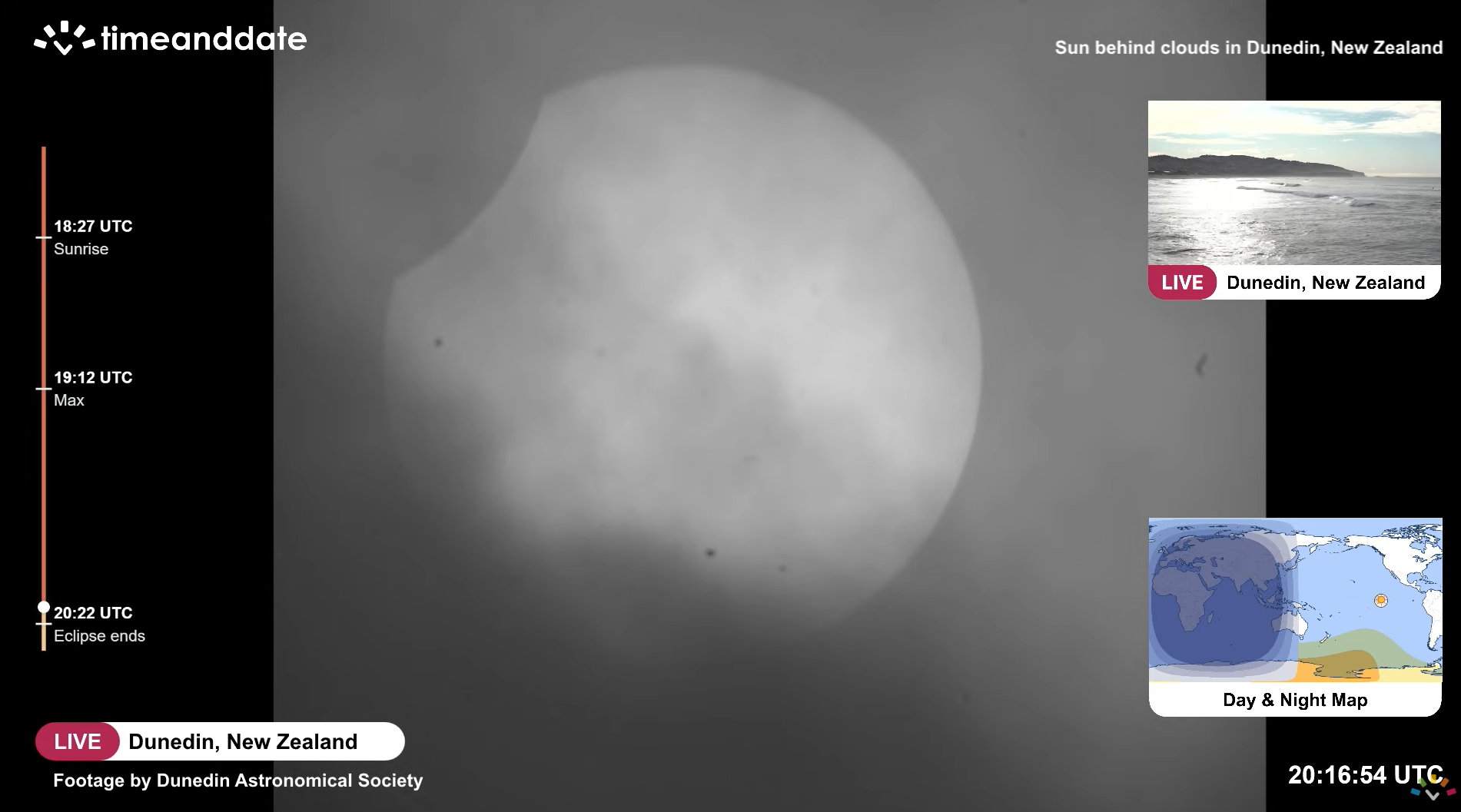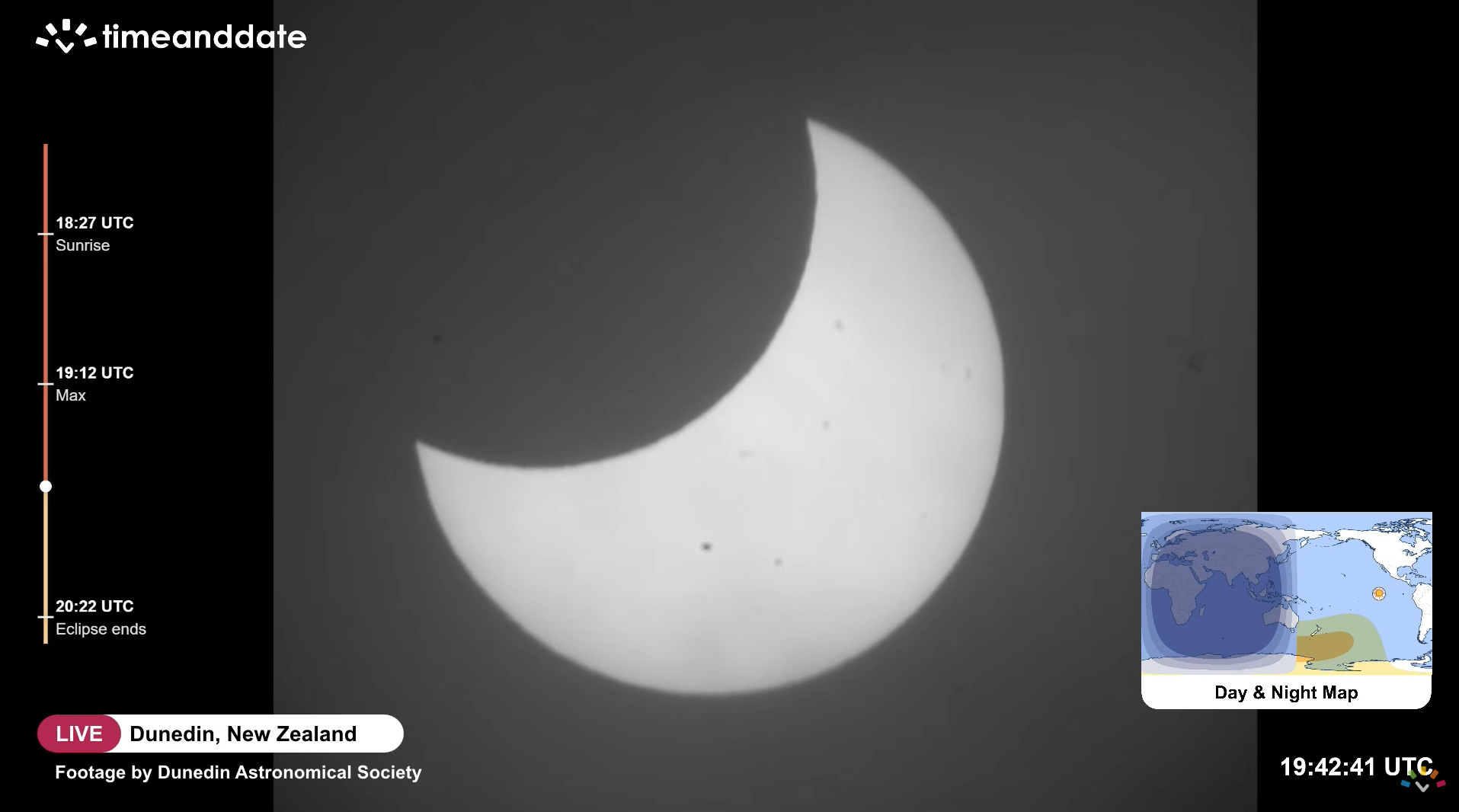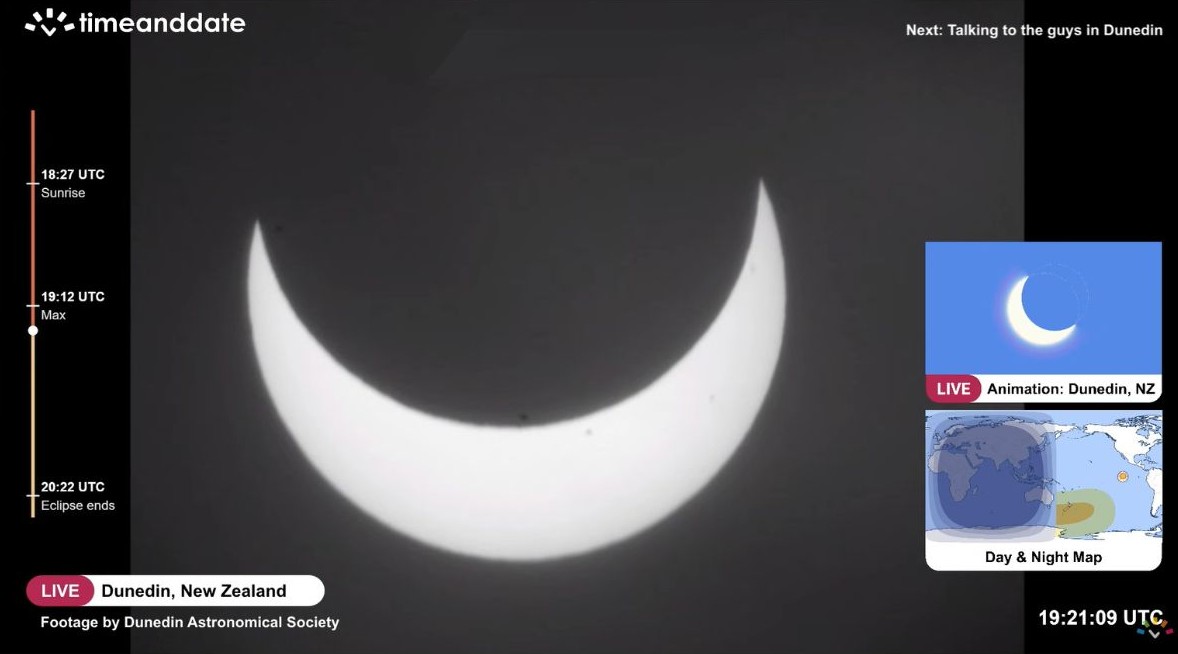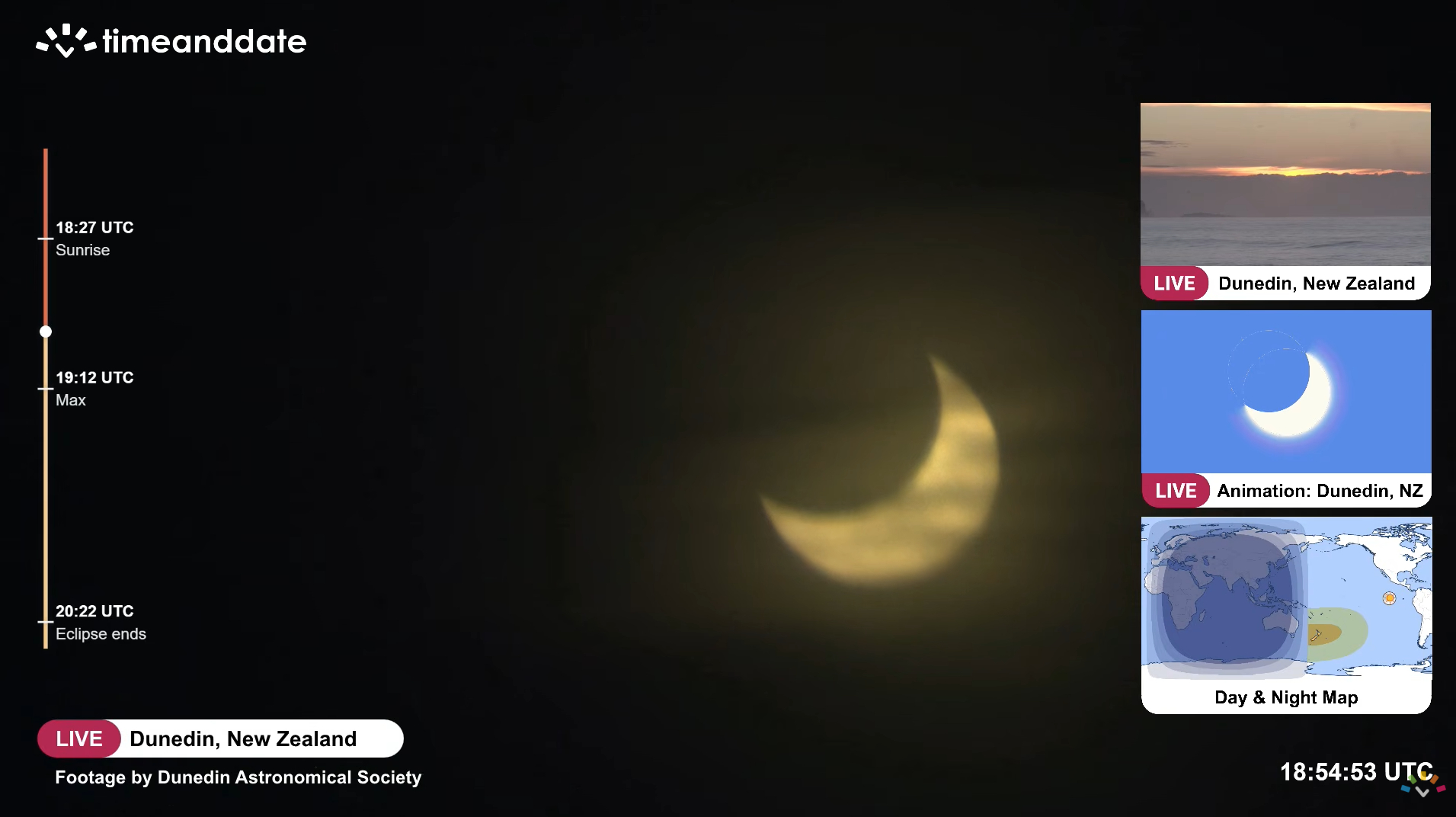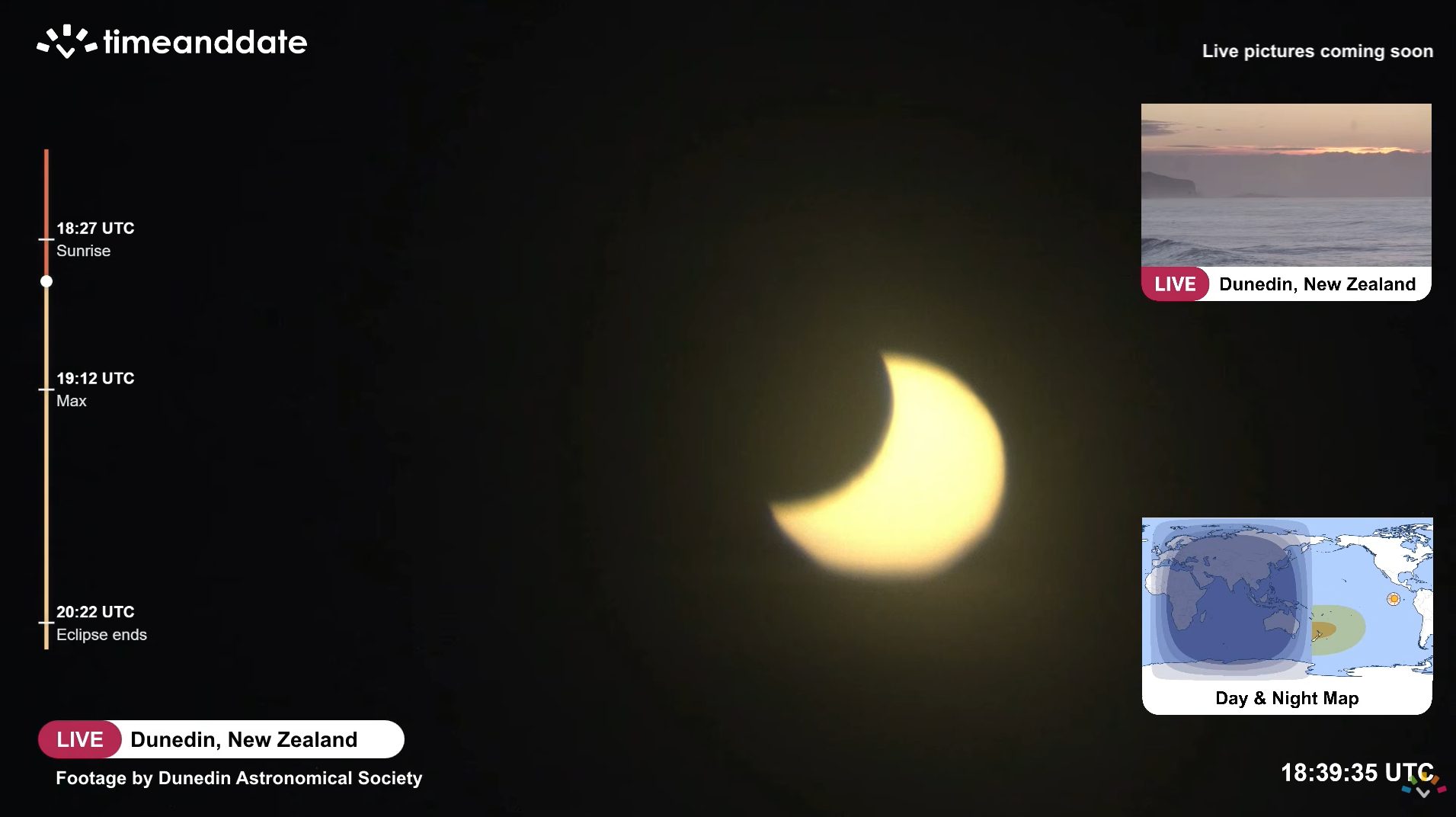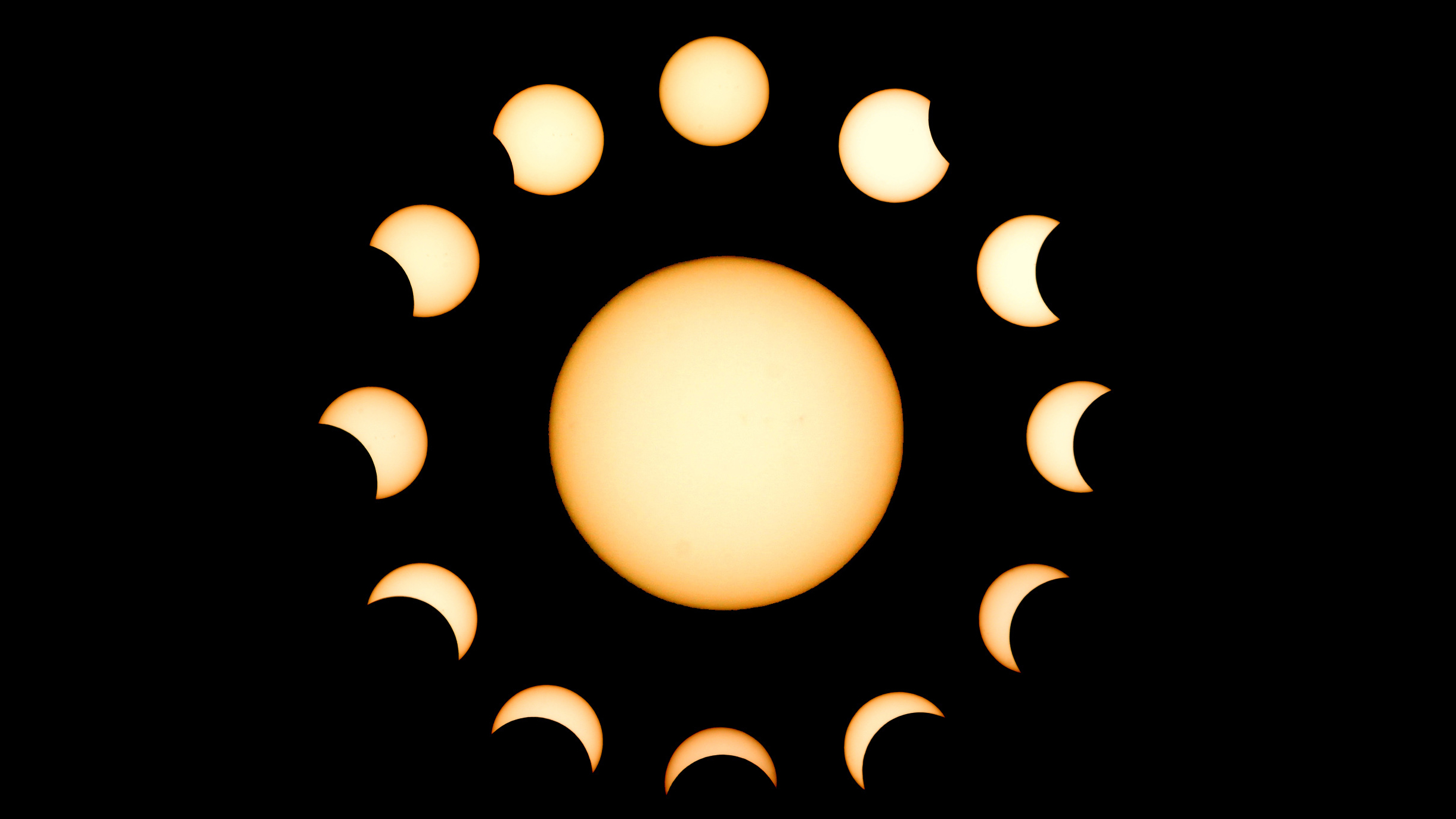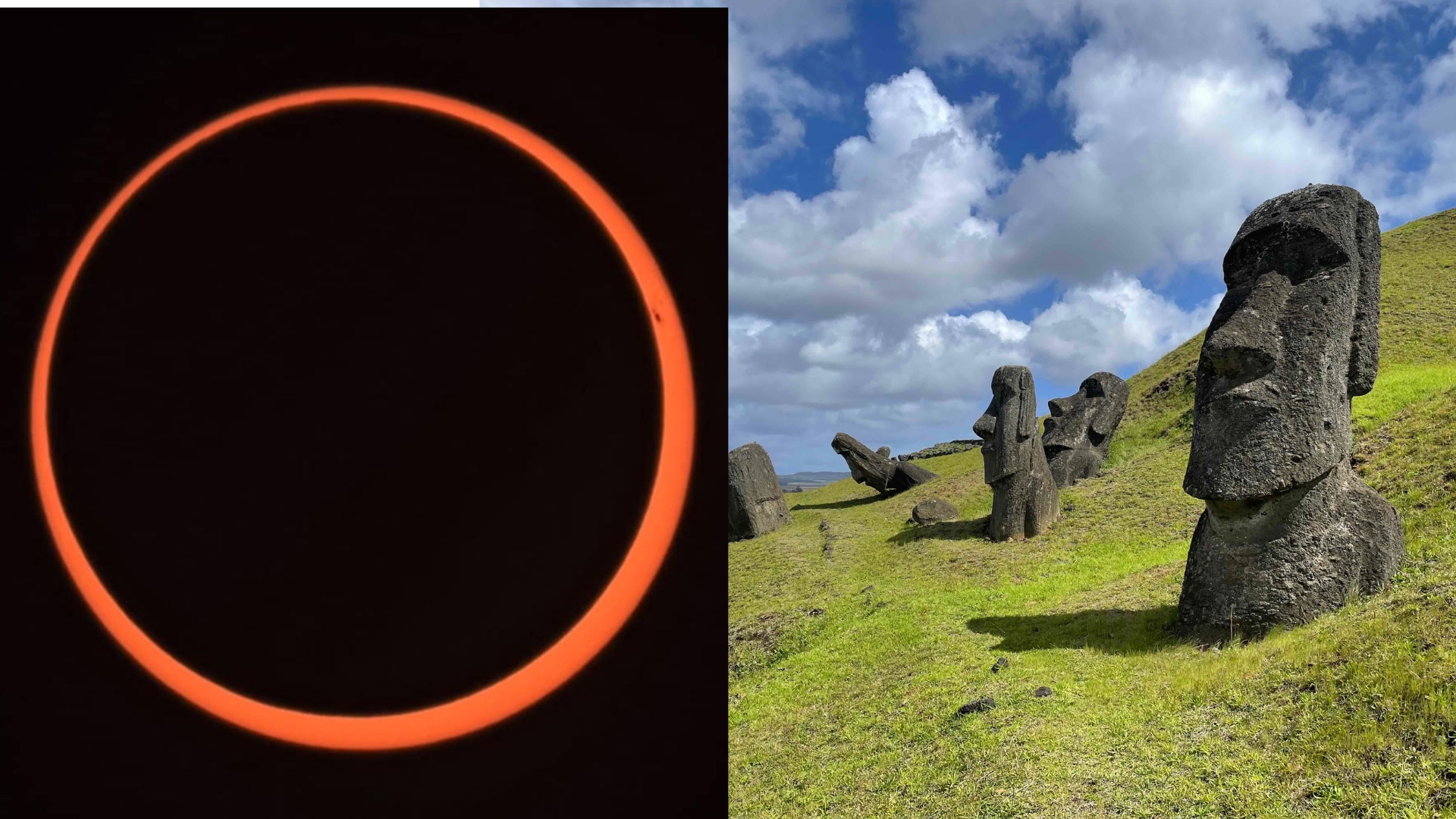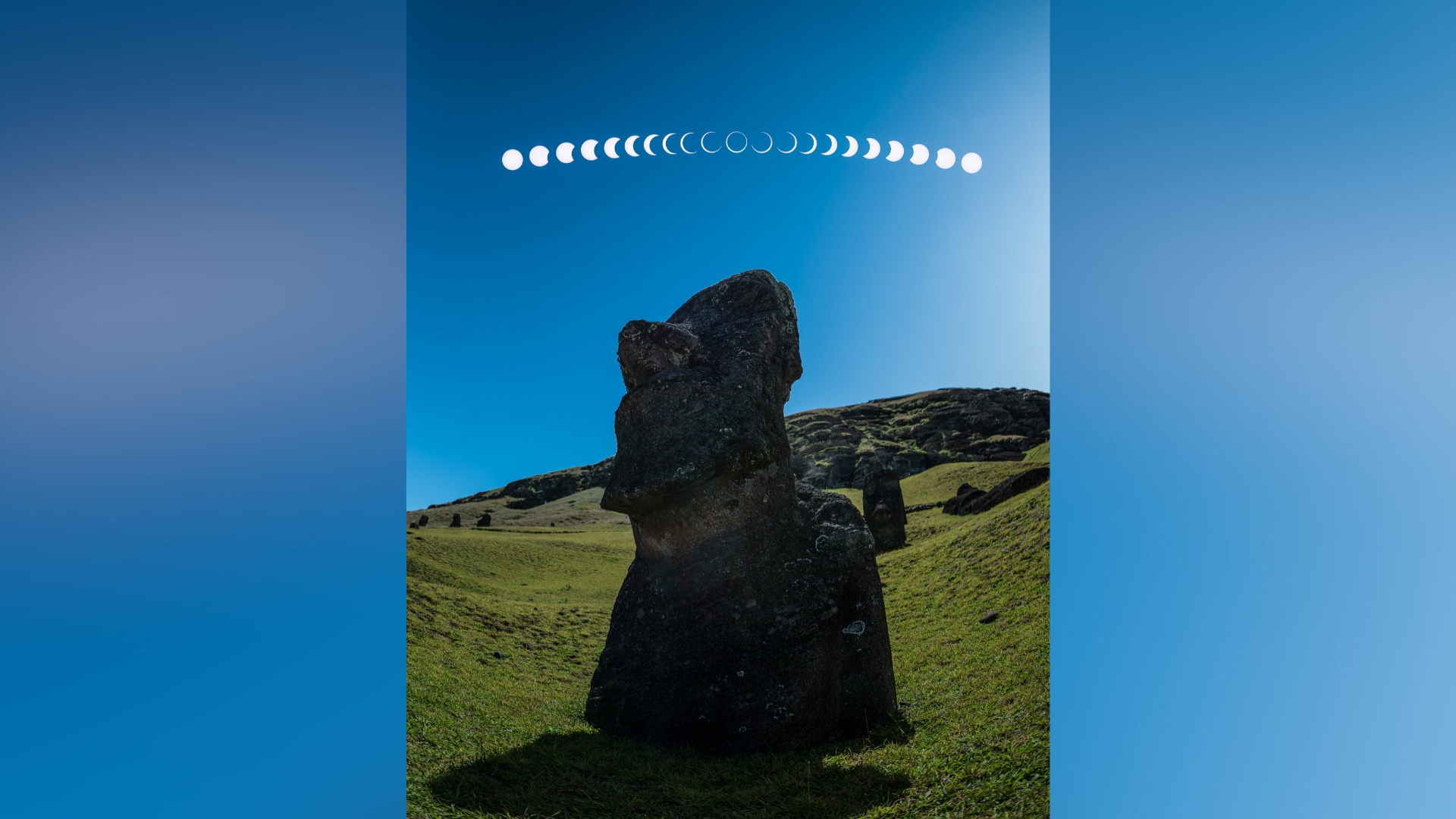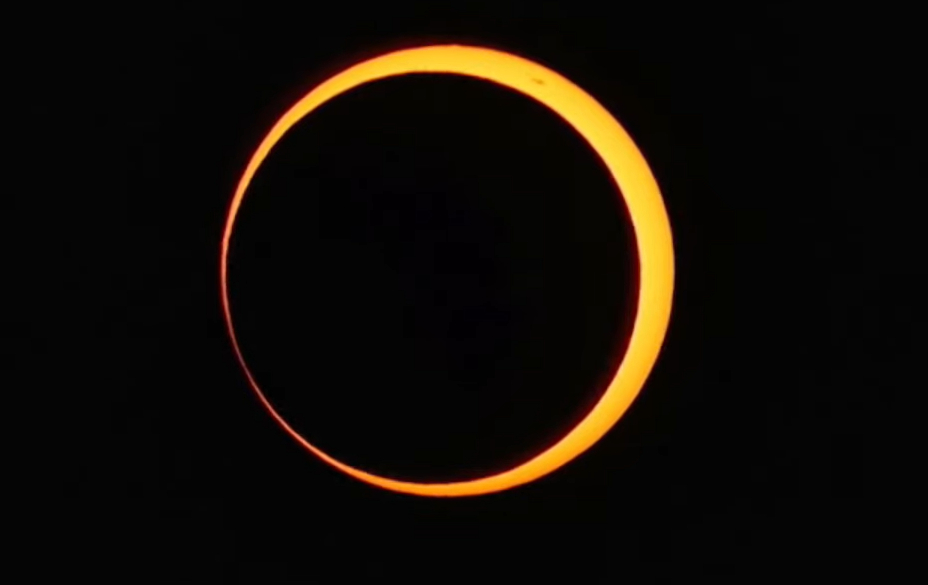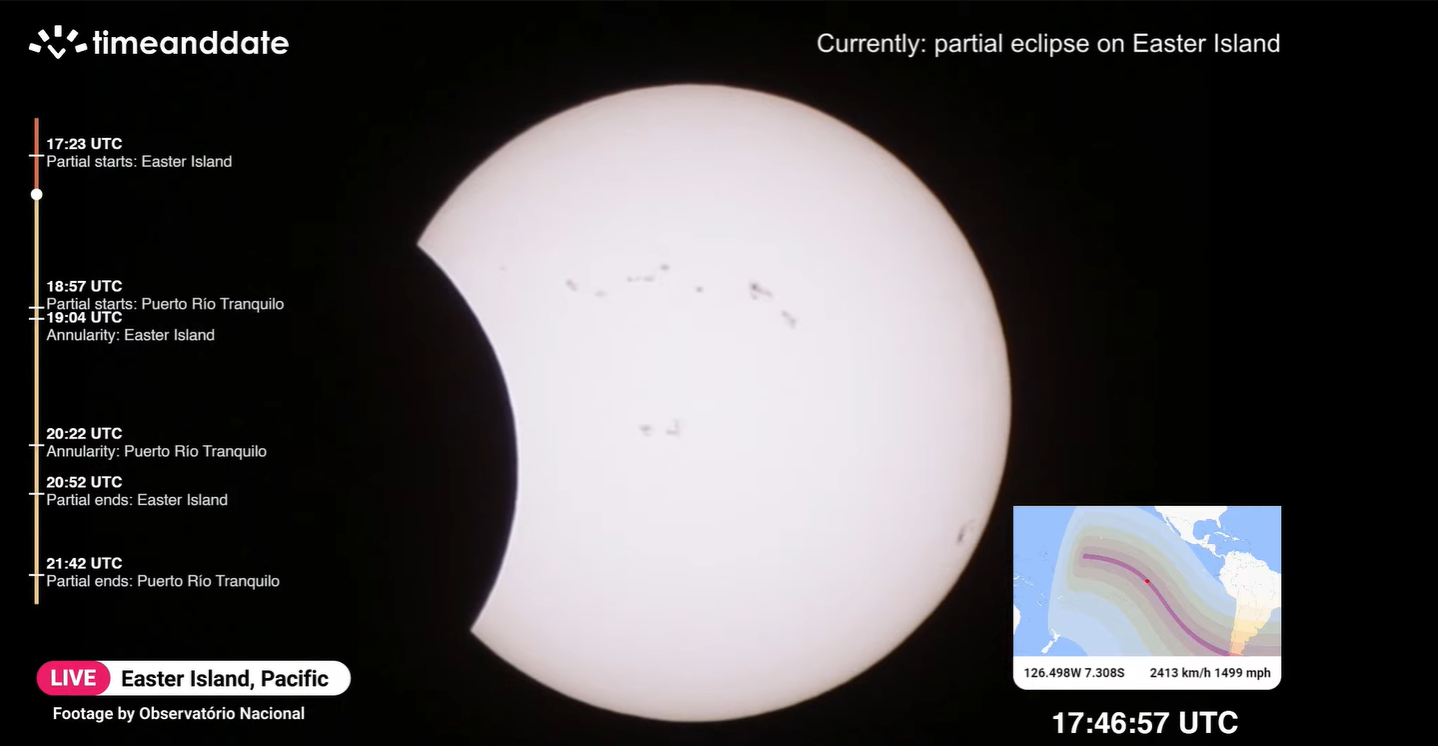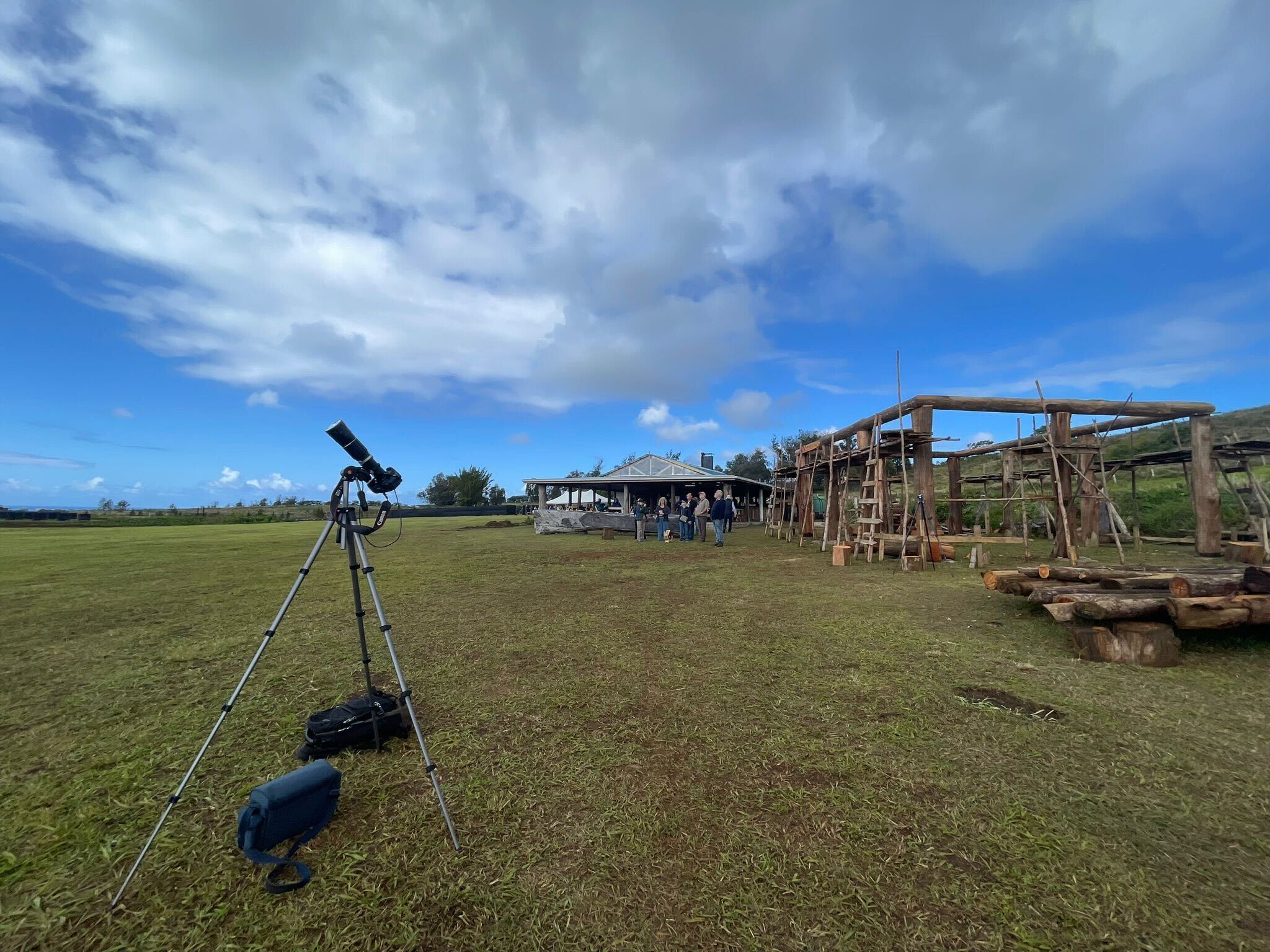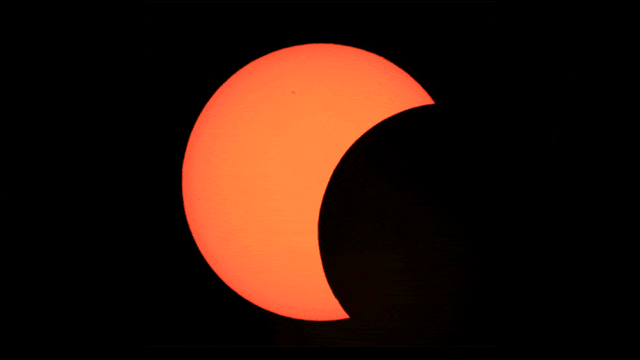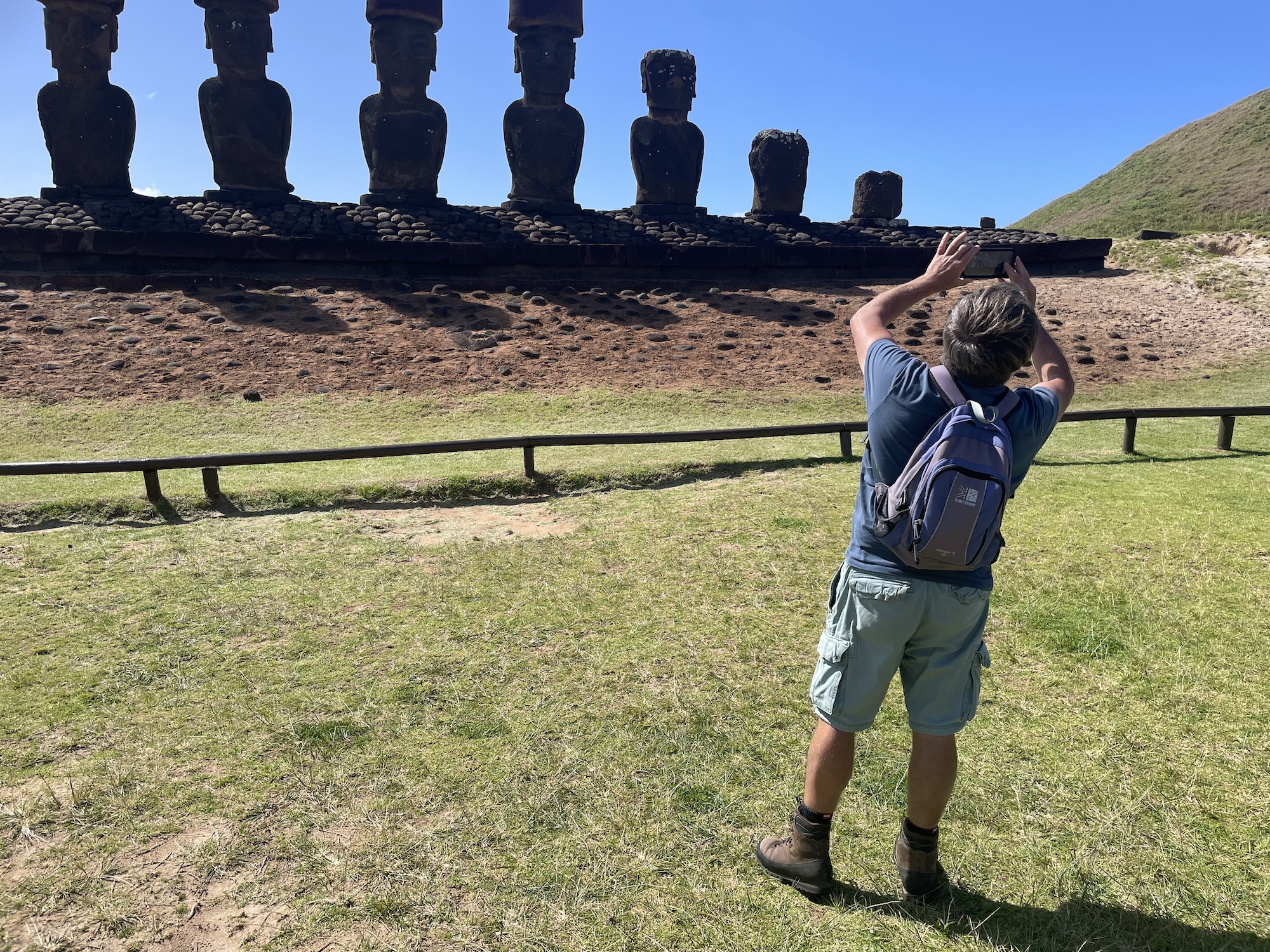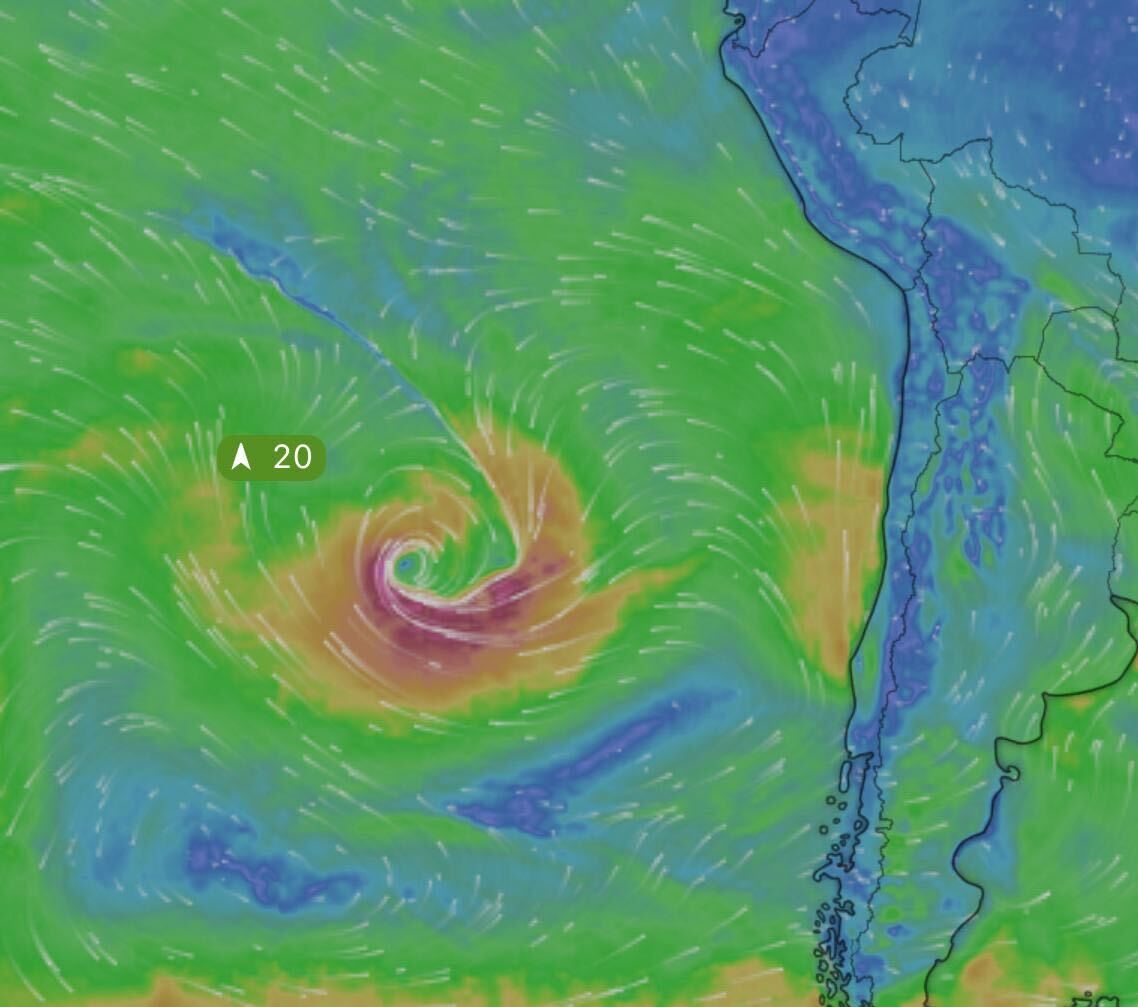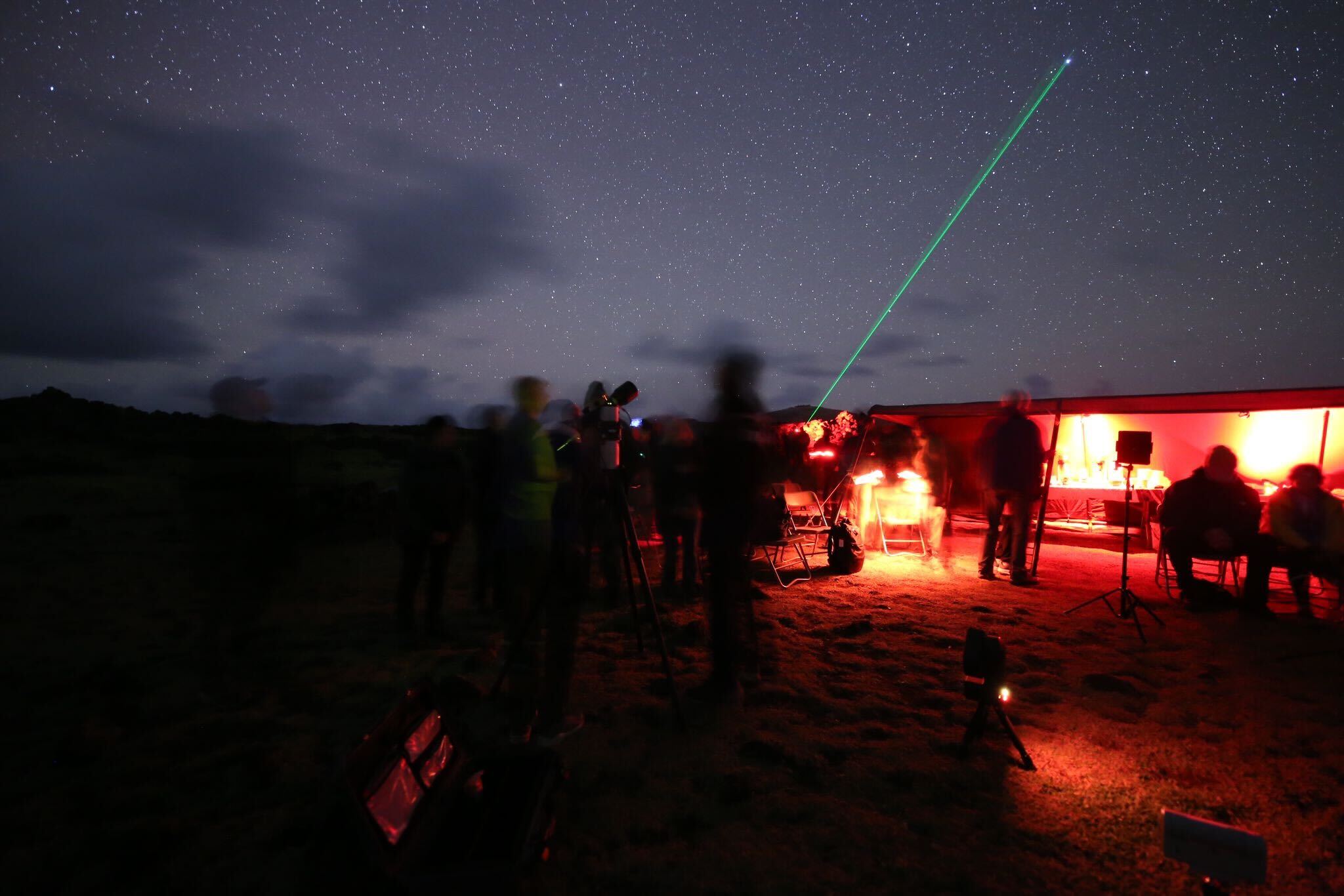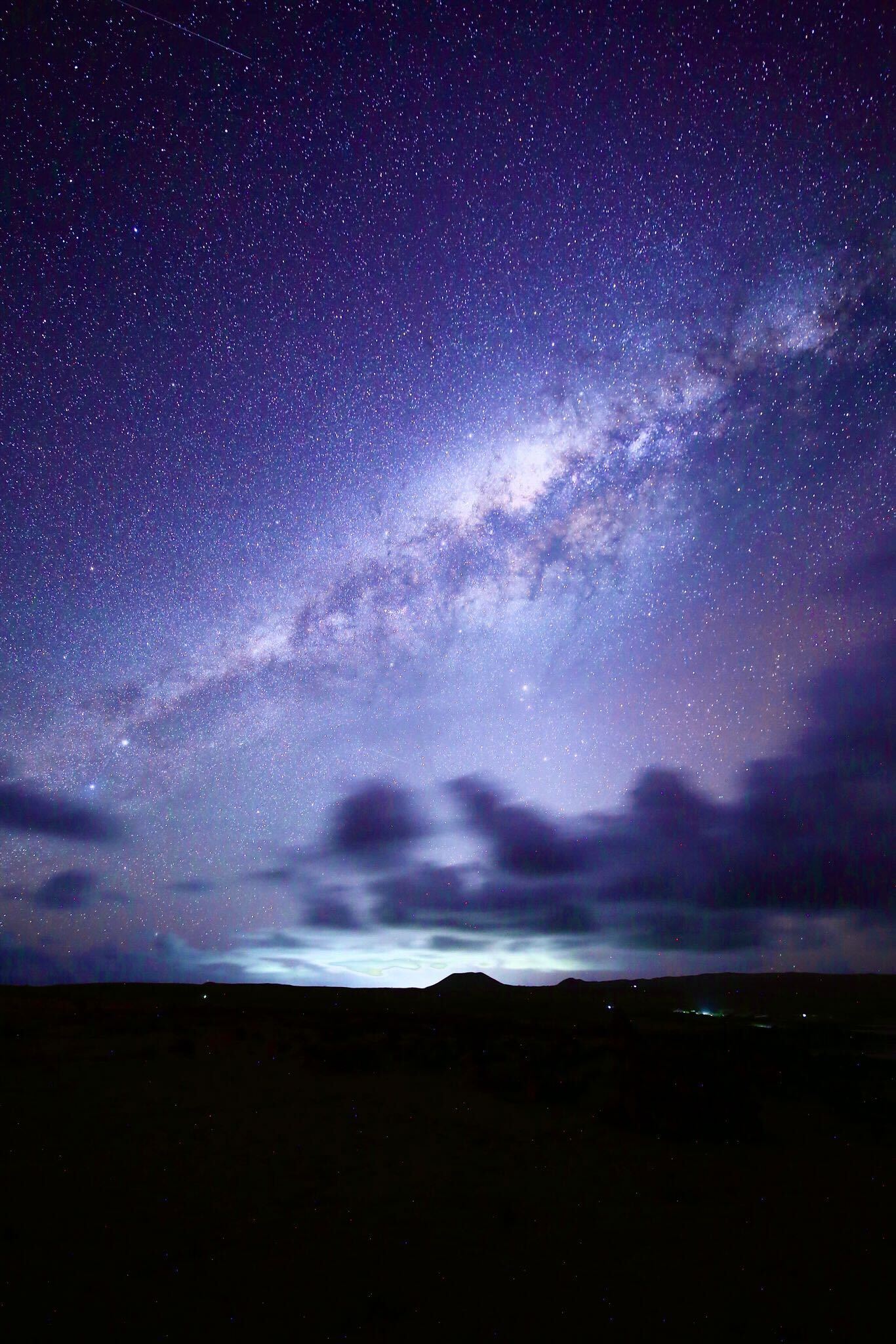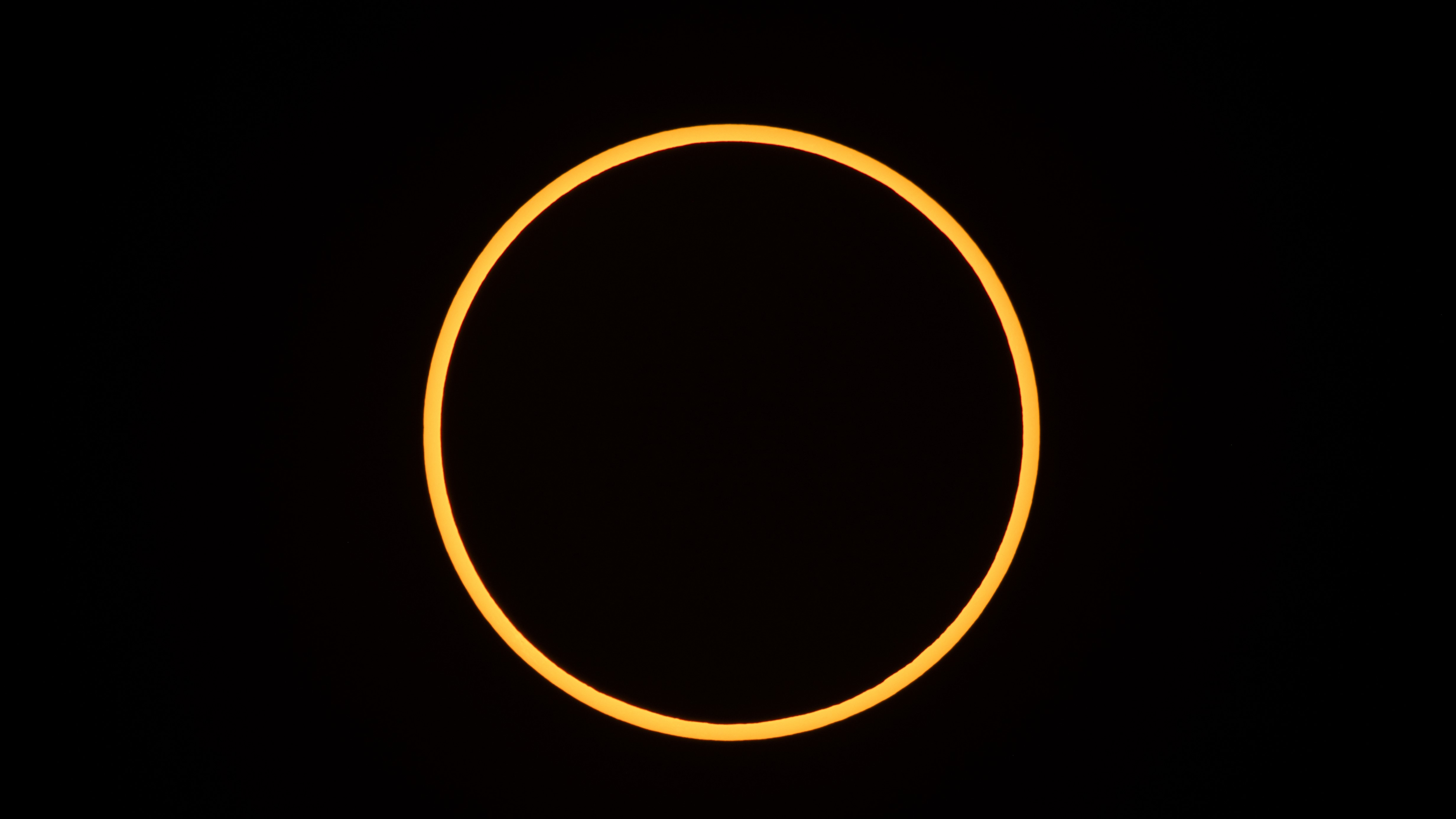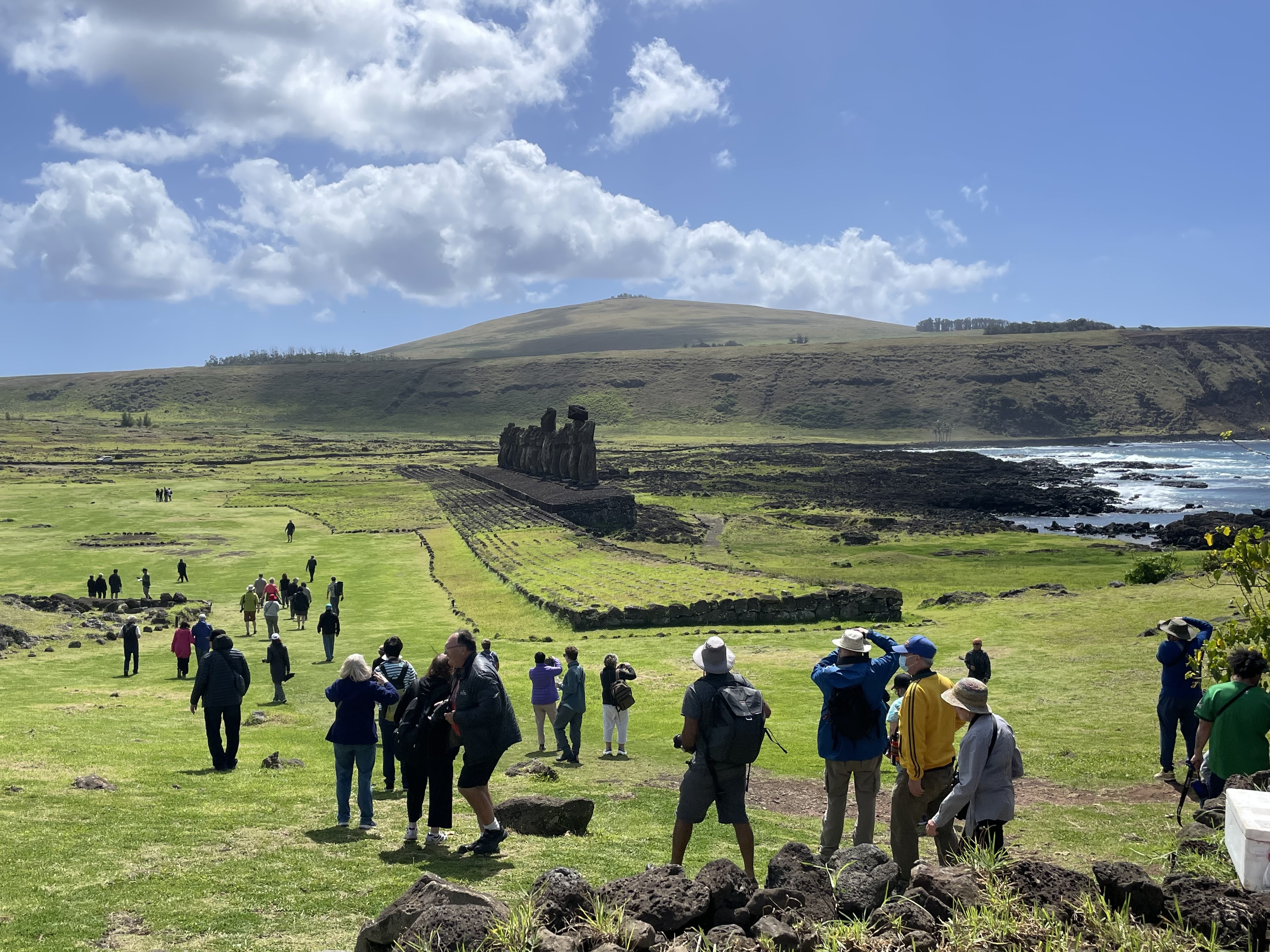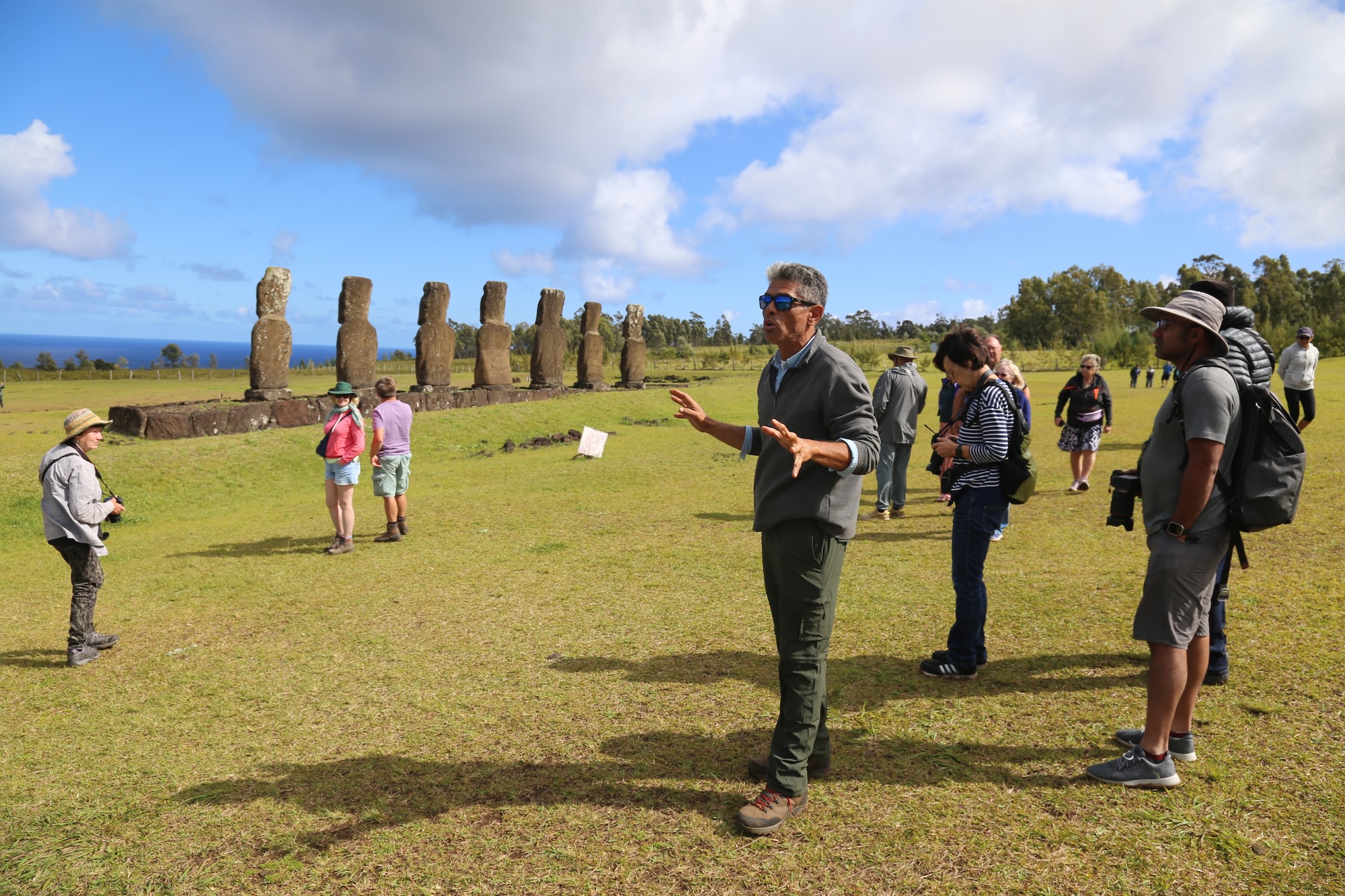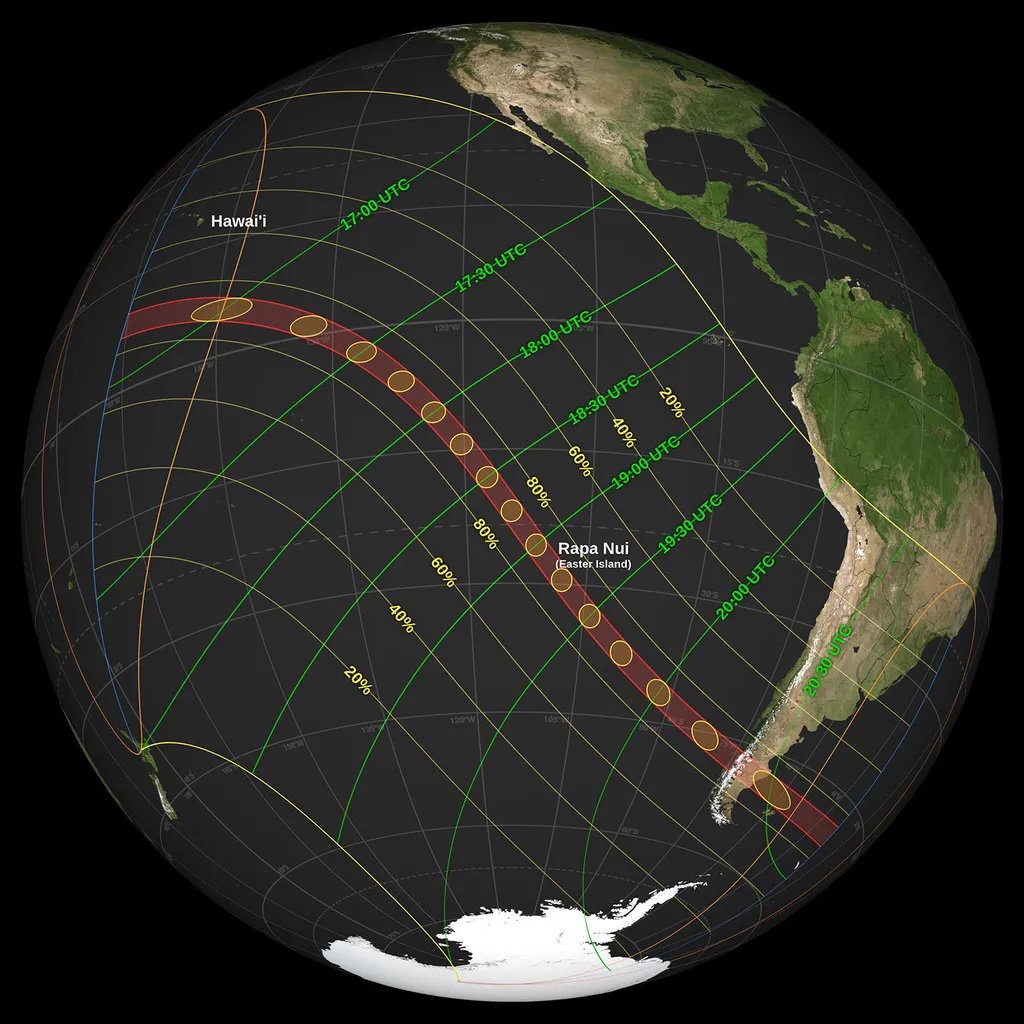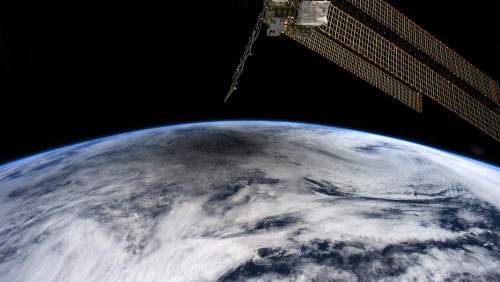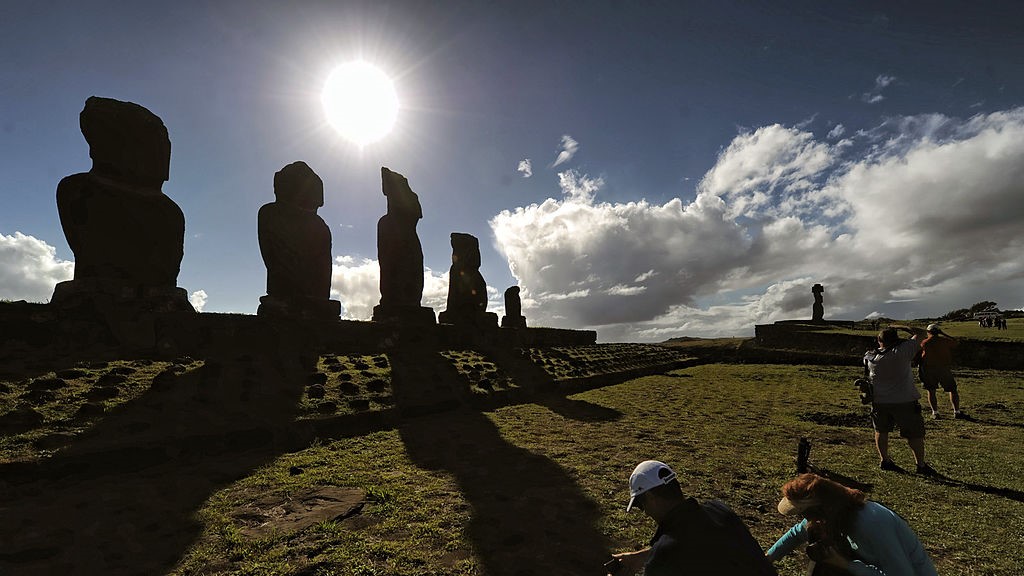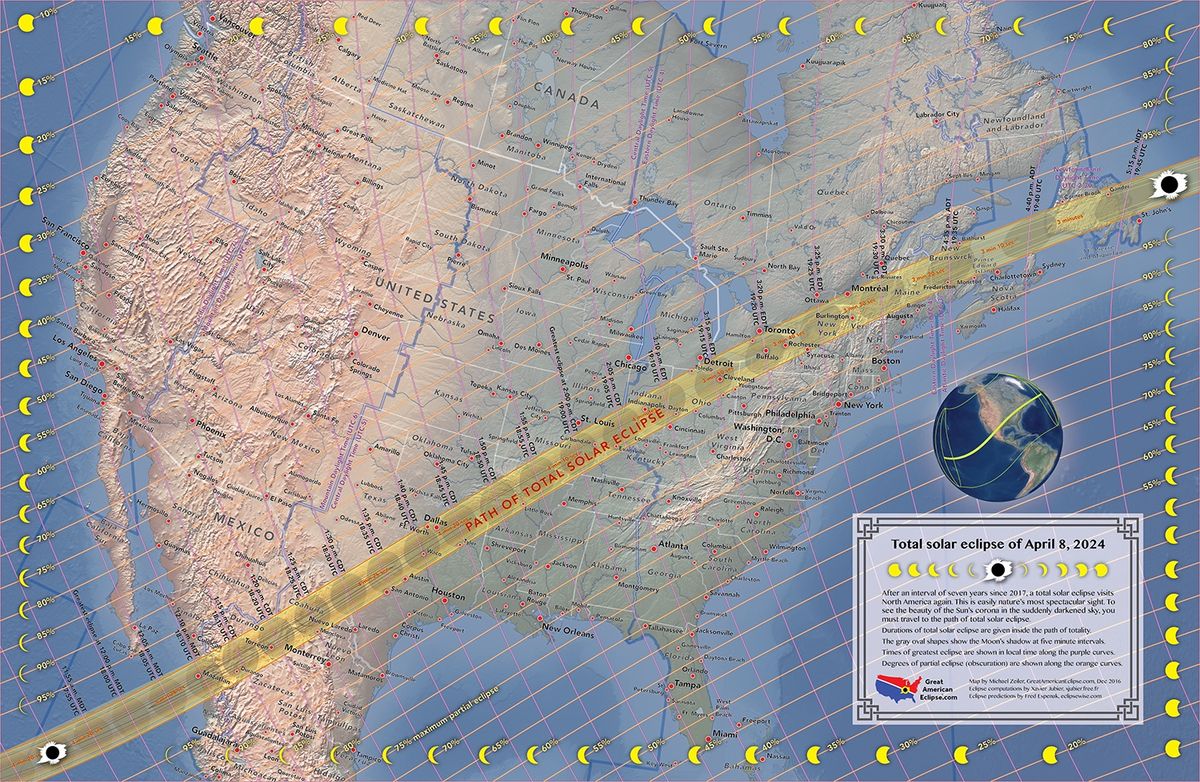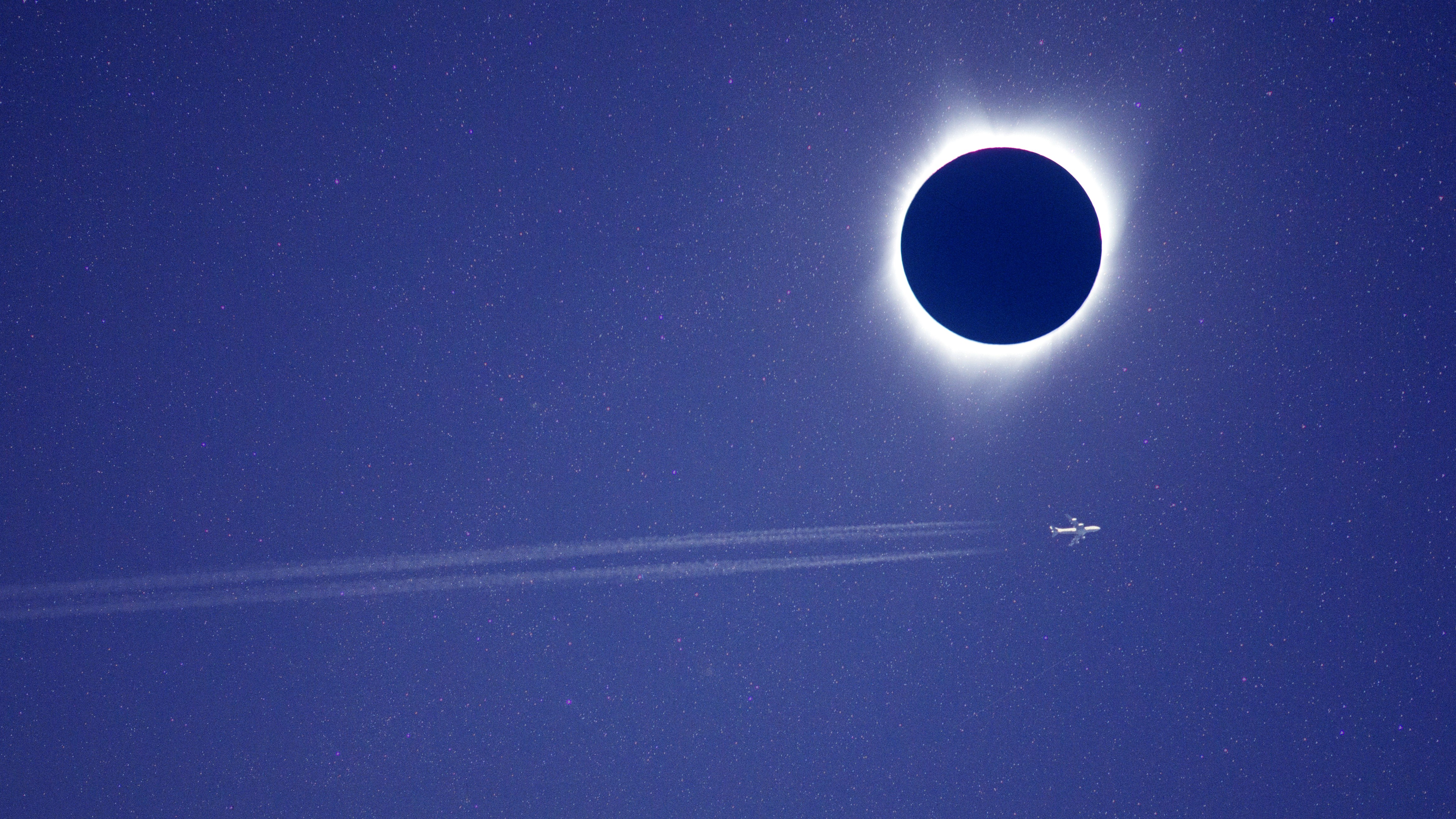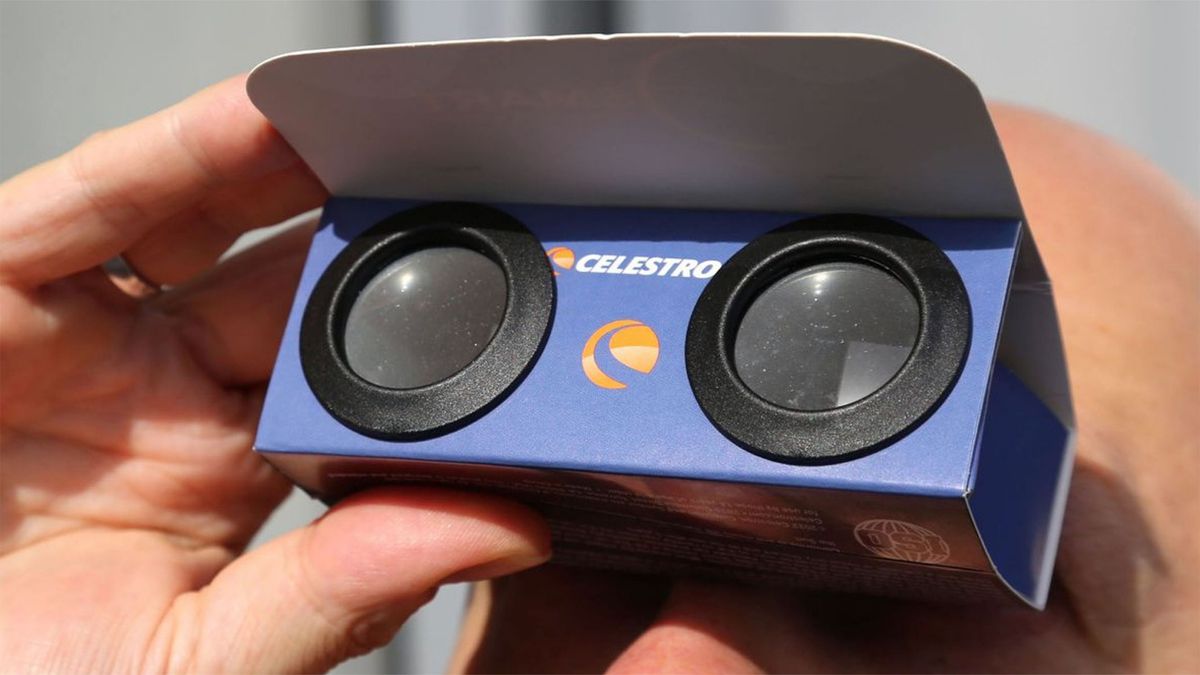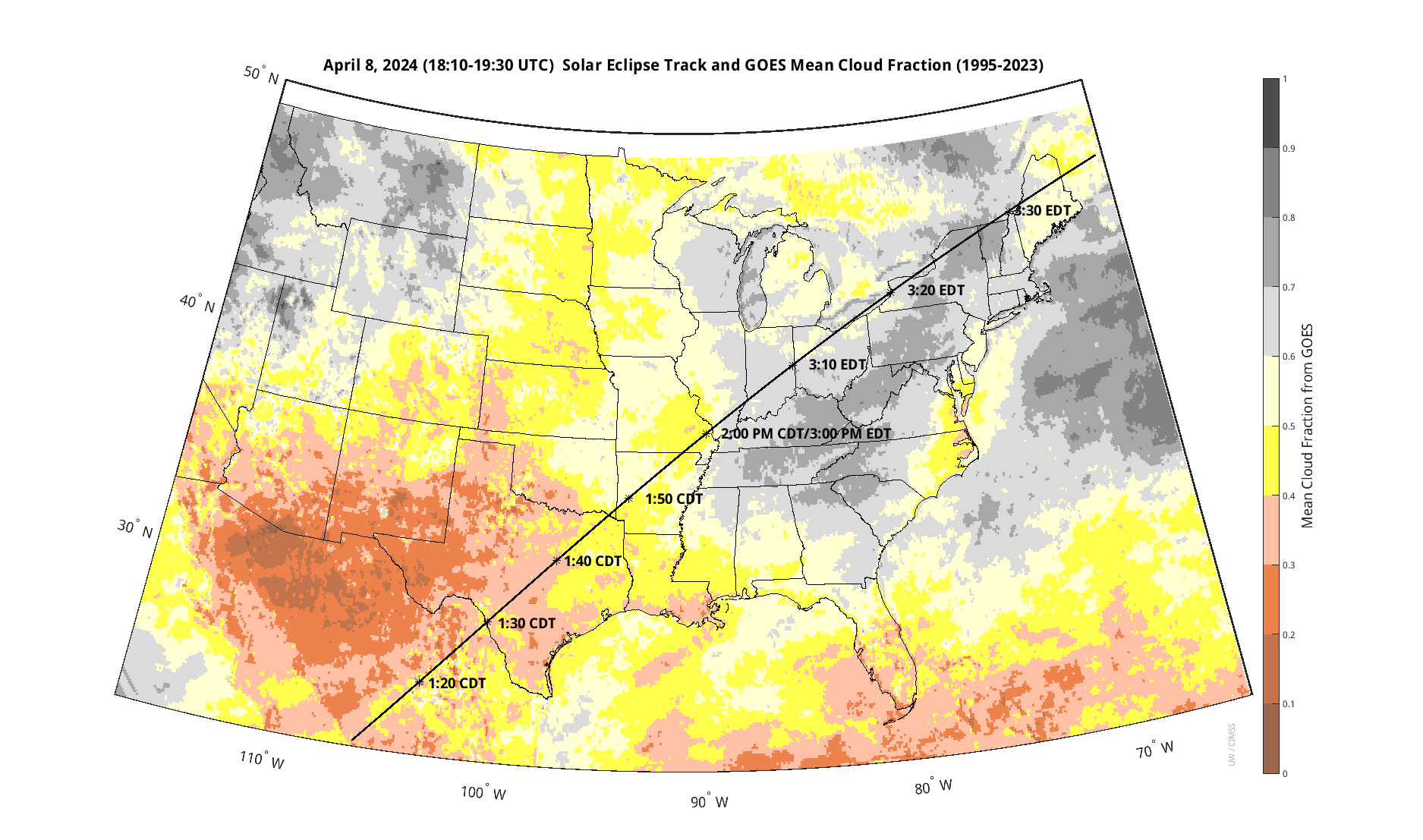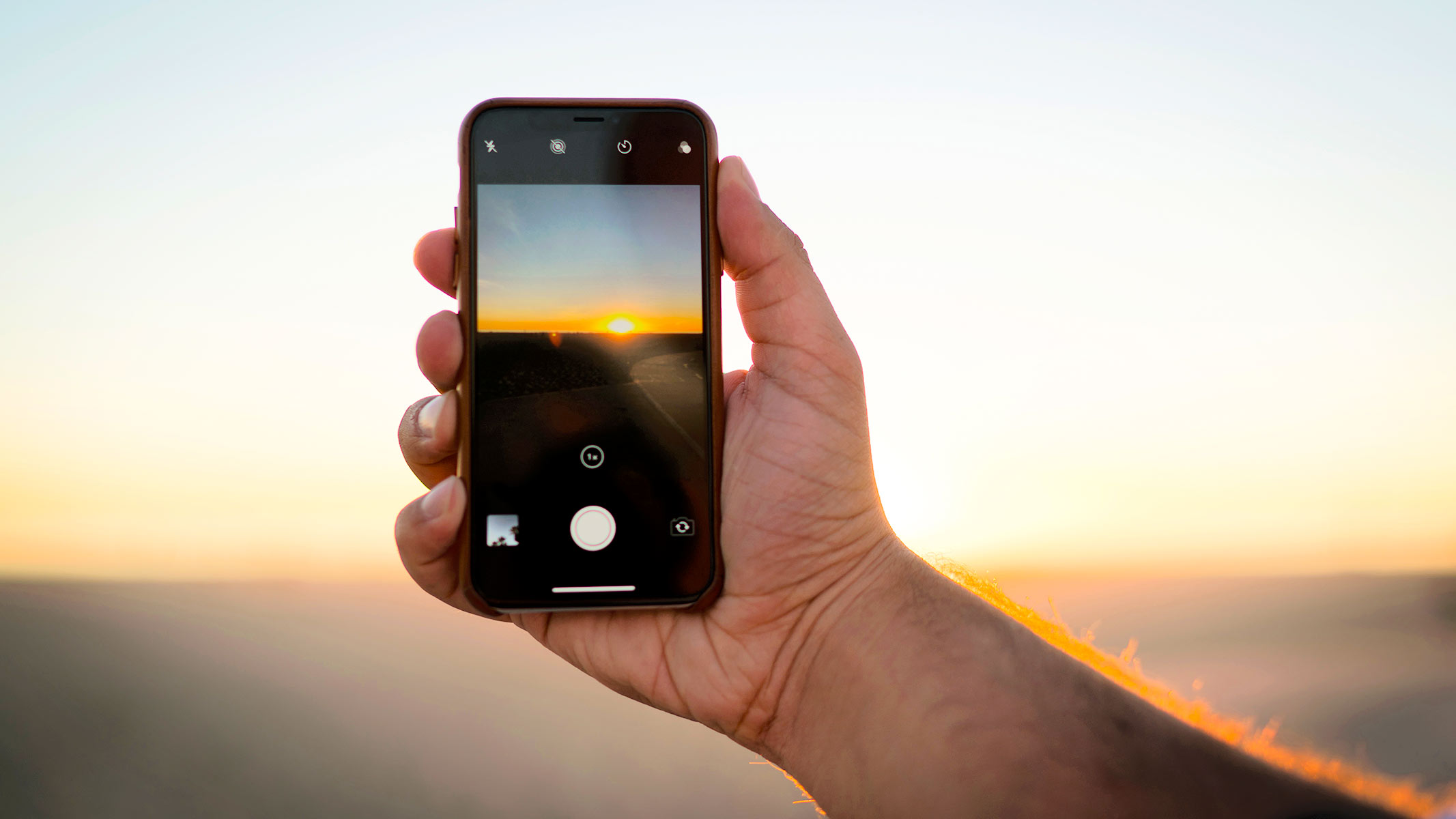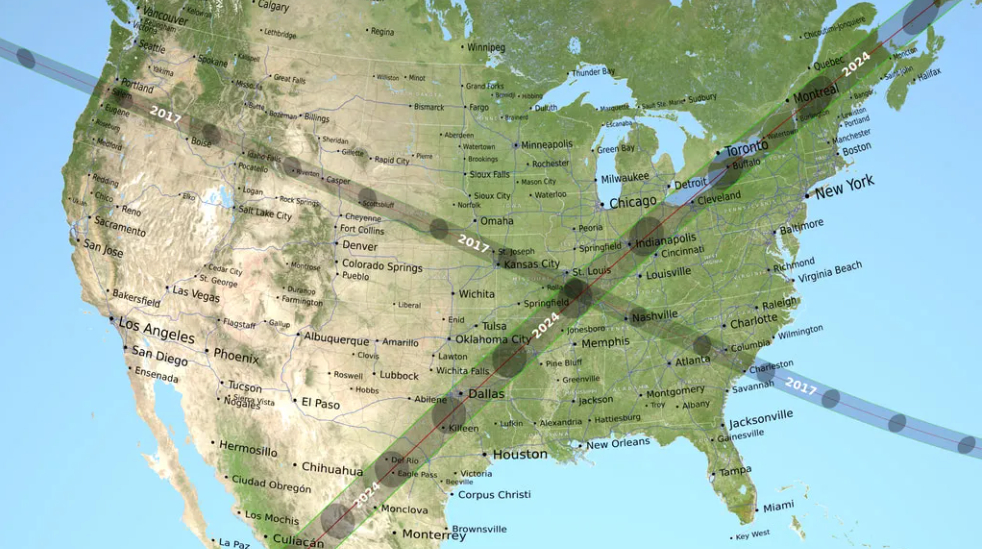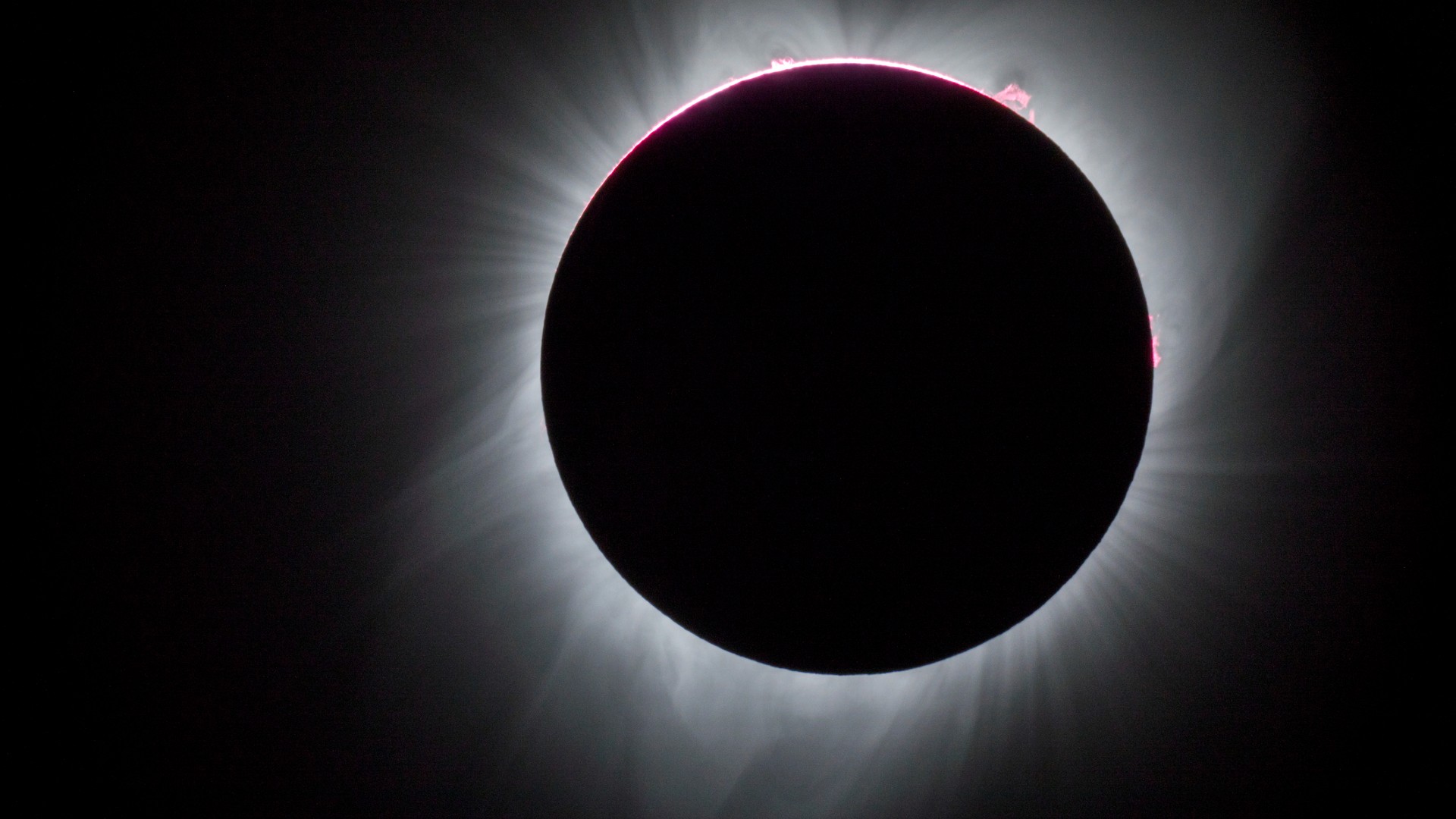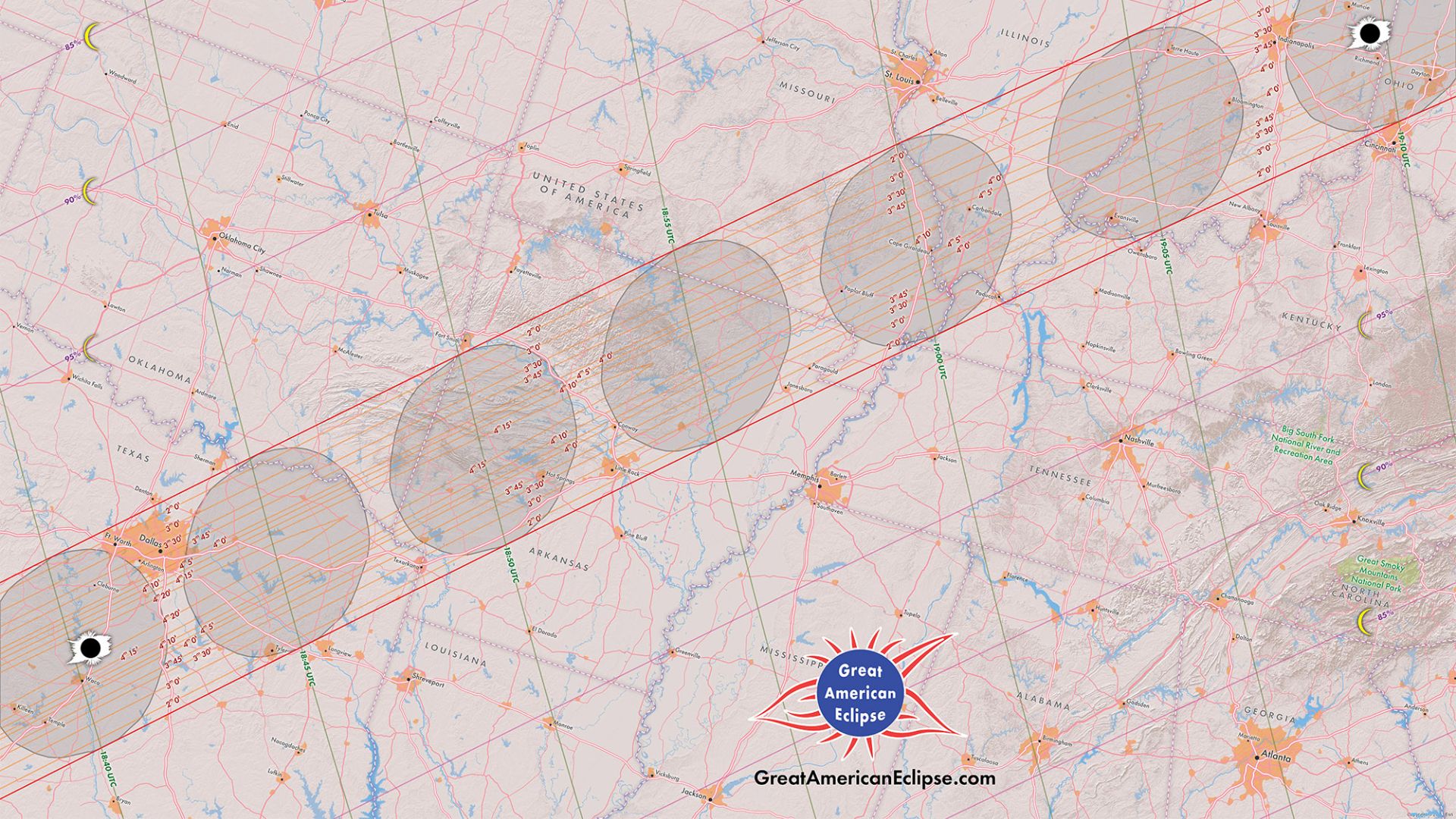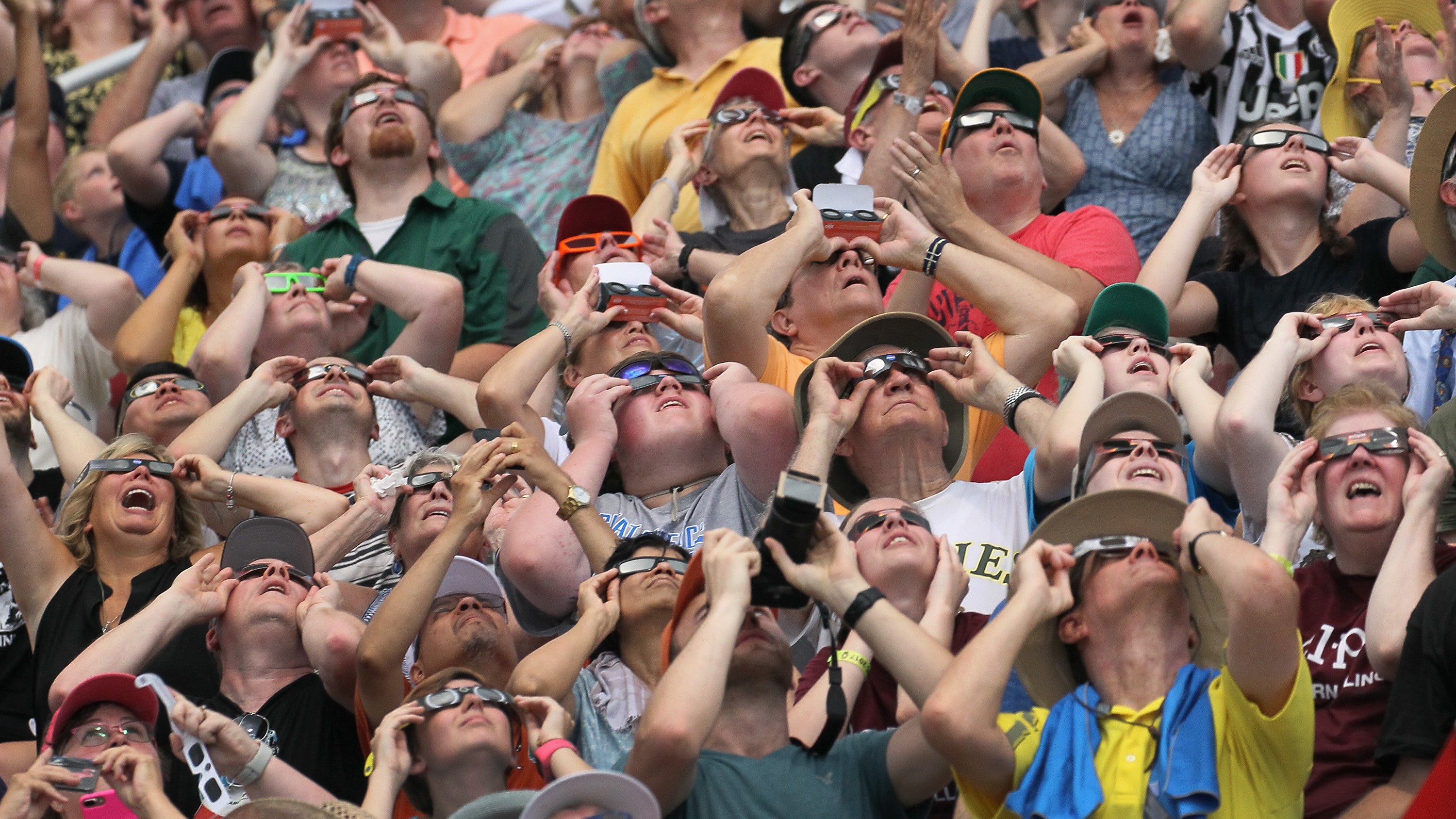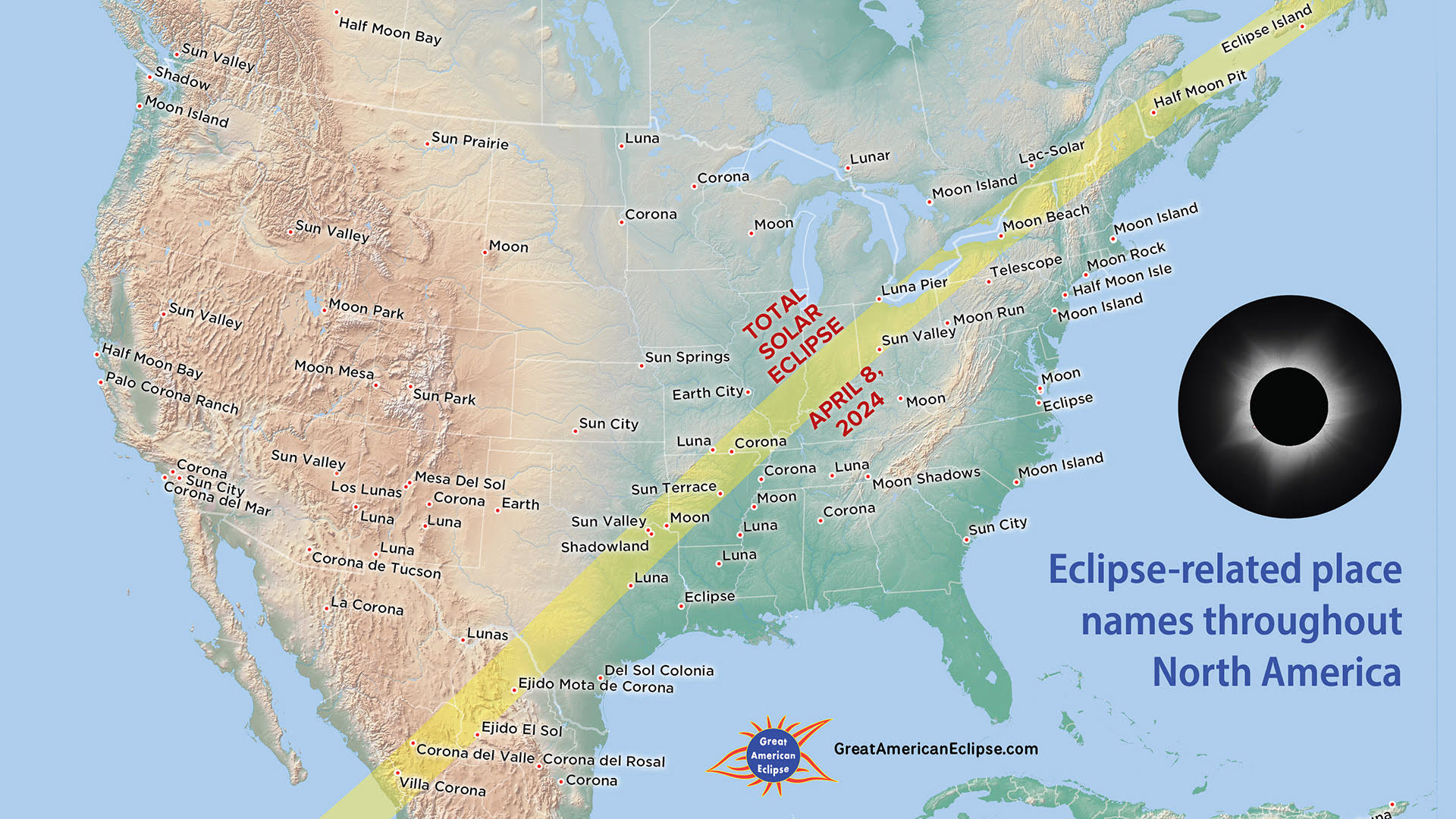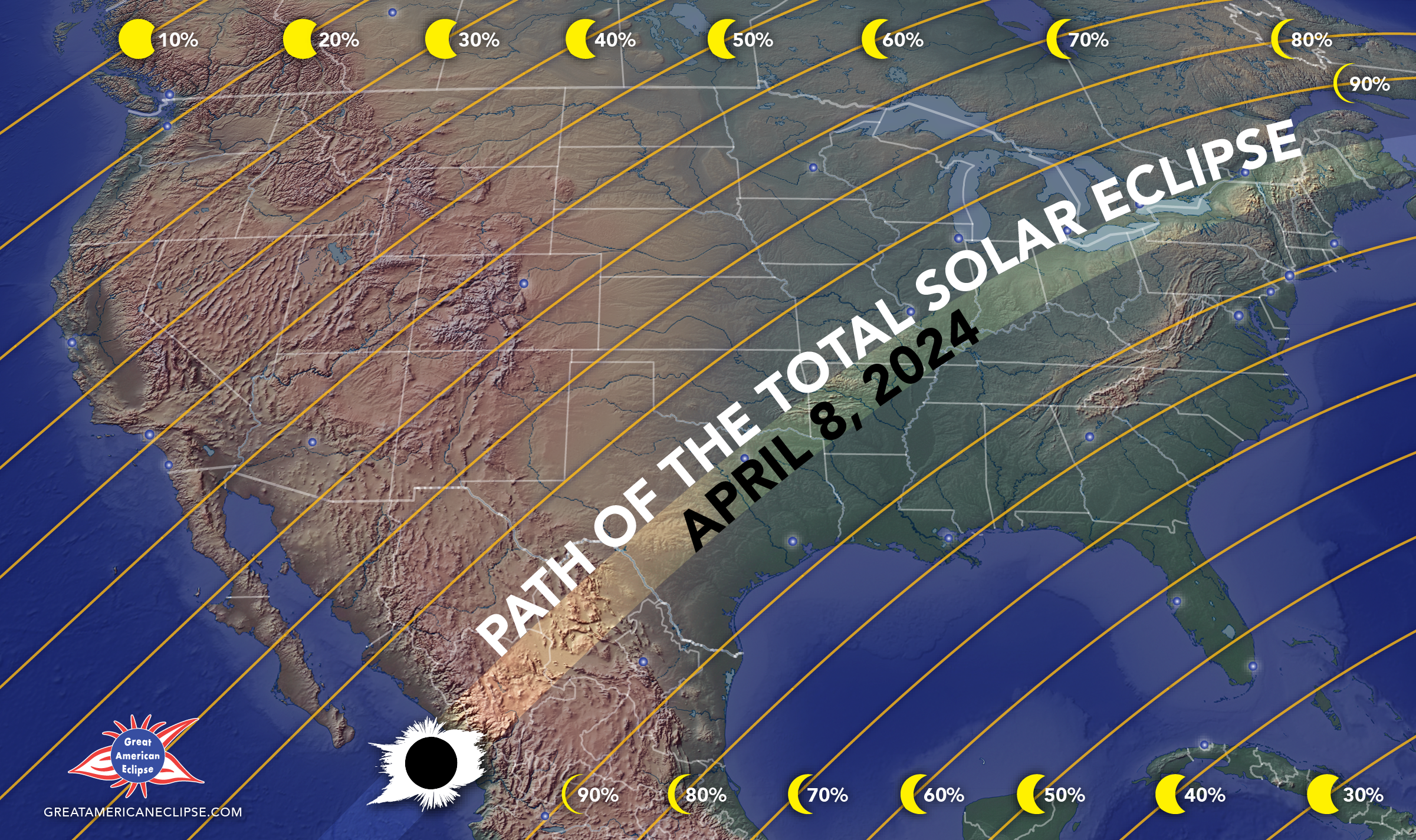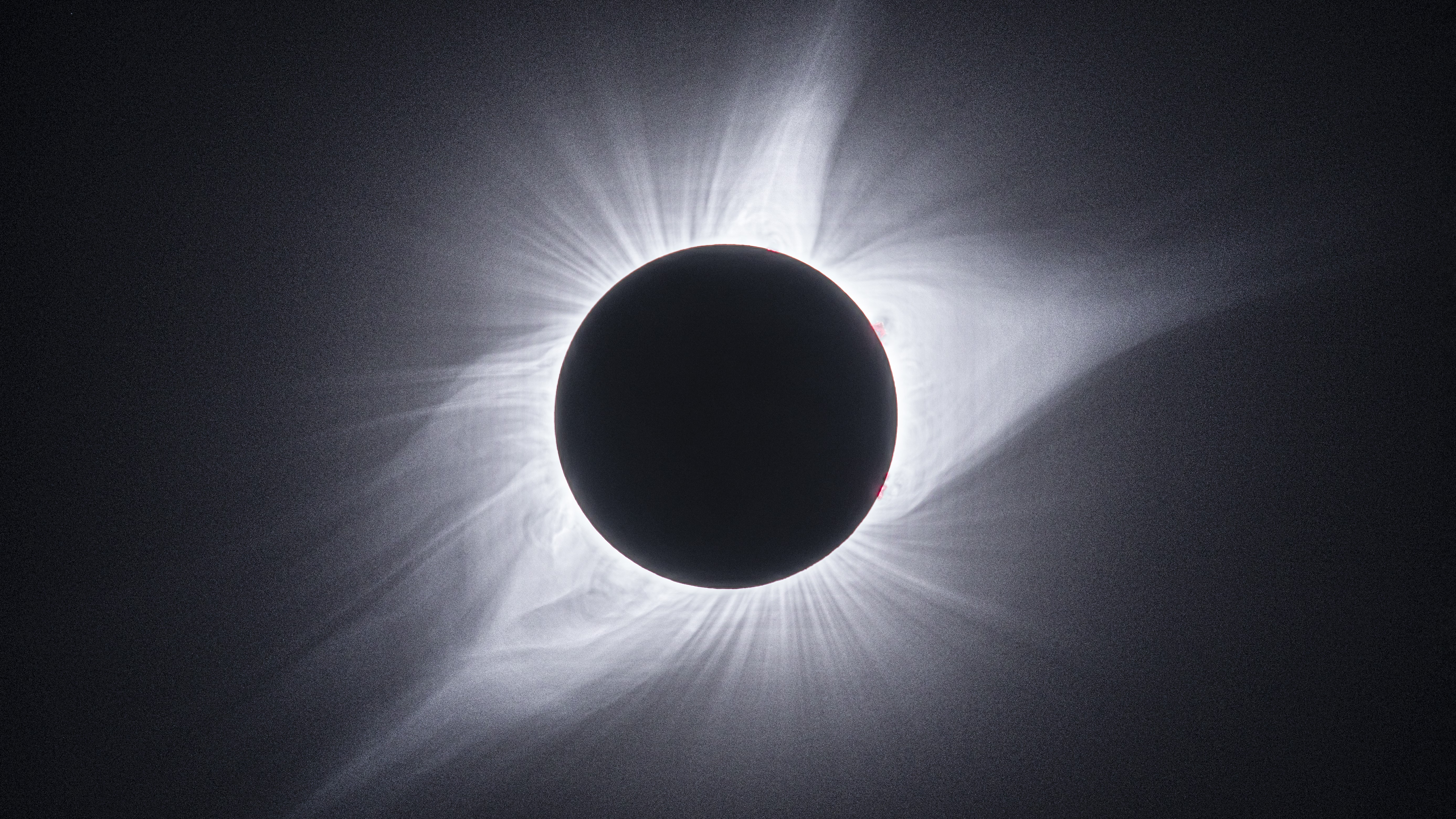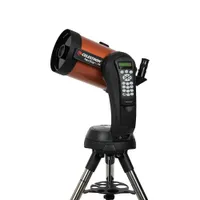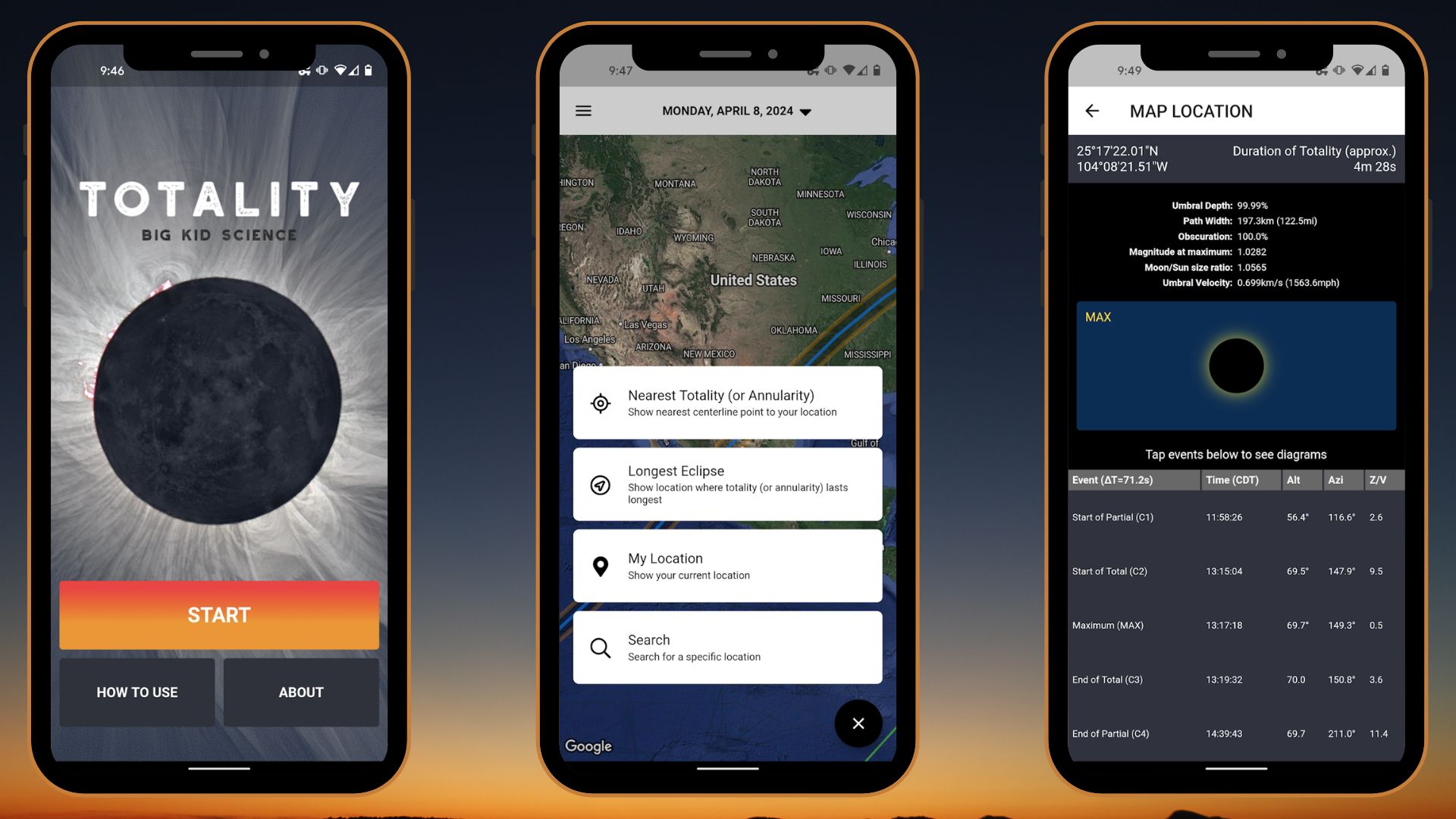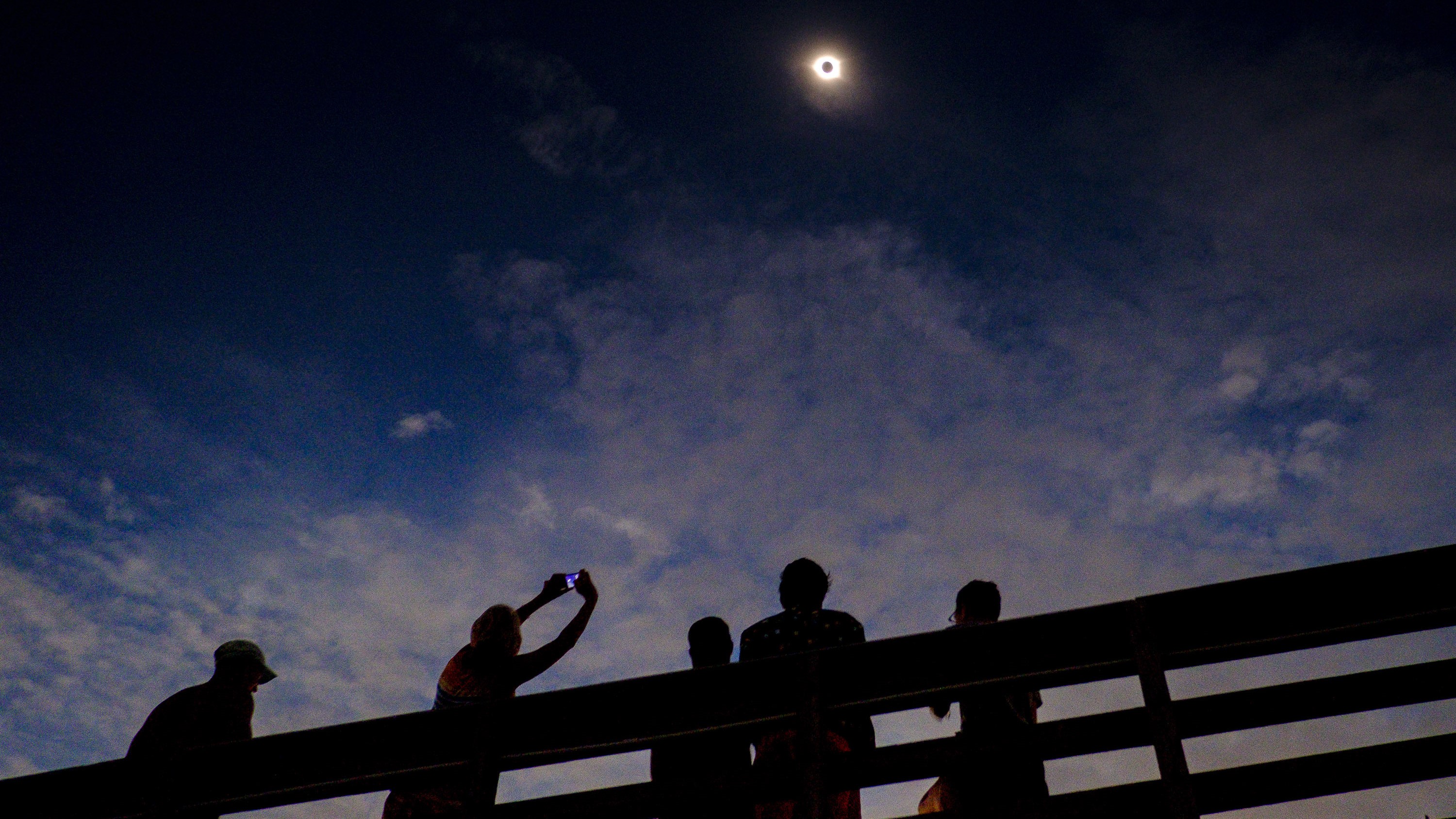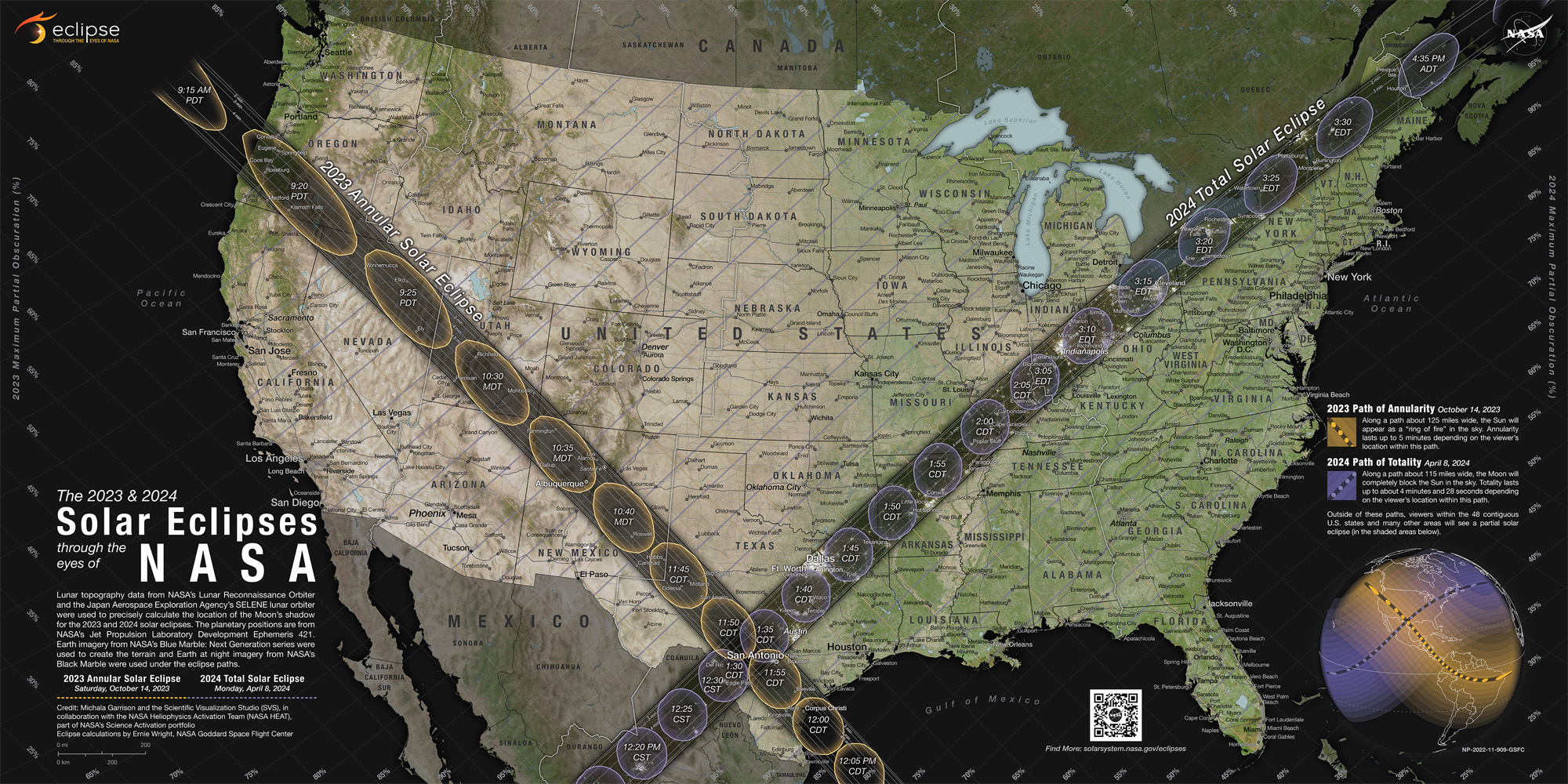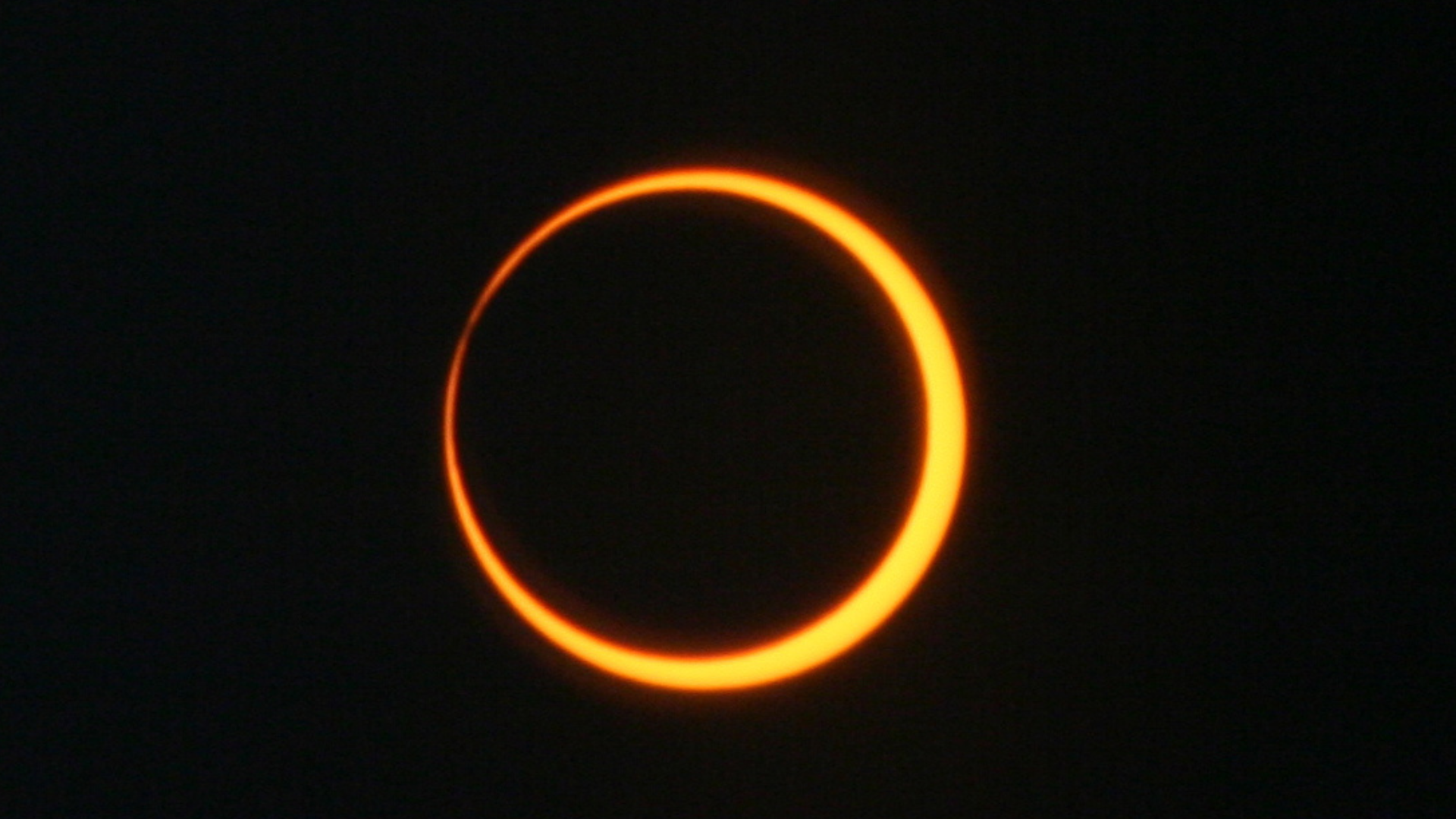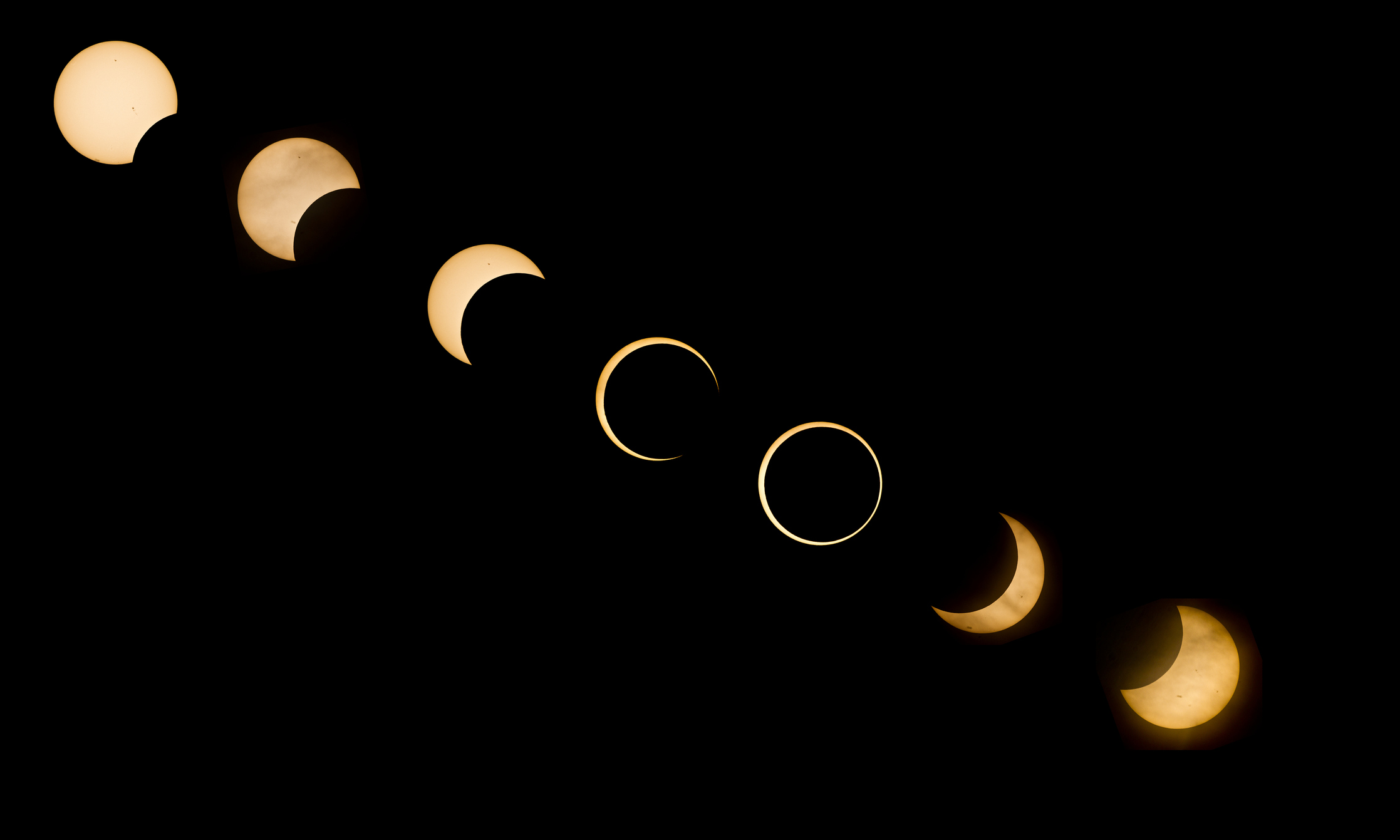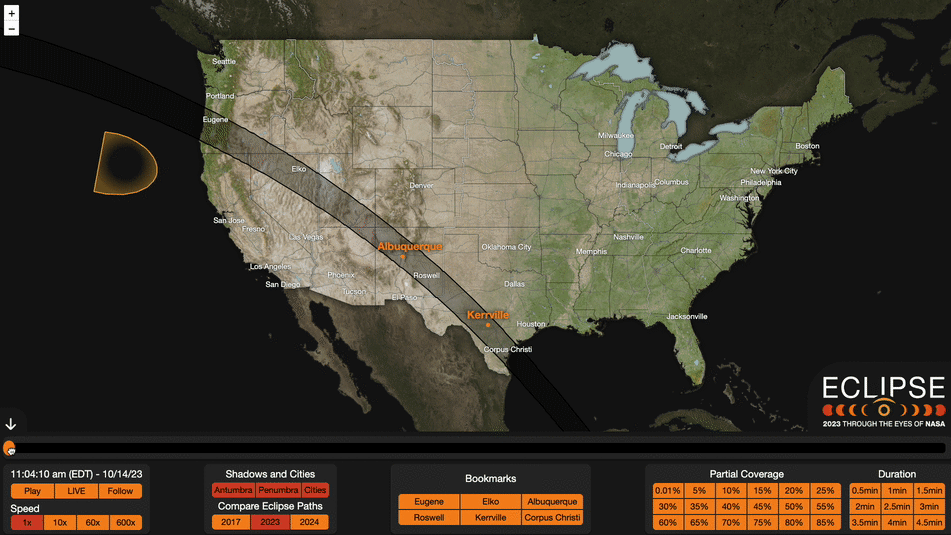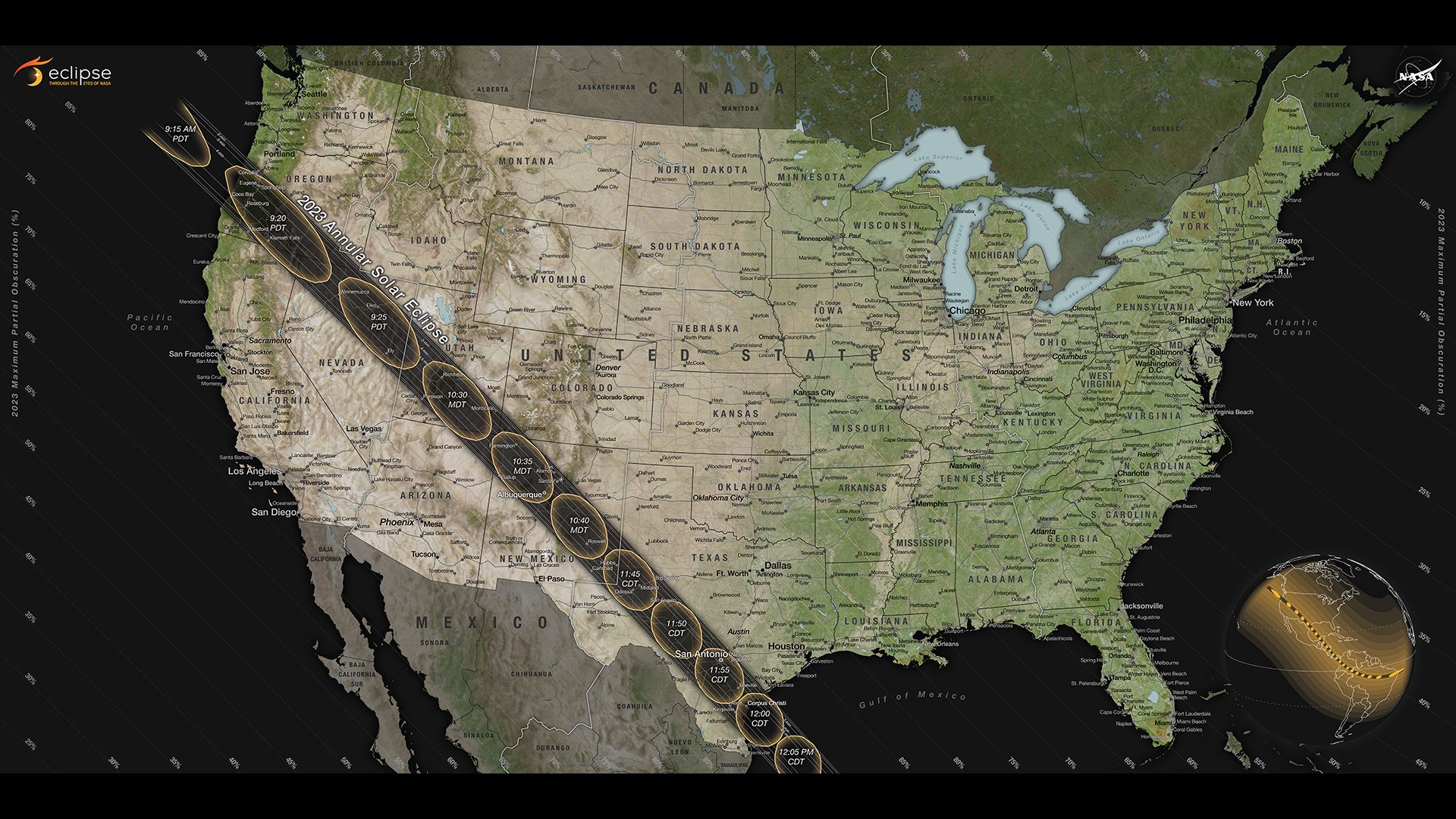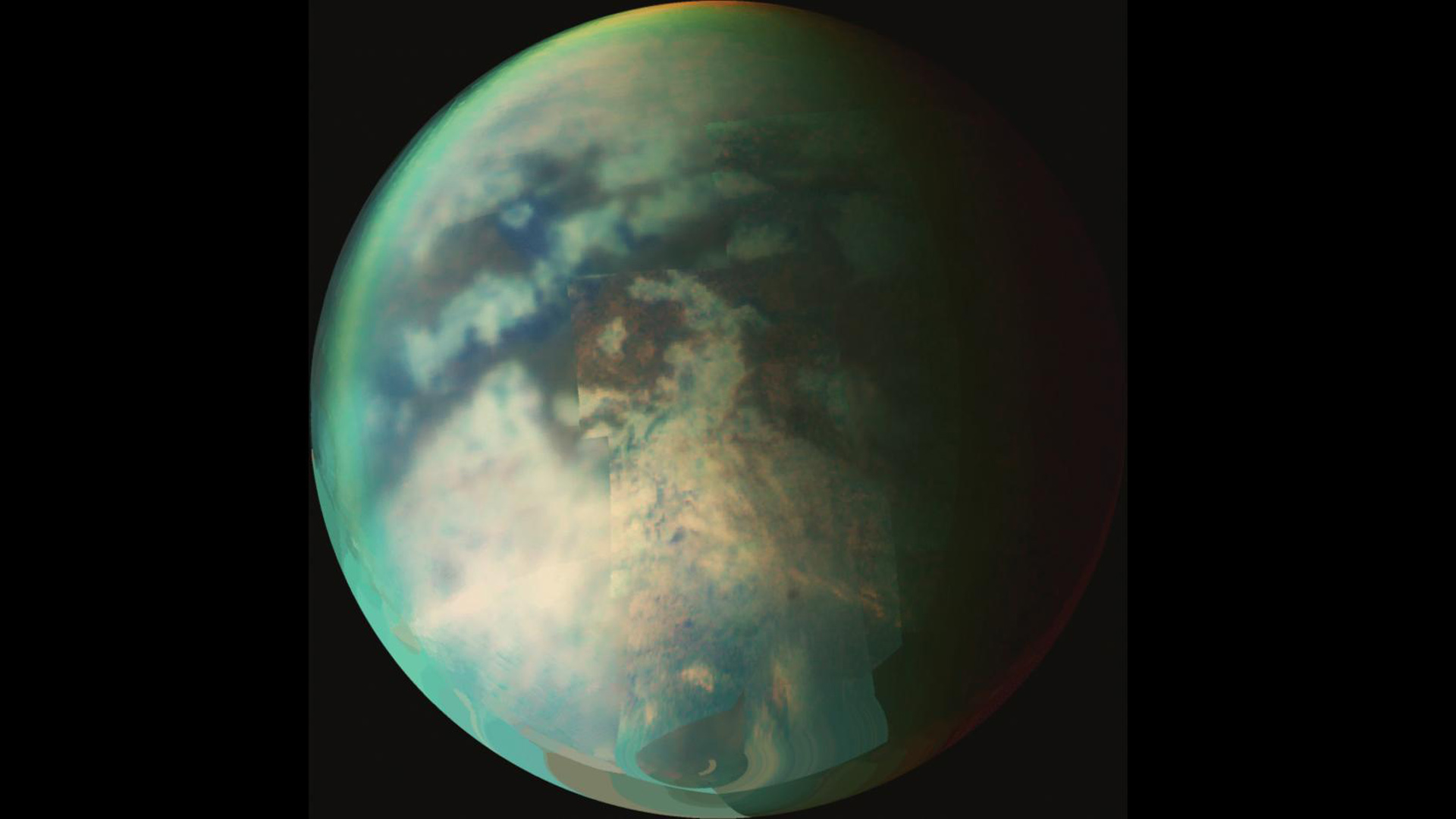Annular solar eclipse February 2026: Live updates
The next solar eclipse will be on Feb. 17, 2026.
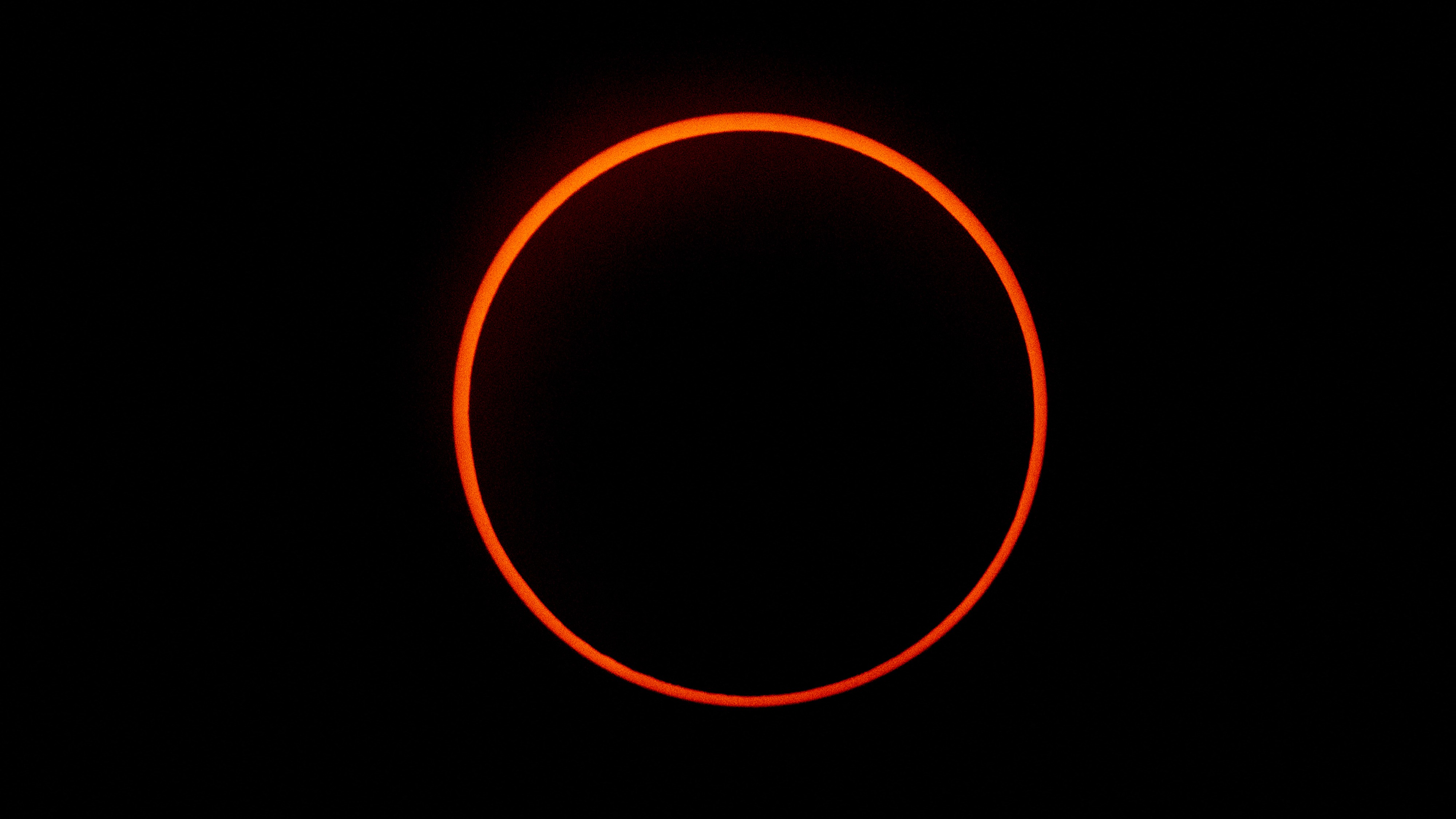
The next solar eclipse will be an annular solar eclipse on Feb. 17, 2026.
During an annular solar eclipse, the moon covers a majority of the sun, leaving a distinct ring of light, hence the nickname "ring of fire" eclipse.
When is the next solar eclipse?
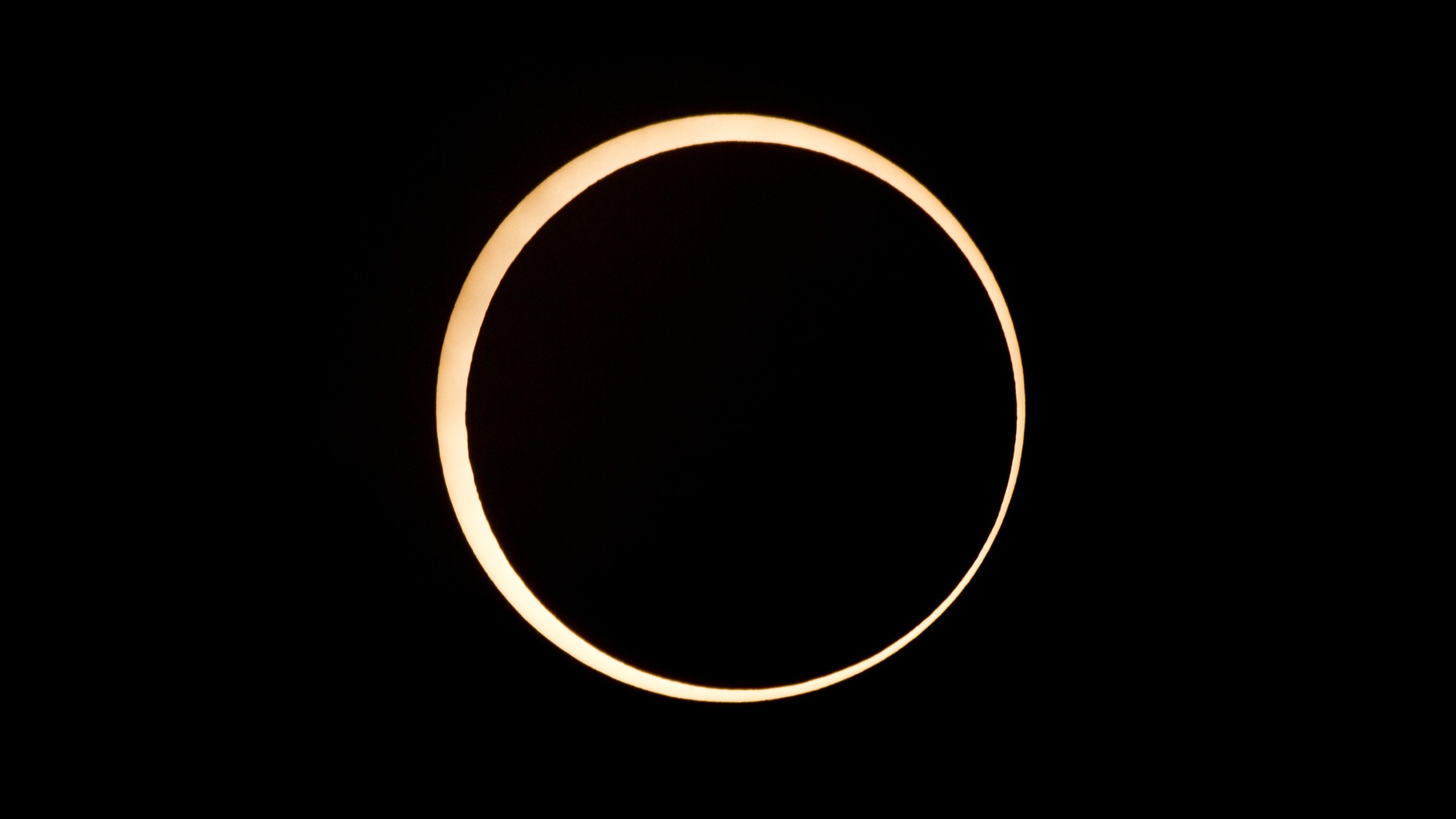
The next solar eclipse is an annular solar eclipse on Feb. 17, 2026.
The eclipse path for the Feb. 17, 2026, annular solar eclipse will be limited to a remote region of Antarctica, so the event will be seen by almost no humans.
Read more: Annular solar eclipse 2026: Everything you need to know about the 'ring of fire'
The partial eclipse draws to a close in New Zealand
That's a wrap from Dunedin, New Zealand! The September 2025 partial solar eclipse put on a magnificent show as the moon swept over the face of our sun, darkening the sky over a swathe of the Pacific Ocean to the delight of millions watching along online, and in person. Check out our wrap article to see the first images from the spectacular orbital ballet.
Read more: See the moon 'bite' the sun in 1st photos of September 2025 partial solar eclipse
The eclipse nears its end
The eclipse is drawing to a close as clouds gather for those in Dunedin, New Zealand, with just a tiny curve of the solar disk still hidden by the moon. The final shred of the eclipse will be visible from the Antarctic Peninsula at around 17:53 EDT (2153 GMT), where there will be far more penguins than people to witness the show. – Anthony Wood
A waning partial eclipse
The moon is now rolling left to right off the surface of the sun, as viewed from Dunedin, New Zealand, following the spectacular display of the eclipse maximum. Even the weather is co-operating, allowing for magnificent views of the tail end of this incredible display of orbital mechanics – Anthony Wood
Tiny crescents everywhere
Around the maximum, those in the path of the eclipse may notice the light shining through tiny gaps, such as the holes in a colander, take on a crescent shape to mirror the stellar scene unfolding above. – Anthony Wood
The maximum phase of the partial solar eclipse is here!
The eclipse has hit its maximum for those in New Zealand, with the lunar disk transforming the sun into a fiery upturned crescent in Earth's sky. The Dunedin Astronomical Society battled clouds and technical issues to bring us this image of the sun's disk seen during the live stream minutes after reaching the local maximum.
New Zealand and regions of Antarctica will witness some of the deepest eclipses during today's orbital alignment, with just 409,000 people in a position to see 70% of the sun's disk blocked during the maximum! – Anthony Wood
A deepening eclipse
The moon can be seen taking an ever larger "bite" out of the sun as the Dunedin Astronomical Society peek through the clouds in the runup to the eclipse maximum, when the greatest proportion of its surface will be occulted (or hidden) by the lunar disk from New Zealand. – Anthony Wood
First live view of the eclipse from New Zealand
We're getting our first views of the sun as it rises with its left side partially obscured by the silhouette of Earth's moon from the perspective of the city of Dunedin, New Zealand. The sun will ride low on the eastern horizon throughout the eclipse, which unfolds in the hours following dawn for those in the land of the long white cloud. – Anthony Wood
First contact: The September 2025 partial solar eclipse is upon us!
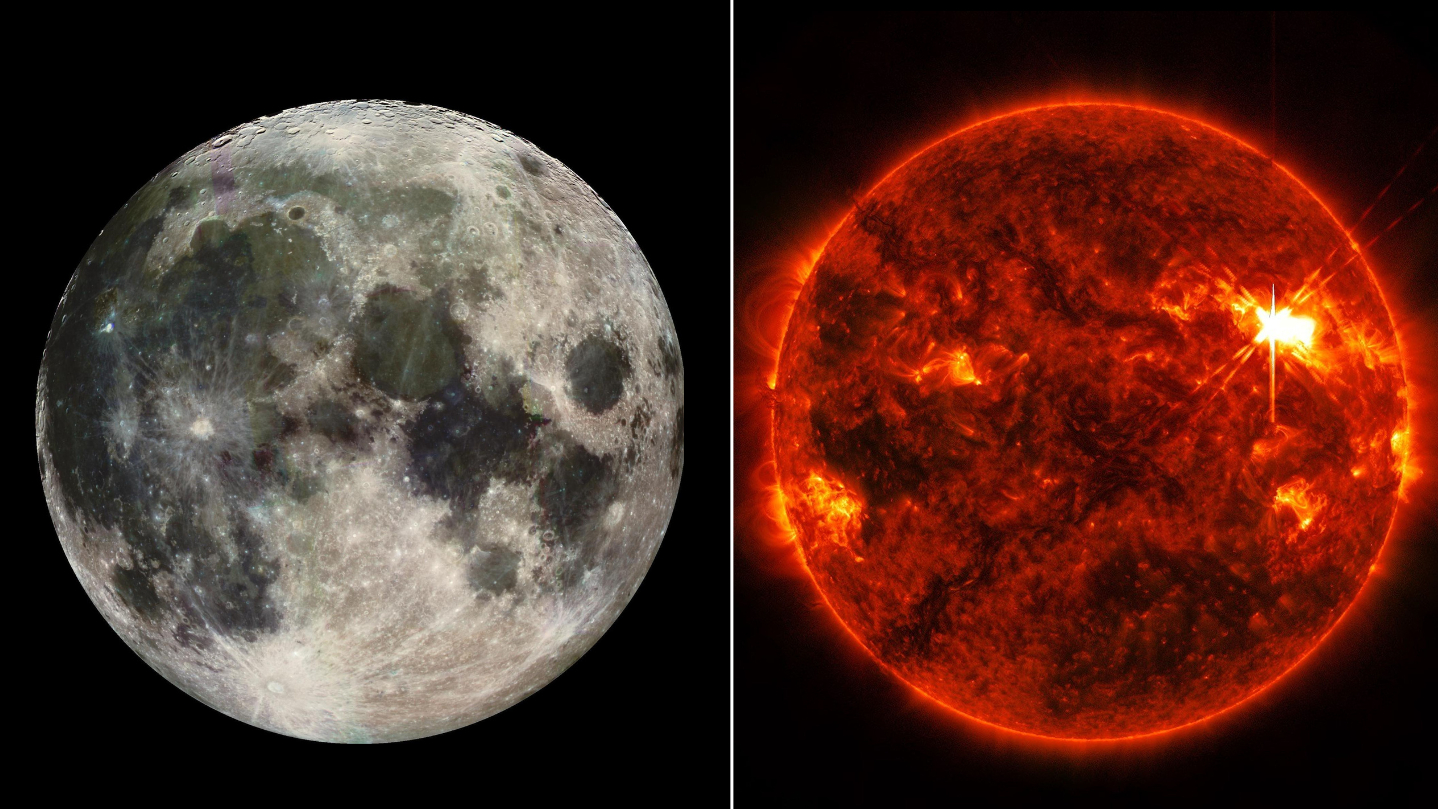
The partial eclipse has begun! Soon, viewers located in Pacific Ocean islands like Samoa, Fiji and Tonga will see the moon take its first "bite" out of the solar disk, as it slips silently between Earth and the sun during September's new moon phase.
Be sure to follow the event live with Time and Date's livestream, which will be hosted right here on Space.com from 2 p.m. EDT (1800 GMT) on Sept. 21. The stream will feature real-time views as the sun rises partially eclipsed over New Zealand's eastern horizon through to the eclipse maximum, before tracking the moon's progress as it slips inexorably from the solar disk. Along the way, you can expect expert commentary and insights from astrophysicist Graham Jones and journalist Anne Buckle. – Anthony Wood
Today's the day for a partial solar eclipse! Here's what you need to know
Hello, space fans! Today, Earth gets a celestial treat — a partial solar eclipse where the moon takes a dramatic "bite" out of the sun!
We'll be streaming the whole event live right here on Space.com, starting at 2 p.m. EDT (1800 GMT) courtesy of the talented team at Time and Date.
Our skywatching writer, Anthony Wood, will be sharing real-time updates and insights in this live blog as the eclipse unfolds.
Read more: Don't miss the partial solar eclipse today! Where, when and how to see it
We're just one day away! Here's how to watch the eclipse live online Sept. 21
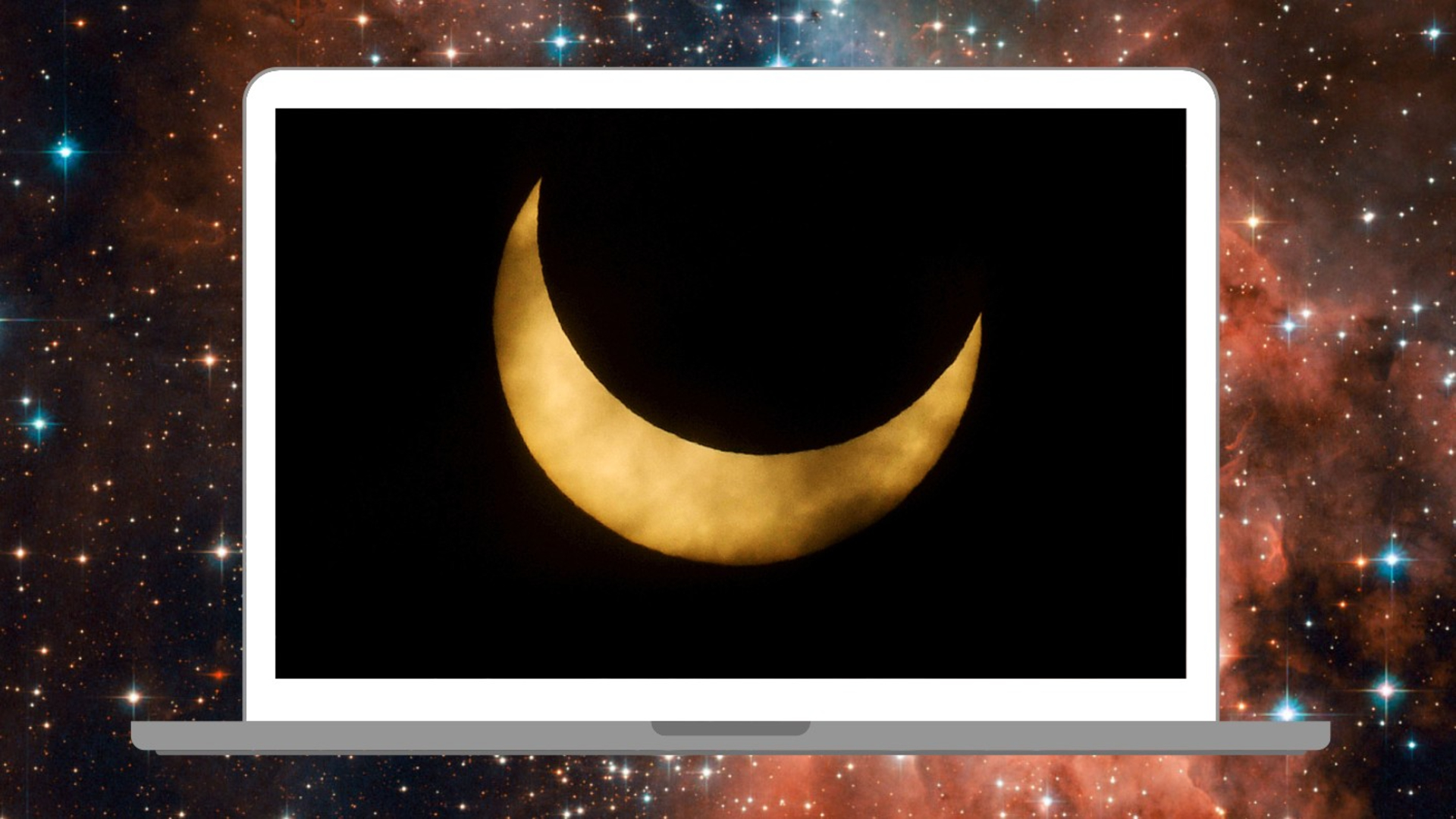
Fewer than 17 million people — just 0.2% of the world's population — will see the solar eclipse first hand from island nations including New Zealand, Samoa and Tonga. The rest of us can follow the solar spectacle from home via the livestream hosted here on Space.com.
Read more: How to watch the Sept. 21 partial solar eclipse live online for free
Earth will see a deep partial solar eclipse on Sept. 21: But when will it happen?
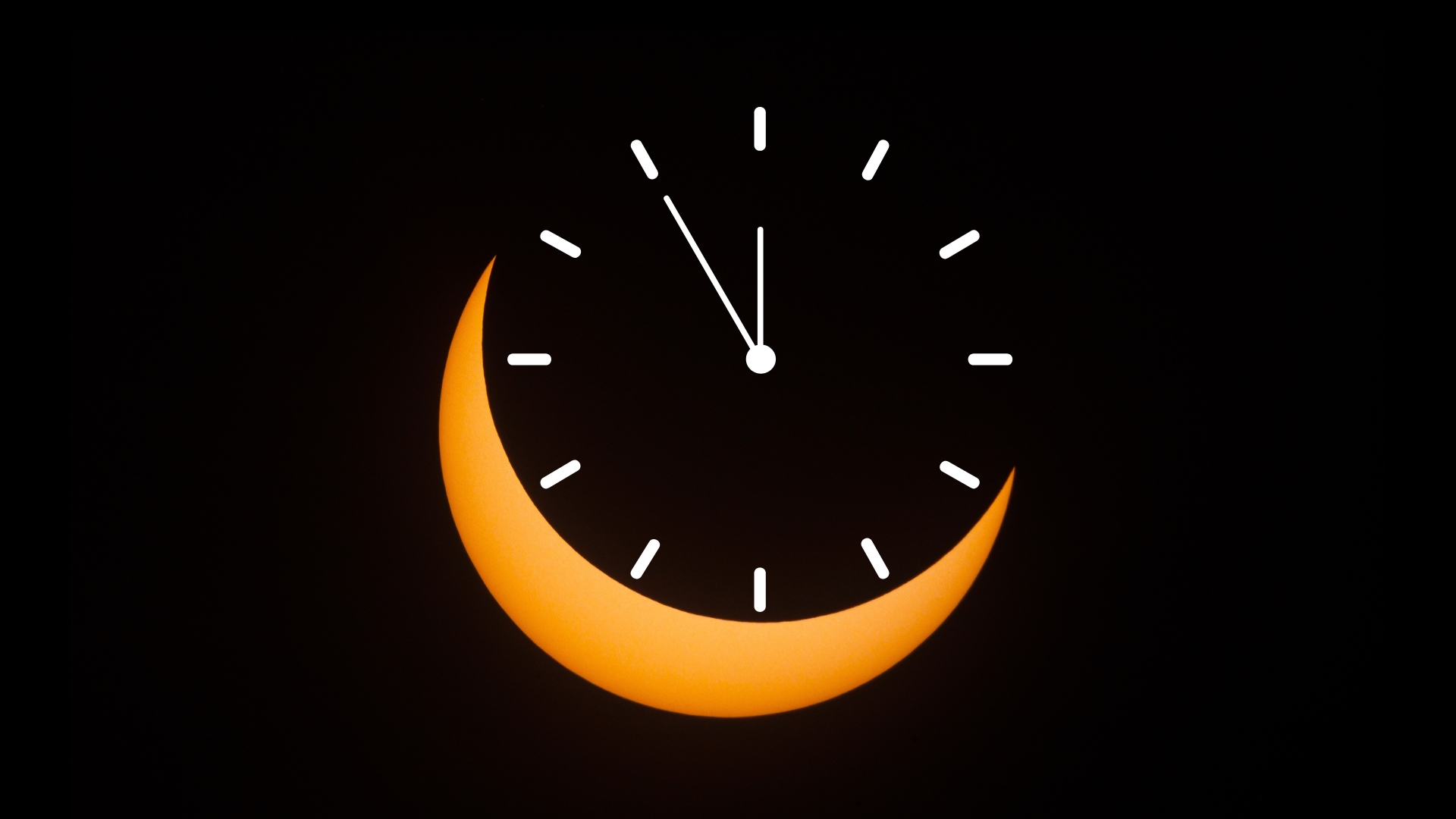
The moon will appear to take a "bite" out of the sun during a deep partial solar eclipse on Sept. 21. But who can watch it? And when?
Read more: What time is the partial solar eclipse on Sept. 21?
What to expect during the partial solar eclipse on Sept. 21
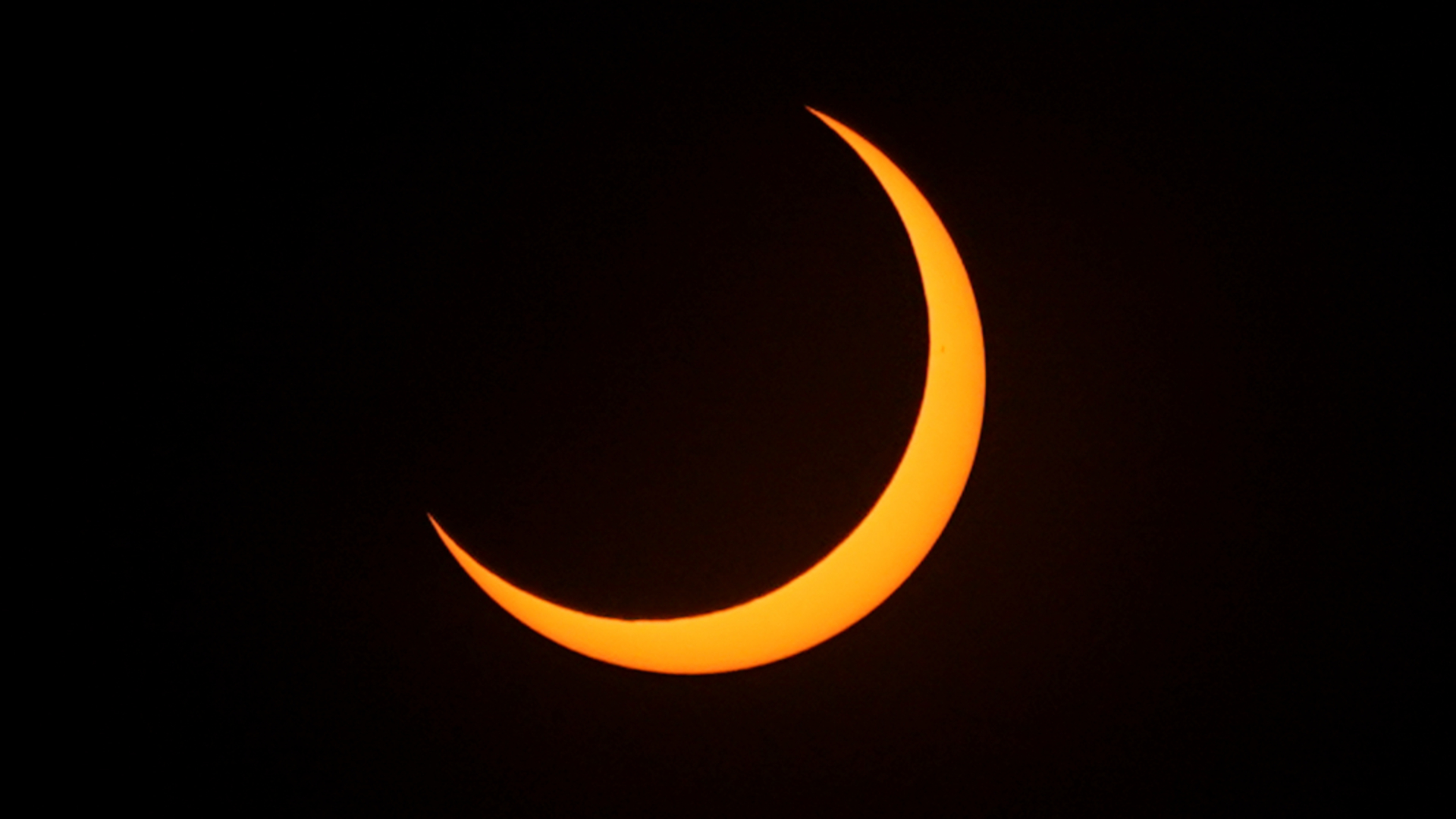
On Sept. 21-22, a partial solar eclipse will see the moon sweep over the sun's disk, blocking its light over a swathe of the southern hemisphere! Here's what you can expect as the solar system alignment unfolds.
Read more: What to expect from each stage of the partial solar eclipse on Sept. 21
Here's where you can see the partial solar eclipse on Sept. 21
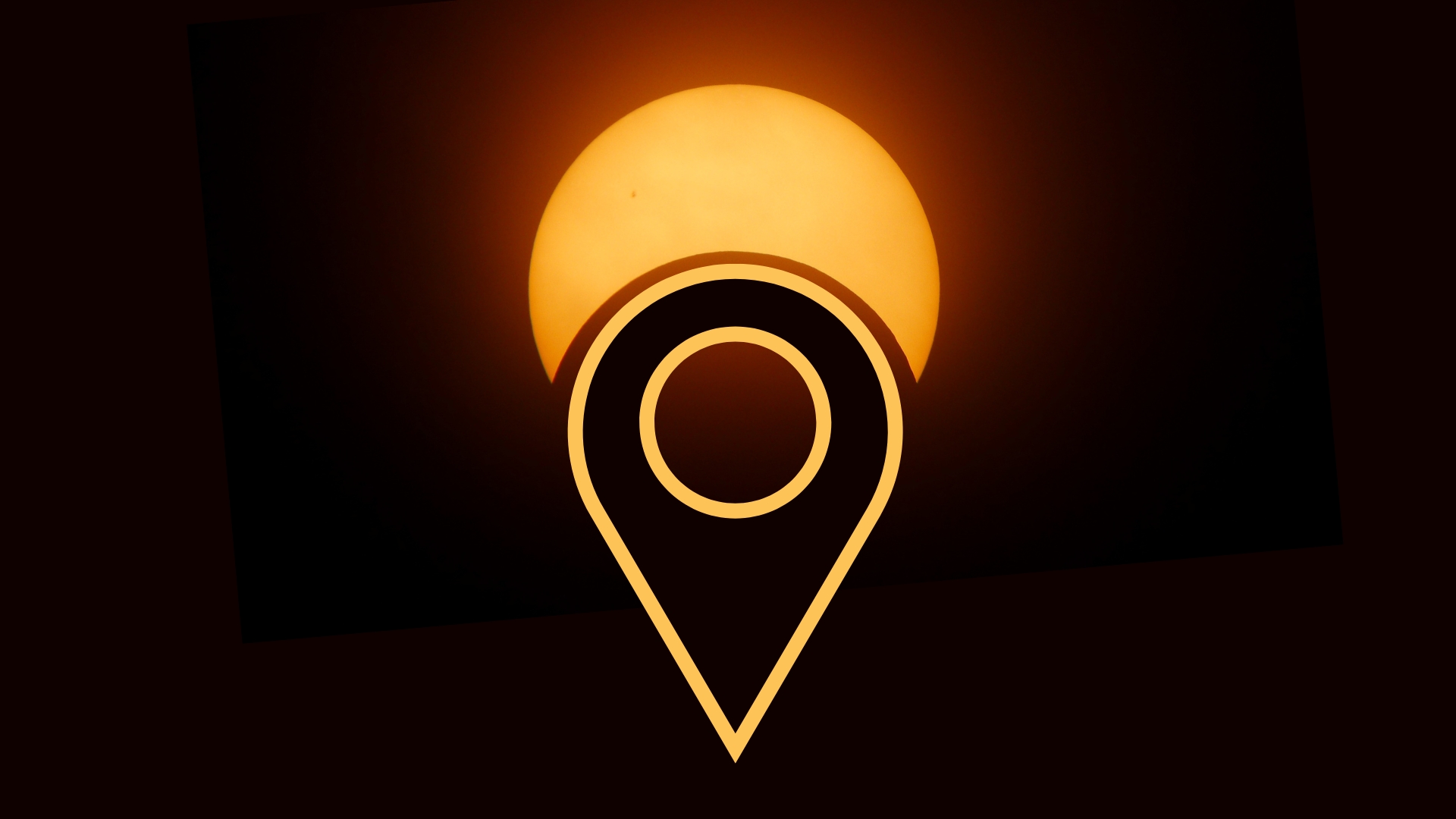
On Sept. 21, the 'equinox eclipse' will bring up to 86% coverage across New Zealand, Antarctica and parts of the South Pacific.
We will also be livestreaming the eclipse here on Space.com. Details will be released closer to the time.
Read more: Where will the partial solar eclipse be visible on Sept. 21?
One month to go until the partial solar eclipse!
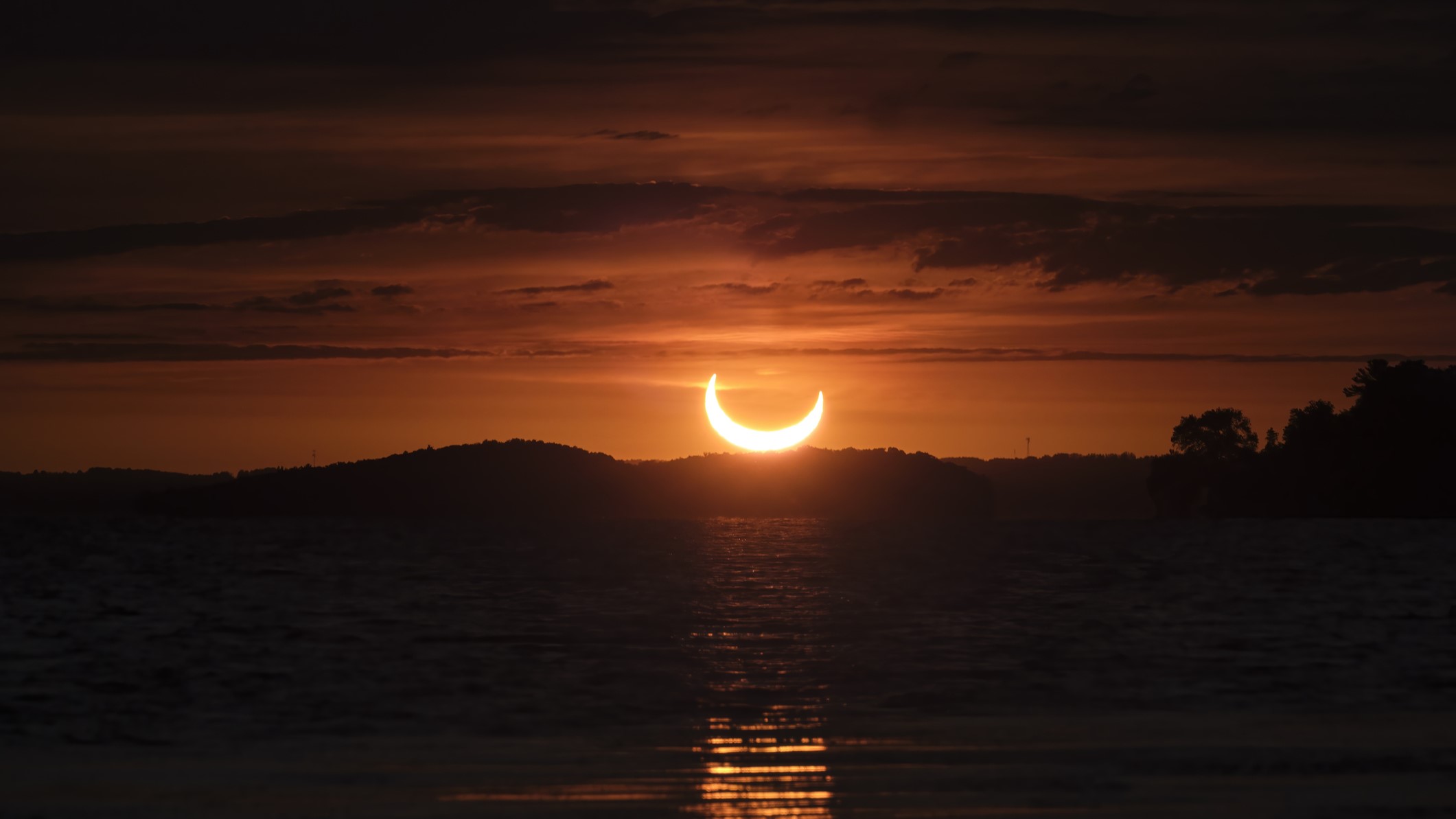
On Sunday, Sept. 21, the moon will chew a noticeable "bite" out of the sun; this partial solar eclipse will be visible across parts of the Southern Hemisphere and streamed live for skywatchers worldwide.
It's the second and final solar eclipse of 2025, arriving just before the September equinox, a date on which day and night are roughly the same length in both the Northern and Southern Hemispheres.
Read more: A partial solar eclipse is coming: 1 month until the moon takes a 'bite' out of the sun
It's not too early to start planning your 2027 "Eclipse of the Century"
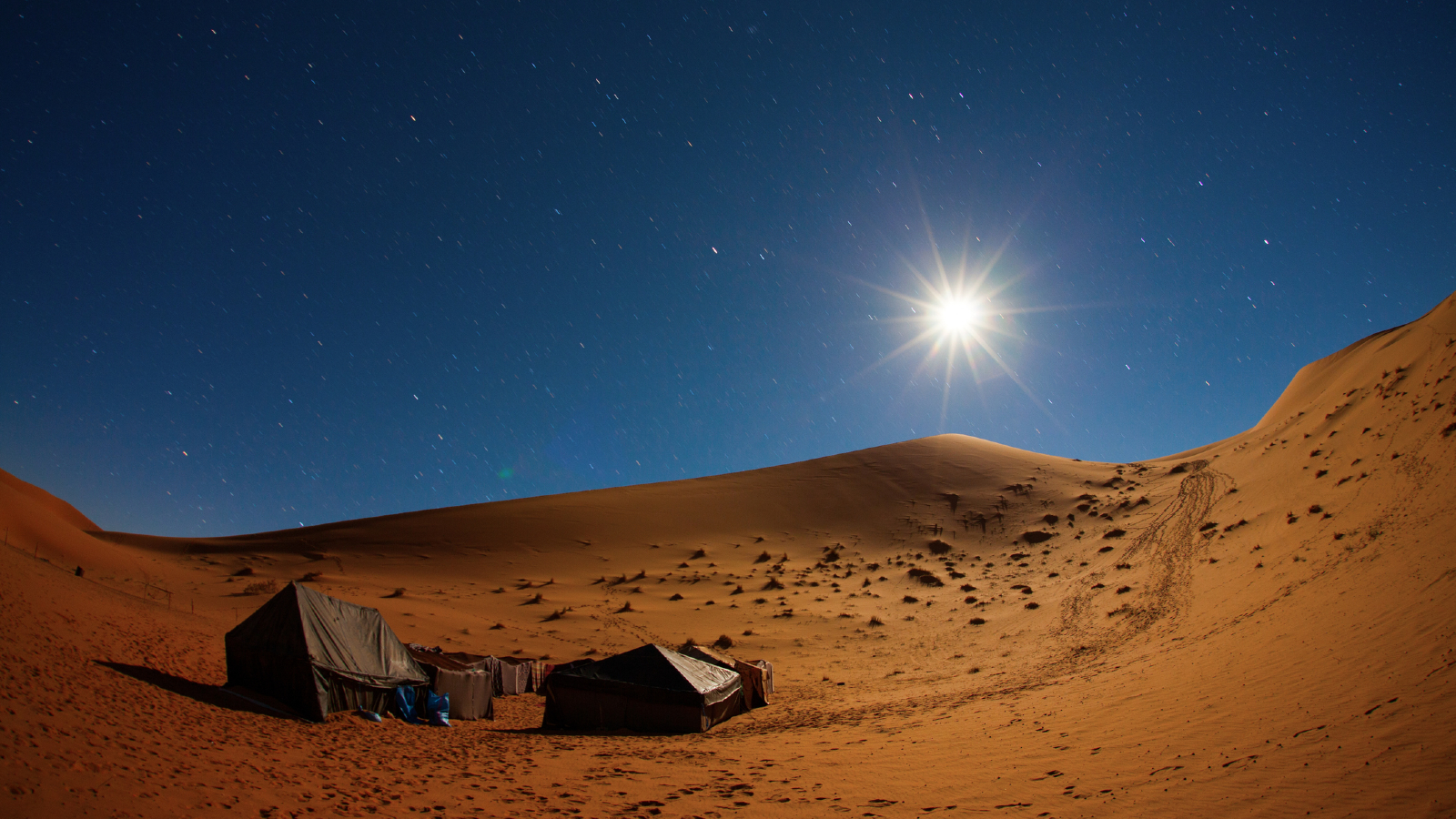
If you want to experience the longest total solar eclipse for the next 87 years, make plans for Aug. 2, 2027. To enjoy a whopping 6 minutes, 21 seconds of totality, you must go to Luxor, Egypt. However, the closeness of the new moon to Earth during the eclipse means it will be possible to experience a long totality from areas of Spain, North Africa and the Arabian Peninsula.
You can even combine the "eclipse of the century" with "Star Wars" film sets, a recently discovered "lost city" of ancient Egypt, the Rock of Gibraltar, and Andalusia's most splendid Moorish palaces.
Here are 10 unique experiences to consider for the 2027 total solar eclipse.
When is the next solar eclipse?
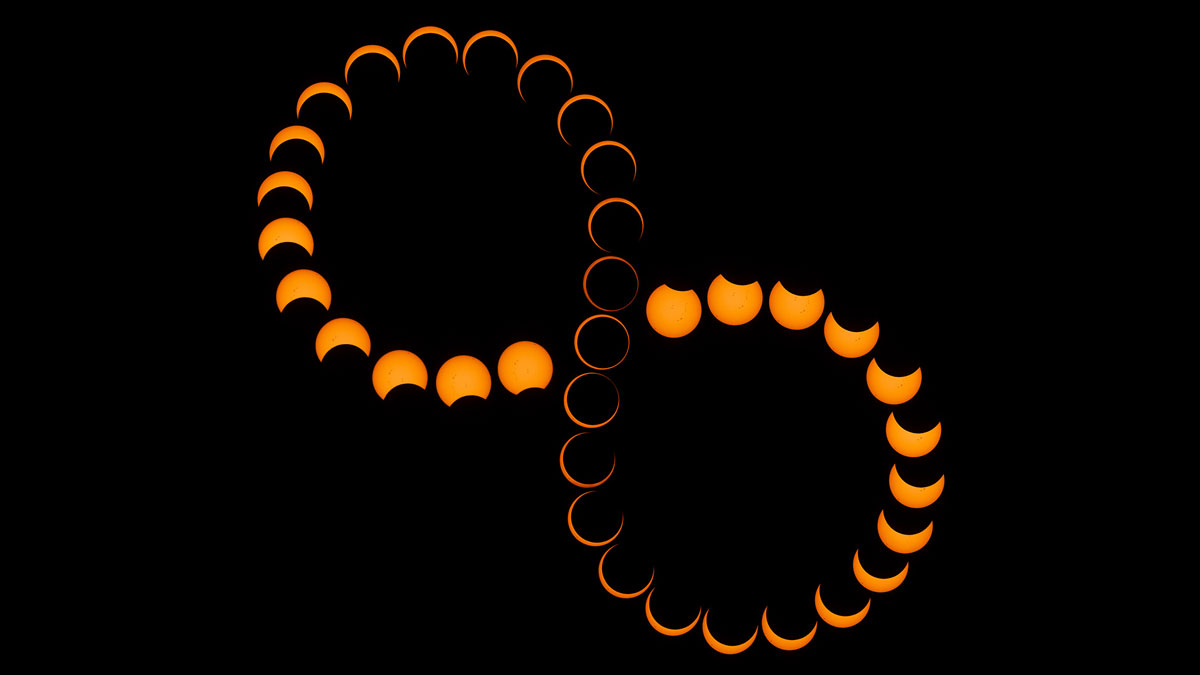
The next solar eclipse will be a partial on Sept. 21, 2025, though not many people will be well placed to see it.
The maximum 80% partial eclipse will be visible from the Southern Ocean midway between New Zealand and a largely remote part of Antarctica, with the more frequently visited Antarctica Peninsula experiencing only a 12% partial eclipse, shortly before sunset.
Learn more about the next eclipse with our comprehensive partial solar eclipse September 2025 guide.
Solar eclipse meets ancient wonder
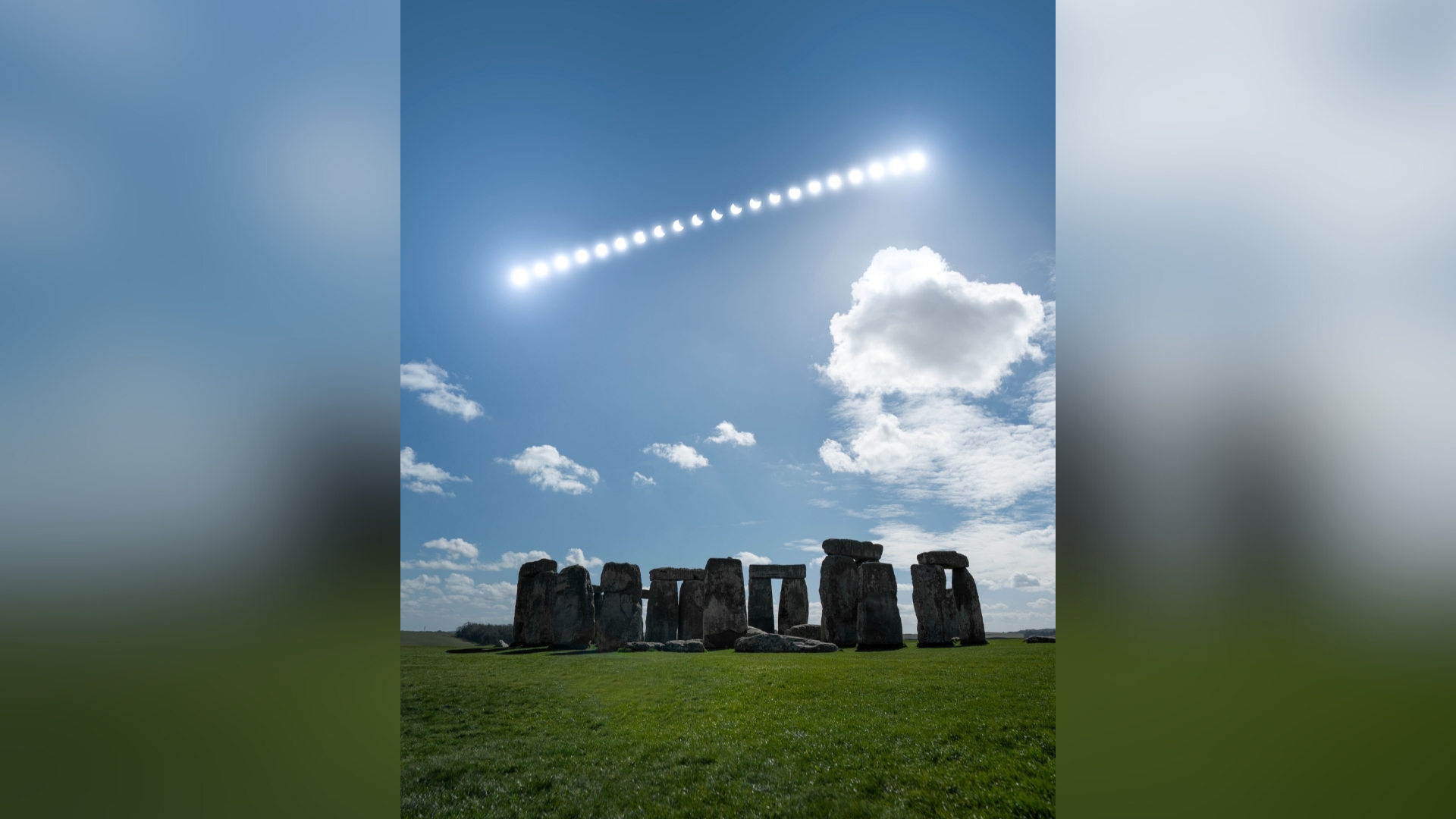
Astrophotographer Josh Dury sent us some incredible partial solar eclipse photos he captured on March 29.
"Capturing the partial solar eclipse from the iconic landmark at Stonehenge was awe-inspiring in more ways than one' Dury told Space.com.
Read more: Solar eclipse shines over Stonehenge in stunning photo from Astrophotographer Josh Dury
And that's a wrap! Until next time ...
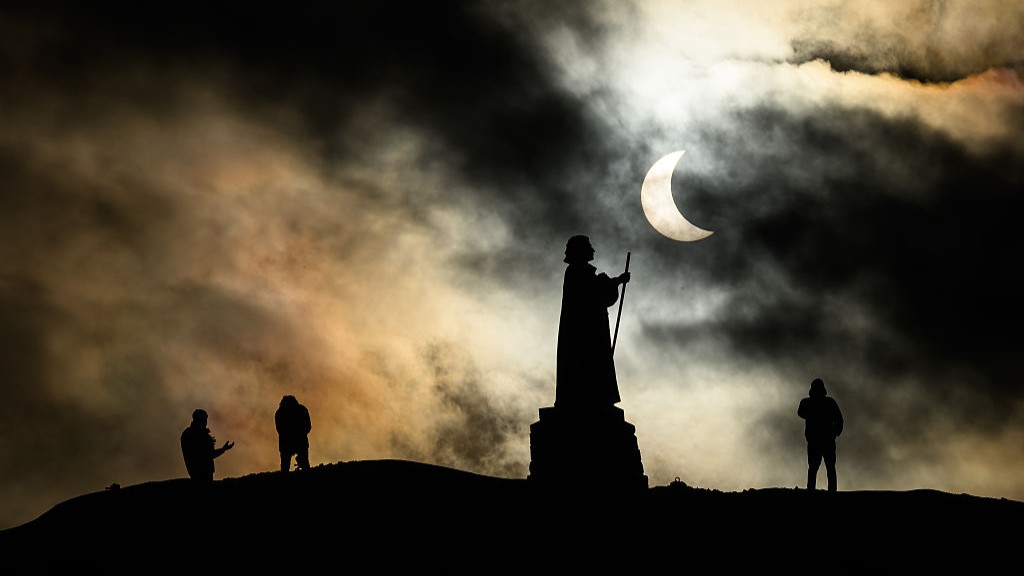
Wow! The eclipse put on a fantastic show for those lucky enough to be in the right place at the right time. Read our partial eclipse wrap story here and enjoy some marvelous eclipse photos!
We hope you've enjoyed all the solar eclipse coverage and can't wait for the next partial solar eclipse on Sept. 21, 2025. But until then, we'll keep the live blog running with plenty of solar eclipse content to keep you occupied.
Clear skies,
Daisy
March 2025 solar eclipse in home stretch
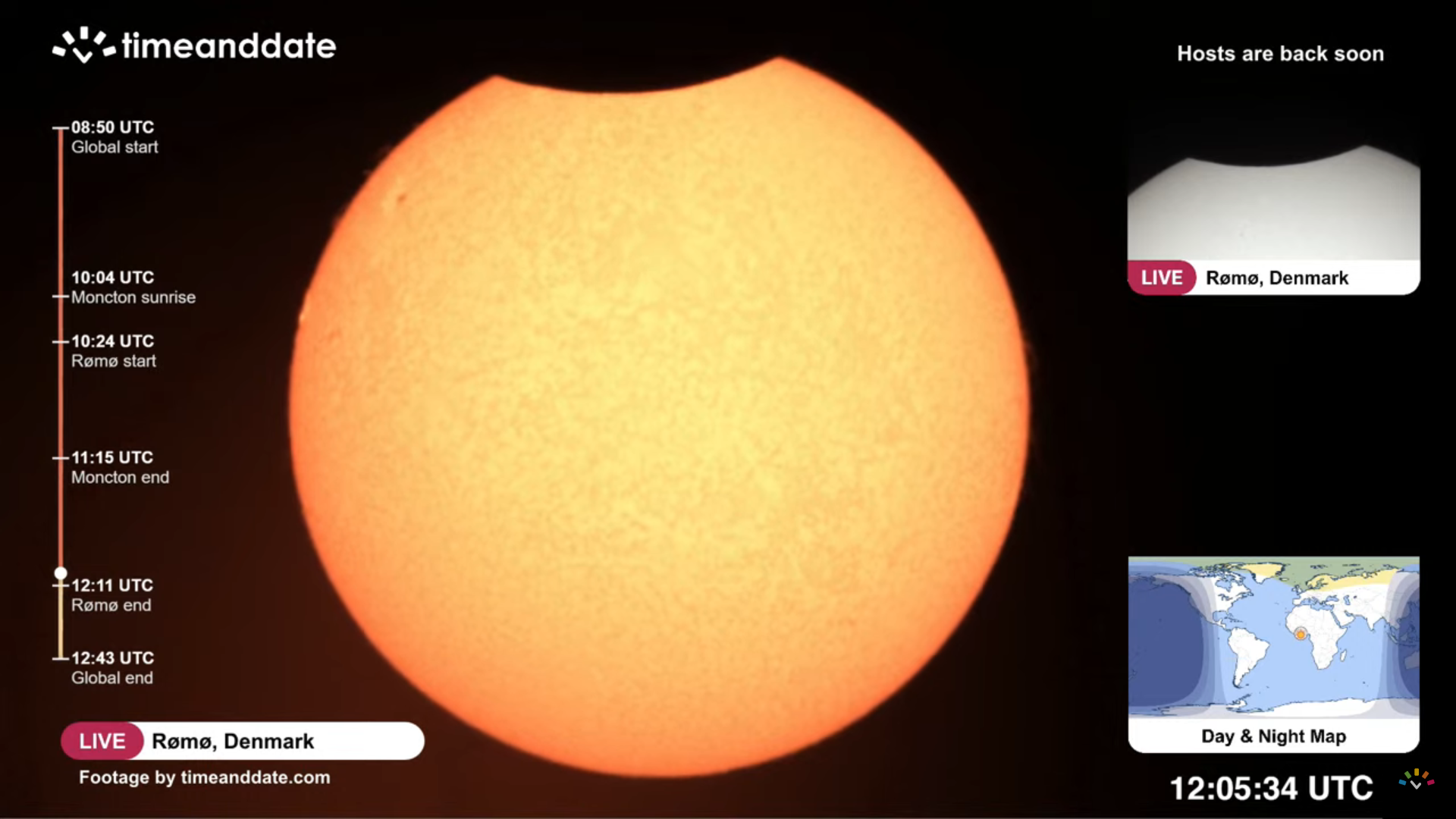
The partial solar eclipse of March 29 is in its homestretch as it nears its final stage, when the trailing edge (or limb) of the moon leaves the sun's disk.
Above is a view from Romo, Denmark, provided by TimeandDate.com, which has ended its livestream.
Space.com's wrap story on the eclipse will be posted shortly, with our own Daisy Dobrijevic publishing it within the hour. She'll be the next person to post here.
Thank you all for joining us in this first solar eclipse of 2025!
-- Tariq Malik, Space.com Editor-in-Chief.
No solar eclipse joy for New Brunswick
We've been showing a lot of photos and reactions from Space.com's UK team, but contributor Jamie Carter in New Brunswick, Canada had a different experience. No partial solar eclipse for him and other skywatchers. Here's Jamie's post-eclipse update
From Jamie Carter
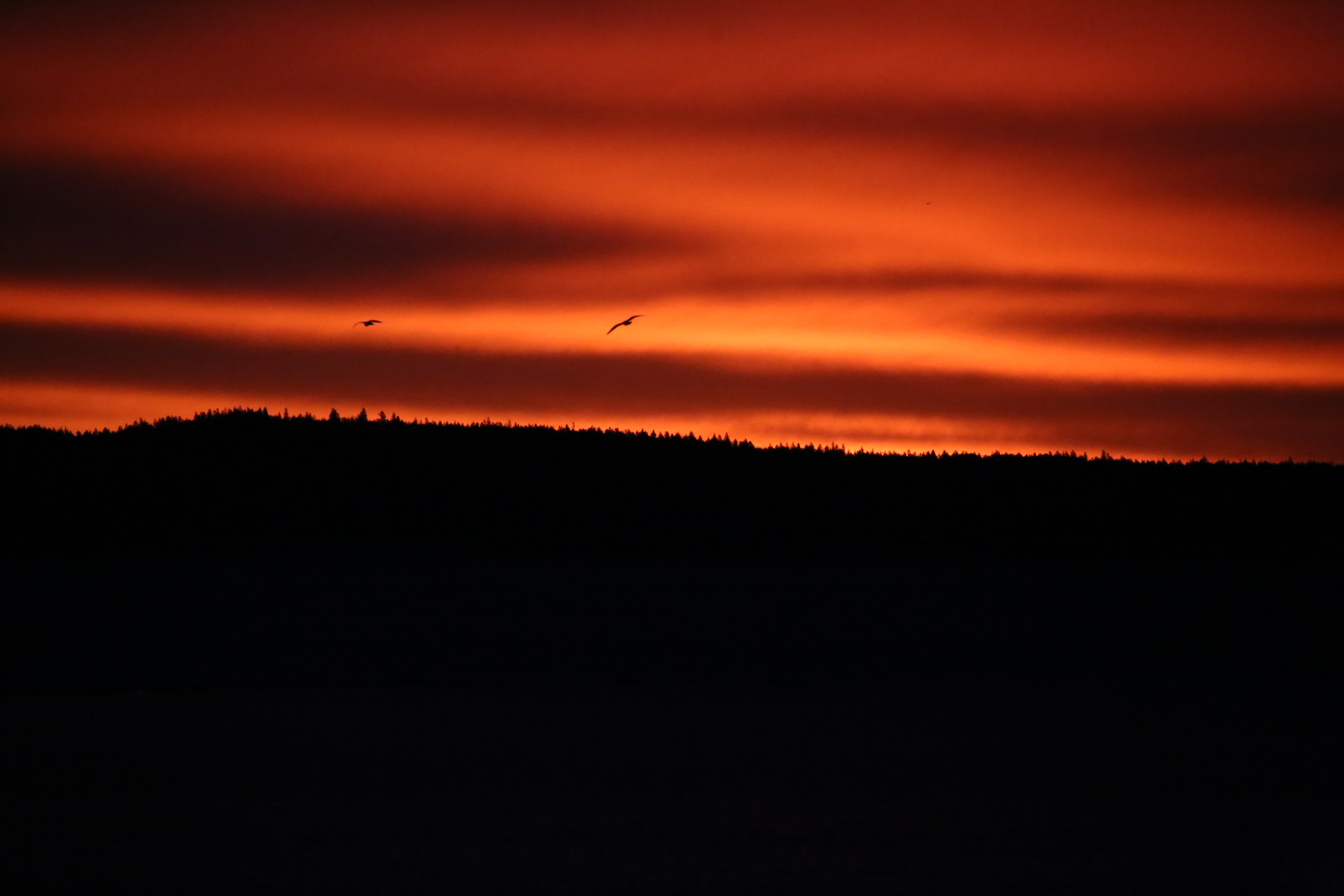
Skunked! A huge cloud bank lay across Saint Andrews, New Brunswick like a mushroom, with gaps all along the horizon. We set up along the Bay of Fundy and waited for the crescent sun to appear through think cloud along the horizon.
The trees on the other side of Passamaquoddy Bay were glowing with the first rays of sun and then … nothing! It was clear just a few degrees to the left of the sunset point.

The clouds parted to reveal a gap along the horizon just before the eclipse … and then it closed up again.
"It was so close, you could just see the trees lighting up like little horns, and the sky was lighting and I thought we were going to see it burn through the cloud," said astronomy author and photographer Alan Dyer. "And then it just faded out. It would have been so neat to see.”
It looks like the place to be in this region was Moncton, about a two-hour drive to the east.
"Once again, a last-minute chase was what was necessary to get it, which is so often the case where even a few miles can make the difference," said Dyer. "And look how close we were."
Carter's wife Gill Carter in Cardiff back in the United Kingdomw was able to see the eclipse. She sent him this photo to make it known.
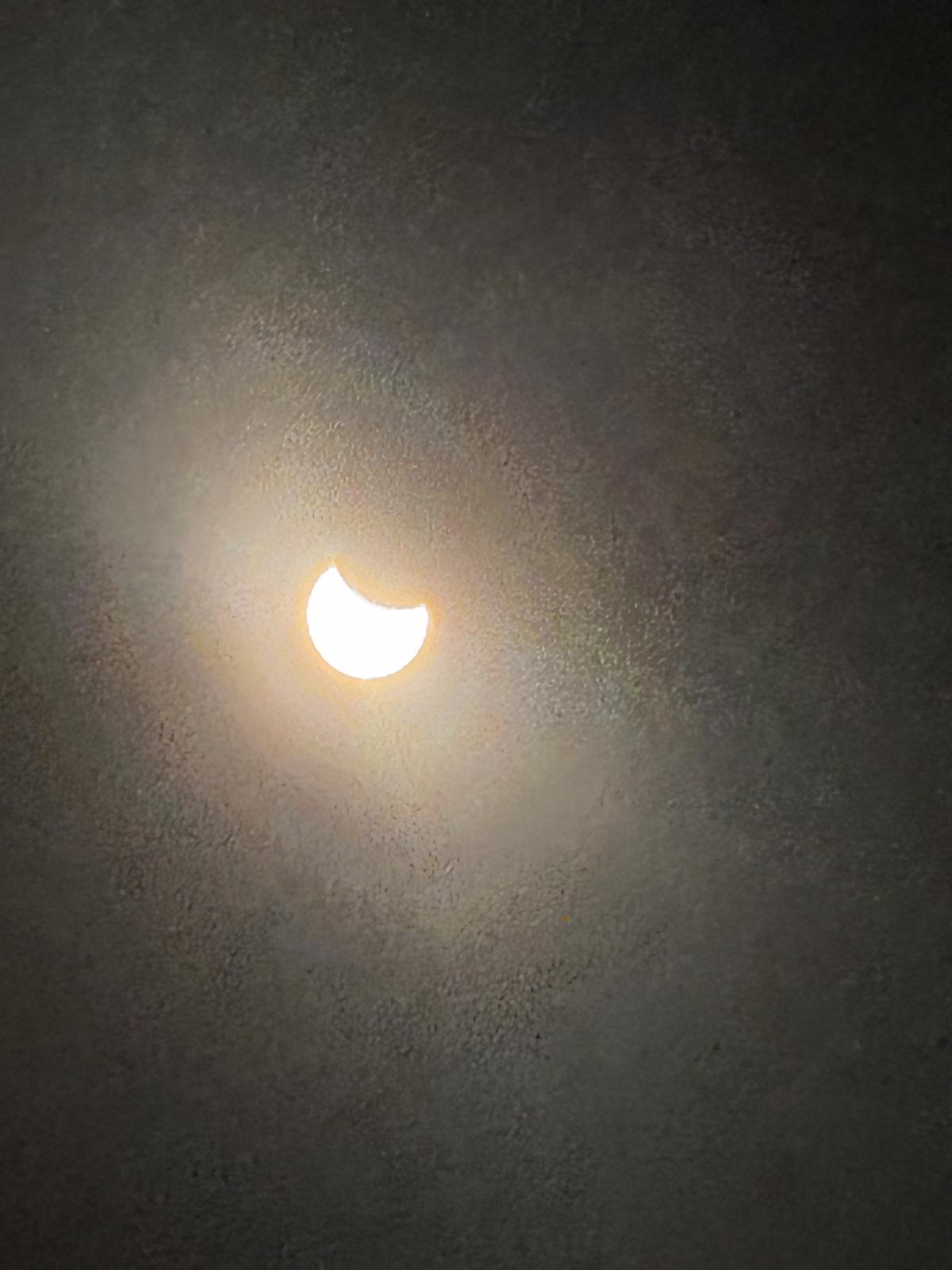
And Jamie Carter's sister Louise Briggs managed not only to see the eclipse, but turn it into an experiment. She used a colander to project dozens of tiny partial solar eclipses onto paper.

Sunspots visible during solar eclipse
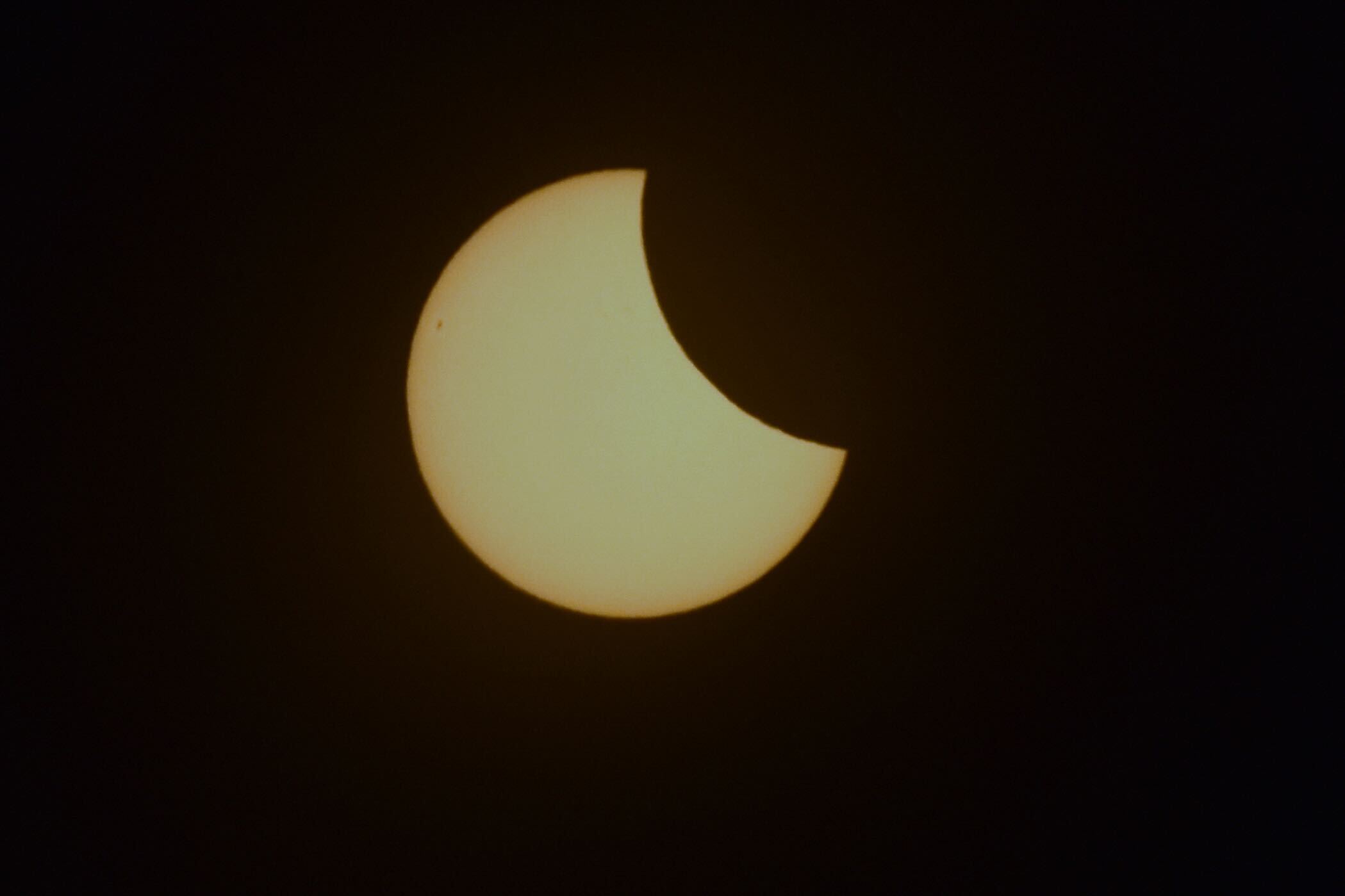
The partial solar eclipse has reached its maximum stage over Nottingham, U.K., where Space.com's Daisy Dobrijevic is observing with friends.
"Minutes away from maximum eclipse! We’ve spotted a sunspot in the upper left corner!" Dobrijevic wrote.

Meanwhile, at Stonehenge, the clouds in the sky slipped away just in time to offer great views of the eclipse over the ancient monument.
"Look how the skies have cleared up," astrophotographe Josh Dury said in a video update. "So lucky from England to have some of the best clear skies for this event."
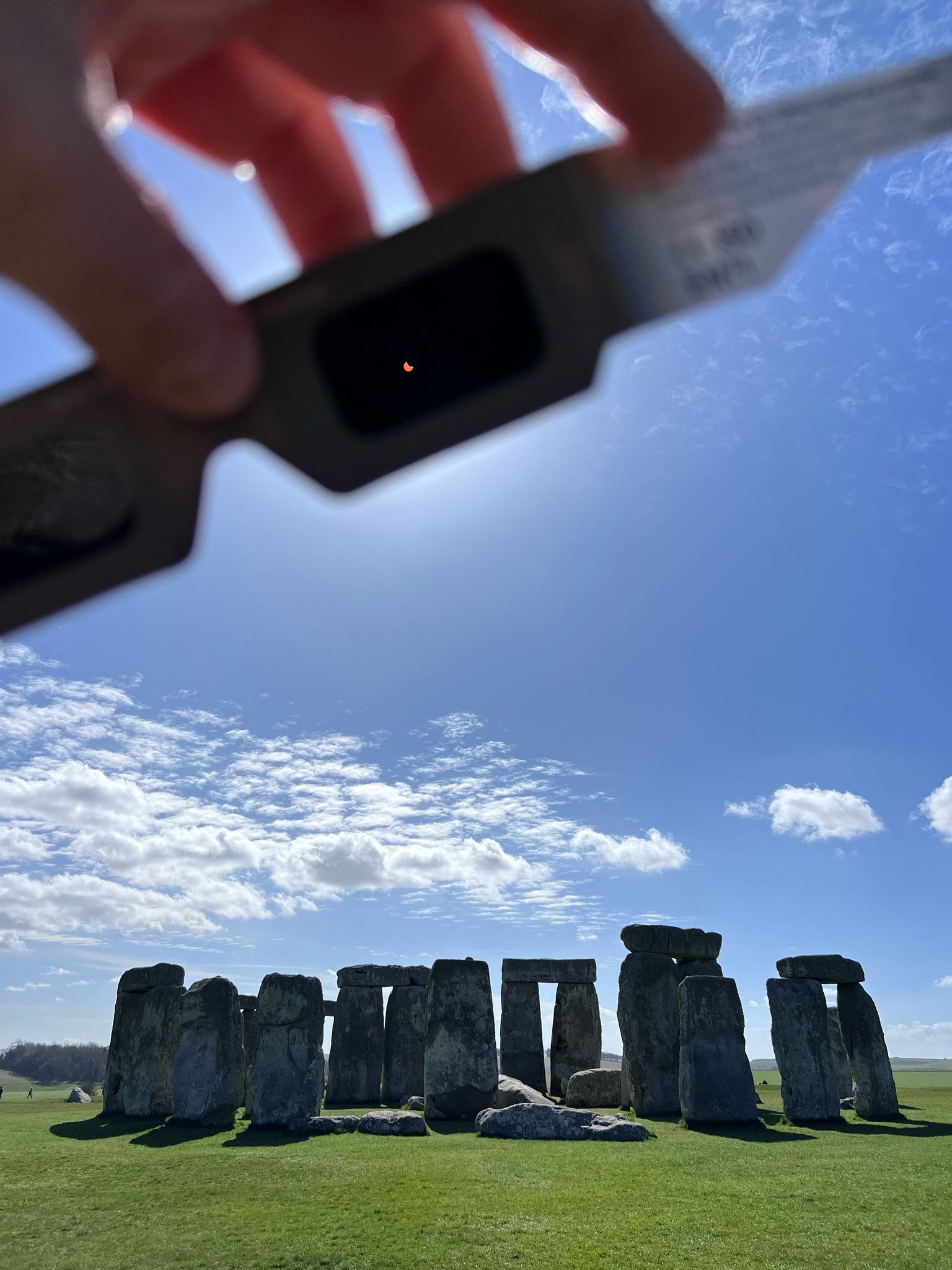
And now, over Romo, Denmark, here's a stunning view of near peak eclipse from TimeandDate.com.
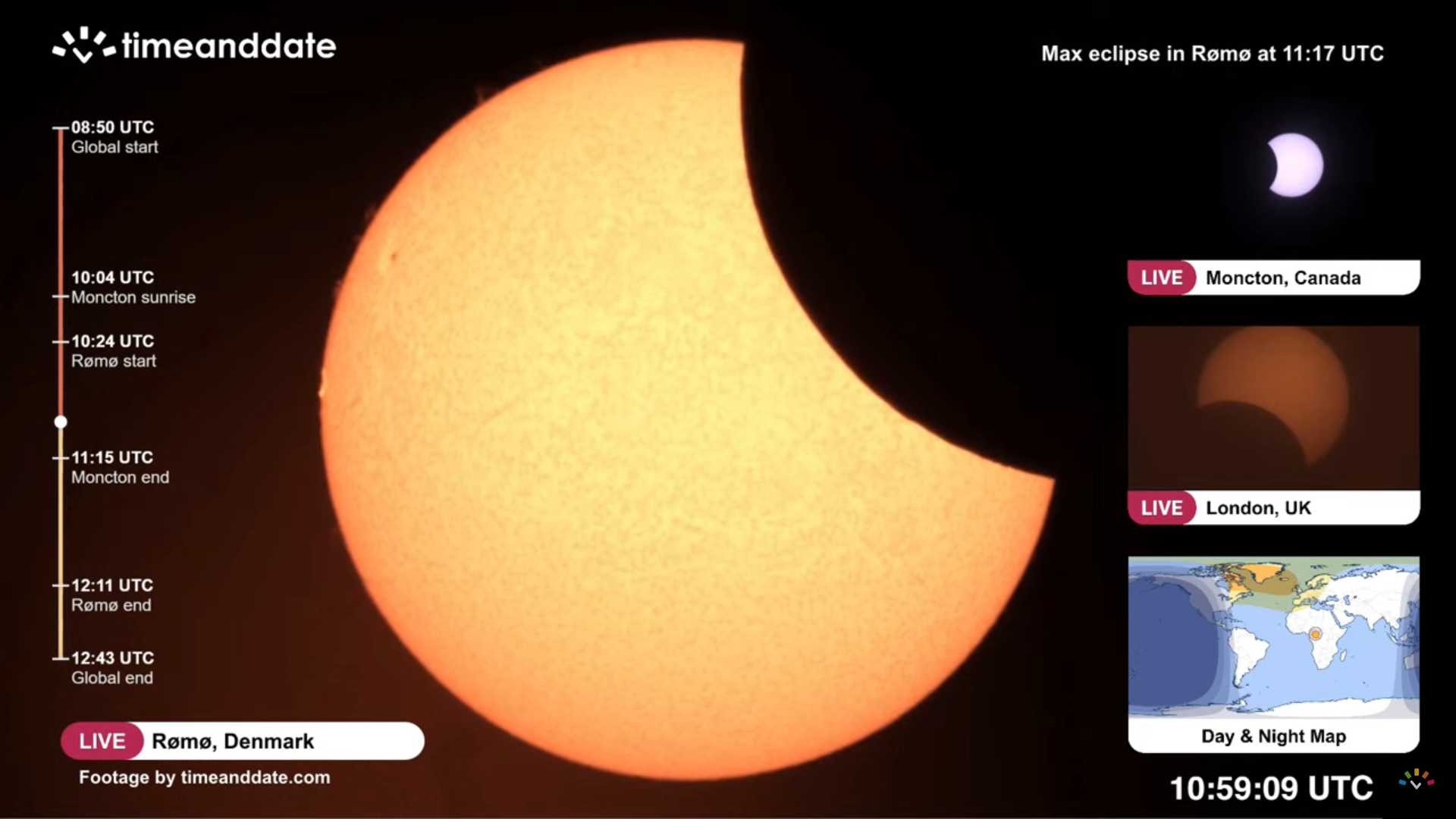
Space.com's U.K. solar eclipse views
As today's partial solar eclipse continues, we're getting reports from the Space.com team in the United Kingdom.
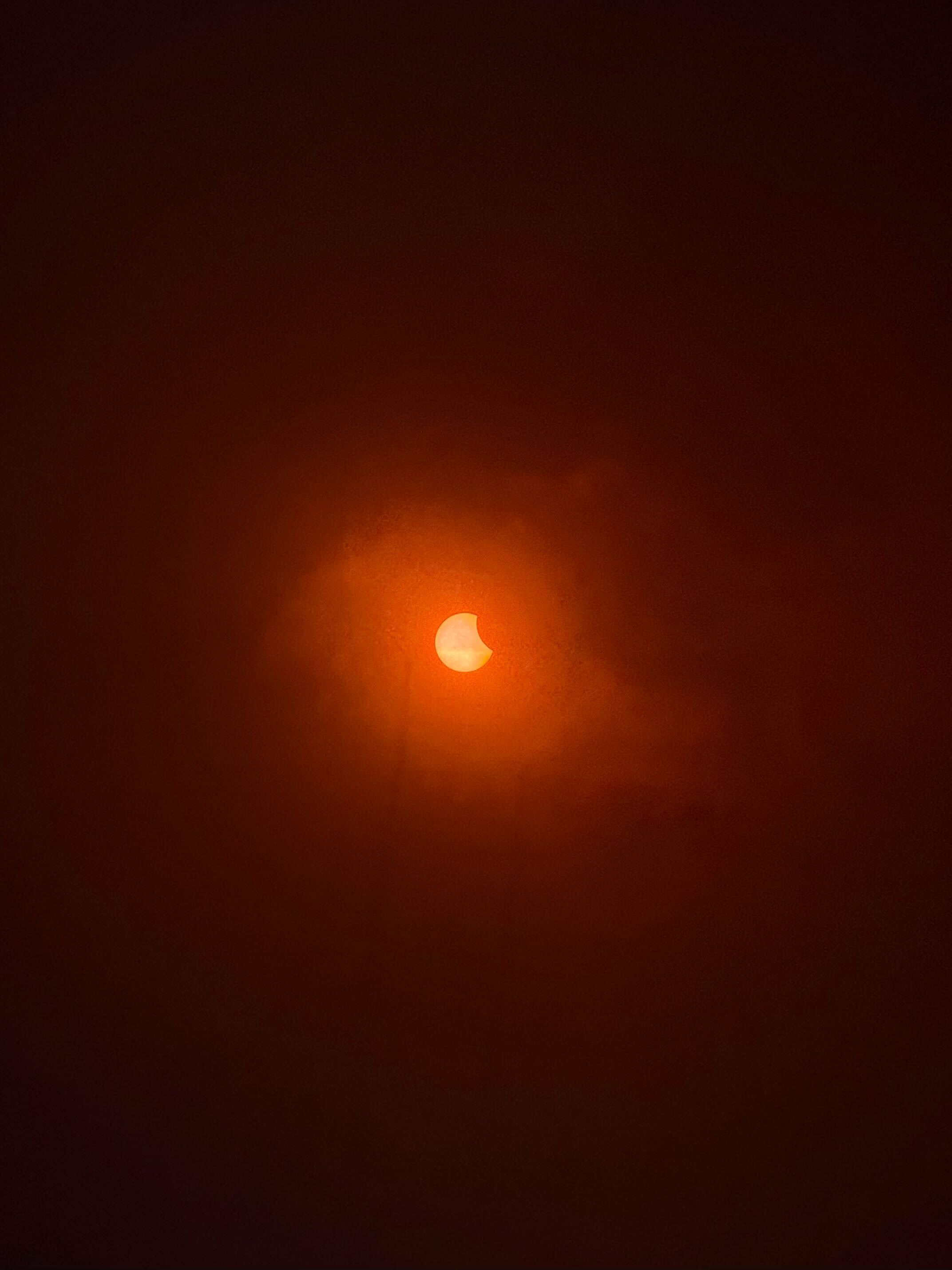
"Watching the partial solar eclipse from my friends allotment in sunny Nottingham, UK!" Space.com editor Daisy Dobrijevic said from her observing site. "The moon is starting to take a big bite out of the sun."
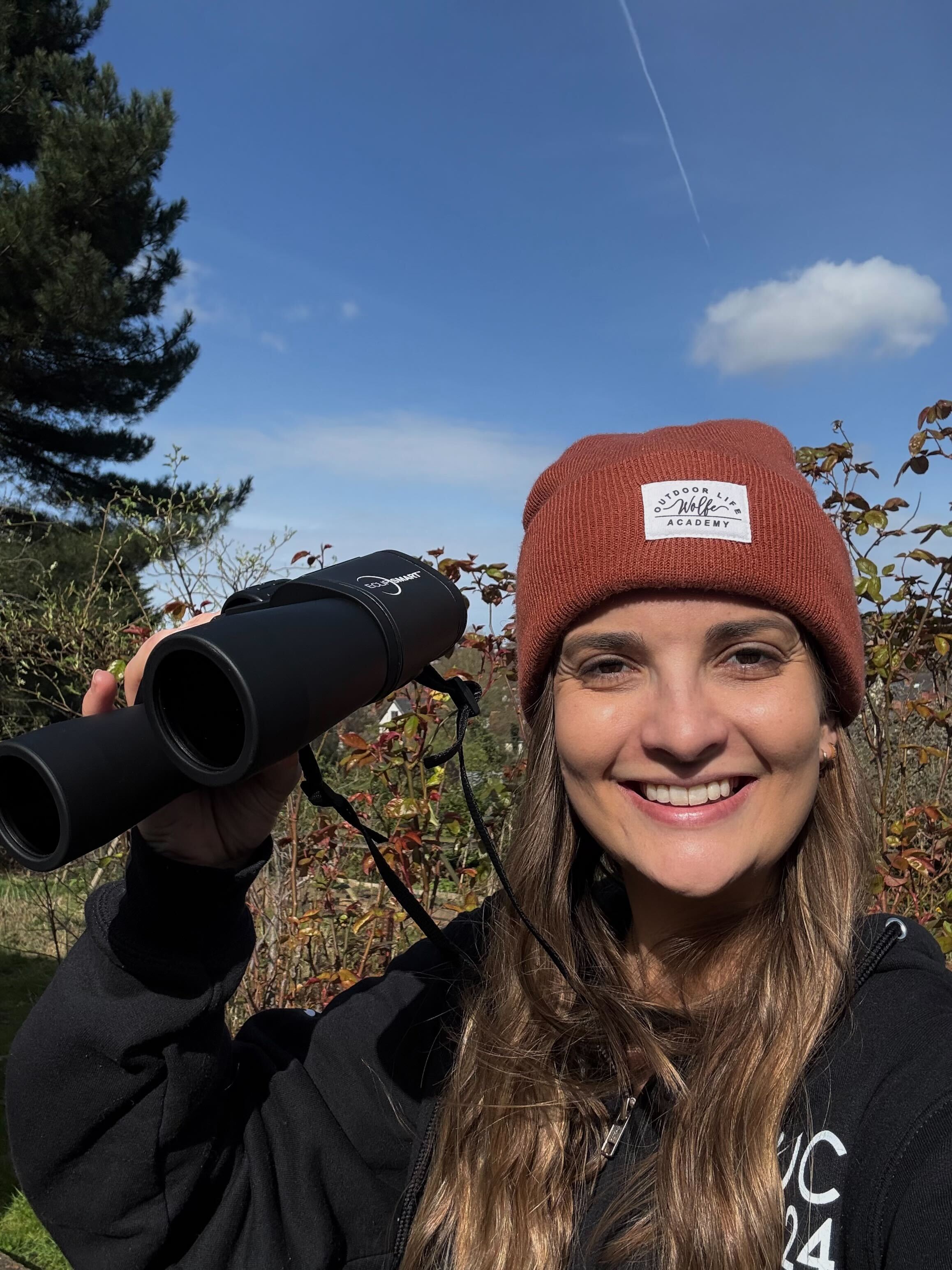
I’ve now seen more of an eclipse than I did in April 2024 …. The clouds are behaving today! Daisy added.
During the total solar eclipse of April 2024, Daisy was clouded out in Rochester, New York in a disappointing display.
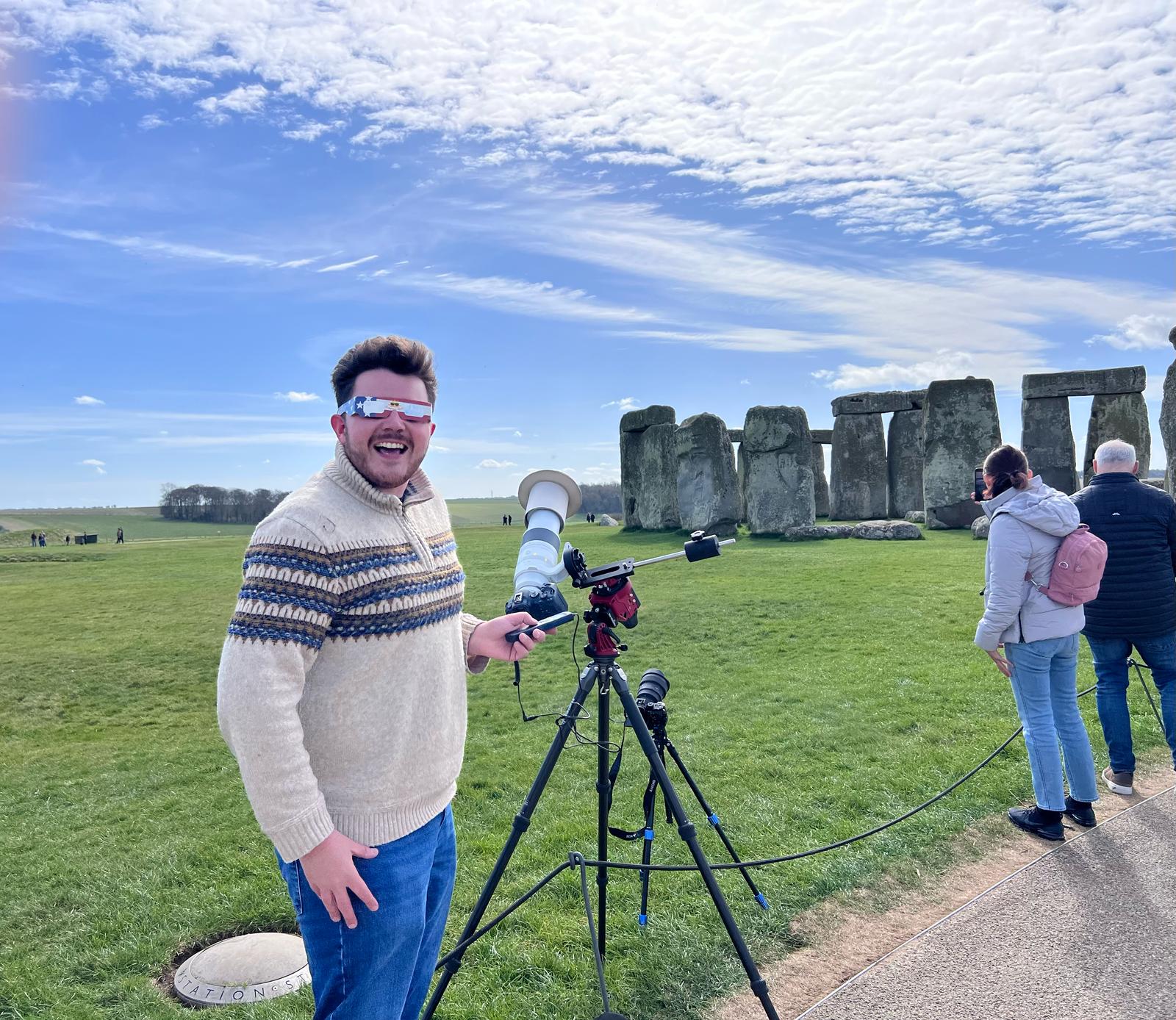
Meanwhile, at Stonehenge, astrophotographer Josh Dury appears to have good observing conditions despite what appeared to be a few clouds in the area, based on his photos.
Dury sent an early cell phone photo of the solar eclipse as it began, showing the view from his solar telescope as the moon's limb (or edge) just begins to bite into the sun.
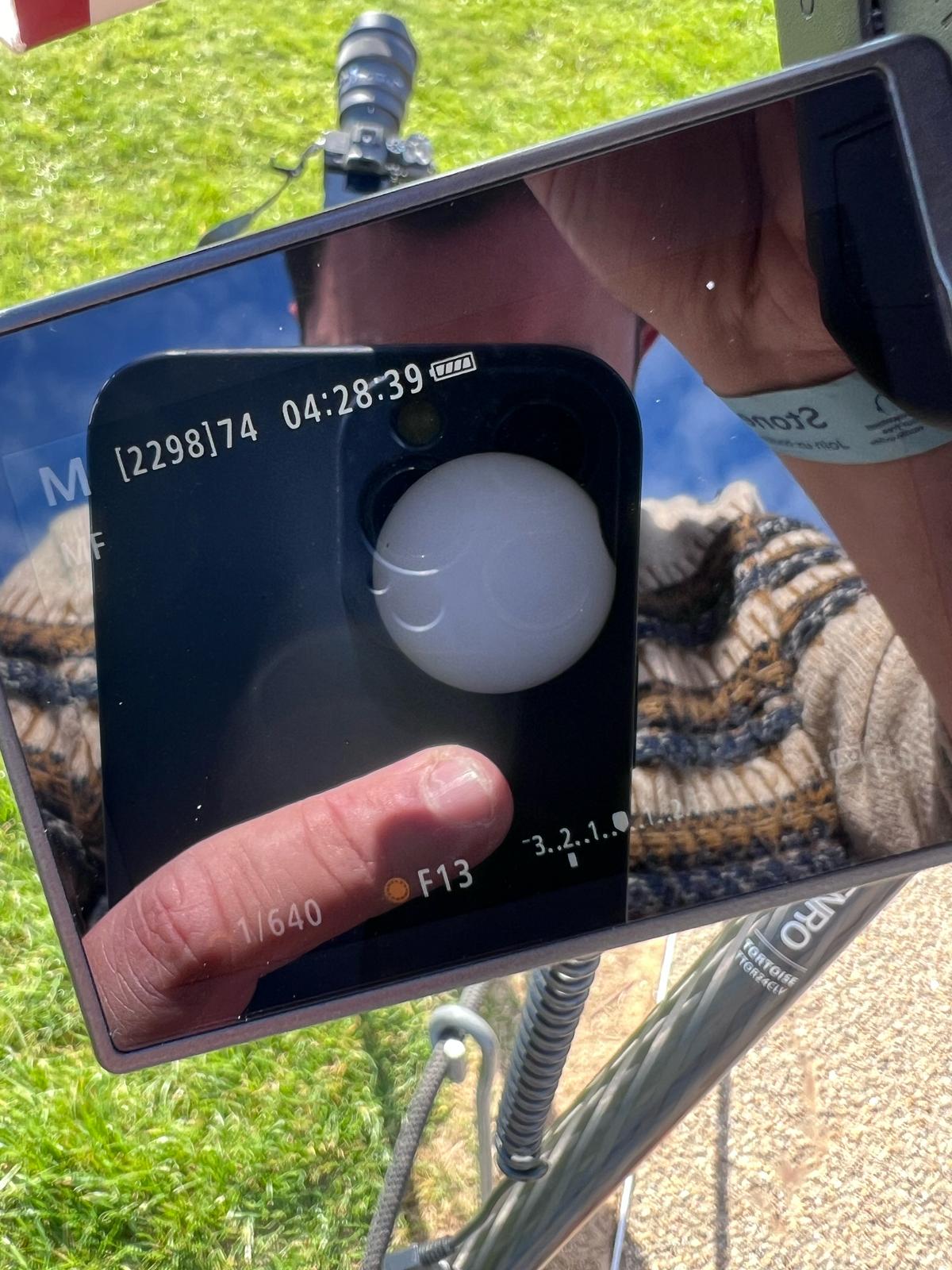
Solar eclipse begins over London, sunrise in Canada
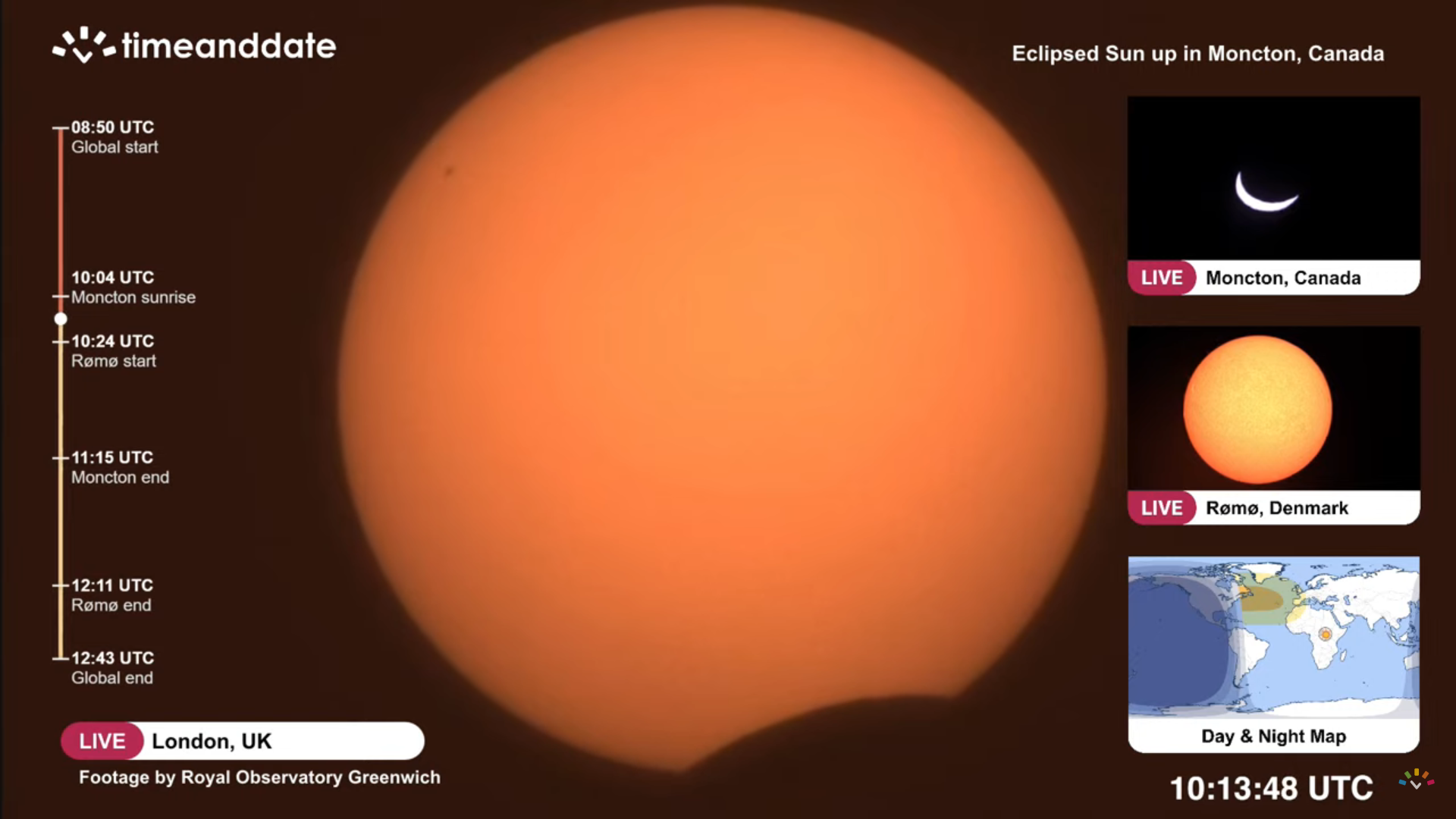
Today's partial solar eclipse, which began globally at 4:50 a.m. EDT (0850 GMT) has reached London in the United Kingdom, where the Royal Observatory Greenwich is capturing stunning images as seen above.
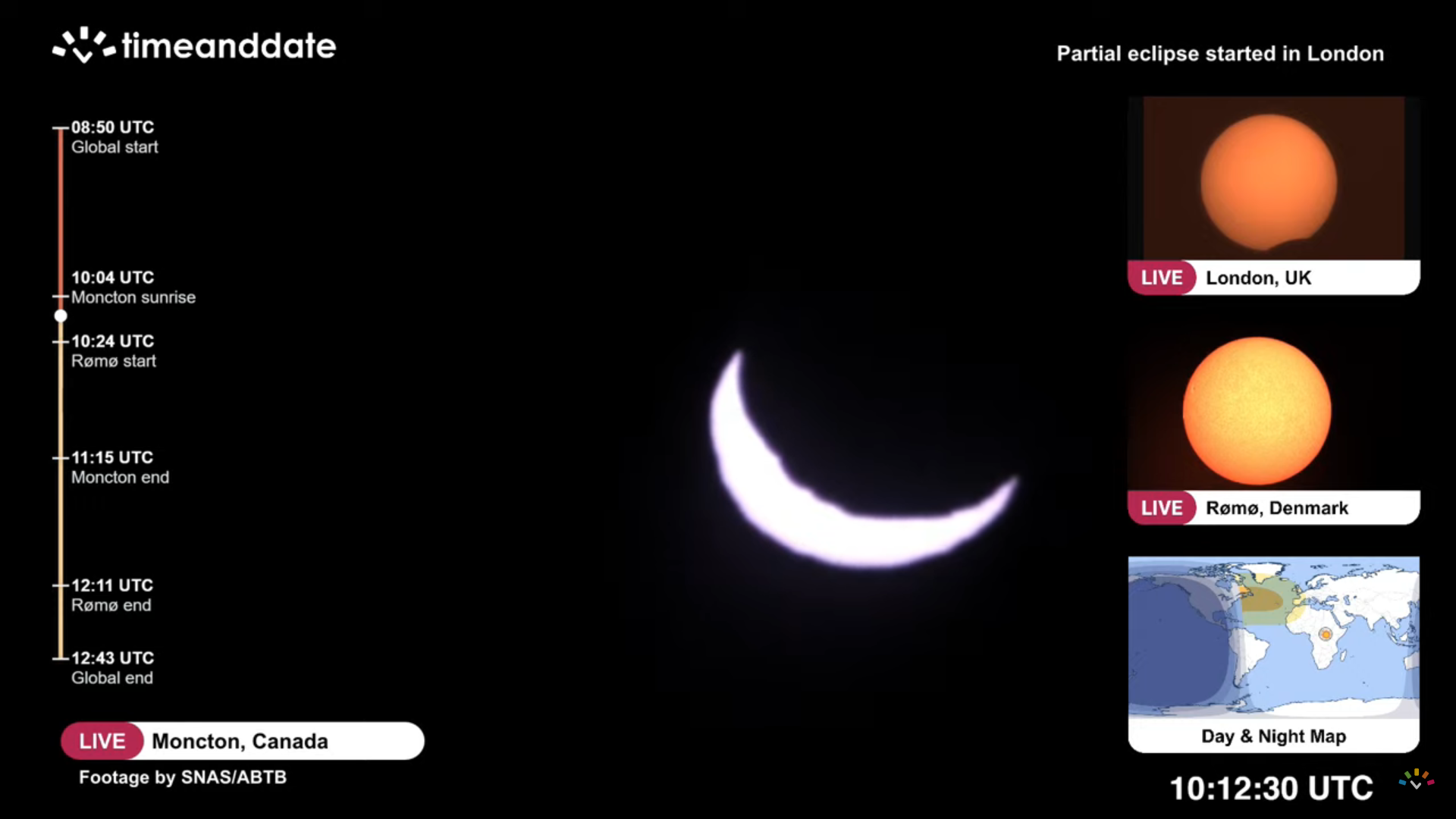
In Mocton, Canada, skywatchers with SNAS/ABTB for TimeandDate.com captured a deep partial solar eclipse as the sun rose over the horizon, showing twin "solar horns."
In Nottingham, England in the U.K., Space.com's Daisy Dobrijevic has captured her own first look at the start of the solar eclipse over England.
"It's happening!" she said.
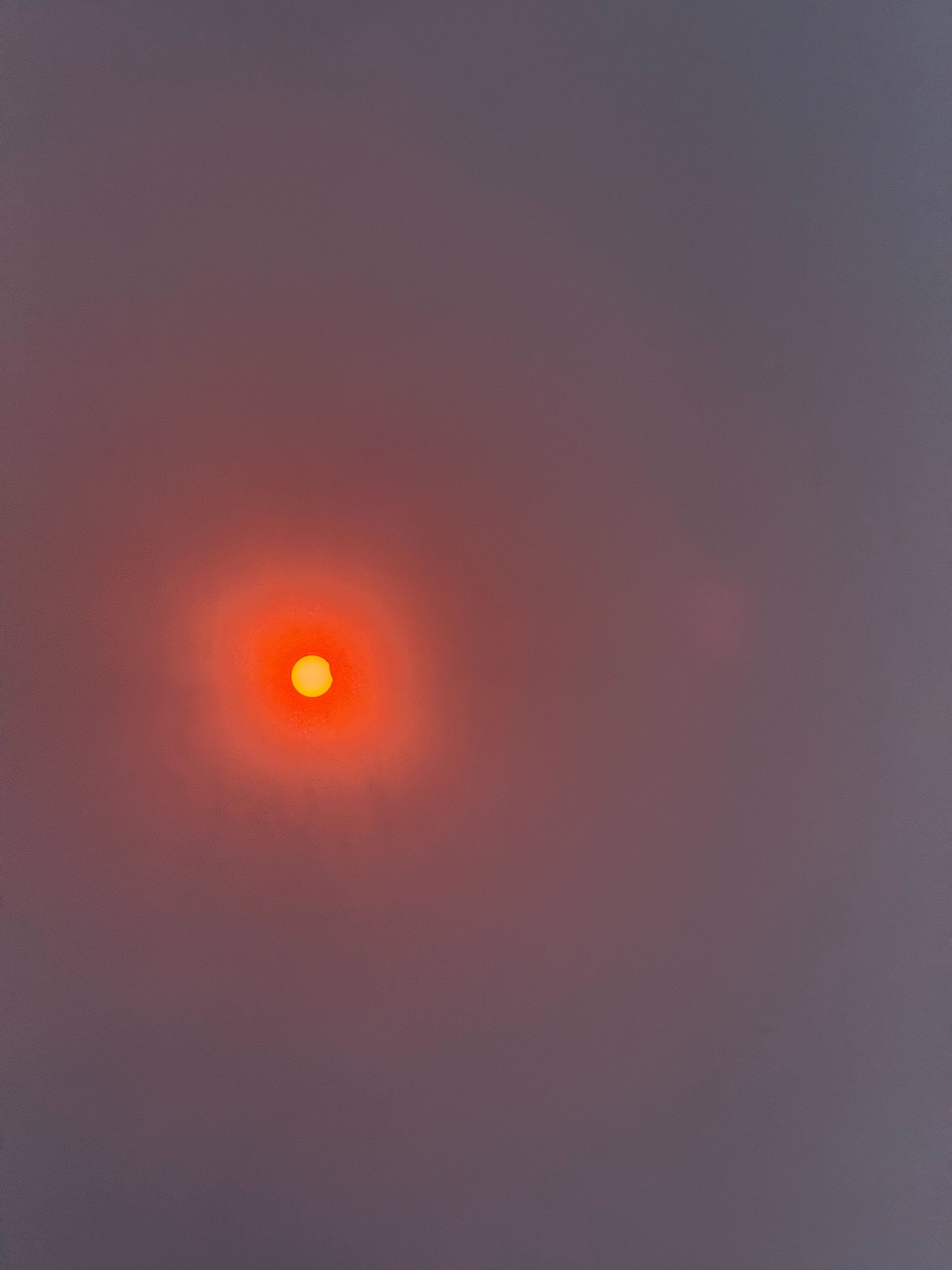
Space.com reporters on scene for eclipse
With the livestream of today's partial solar eclipse underway, Space.com has two veteran eclipse chasers in different parts of the world hoping to photograph the solar eclipse. I am Tariq Malik, Space.com's Editor-in-Chief, and will be offering some commentary during our livestream todam.
Astrophotographer Josh Dury is in the United Kingdom, where he hopes to photograph the solar eclipse as it occurs over Stonehenge. Hopefully the weather cooperates.
"Ready, steady, go!" Dury just told me. Here's a view of a nearly cloudless sky over Stonehenge for Josh.
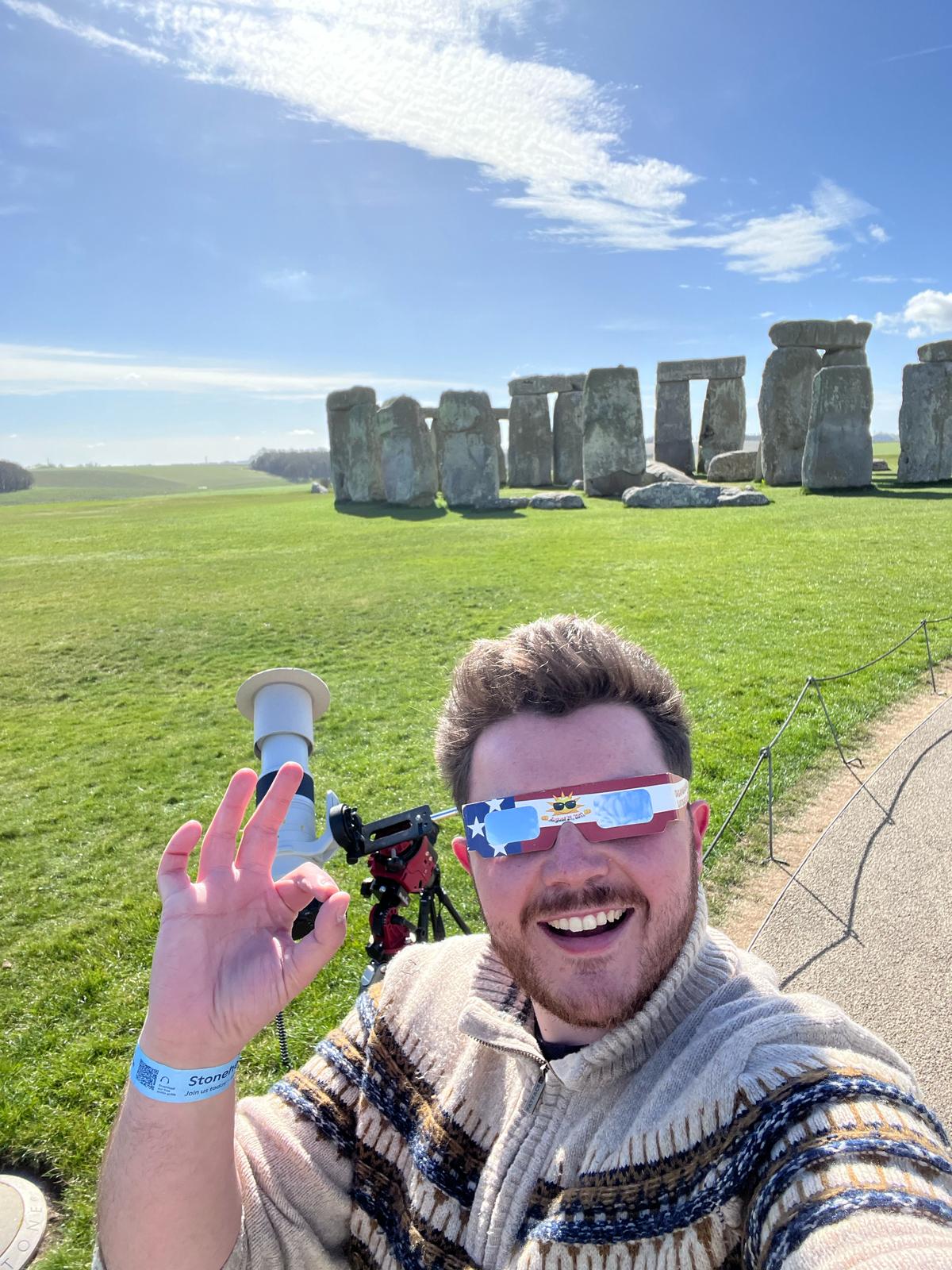
In Canada, Space.com contributor Jamie Carter is at Saint Andrews by the Sea in New Brunswick, Canada, where he's hoping to capture a rare "double sunrise" and solar horns during the eclipse. Here's Jamie's first dispatch.
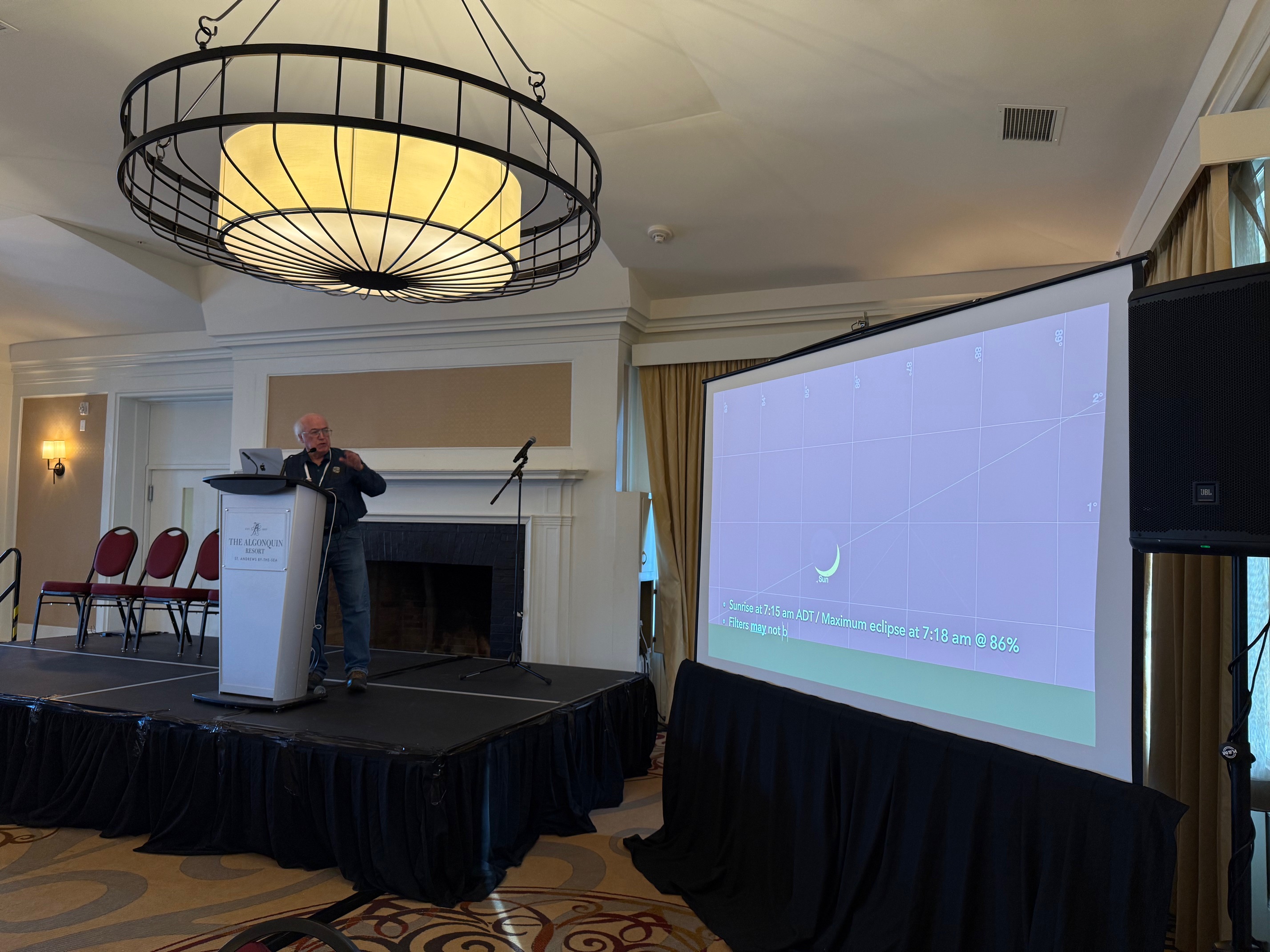
From Jamie Carter:
I’m here at Sky Experience II at the Algonquin Resort in Saint Andrews by the Sea, a seaside town in southwest New Brunswick. Tomorrow, we’re all going down to Water Street on the shores of Passamaquoddy Bay. I was there this morning with astronomy author and photographer Alan Dyer (https://www.amazingsky.com), a veteran of 18 eclipses and a speaker at the event. “We’re going to have the sun rising while eclipsed at 85-86 degrees azimuth, so a little north of east, and it's going to come up with the two horns,” said Dyer in a lecture last night. “Sunrise is at 7:15 a.m. (ADT) and maximum eclipse is at 7:18 a.m. — just a few minutes after sunrise — at 86%.”

However, the weather isn’t looking great here. “It's going to be it's going to be iffy,” said Dyer. “But all we need is a clear spot down to the horizon in the east.” It’s going to be triumph or tragedy.
This eclipse is risky. At no point should you be looking at the eclipse without eclipse glasses. If there’s a little cloud on the horizon, it may be that the eclipsed sun, as it rises, could be photographed without the need for filters — but only for a few moments. You need to have solar filters ready to use at a moment's notice.
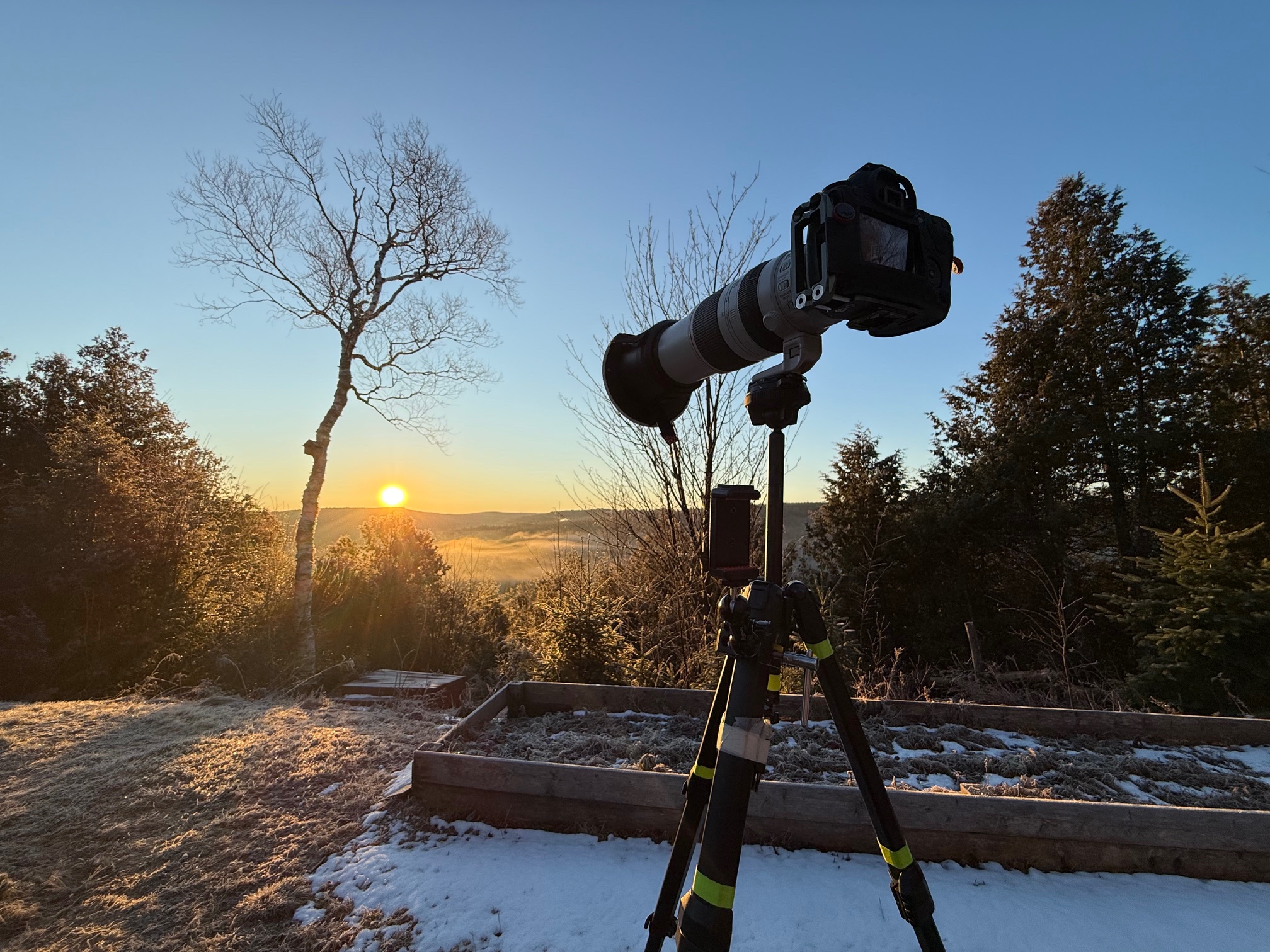
“Solar filters may not be needed just when the sun's first coming up, but they will be as the sun climbs slightly higher into a clearer sky,” says Alan Dyer, astronomy author and photographer at Amazing Sky, and one of the most experienced eclipse photographers on the planet. “It’s better to be on the safe side because if you do stare at that rising sun without filters, you could do some damage.”
Here are some times for the eclipse today:
Country | Start of Eclipse (Local Time) | End of Eclipse (Local Time) |
|---|---|---|
Canada | 6:56 a.m. | 8:20 a.m. |
France | 10:55 a.m. | 1:01 p.m. |
Ireland | 9:54 a.m. | 12:03 p.m. |
Norway | 11:12 a.m. | 1:35 p.m. |
United Kingdom | 9:56 a.m. | 12:14 p.m. |
United States | 6:13 a.m. | 7:17 a.m. |
Partial solar eclipse happening now!
A partial solar eclipse is happening now! Don't miss this chance to see the moon partially cover the sun.
The eclipse began at 4:50 a.m. EDT (0850 GMT), and the moon will reach maximum coverage of the sun at 6:47 a.m. EDT (1047 GMT). If you're watching the eclipse in person, note that exact visibility and timing depend on your location.
If you're unable to watch the partial solar eclipse in person, you can still watch the celestial spectacle live here on Space.com courtesy of Timeanddate. Keep up to date with the latest solar eclipse progress here on our solar eclipse live blog.
Read more: Don't miss the partial solar eclipse tomorrow: Where, when and how to see it
What is the U.S. weather forecast for the partial solar eclipse tomorrow?
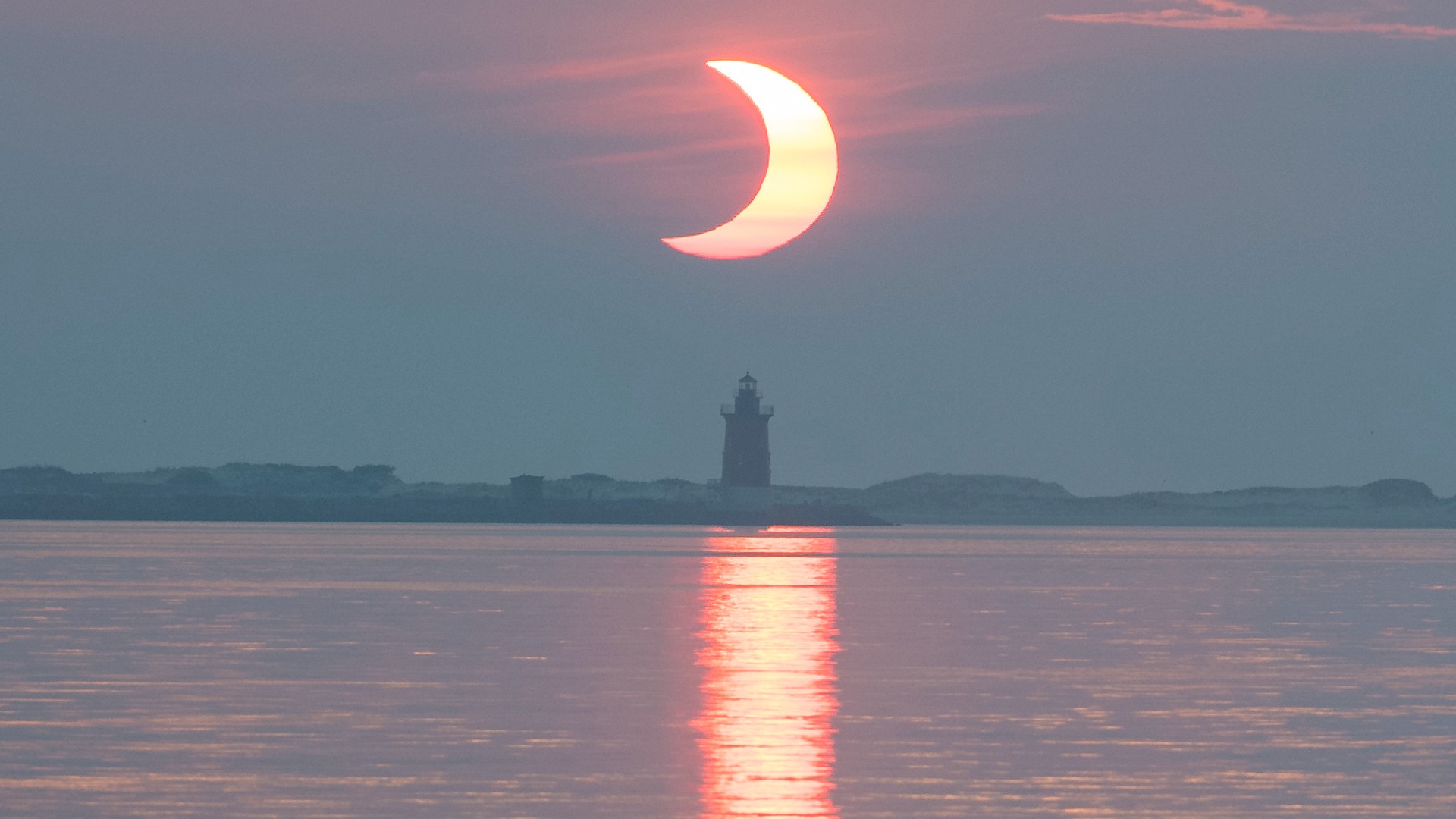
There's nothing like gearing up for a major solar eclipse only to have the weather block your view.
Unfortunately, it happens to the best of us. But if you live in the northeastern United States and are hoping to get a glimpse of the rare 'double sunrise' on the morning of March 29, Space.com columnist Joe Rao has you covered.
Check out our guide on the best places to see the moon 'bite' the sun tomorrow for a full partial solar eclipse weather forecast for the U.S. Clear skies!
Just one day until the partial solar eclipse! We’re ready — are you?
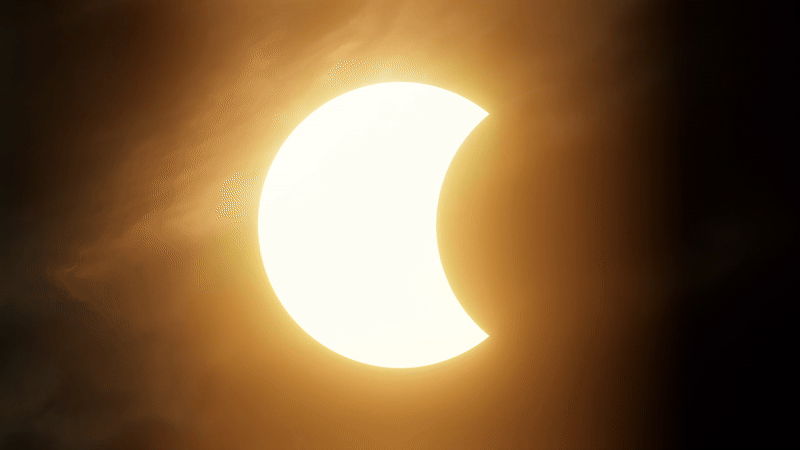
A partial solar eclipse is happening tomorrow morning (March 29), offering skywatchers a chance to see the moon partially cover the sun.
Globally, the eclipse begins at 4:50 a.m. EDT (0850 GMT), reaching maximum coverage at 6:47 a.m. EDT (1047 GMT). Exact visibility and timing depend on your location.
If you're unable to watch the partial solar eclipse in person, don't worry, you can watch all the action unfold live here on Space.com courtesy of Timeanddate and keep up to date with the latest solar eclipse progress with our solar eclipse live blog.
Read more: Don't miss the partial solar eclipse tomorrow: Where, when and how to see it
Not long until the partial solar eclipse! Here's what to expect
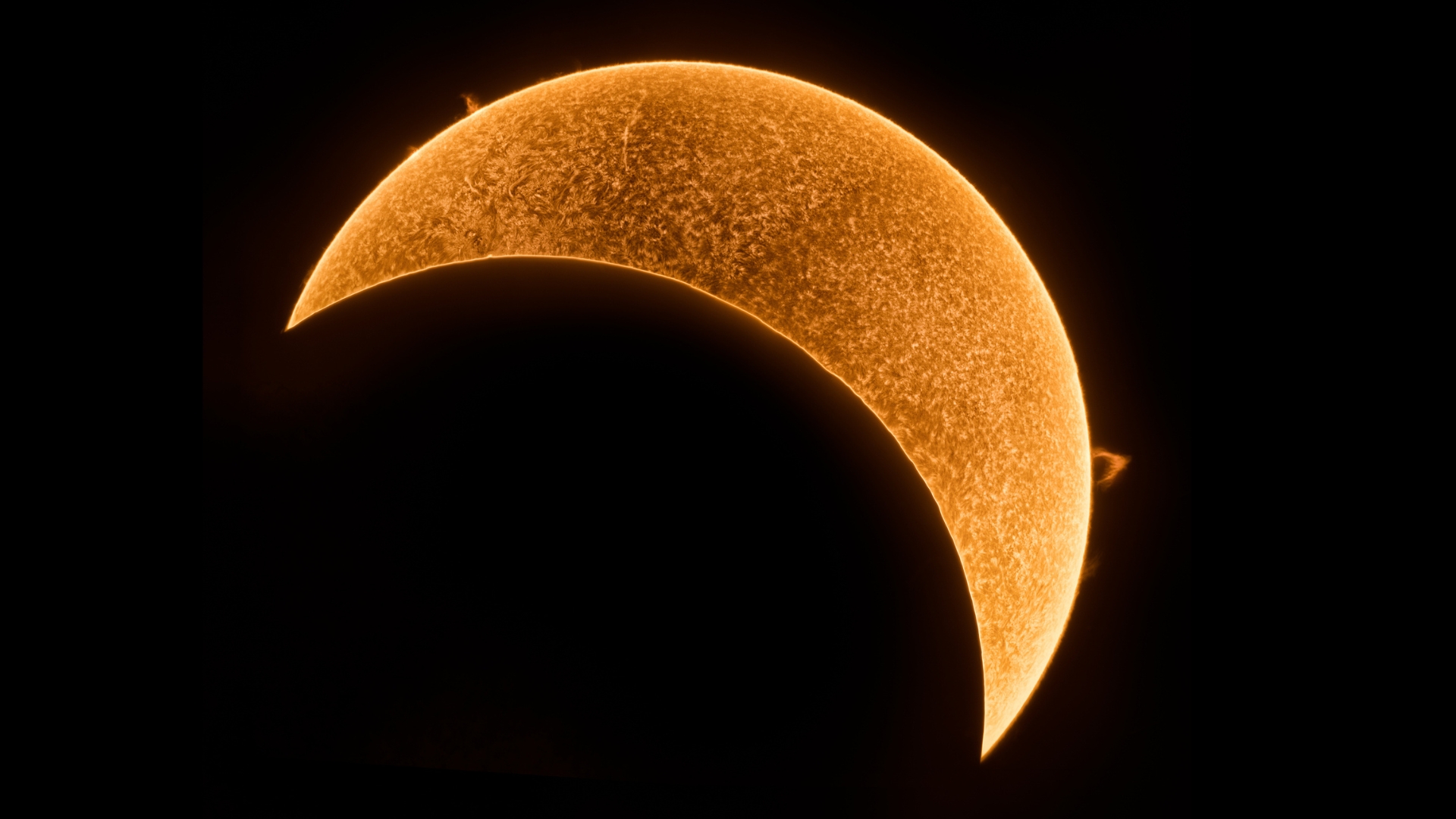
What a difference a year makes!
Just a year ago, countless millions across North America were anxiously awaiting the "great North American total eclipse of the sun" on April 8. Now, less than a year later, on Saturday, March 29, another eclipse of the sun will take place, but it's quite likely that the prospective viewing audience will be considerably smaller.
To produce this eclipse, the moon's shadow falls chiefly on the north polar regions of Earth.
Read more: What will happen during the partial solar eclipse of March 2025?
What time is the partial solar eclipse on March 29?
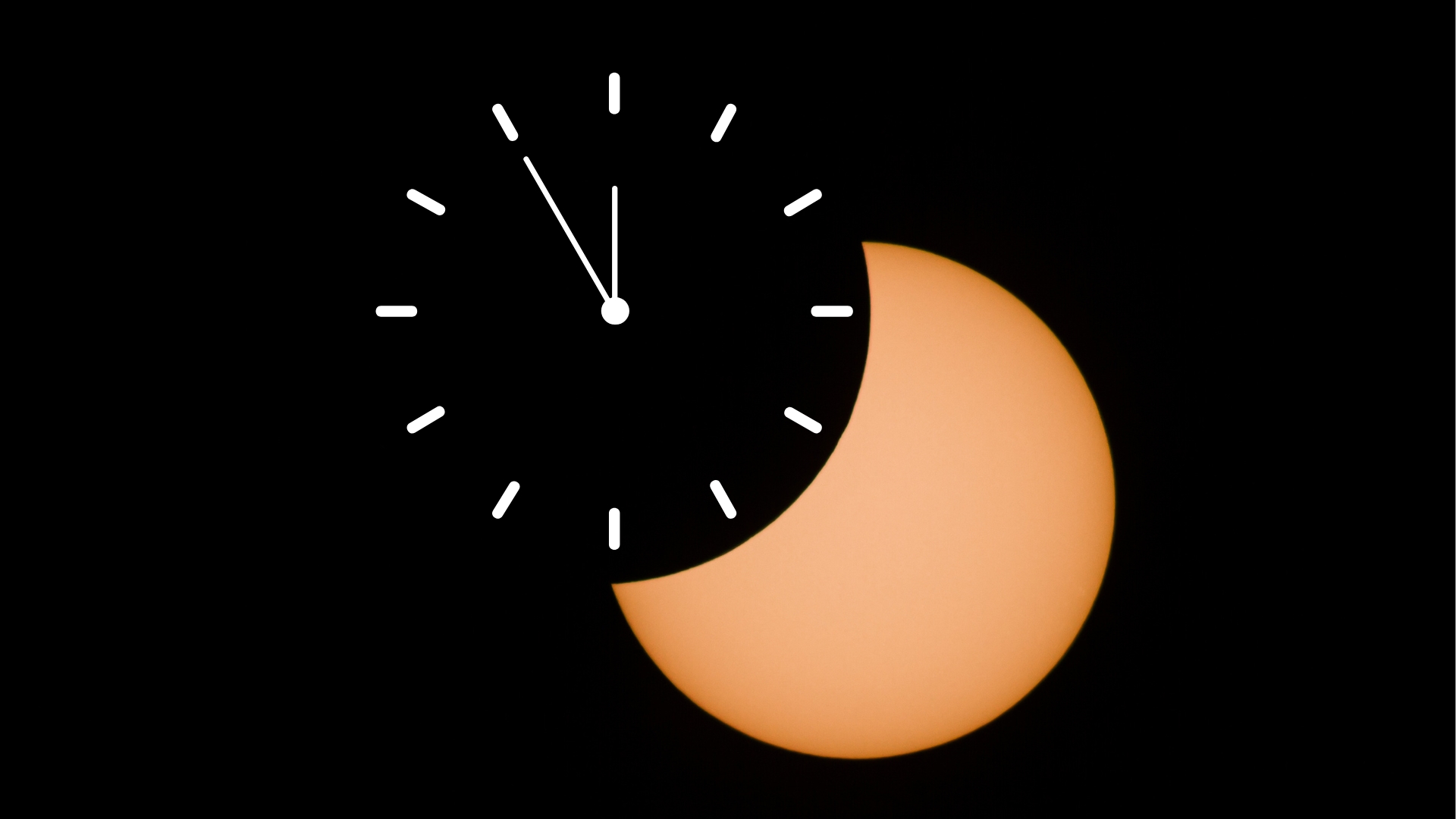
The moon will appear to take a "bite" out of the sun during a deep partial solar eclipse on the morning of March 29.
Globally, the eclipse will begin at 4:50 a.m. EDT (0850 GMT), with the maximum eclipse — when the moon covers the largest portion of the sun — occurring at 6:47 a.m. EDT (1047 GMT). However, exact timings vary by location. A detailed breakdown of eclipse times for different countries can be found in the article below.
Read more: What time is the partial solar eclipse on March 29?
Best places in the US and Canada to see rare 'double sunrise' during partial solar eclipse

It may not be a total solar eclipse, but the partial solar eclipse on March 29, 2025, will bring some very unusual views of the sun and moon to some observers in North America.
Seen as a run-of-the-mill partial solar eclipse in mainland Europe (where about a third of the sun will disappear behind the moon with the two high in the sky in mid-morning), the event is a little more fraught in North America, where it will happen at sunrise.
It will also create a weird "double sunrise" effect from some locations in the U.S. state of Maine and the provinces of New Brunswick and Quebec in Canada.
The partial solar eclipse will be a great time to look for sunspots on the solar surface
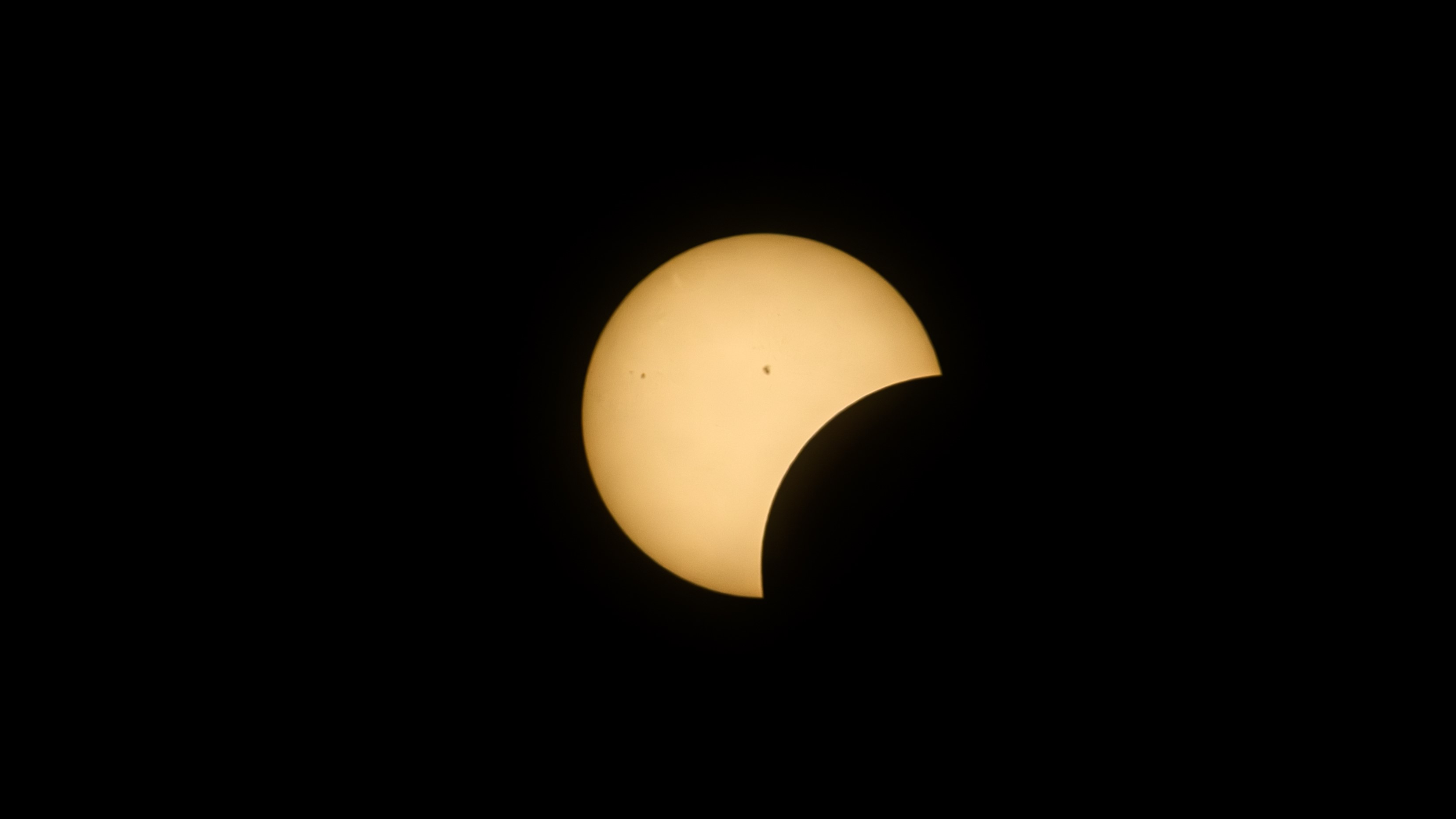
Observing an eclipse of the sun is always fascinating, but on March 29, 2025 — when a partial solar eclipse is visible in the Northern Hemisphere — there will be an extra reason to do so.
As well as up to 94% of the sun being blocked by the moon, sky-watchers will see sunspots on the solar surface.
Sunspots are indicative of magnetic disturbances in our star, they appear as dark patches on the surface of the sun and can be as big as Earth. Their presence is a clue to where the sun is in its 11-year solar cycle, with astronomers counting them every day since 1610.
Read more: Sunspots may be visible during the March 29 partial solar eclipse. Here's how to spot them.
Rare 'solar horns' will appear during the partial solar eclipse
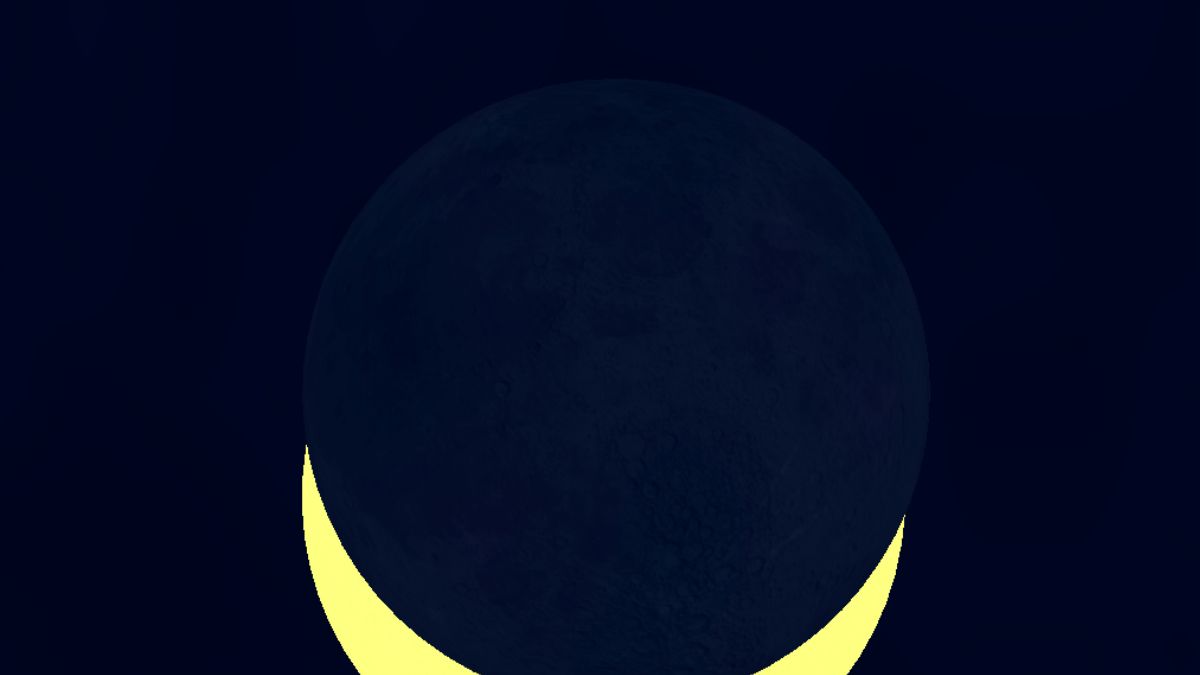
There's something special about the partial solar eclipse on March 29, 2025.
For North Americans in the right place at the right time — and who get clear skies — there's a chance to see the unique spectacle of "solar horns," a phenomenon where the cusps of an eclipsed crescent sun appear as two distinct points above the horizon during sunrise.
For observers in the northeastern U.S. and eastern Canada aiming to witness this rare event, selecting the optimal location is crucial.
What will the solar eclipse look like from space?
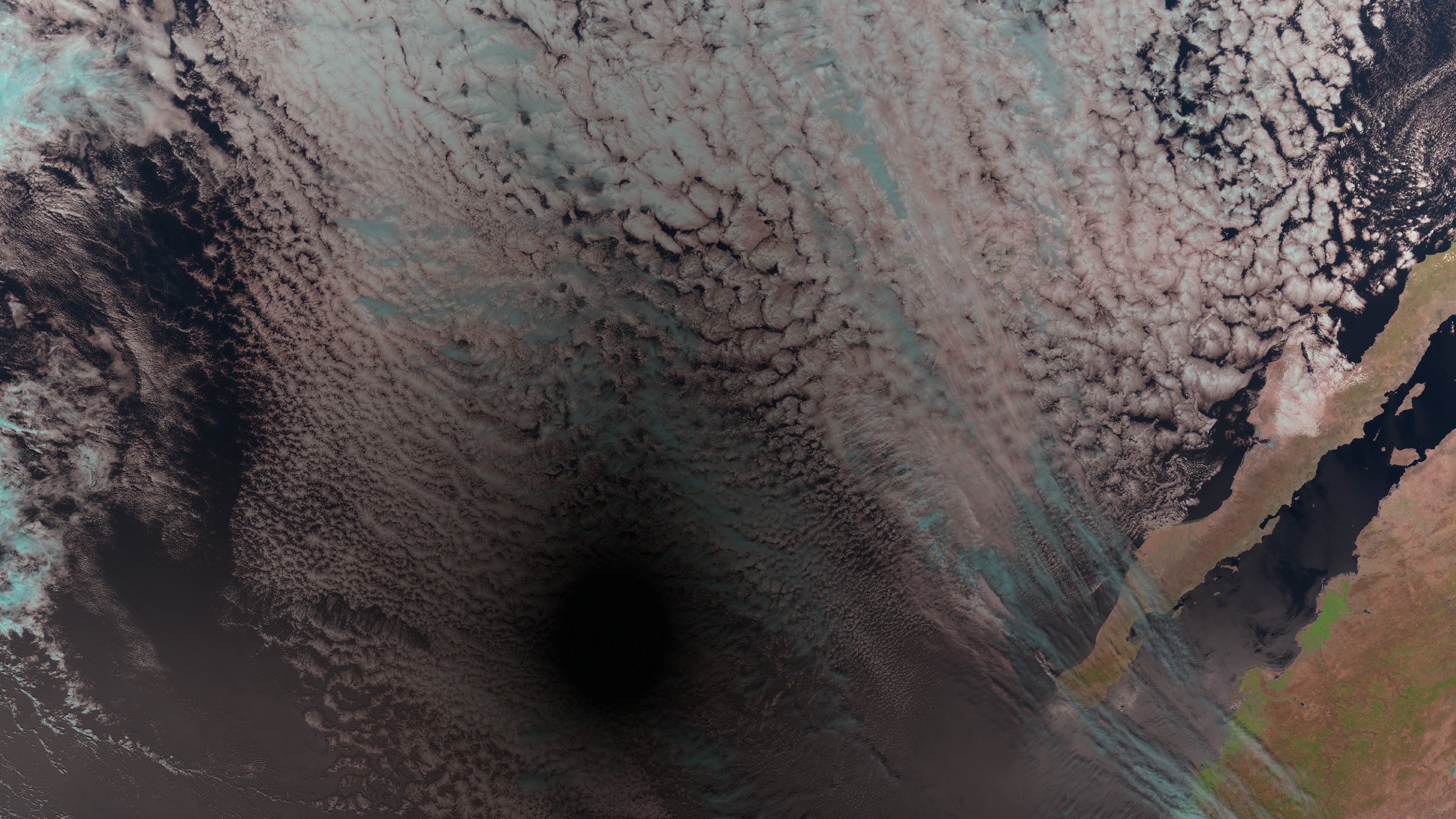
A partial solar eclipse will come to Earth on Saturday, March 29, 2025, as the moon passes in front of the sun. From Earth, photographers will capture images of a bite being taken out of the sun. From space, a fleet of satellites will image a shadow being cast across Earth.
The moon projects two kinds of shadows at all times. There's a large fuzzy outer shadow, called the penumbra, and a much smaller, darker central shadow, the umbra. The latter causes a total solar eclipse, which is seen across a dark and narrow corridor on Earth called the path of totality. That's not what's happening on March 29, when only the moon's penumbra will touch Earth.
Read more: What will the partial solar eclipse of March 2025 look like from space?
Eclipse expert Jamie Carter is heading to New Brunswick, Canada for the solar eclipse
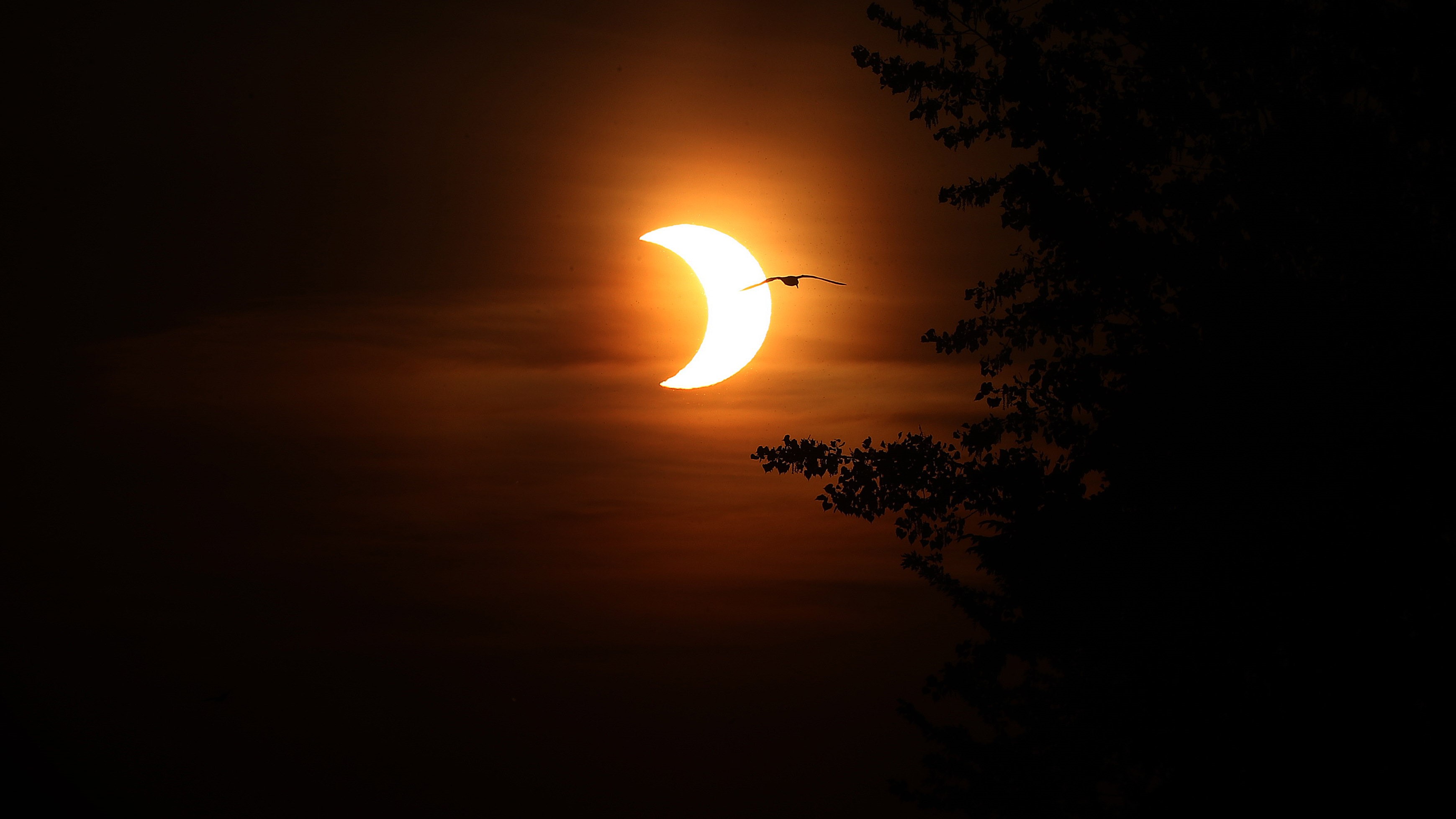
Would you travel across the world to see a 'smiley face' crescent sun appear on the horizon for a few minutes, the tips of its crescent slicing through the haze like 'devil's horns?'
On March 29, 2025, eclipse chasers from across North America — and a handful from beyond — will travel to southwest New Brunswick and eastern Quebec in Canada, and to northeastern Maine in the U.S. to witness 85% of the sun blocked by a new moon as the sun rises in the east.
I'll be one of them, reporting for Space.com while attending Sky Experience II: The Rising Sun Eclipse Experience & Retreat in Saint Andrews-by-the-Sea in southwest New Brunswick, organized by Cliff Valley Astronomy.
Read more: Why I'm going to New Brunswick, Canada, to see next week's 'sunrise' solar eclipse
Where will the partial solar eclipse be visible?

Although it won't be as spectacular as North America's April 2024 total solar eclipse, the first solar eclipse since the "ring of fire" eclipse in October 2024 is set to bring stunning views to some lucky eclipse chasers.
Just two weeks after a stunning total lunar eclipse on March 13-14, 2025, skywatchers across the western Northern Hemisphere will see at least a partial solar eclipse on March 29, 2025.
For some observers, an eclipsed sun will appear on the eastern horizon at sunrise — if skies are clear — as the moon blocks up to 93% of the sun. Here are all the maps you need to see where the partial solar eclipse will be visible.
Read more: Where will the partial solar eclipse March 2025 be visible?
Are you ready for the next solar eclipse?
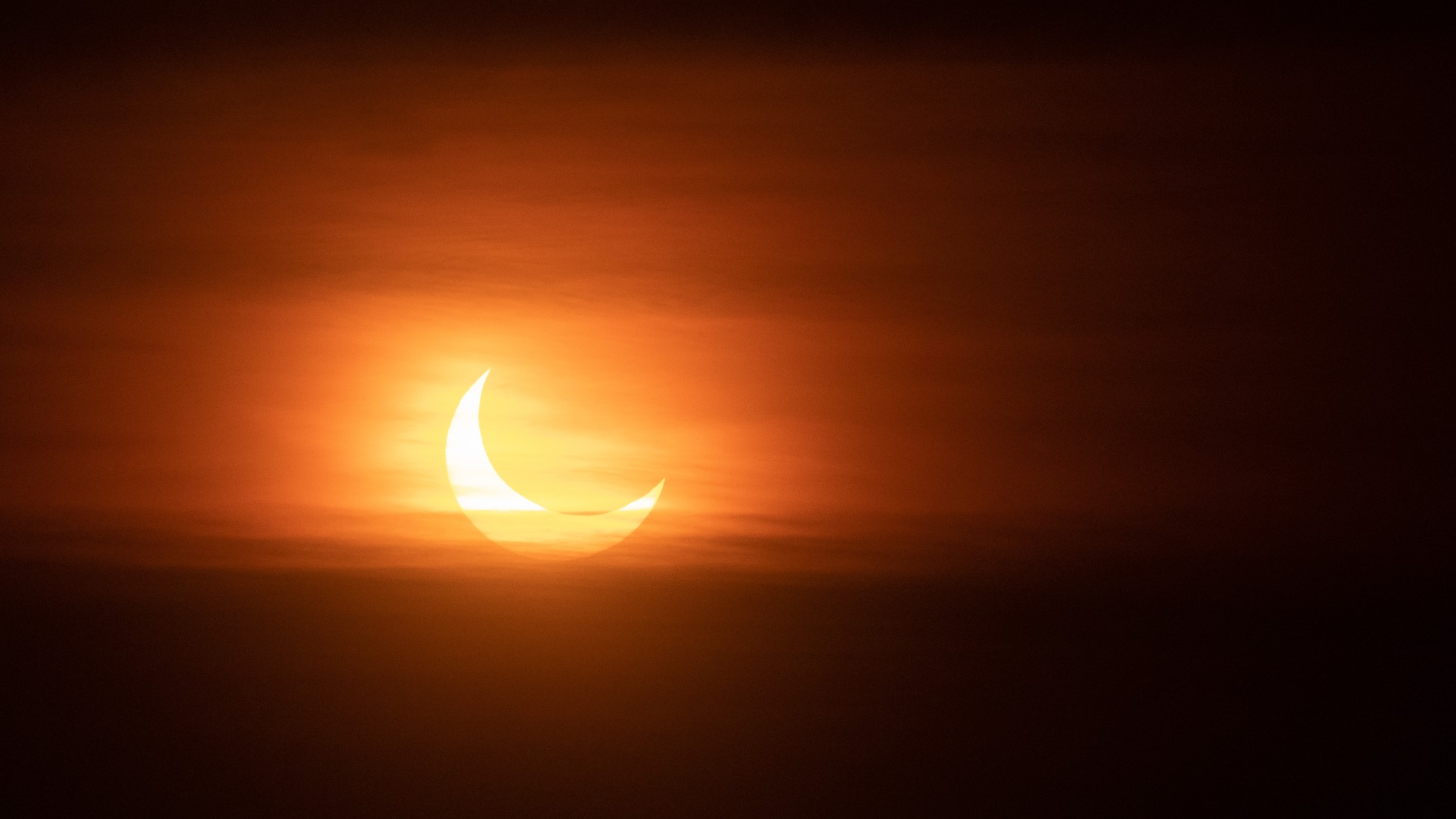
The next solar eclipse will be a partial solar eclipse on March 29, 2025.
Although much of Europe will see a big partial solar eclipse, the best views will be for those in extreme eastern regions of North America, where an eclipsed sun will appear on the eastern horizon at sunrise if skies are clear.
Check out our partial solar eclipse March 2025 guide to learn where, when and how to view the impressive eclipse.
When is the next solar eclipse?
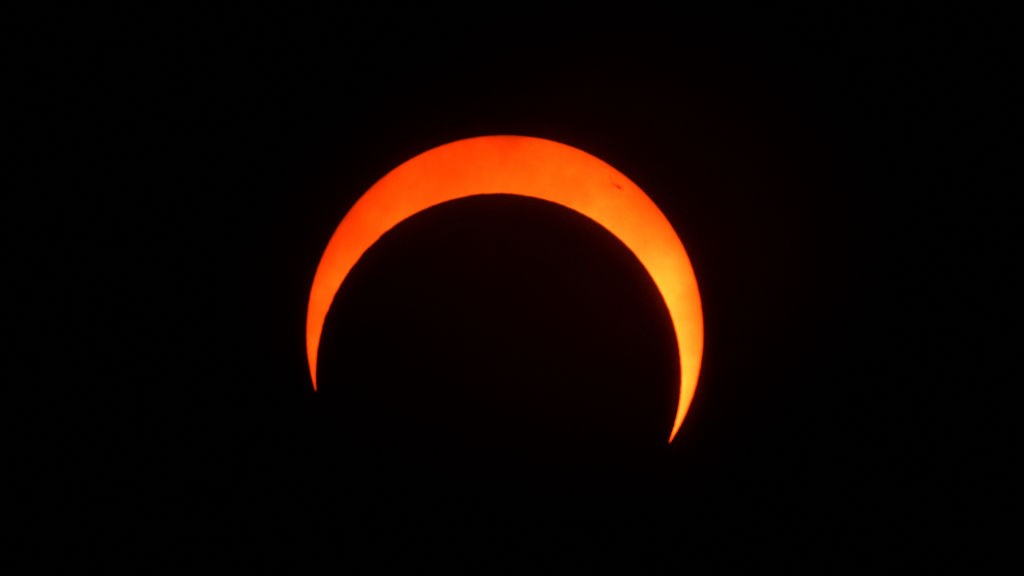
The next solar eclipse will be a partial solar eclipse on March 29, 2025, and will be visible over parts of Europe, Asia, Africa, North America, South America and the Atlantic and Arctic Oceans.
A solar eclipse occurs when the moon is positioned between Earth and the sun and casts a shadow over Earth. They can only occur during the phase of the new moon and make for an interesting skywatching target. In 2025 Earth will experience two solar eclipses, both will be partial solar eclipses.
And that's a wrap!
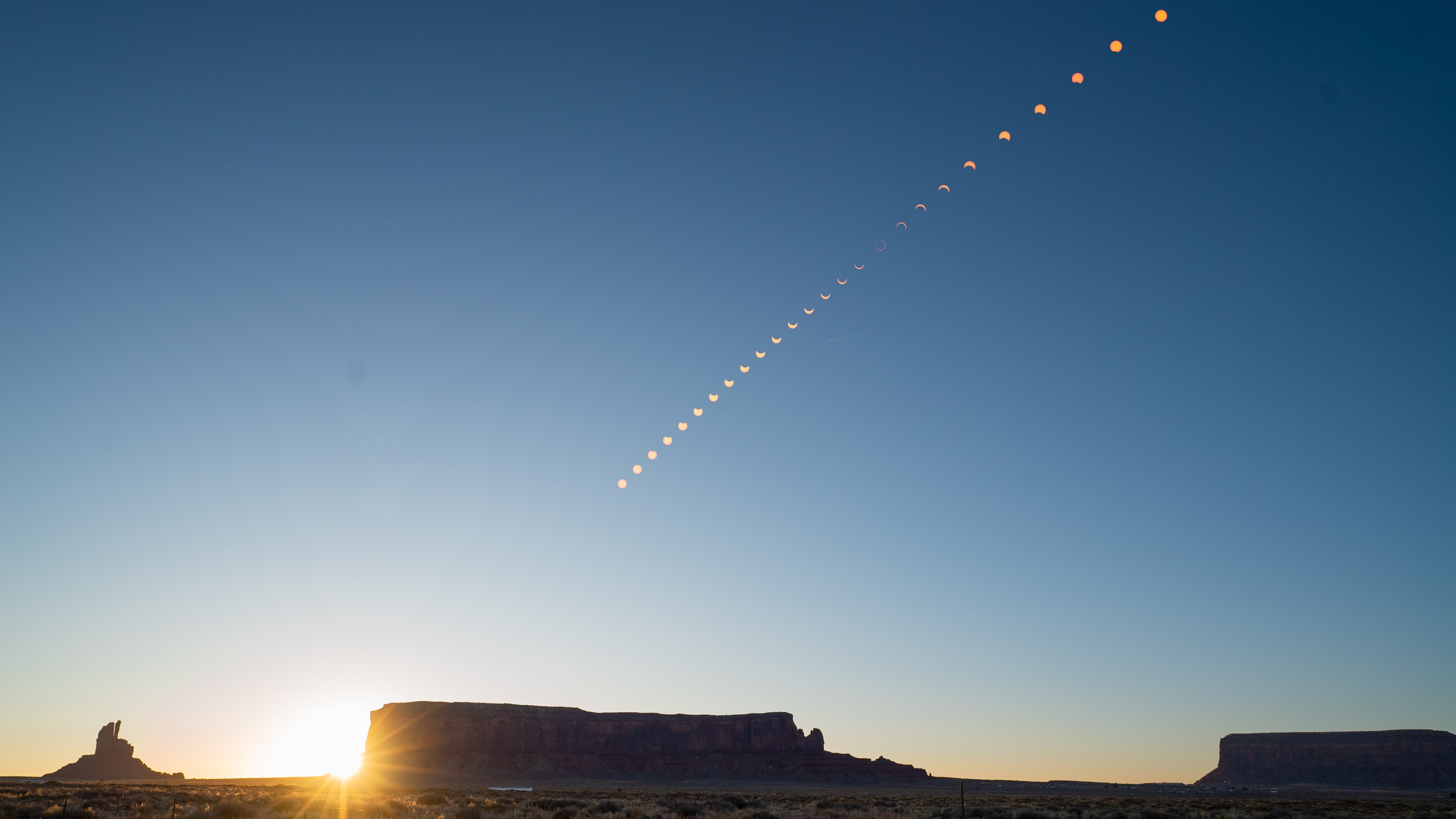
Wowee! Today's annular eclipse did not disappoint.
You can view a roundup of some of the best photos from around the world here in our "Annular solar eclipse of 2023 wows skywatchers with spectacular 'ring of fire' (photos, video)" article.
Stay tuned for more annular eclipse content over the coming days including a special report from our Editor Brett Tingley about his incredible eclipse adventure.
We hope you have enjoyed this annular solar eclipse as much as we have!
Clear skies.
The eclipse view from Easter Island
The "ring of fire" annular solar eclipse of Oct. 2 was an amazing sight to see online, but for those lucky eclipse chasers who managed to see it in person, it was transcendent.
Space.com contributor and veteran eclipse chaser Jamie Carter knows exactly what it feels like. He was among the eclipse chasers who made the trek all the way to Easter Island, also called Rapa Nui, to observe the solar eclipse on the remote island in the Pacific Ocean surrounded by maoi statues.
"Even after observing dozens of solar eclipses, to think that the sun and moon can come to such a perfect alignment still brought me peace and a sense of beauty unmatched by any other sight in nature," Jamie wrote of the experience.
Annular solar eclipse photos
On Oct. 2, an annular solar eclipse swept across parts of the Pacific Ocean, southern Chile and southern Argentina, putting on a dramatic display and turning the sun into a "ring of fire."
Check out these amazing photos from the day here In photos: Annular solar eclipse 2024 delights with stunning 'ring of fire' display
Annular Solar eclipse of Oct. 2 ends
The "ring of fire" annular solar eclipse of Oct. 2 amazed skywatchers across the southern Pacific and South America. See stunning photos and videos in our full story.
Across Easter Island in the remote Pacific Ocean, to parts of Chile, Brazil and Argentina, the solar eclipse amazed eclipse chasers with its dazzling ring of fire effect.
From our wrap: "Well, that was incredible. The tension! A cloud left the sun just 10 seconds before the Baily’s Beads appeared, and another appeared a minute after the ring ended. We were SO lucky!" eclipse chaser Jamie Carter, a U.K.-based science journalist and editor of WhenIsTheNextEclipse.com, told Space.com (where he is an occasional contributor) in an update from Easter Island. "It felt incredible to actually see the ring, knowing I had no more than a 50-50 chance. It was so cold in the minutes before annularity."
The "ring of fire" has reached Chile!
Here are the first views of the "ring of fire" phase of the annular solar eclipse above Puerto Río Tranquilo, Chile. The footage of the eclipse over Chile is provided by Thomas Puzia while he leads an expedition from the Institute of Astrophysics at Pontificia Universidad Católica de Chile.
You can watch watch the eclipse live here on Space.com courtesy of timeanddate.
The annular solar eclipse is heading for Chile
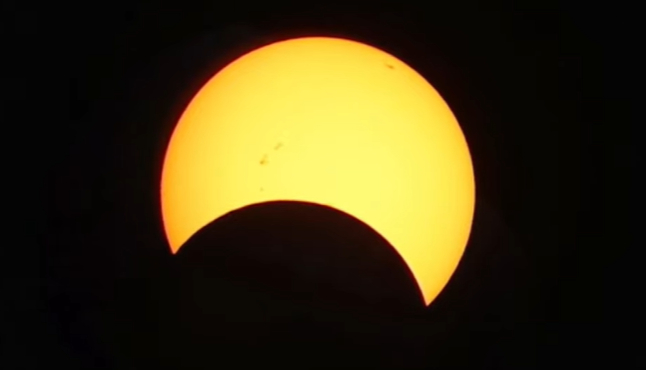
Timeanddate's livestream of the annular solar eclipse is now showing the partial eclipse phase above Puerto Río Tranquilo, Chile. Annularity will occur at 4:22 p.m. EDT (2022 GMT)
You can watch watch the eclipse live here on Space.com courtesy of timeanddate.
Annularity in all it's glory
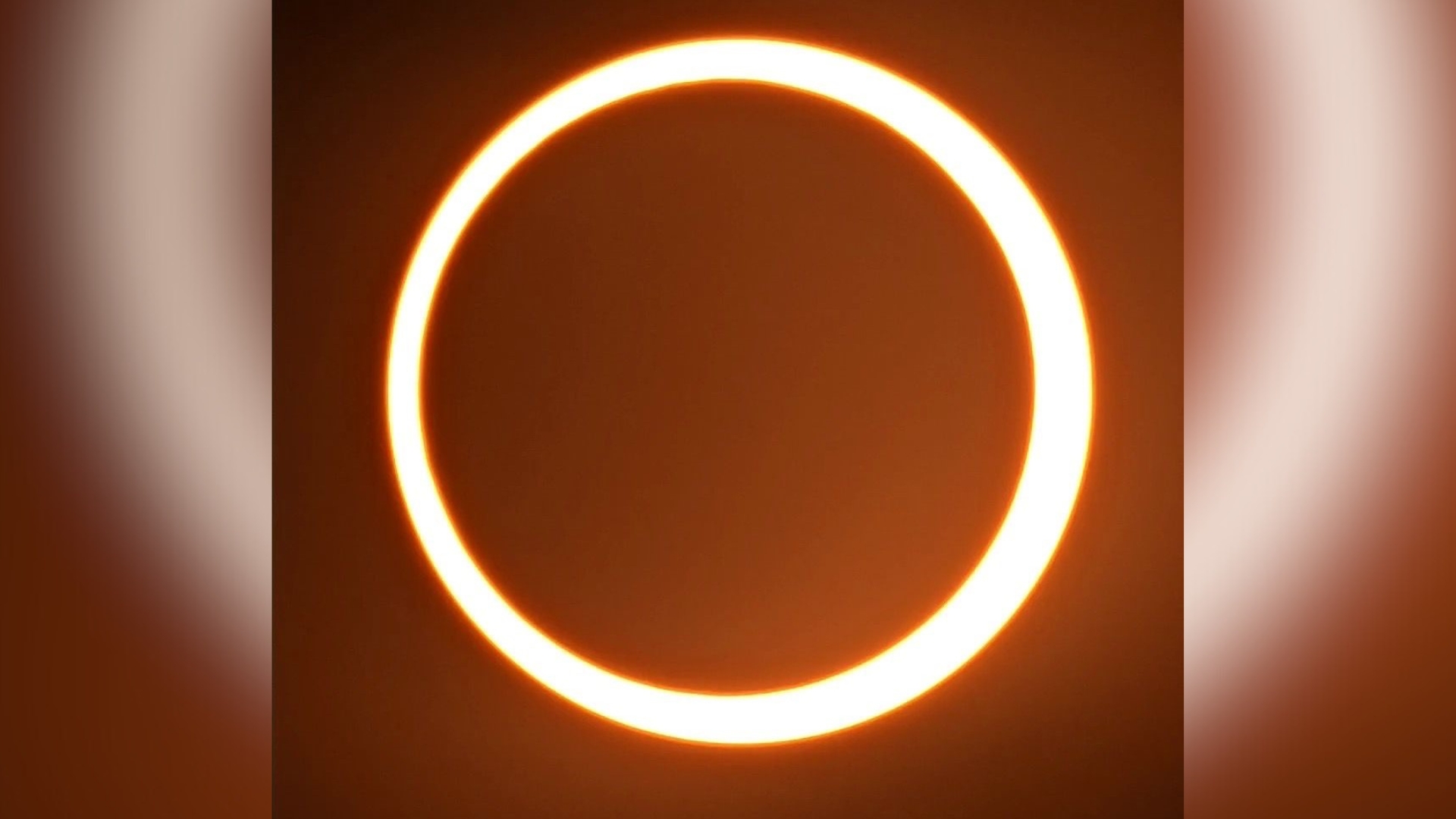
Jamie Carter has sent us this epic photo of the annular solar eclipse viewed from an avocado farm near Puna Pau, Easter Island.
Next stop? Chile! (the eclipse, not Jamie...)
First views of the "ring of fire"
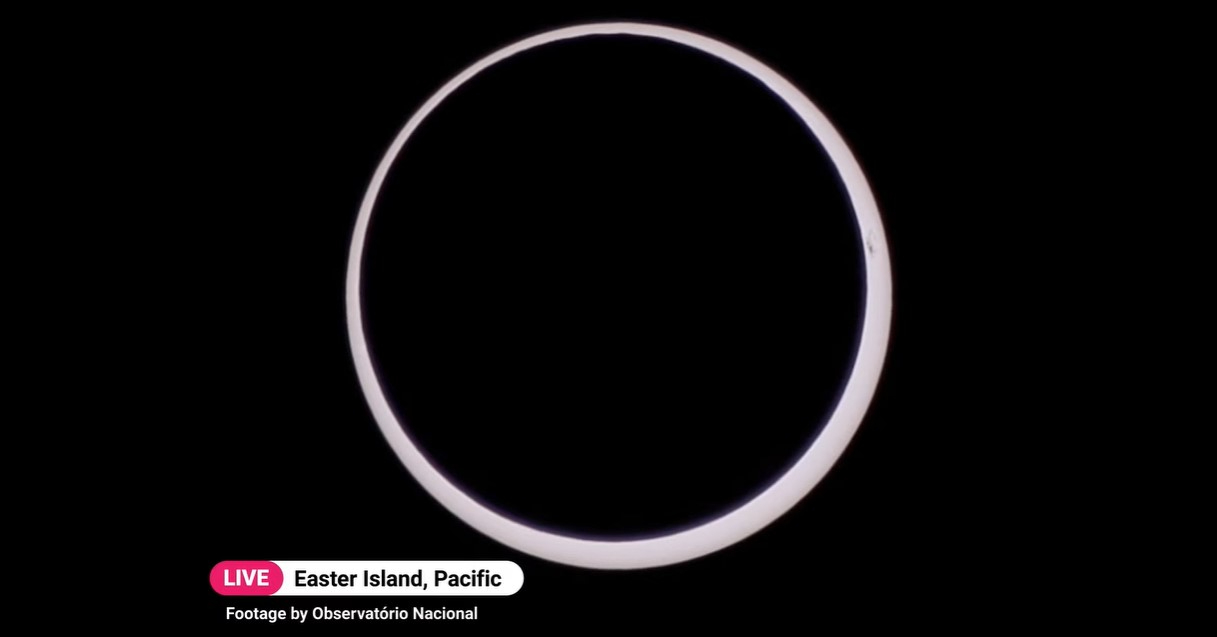
Here it is!! The annular solar eclipse 2024 is in full swing as the "ring of fire" appears over Easter Island. You can watch watch the eclipse live here on Space.com courtesy of timeanddate.
During an annular solar eclipse, the moon drifts in front of the sun while it's slightly farther from Earth than during a total solar eclipse, so it doesn't completely cover the sun's disk. Instead, it leaves a distinct ring of light around the moon, which is why an annular solar eclipse is also known as a "ring of fire" solar eclipse.
10 minutes to go
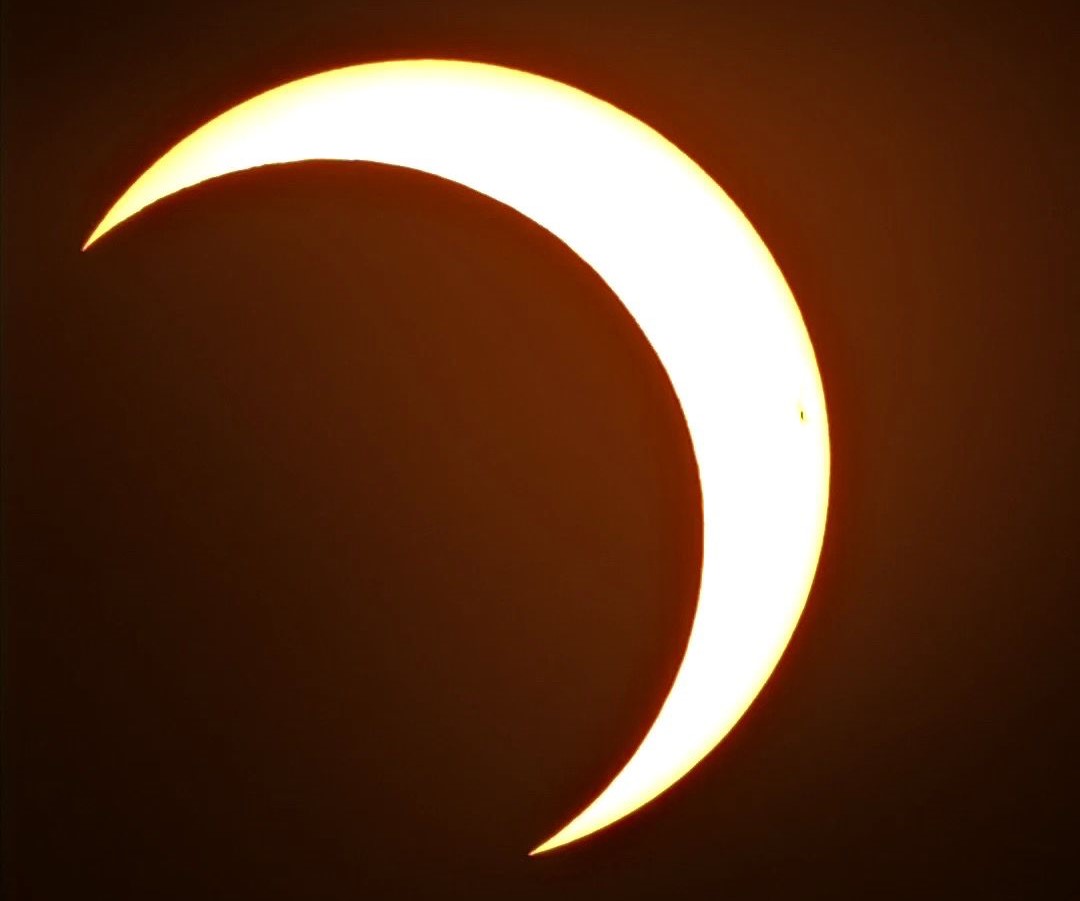
10 mins to go and the light is changing. The green field looks … weird. It’s so cold here. -- Jamie Carter
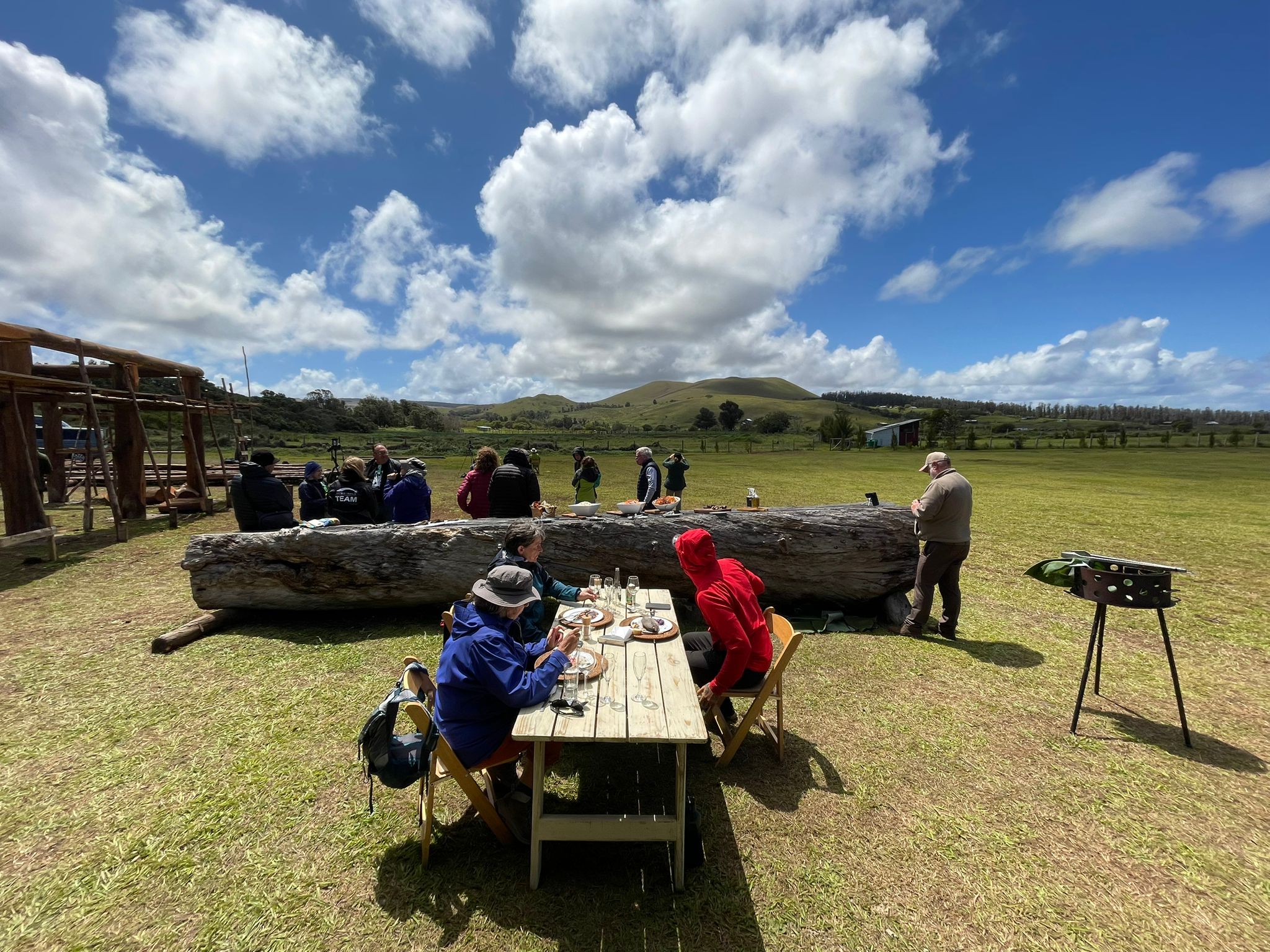
We are getting close!
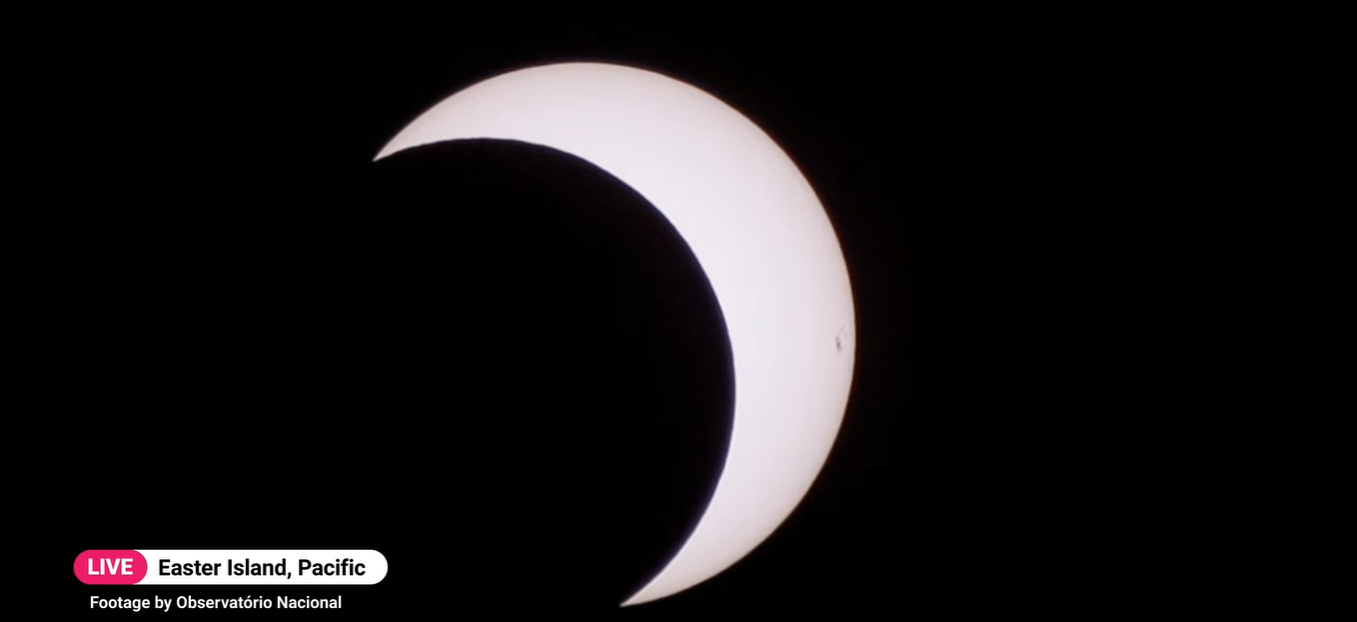
Timeanddate's view of the solar eclipse is back! And just in time too as we approach annularity. The annular solar eclipse is well underway and you can watch watch the eclipse live here on Space.com courtesy of timeanddate.
The moon is taking a bigger bite
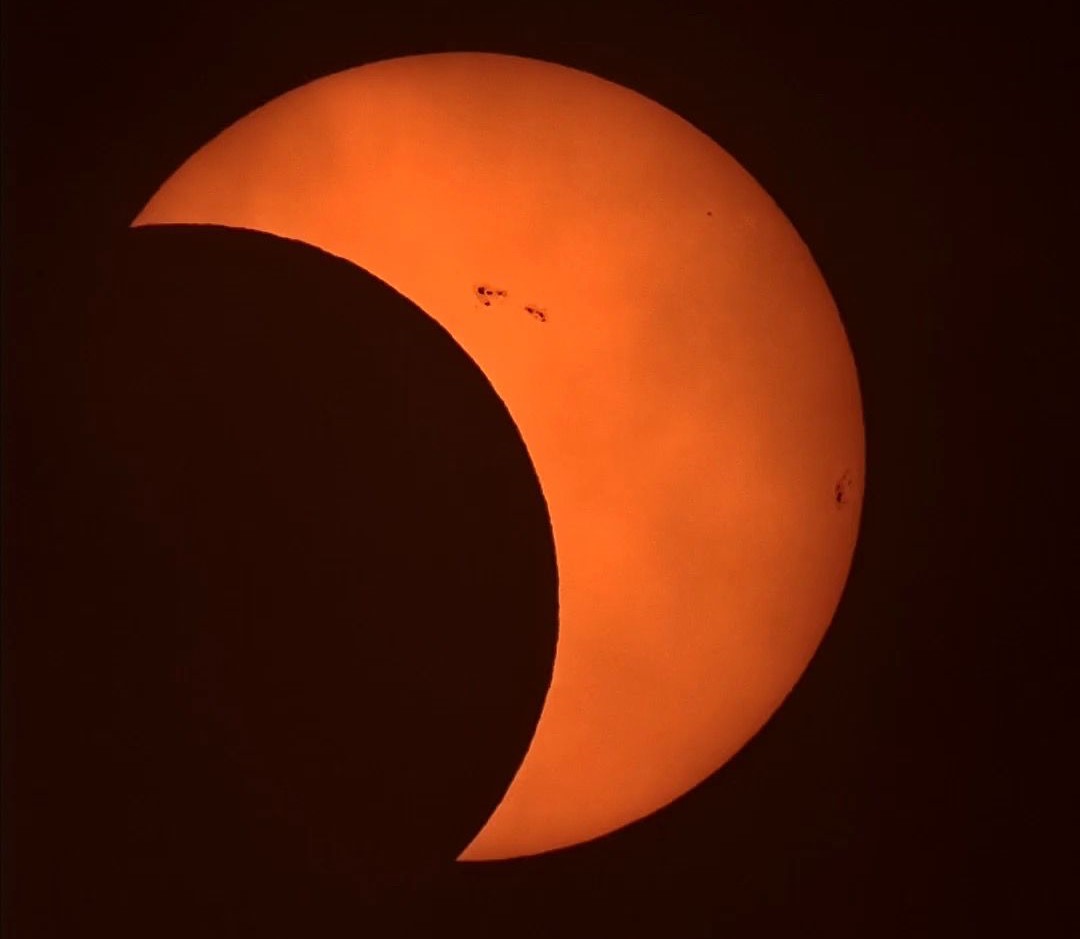
In the latest photo from Jamie Carter we can see the moon taking an even bigger "bite" out of the sun.
Not long until the famous "ring of fire" phase of the annular solar eclipse! Annularity, will occur between 3:03 to 3:09 p.m. EDT (1903 to 1909 GMT), from Easter Island/Rapa Nui.
Will the clouds hold off?
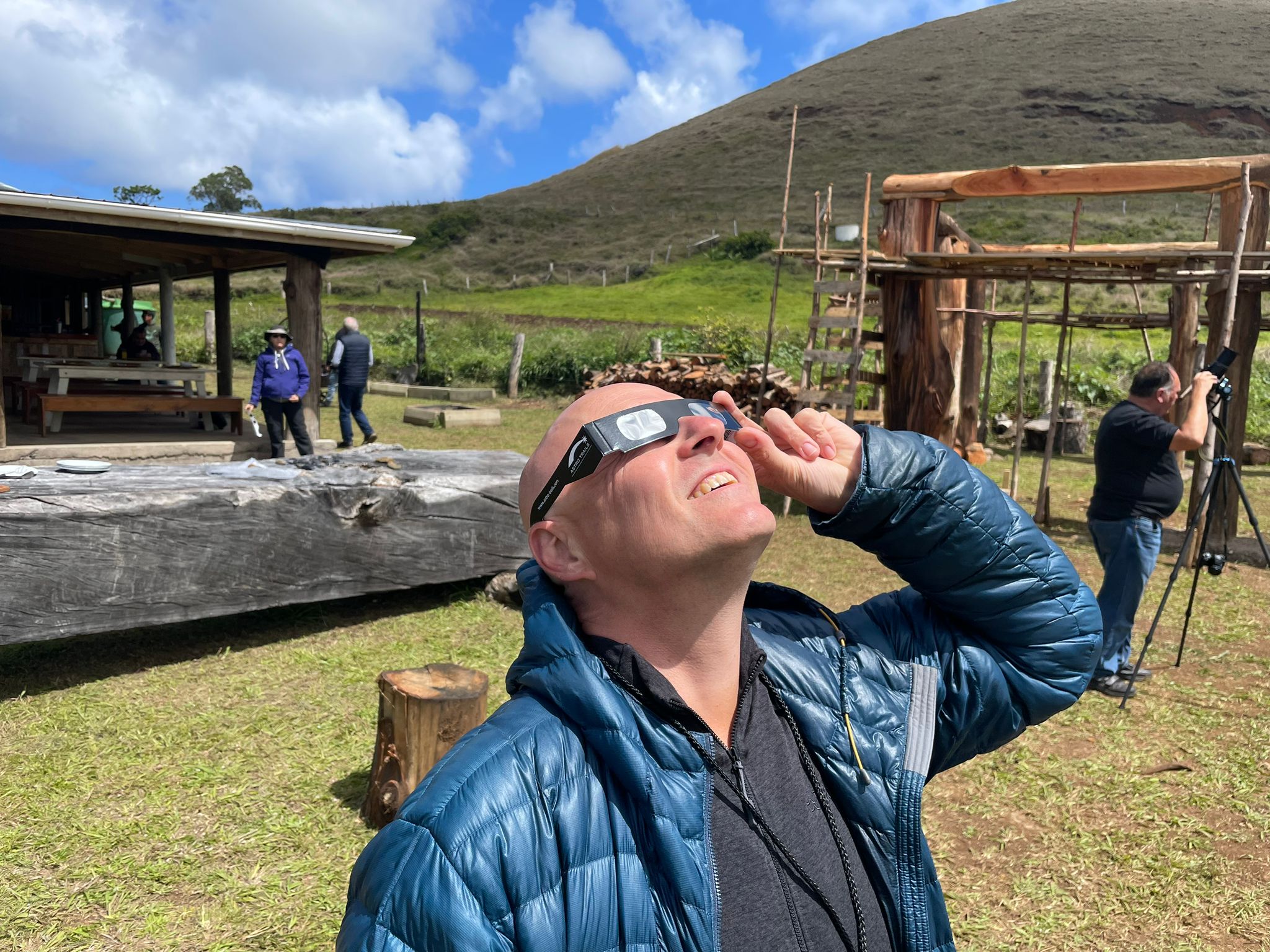
We’re staying positive here but it’s anyone’s guess if we’ll see it. The clouds are racing across the sky. But some of them are big. -- Jamie Carter, Easter Island.
Annularity, when the sun appears as a "ring of fire", will occur between 3:03 to 3:09 p.m. EDT (1903 to 1909 GMT), from Easter Island/Rapa Nui.
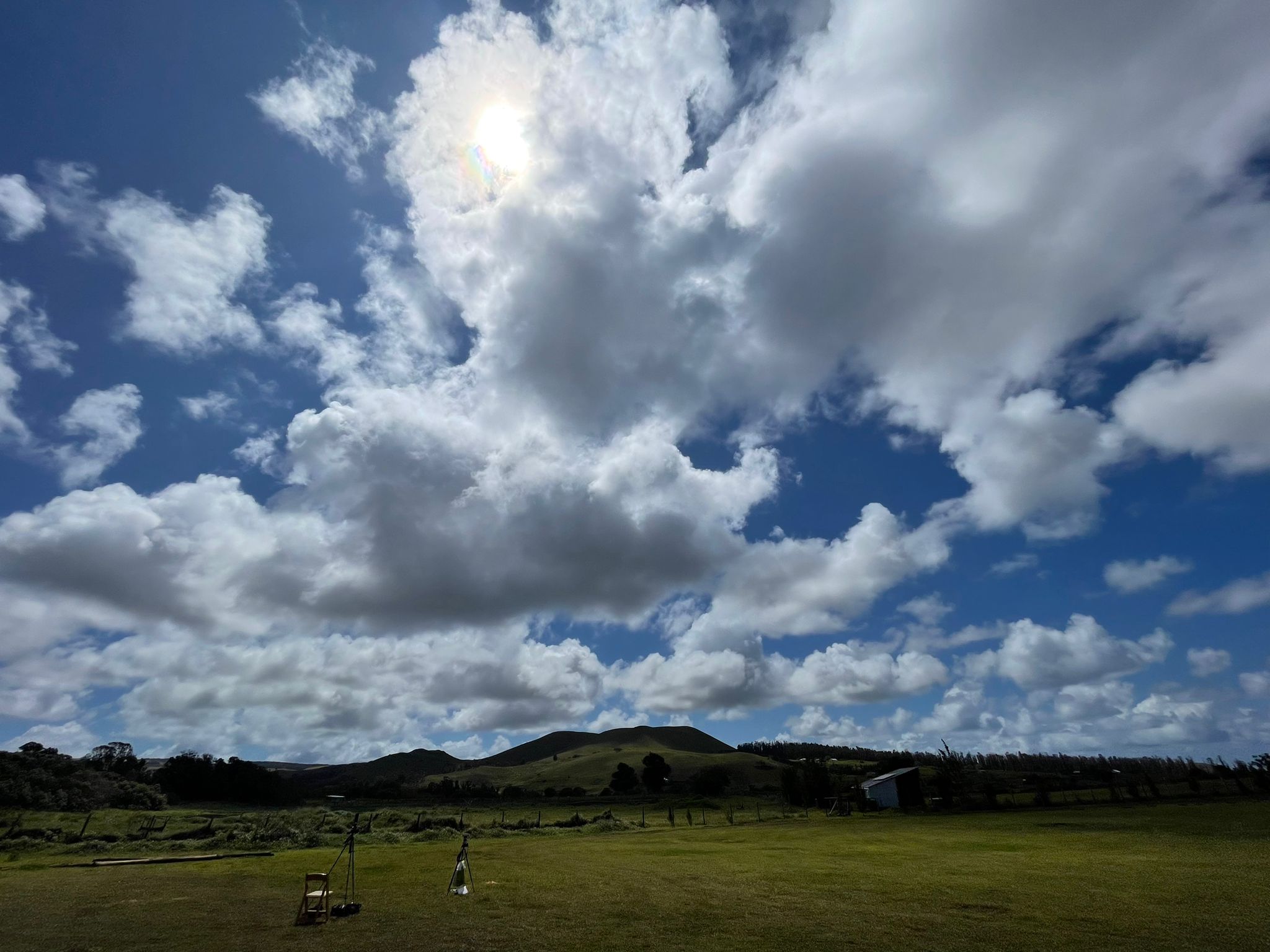
Here comes the moon
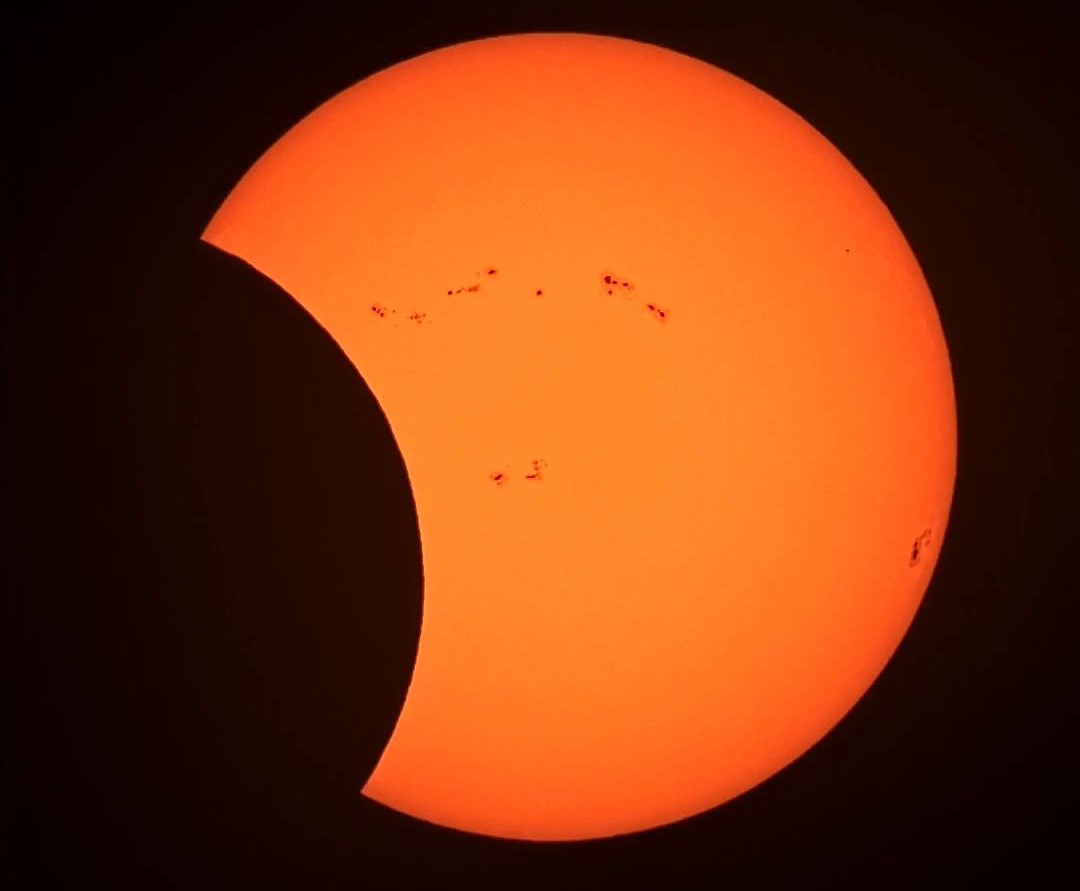
Jamie Carter has just sent us some incredible close up shots of the partially eclipsed sun from Easter Island. You can see the moon on the left side starting to creep across the solar disk. The dark patches on the sun are the impressive sunspots visible on the surface due to high solar activity.
Eclipse glasses are the ultimate accessory
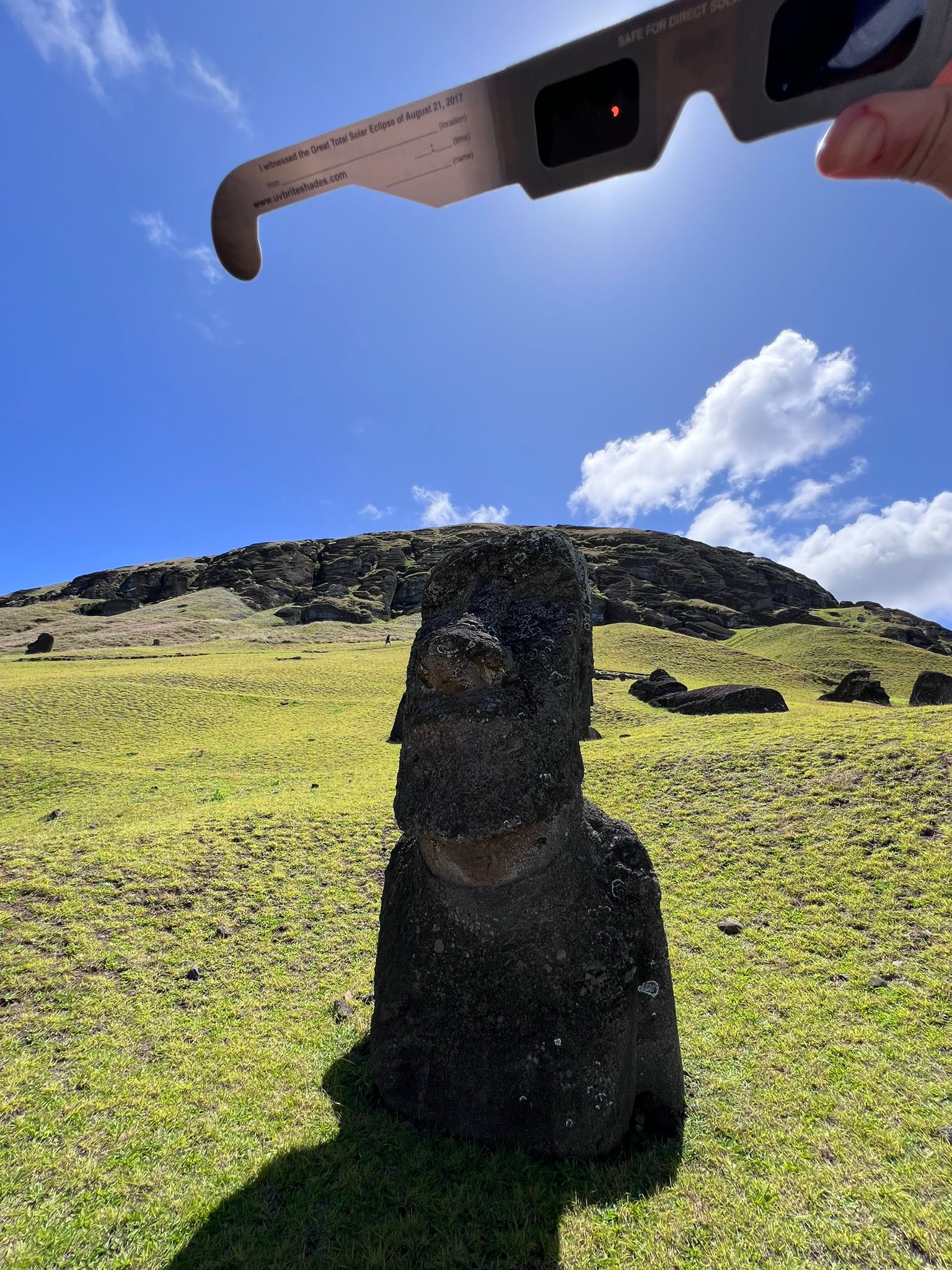
Josh Dury has just sent us this epic photo of annular solar eclipse from Easter Island. If you look carefully in the eclipse glasses you can just about make out the moon starting to eclipse the sun! T-1hour until annularity!
Great views from Easter Island
The moon is taking a rather large "bite" out of the sun and it isn't stopping anytime soon. The annular solar eclipse is well underway and you can watch watch the eclipse live here on Space.com courtesy of timeanddate.
Annularity, when the sun appears as a "ring of fire", will occur between 3:03 to 3:09 p.m. EDT (1903 to 1909 GMT), from Easter Island/Rapa Nui.
First views incoming!
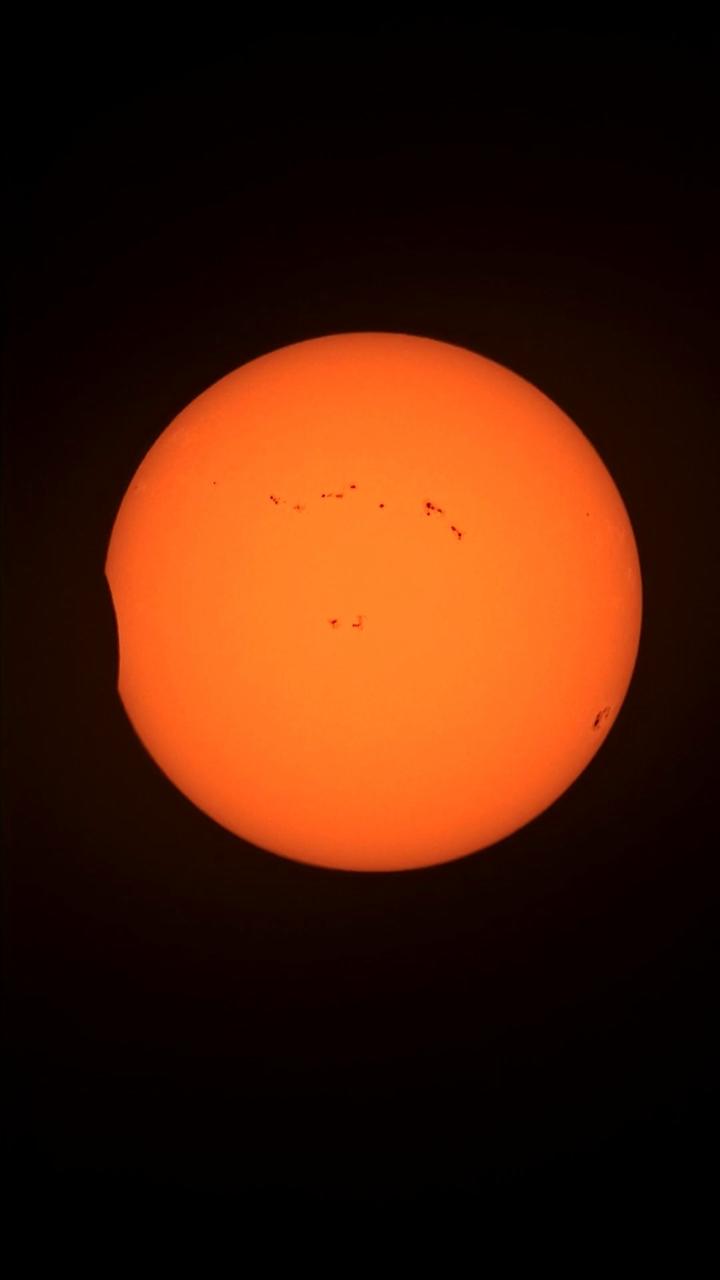
The first views of the partial phase of the annular solar eclipse are coming in. The moon is just appearing toward the left side of the sun.
"First contact! A completely clear sky as the moon appears. There’s a sense of relief here and now the excitement is building for the “ring of fire”. But that’s not for 100 minutes yet …" Jamie Carter told Space.com
You can watch the eclipse live here on Space.com courtesy of timeanddate.
Space.com contributor Josh Dury has a great view too

Award winning photographer Josh Dury is poised and ready for the annular solar eclipse over Easter Island. We can't wait to see what kind of photos he can capture!
"Thanks to our photography guide Martín Tuki, we could access the Rano Raraku Moai quarry", Dury told Space.com.
Dury is waiting for the first signs of the eclipse along with his Mum and Tuki.
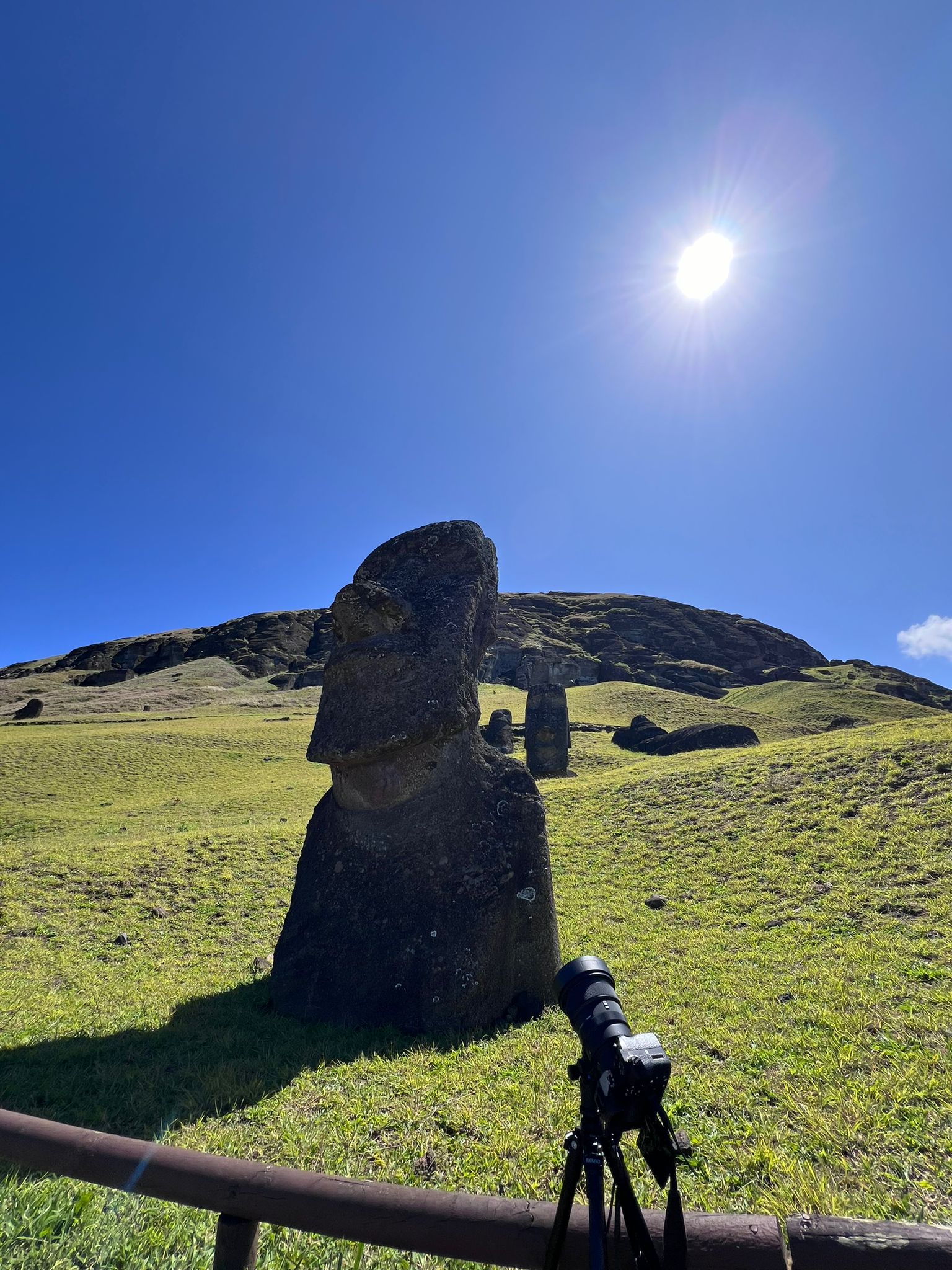
It's looking good!
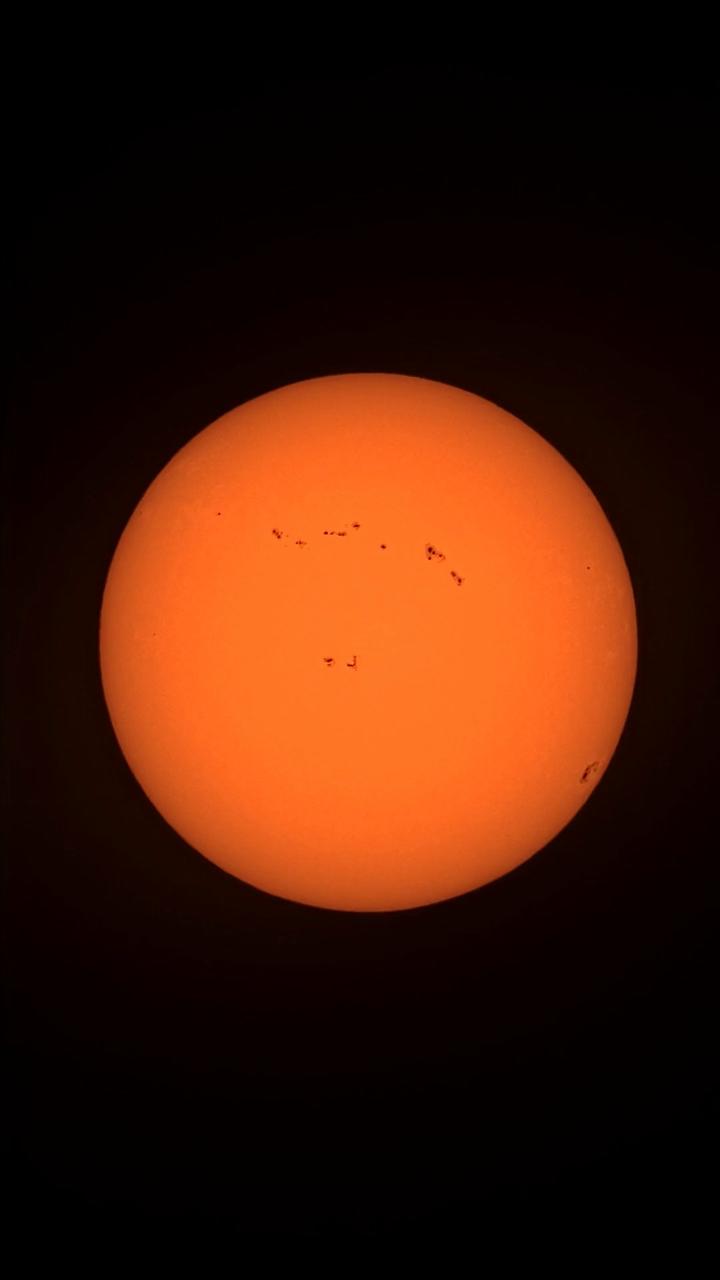
Plenty of sunspots today! 5 mins to go and the excitement is ramping up here. We’re just waiting for the New Moon to make an appearance on the left-hand side of the sun as we look at it. -- Jamie Carter
Eclipse chasers are setting up their equipment
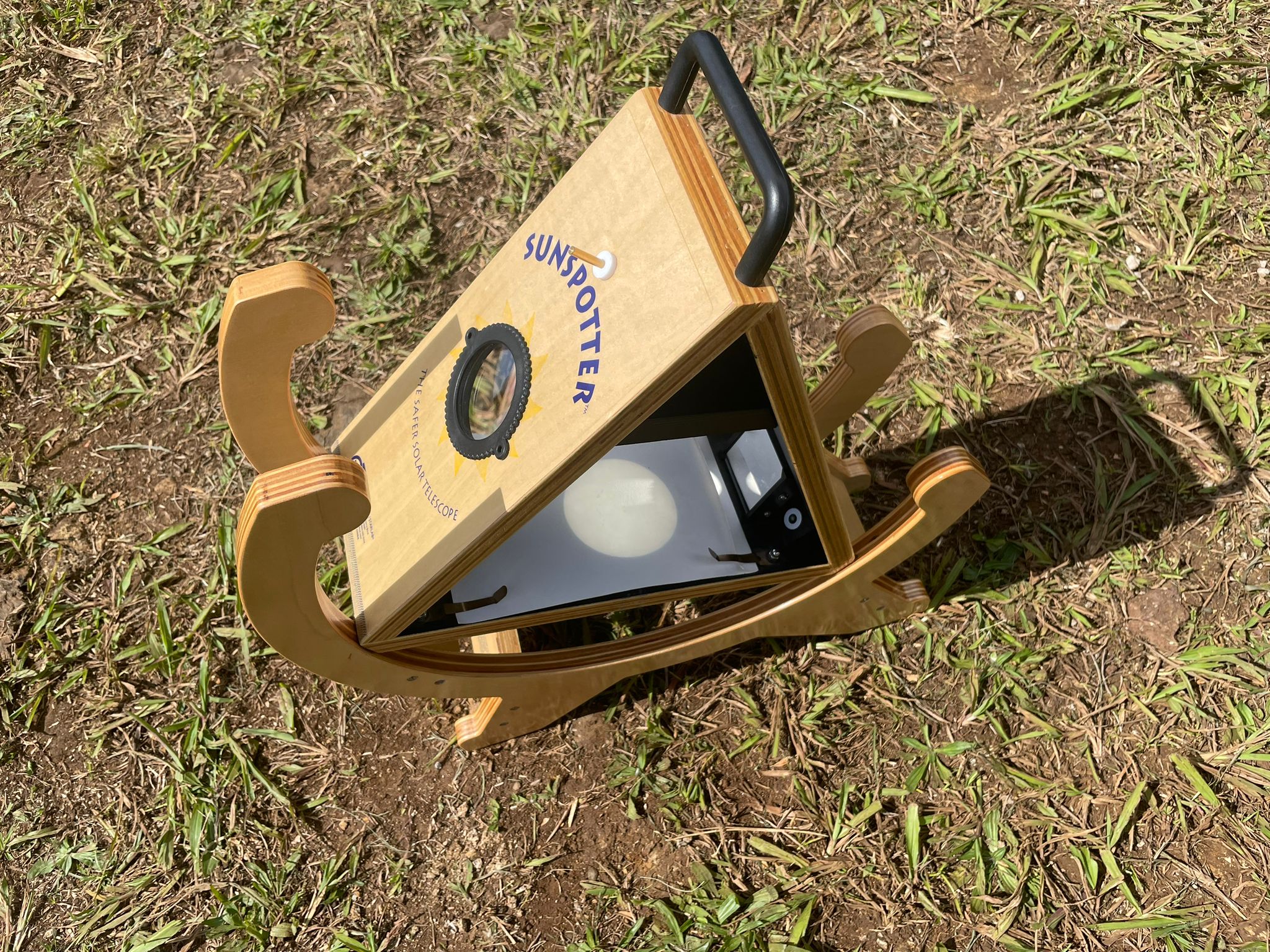
Eclipse chasers are so inventive. I’ve seen DIY solar filters on binoculars and LOTS of colanders and slotted spoons to project crescent suns and ringlets later. But the best has to be the SunSpotter, which projects an image of the sun – sunspots included! With the sun so active this week we’re seeing plenty of action on the solar surface. It’s going to be fun watching the moon cover those sunspots one by one – starting in a few minutes! -- Jamie Carter
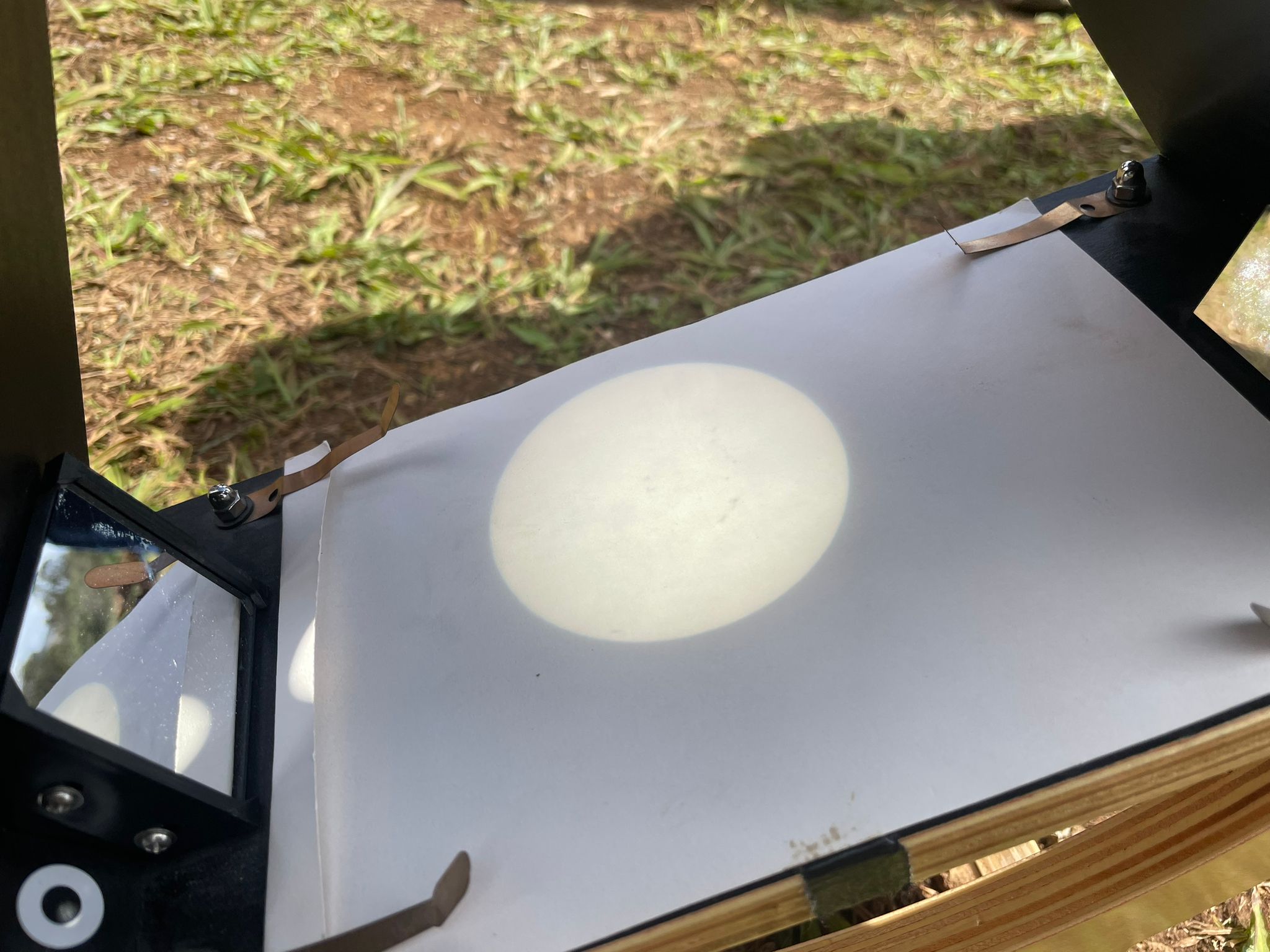
Will the weather hold?
It’s a bit tense here. We’re at an avocado farm near Puna Pau, a rock quarry used to mine for the hats on some of the moai. We’re reaching for rain hats at the moment, but after a few drops of rain it seems to have stopped. This is going to be a nail-biter. -- Jamie Carter
T-15 minutes to eclipse livestream
Soon the moon and sun will produce a dazzling "ring of fire" in the sky. The annular solar eclipse is going to be a sight to behold.
You can watch all the action unfold with this free annular eclipse livestream courtesy of timeanddate.com. Coverage starts around 1:15 p.m. EDT (1715 GMT).
53 solar eclipses and counting
One of many experienced eclipse-chasers on Easter Island is Patrick Poitevin from Tissington, England. He’s witnessed 53 solar eclipses – including 25 totals and 11 annulars — and regularly watches eclipses from the edges of the path. For this one, however, he’s come for the scenic view.
“Most of the time I go to the edge of the annular to see and measure the Baily’s Beads,” he said about the glittering beads of sunlight that fizz through the moon’s mountains at the eclipse’s peak. “But it’s also an excuse to travel and see the world.” Poitevin, who’s here with his partner Clare, will observe the eclipse in Hydrogen Alpha, Calcium K and White light using a Lunt 60mm H-Alpha solar telescope. He's thinking of visiting Iceland and Tahiti for next year's partial eclipses. -- Jamie Carter
Tropical storm incoming!
A tropical storm is approaching! A rain shower is predicted for eclipse time. Fingers are crossed! -- Jamie Carter
Something we've noticed...
Today’s annular eclipse on Easter Island includes a “meridian flip”. As well as taking place in the northern sky, the sun will cross the meridian — and be at its highest in the sky of the day — at solar noon during the brief annular phase. That will happen at 14:06 EASST, about 32 seconds before maximum eclipse at 14:07 EASST. It’s well after local noon because the EASST timezone is not a true reflection of Easter Island’s geographical position.
A spot of pre eclipse stargazing
Yesterday night, we went stargazing with a local astronomy group on the north coast of Easter Island to Pu o Hiro. We watched the waves crash in on the volcanic coast beneath the upside down Summer Triangle.
After we got acquainted with the familiar northern hemisphere night sky, we turned 180 degrees to see the Southern Cross low on the horizon in the south, pointing towards Hadar and Alpha Centauri, the closest star to the solar system. Within minutes of us arriving, we could see the Milky Way, which got brighter and brighter as our eyes adjusted to the dark.
We did have a few clouds, but nothing could spoil our magnificent views of the galactic center right above us, the brightest part of the Milky Way, with its incredible star fields and the magnificent constellations of Sagittarius and Scorpius in all their splendour. -- Jamie Carter
Planning the perfect eclipse photo
I’ve spent the last few days not just looking at the marvellous moai, but also checking how high the sun will be in relation to them. The eclipse will take place between 56 and 66 degrees above the northern horizon. As far as I can tell, don’t expect lots of images of moai with the “ring of fire” above them. “The geometry of the viewing of them from Easter Island means that you won't be able to get a good view with statues in the foreground or the background or any or anything else on Easter Island,” says Mike Frost, my astronomer-guide for the week. -- Jamie Carter
How long will the annular solar eclipse last?
On Oct. 2, an annular — or "ring of fire" — solar eclipse will be visible from parts of the southern Pacific Ocean, Easter Island, southern Chile and Argentina, and the southern Atlantic Ocean. Central and southern South America, as well as Antarctica, will see at least partial phases.
How long the event's annular portion lasts depends on where you are both along and within the path of annularity.
Read more: How long will the annular solar eclipse on Oct. 2 last?
Where to watch the eclipse?
We’re currently pondering where to go to watch this eclipse, but having flown for six hours over the Pacific Ocean to get there, I’m still amazed that it makes land here at all. “Easter Island is pretty small — only about 15 miles wide and about five miles from top to bottom — and all of that lies within the track of annularity,” says Mike Frost, the astronomer-guide with Astro Trails, and contributor to the excellent new book "Eclipse and Revelation" as we explore the ancient villages in the lava tubes at Ana Te Pahu. The path of this eclipse is 162 miles (262 km) wide. “We're not actually on the centerline, so we don't get quite get the maximum possible length of annularity that we would if we were 40 miles to the southwest, but that doesn't matter too much,” he says. Eclipse chasers on Easter Island – of which there are about 200 – only miss out on about 60 seconds of annularity. “We're still getting going to get pretty much the full effect,” says Frost. “Wherever you are on the island, you're going to see it …. weather permitting." -- Jamie Carter
Eclipse souvenirs are essential
“Can I have all of the eclipse stamps please?” It’s not a phrase you’ll find in a guidebook, but it’s essential when you’re eclipse-chasing.
Today, I used that phrase at Hanga Roa’s tiny post office to buy an entire sheet of stamps from a perplexed sales clerk at Hanga Roa's tiny post office, not just for me, but for fellow chasers with a penchant for collecting eclipse souvenirs. Not only is a commemorative stamp being sold for this eclipse but also on sale was a “Totality Collection” set for the recent total solar eclipses seen from Chile in 2019, 2020 and 2021. Today’s eclipse stamps feature seven moai and cost $1,500 Chilean Pesos each. After much giggling from the sales clerks, the question I got in return was “Podemos tomarte una foto?” — can we take your photo? By now, I’m probably on Instagram with a story about meeting the strangest foreign eclipse chaser so far … -- Jamie Carter
Eclipse tours are big business
Once seen as a hobby for astronomers, eclipse-chasing has become big business, particularly since April 8’s total solar eclipse in North America. “ Interest in eclipse tours has risen significantly since the pandemic ,” said Julie Butler, Chief Explorer at Astro Trails . “We guess more people are doing things that have sat on their 'bucket list' for too long.” Astro Trails were one of only two operators to get a small group of eclipse-chasers into Argentina during the pandemic — when the country was officially closed to visitors — for a total solar eclipse on Dec. 14, 2020. The company then took over a thousand people to Texas last April and are close to capacity for the next two total solar eclipses in 2026 and 2027.
Still, traveling so far to see a “ring of fire” is a relatively new hobby. “We never really used do annulars because they never generated the numbers, but they’ve become more popular,” said Butler. “Our audience has changed, we have so many Americans and Canadians that travel with us, and they will go totals, annulars, anything. It doesn't really matter. They want the experiences and the photos.” -- Jamie Carter
Eclipse expert and Space.com contributor Jamie Carter is visiting Easter Island for the 'ring of fire' eclipse. Carter will share some of his experiences from his eclipse trip with us here throughout the day.
Weather prospects for the 'ring of fire'
As it stands, the weather for eclipse day looks good. Oct. 1 was sunny with patchy cloud — typical weather here — and the forecast for Oct. 2 is for the same. That said, there is about a 70% chance of cloud, according to Jay Anderson, eclipse weather expert at Eclipsophile, who’s here. Rapa Nui lies at 27° south latitude, beneath the subtropical anticyclone, but scattered cumulus and higher cirrus clouds are common. However, reports Anderson, the airport near Hanga Roa reports an average sunshine amount of 51 percent for the month, the highest along the entire eclipse track, but only eight days per month without rain. It’s hoped that the “eclipse cooling effect” — whereby the daytime heating of the ground that promotes the formation of convective clouds ceases as the sun is gradually covered by the moon, and the temperature inevitably cools slightly. “We stand a reasonable chance, but it's by no means guaranteed,” says Mike Frost. Fluffy clouds are racing across the sky here – which guarantees a nail-biter. After all, the "ring of fire" will only last up to six minutes. -- Jamie Carter
Eclipse reports from Easter Island
Today is the day for an annular solar eclipse! Eclipse expert and Space.com contributor Jamie Carter is visiting Easter Island for the 'ring of fire' eclipse. Carter will share some of his experiences from his eclipse trip with us here throughout the day. Stay tuned!
With 24 hours to go before the eclipse, we visited Ahu Akivi, a couple of miles inland from Easter Island’s west coast, home to the only moai – manifestations of the Rapa Nui ancestors — that face the ocean rather than a village. Not only that but these seven moai are possibly aligned to the stars. “Every 21st of September, people celebrate the spring equinox here,” my guide tells me, “because the seven moai are aligned with Tautoru.” Tautoru means Orion’s Belt — and the spring equinox was just a few weeks ago. I’m always suspicious about archaeoastronomy and alignments, so I got my compass out and confirmed that the ahu (platform) on which the seven moai perch is aligned north-south. Then I checked Stellarium on my iPhone and confirmed that Orion’s Belt rises in the east at midnight on the spring equinox directly behind the seven moai and is soon visible as a horizontal line behind them. Oral tradition has it that Ahu Akivi represents the seven explorers sent by a king in search of an island for his people to settle, who are said to have navigated here using the stars. -- Jamie Carter
Why so different from April's total eclipse?
What is about to happen is completely different from April 8's total solar eclipse. This time, it's annular and the orientation of the path is the opposite. On April 8, the path tracked from southwest to northeast. This time it will track from northwest to southeast. So what’s going on?
It's all down to geometry. Earth is farther from the moon and our planet is tilted a different way. The new moon on Oct. 2 will be at apogee, the farthest from Earth it gets on its monthly orbit. Occurring almost exactly six months after April's total solar eclipse means that the angle of the Earth's axis has changed with respect to the sun. It’s virtually side-on to the sun (as it always is during the equinox in late March and late September), but angled the opposite way. The moon's shadow projected into space hasn't changed, but Earth's angle as it flies through it has. -- Jamie Carter
What time is the eclipse?
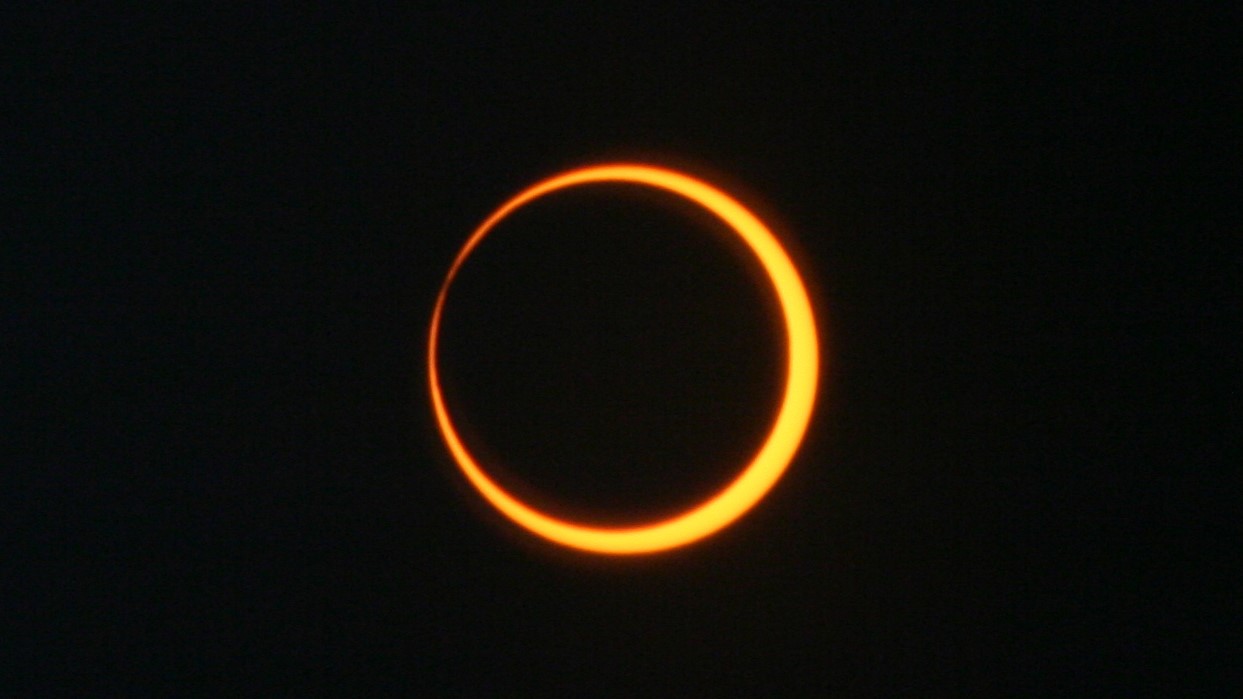
On Oct. 2, an annular solar eclipse will be visible from parts of the Southern Hemisphere. Although much of South America will see a partial solar eclipse, some observers will witness a "ring of fire" around the moon from within a narrow path of annularity.
The observer's location will dictate when the ring of fire will be visible.
The first location to see the partial phase of the annular eclipse begin will be at 11:43 a.m. EDT (1543 GMT), according to timeanddate.com, the first location to see the annular phase of the eclipse begin will be at 12:50 p.m. EDT (1650 GMT) and the first location to see the maximum eclipse will occur at 2:45 p.m. EDT (1845 GMT).
However, the best time to watch livestreams will be from 3:03 to 3:09 p.m. EDT (1903 to 1909 GMT), when the ring of fire will be seen for up to 6 minutes, 11 seconds from Easter Island/Rapa Nui. This is where most livestreams, including one from timeanddate.com, will come from. You can watch the eclipse live here on Space.com.
Read more: What time is the annular solar eclipse on Oct. 2?
How fast will the annular solar eclipse on Oct. 2 travel?
On Oct. 2, an annular solar eclipse will be visible from the Southern Hemisphere. During this event, the moon doesn't completely cover the sun from our perspective on Earth, so it leaves a "ring of fire" around the moon.
The moon's shadow will appear to travel at vastly different speeds depending on your location. In some places, it will move faster than 6 million mph (10 million km/h); in others, it will travel as slow as 1,278 mph (2,057 km/h), or about the speed of a fighter jet.
Read more: How fast will the annular solar eclipse on Oct. 2 travel?
Why I'm going to Easter Island for the 'ring of fire' annular solar eclipse
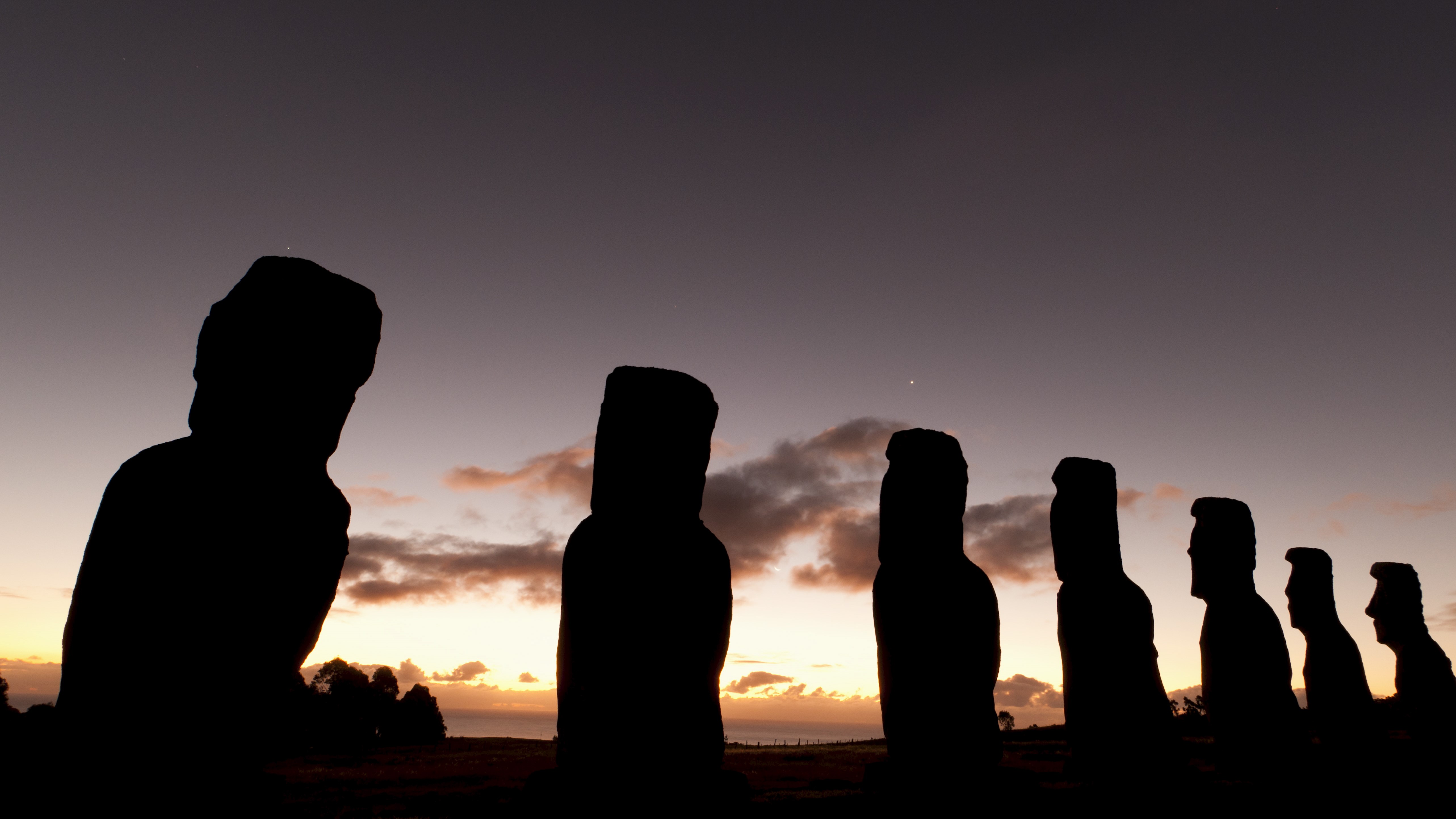
Would you travel 8,467 miles to see a ring around the moon for less than six minutes?
On Oct. 2, 2024, a few hundred eclipse chasers will be on the volcanic Easter Island — called Rapa Nui by natives and one of the most remote places on Earth — to witness an annular solar eclipse.
I'll be one of them, reporting for Space.com while embedded with AstroTrails.
Read more: Why I'm going to Easter Island for the 'ring of fire' annular solar eclipse
1 week to go!
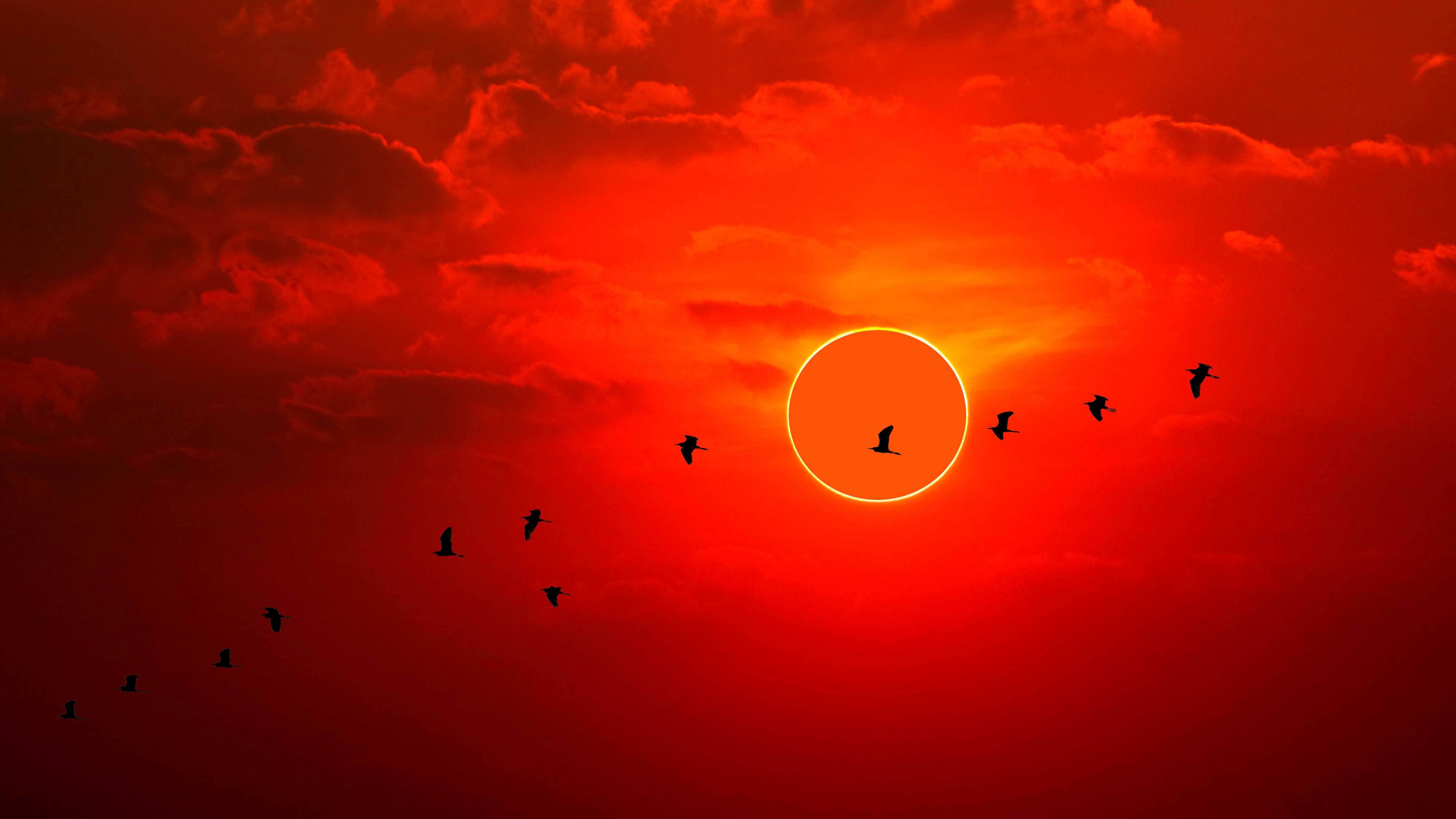
With just one week until an annular solar eclipse will be visible over parts of the Pacific Ocean, southern Chile and southern Argentina, we take a look at everything you need to know.
Though the path of annularity — a 165 to 206-mile (265 to 331-kilometer) wide route where the moon will cover up to about 93% of the sun's disk — passes over a small portion of land, eager eclipse chasers unable to watch in person will be able to follow along here on Space.com's solar eclipse live blog and watch the action unfold via numerous livestreams. Details of which will be released closer to the time.
Read more: 1 week until annular solar eclipse turns the sun into a dramatic 'ring of fire'
One month to go! Are you ready?
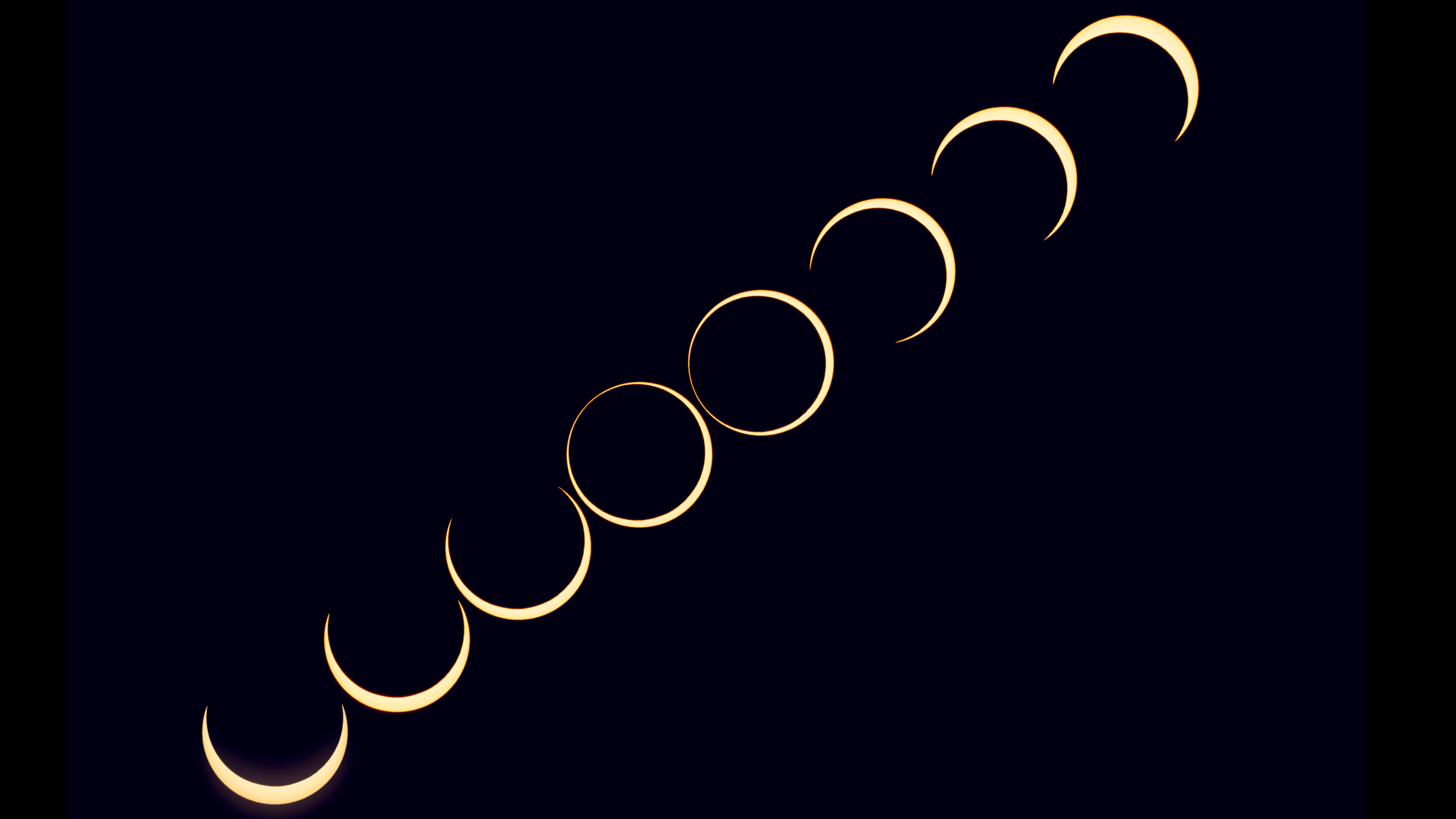
There's just one month to go until the annular solar eclipse 2024 is visible over parts of the Pacific Ocean, southern Chile and southern Argentina.
At 11:42 a.m. EDT (1542 GMT) on Oct. 2, the moon will begin to turn the sun into a dazzling "ring of fire" during the annular solar eclipse 2024. Maximum eclipse will occur at 2:45 p.m. EDT (18:45 GMT).
Read more: 1 month until the annular solar eclipse 2024: Here's what you need to know
Just over one month to go!
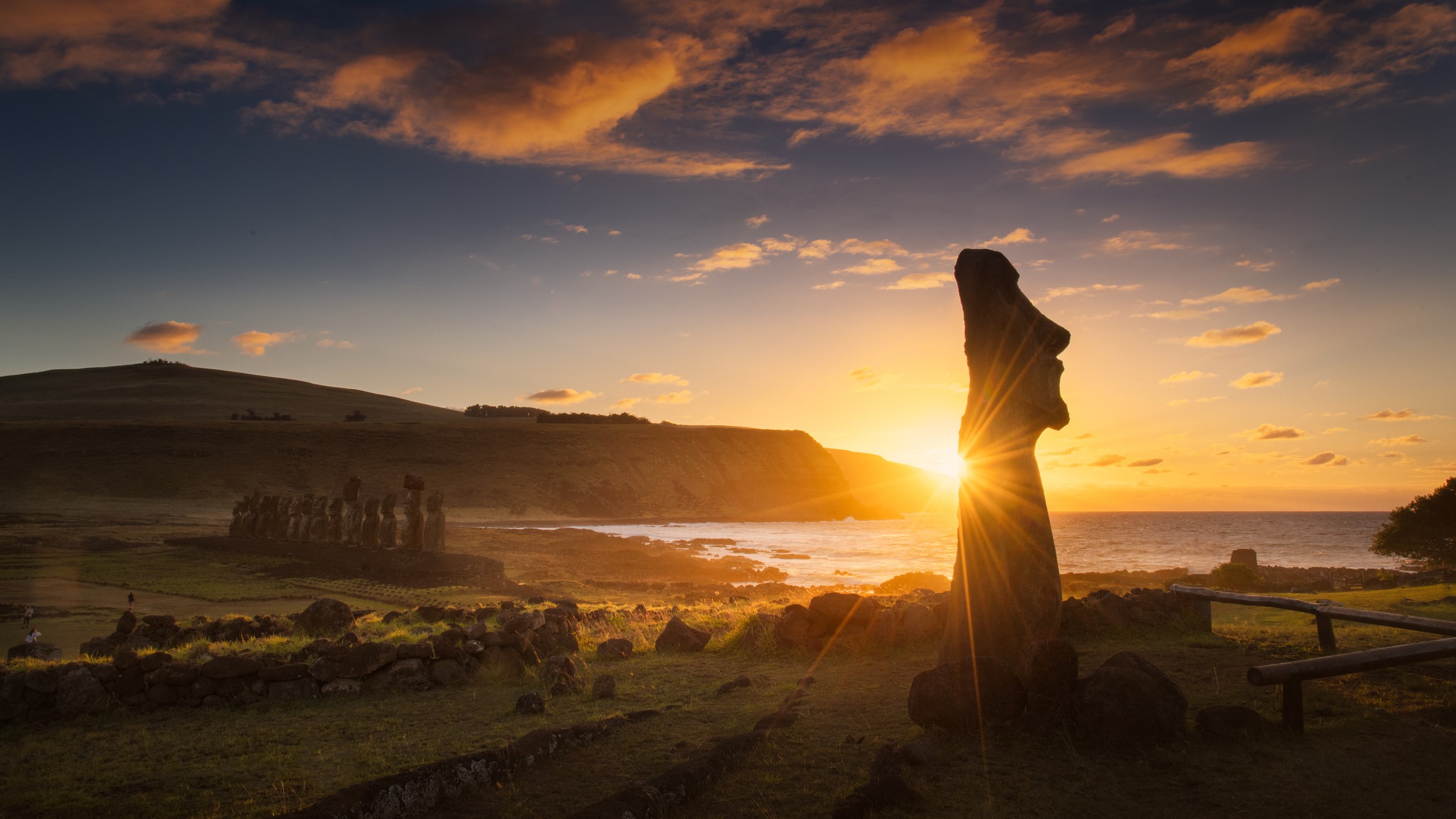
With just over a month to go until the moon turns the sun into an impressive "ring of fire" during the annular solar eclipse on Oct. 2, 2024.
The fiery effect will be visible to observers within a wide path of annularity, stretching across the Pacific Ocean and southern South America.
Read more: Where can I see the annular solar eclipse on Oct. 2, 2024?
It's still not too late to plan your October eclipse trip
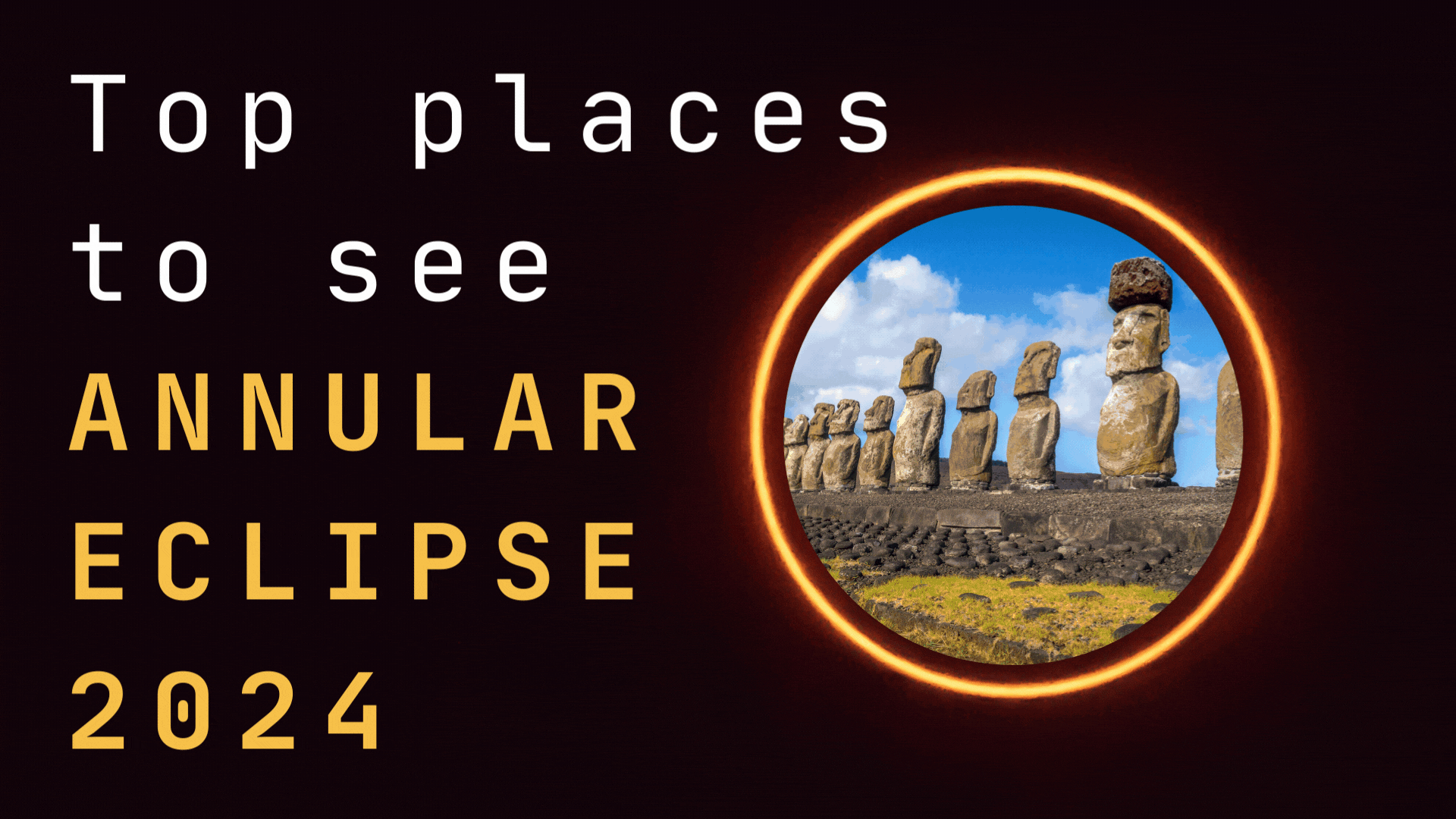
On Oct. 2, 2024, an annular solar eclipse, also known as a "ring of fire" solar eclipse will sweep across the Pacific Ocean, Easter Island and southern South America.
If you want to see the iconic eclipse but don't know where to start don't worry. Our guide is here to help and inspire.
Read more: 16 best places to see the annular 'ring of fire' solar eclipse 2024
Already thinking ahead to 2026? We've got you covered!
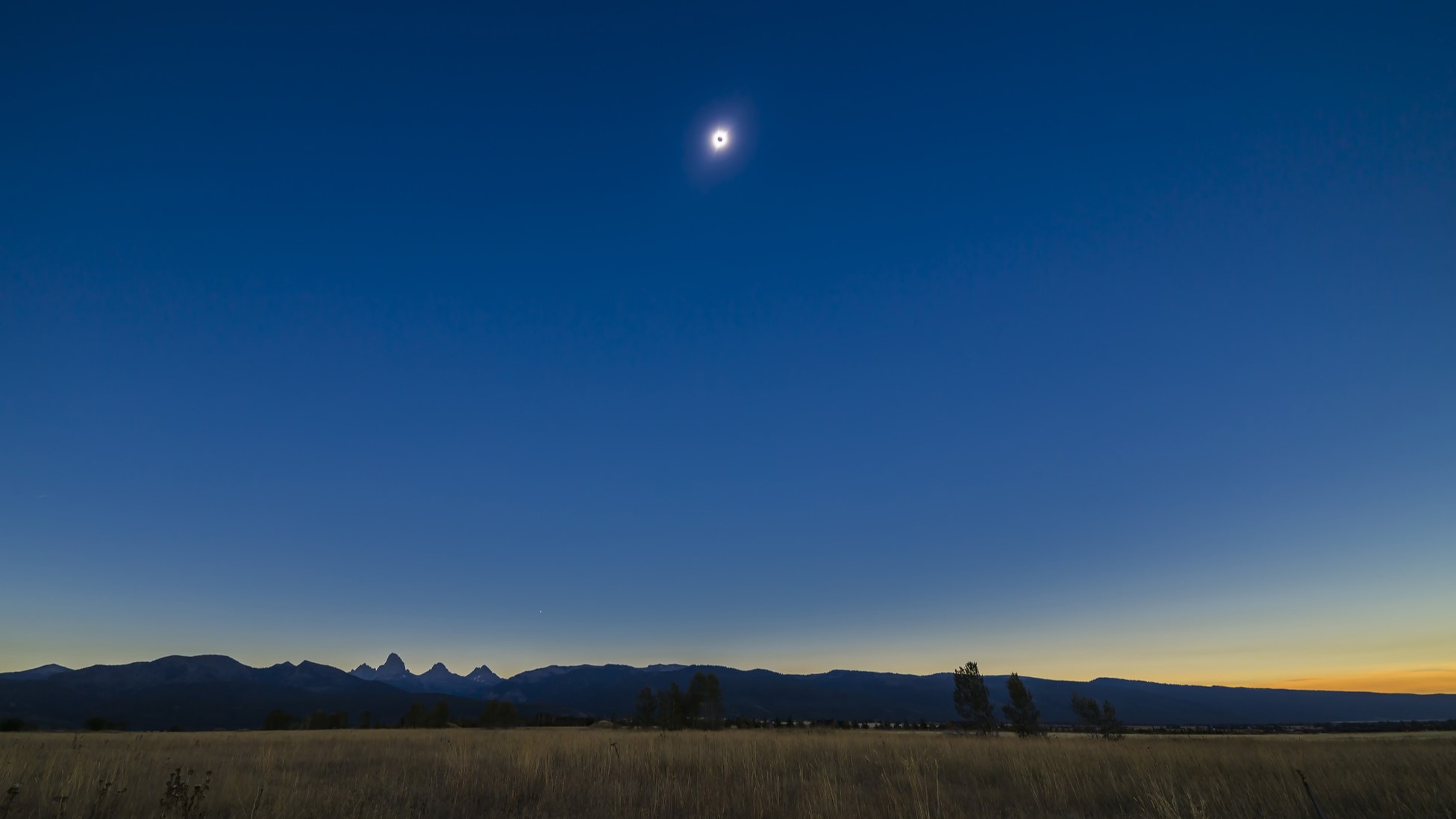
Our trip planning guide featuring 10 top tips will help you get the most out of your 2026 total solar eclipse viewing experience.
The total solar eclipse on Aug. 12, 2026, will be the first total solar eclipse visible from Europe since 2015 and the first in mainland Europe since 1999. However, only five countries will experience totality — when the moon's shadow completely blocks the sun's face — on Aug. 12, 2026. That day, the sun will rise totally eclipsed from a remote part of Siberia in Russia before the moon's umbra moves across eastern Greenland, western Iceland and northern Spain, clipping a tiny part of northeastern Portugal.
Read more: 10 tips for planning your 2026 solar eclipse trip
Top tips for the 'eclipse of the century' 2027
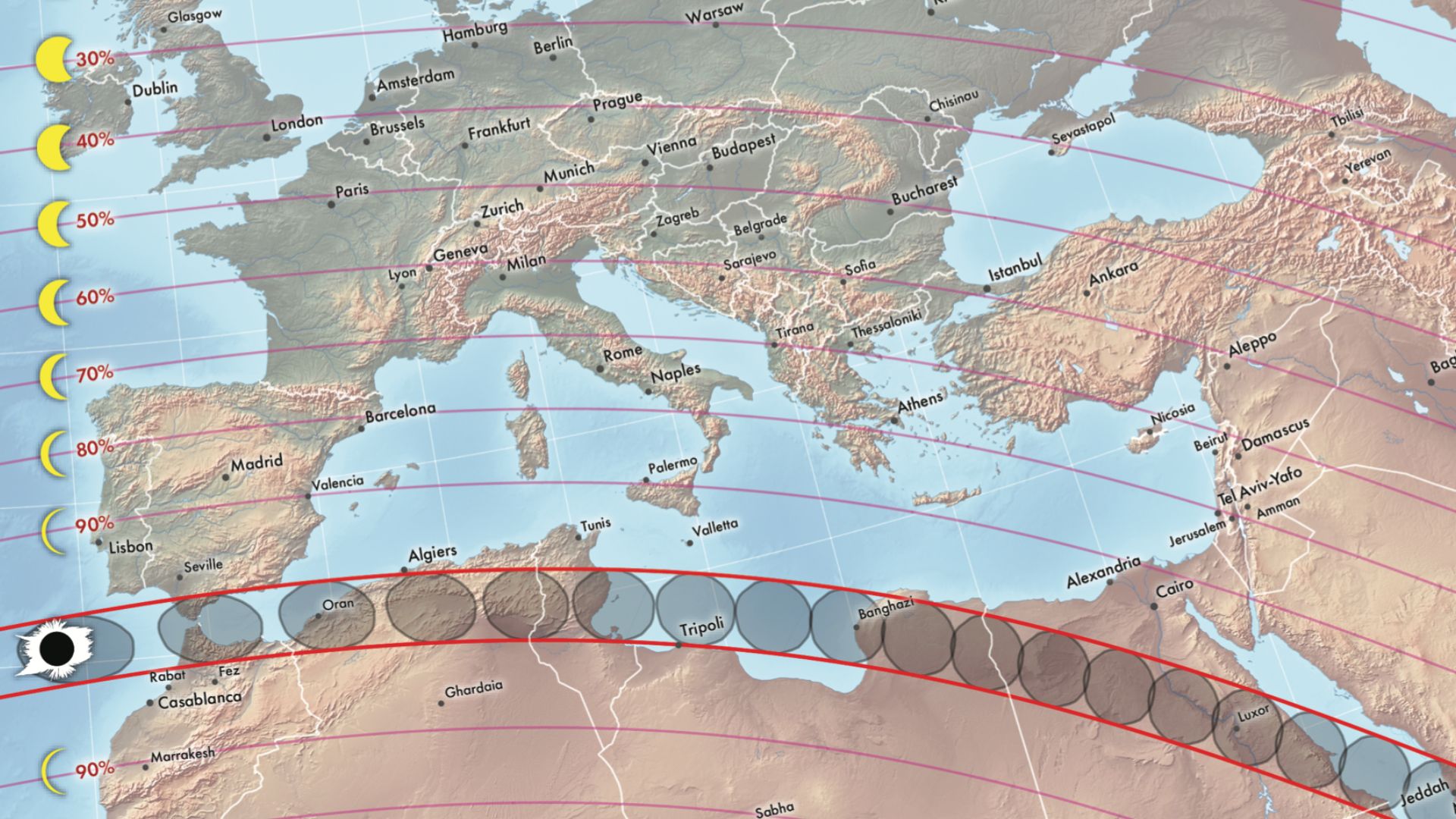
From understanding the weather to seeing the Milky Way, here's how to plan a trip to see the total solar eclipse on Aug. 2, 2027.
Perhaps the biggest draw of this landmark solar eclipse is the length of totality, which will reach 6 minutes, 23 seconds. The potential viewing locations will attract many onlookers, with ancient Egyptian temples and Roman ruins within the path of totality. And who can overlook the excellent weather prospects? Whereas clouds can often block eclipses, that's unlikely to happen on Aug. 2, 2027, because from some locations, there's a nearly zero chance of clouds.
Read more: 10 top tips for planning your 2027 solar eclipse trip
It's not too early to plan your trip for the 'eclipse of the century' in 2027
An eclipse of epic proportions will occur on Aug. 2, 2027 across North Africa it will be the longest totality on land since 1991 and until 2114.
Visible across southern Spain, northern Morocco, northern Algeria, northern Tunisia, northeast Libya, central Egypt, the northeastern tip of Sudan, southwest Saudi Arabia, Yemen and the northeastern tip of Somalia, the 2027 eclipse will be one of the most watched total solar eclipses ever with around 88.9 million living in the path of totality, according to Timeanddate.
You can find out more about the 2027 total solar eclipse here in our comprehensive eclipse 2027 guide.
Where will the next solar eclipse be visible from?

The next solar eclipse will be an annular solar eclipse on Oct. 2, 2024.
During the eclipse, the moon will not entirely cover the sun's disk and will leave a distinct ring of light around the moon.
This 'ring of fire' will be visible to those within a broad path across the Pacific Ocean and southern South America.
Read more: Where will the annular solar eclipse on Oct. 2, 2024 be visible?
Planning on viewing the annular eclipse in person? Here are the top viewing locations

For the best scenic spots and ideal locations to see the annular 'ring of fire' solar eclipse on Oct. 2, 2024, check out our guide.
From Rapa Nui to Argentina, here are 16 spots that could be perfect locations for this rare event.
Read more: 16 best places to see the annular 'ring of fire' solar eclipse 2024
Our best total solar eclipse 2024 photos collection keeps growing!
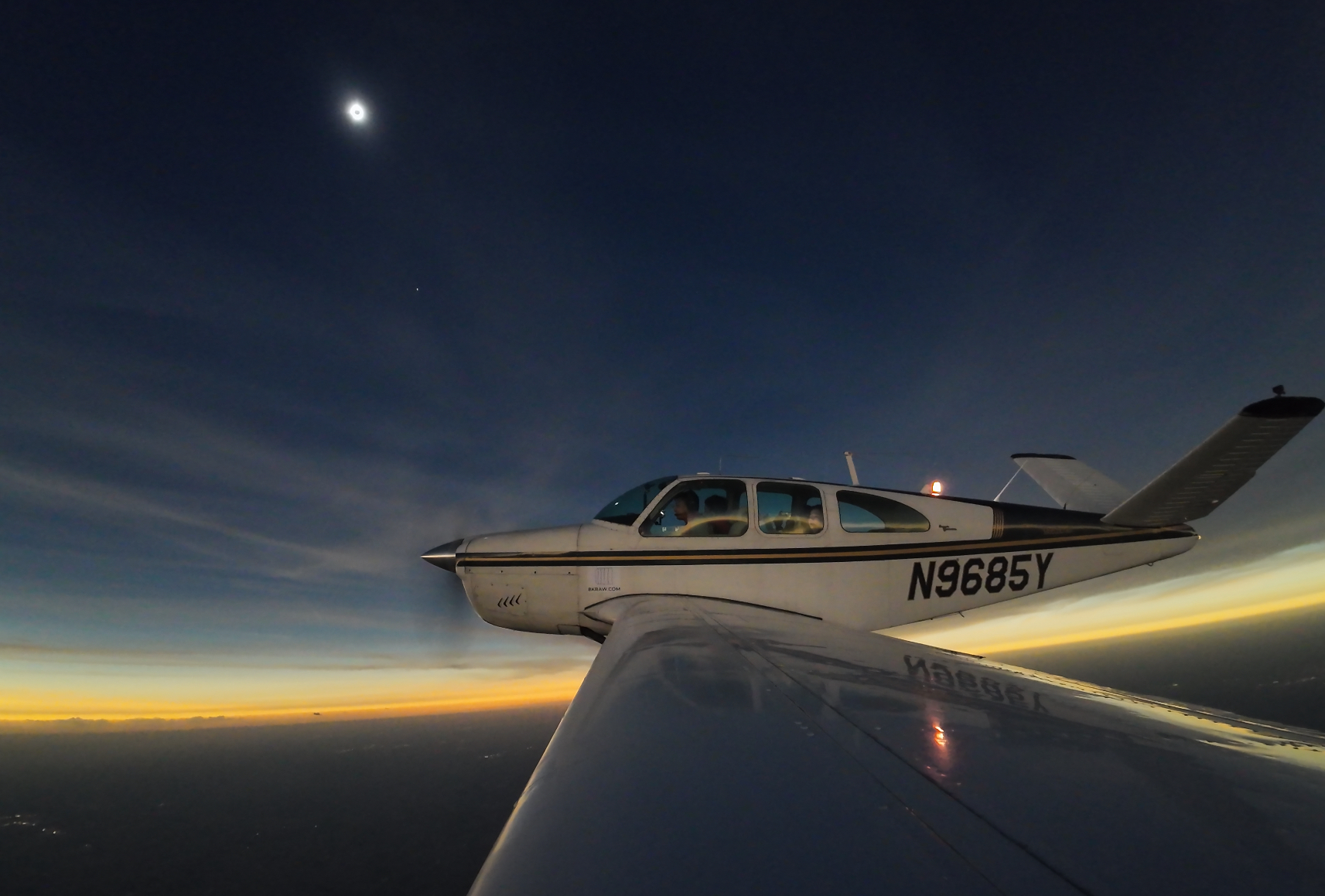
Just when we thought we'd seen it all, one of our readers sent in a few more amazing eclipse photos. So we've added them to our roundup!
General aviation pilot Sichun Wang took to the skies along with a friend for a unique view of the solar eclipse along with the 360-degree dawn that surrounded them. Wang told us it felt like piloting a spacecraft during totality when he tried to chase the sun.
Read more: 14 of the best total solar eclipse 2024 photos from our readers
Let's celebrate April's total solar eclipse with these 'totality awesome' photos
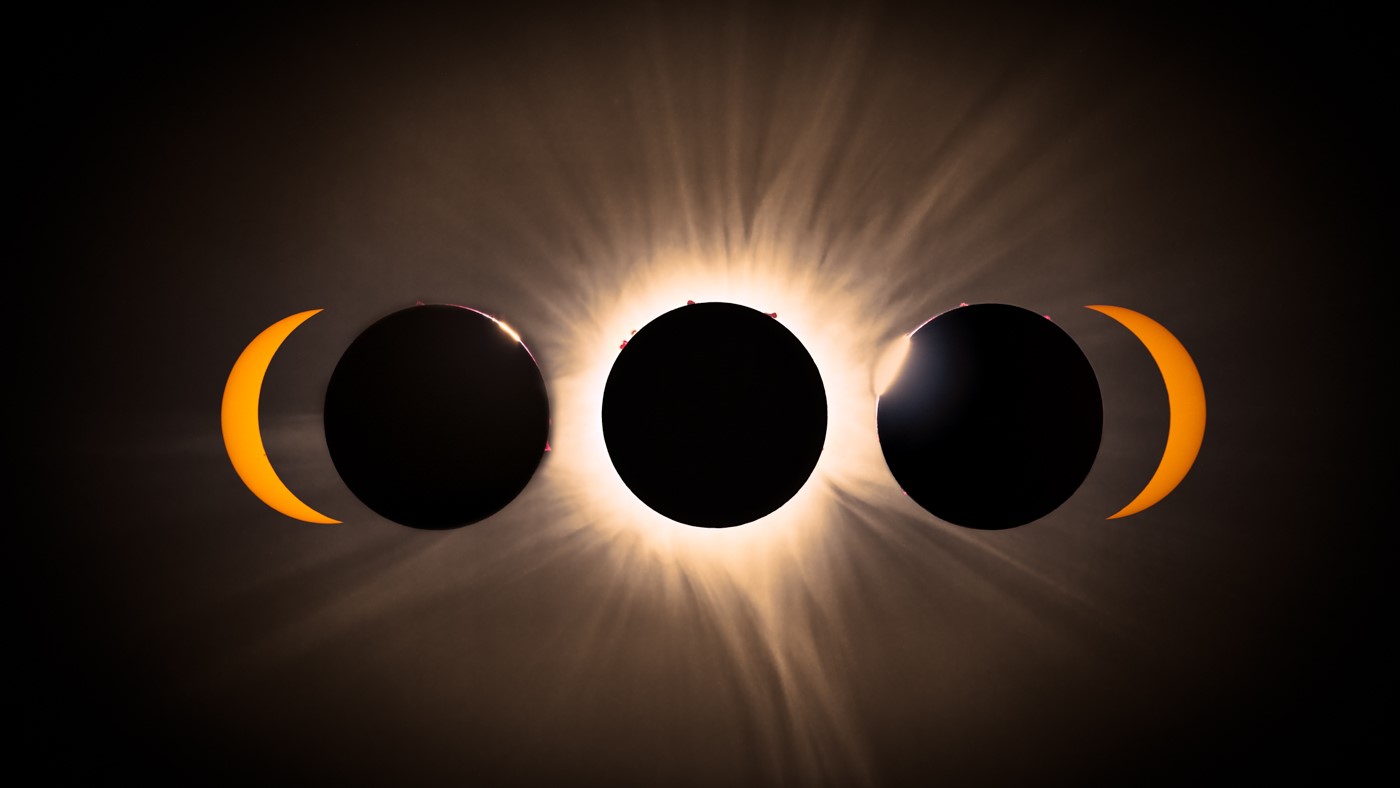
Though we may already be turning our sights on the annular eclipse on Oct. 2, 2024 that doesn't mean we've forgotten about the incredible eclipse many of us experienced just two weeks ago on April 8.
We celebrated shortly after the eclipse with a post-eclipse photo roundup story. But since then, the photos keep on coming!
Instead of letting many of these wonderful eclipse views go to waste sitting in our inbox, we decided to highlight some of the best eclipse 2024 Space.com reader photos here in another story for all to enjoy!
Read more: 12 of the best total solar eclipse 2024 photos from our readers
Already thinking ahead to 'Eclipse 2026'?

On Aug. 12, 2026, a total solar eclipse will come to Europe, the continent's first total eclipse in 27 years!
Visible in Greenland, western Iceland and northern Spain, the 2026 total solar eclipse will bring a maximum of 2 minutes and 18 seconds of totality the day before the peak of the annual Perseid meteor shower.
Read more: Eclipse 2026: The next total solar eclipse will be Europe's 1st in 27 years
A "ring of fire" is coming to South America
Next up on the solar eclipse agenda is the annular solar eclipse on Oct. 2, 2024, which will be visible in some iconic destinations.
The "ring of fire" solar eclipse will pass over parts of the Pacific Ocean, southern Chile (including the volcanic island of Rapa Nui/Easter Island) and southern Argentina.
Read more: Annular solar eclipse 2024: Everything you need to know about the next solar eclipse
WOW! Check out these incredible eclipse image
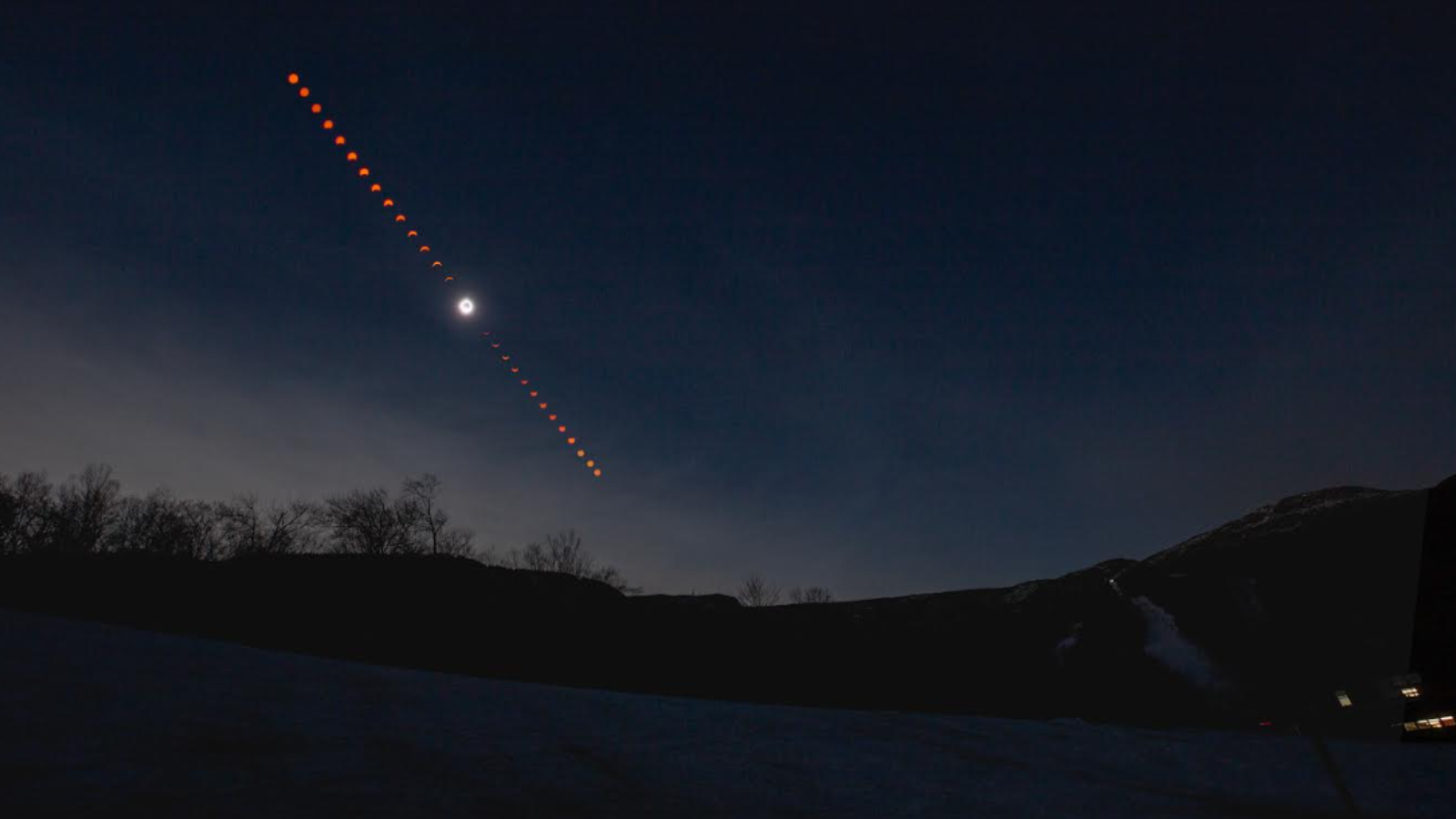
We have a lot of talented readers at Space.com, many of whom have kindly sent us some amazing eclipse images that we have showcased here in this gallery.
From diamond rings and Bailey's Beads to mesmerizing time-lapse sequences, check out these fabulous eclipse images of the total solar eclipse 2024.
Read more: These solar eclipse 2024 photos from our readers are absolutely amazing (images, video)
Don't forget to recycle those eclipse glasses
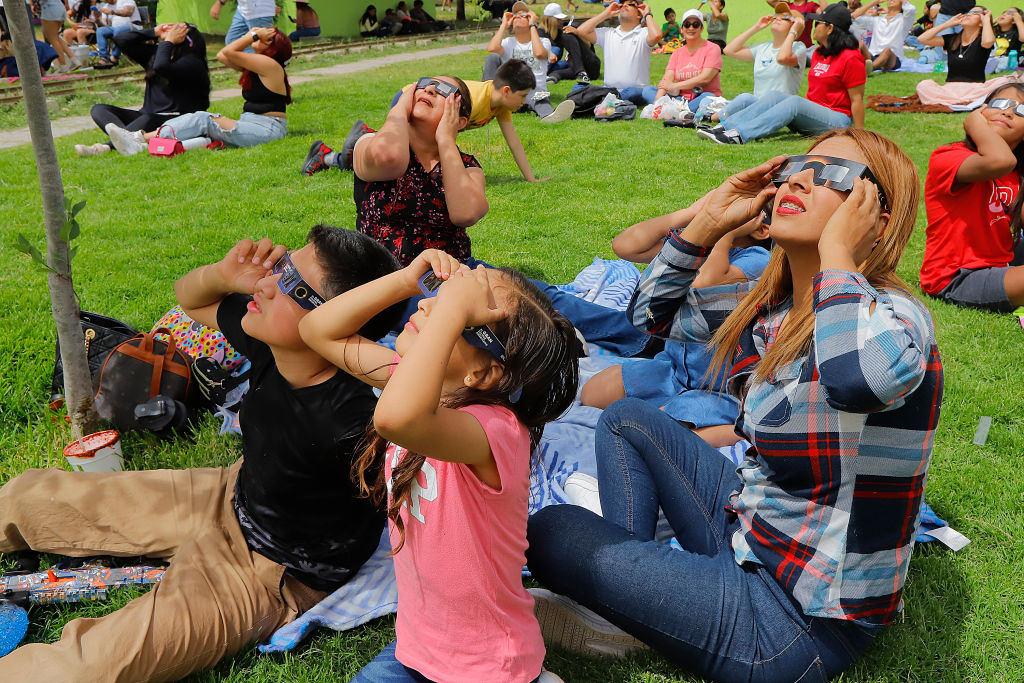
While it's worth holding onto your eclipse glasses so you can enjoy viewing the sun safely, some of you may have got hold of too many pairs and are looking at ways of disposing of them responsibly.
Read more: Here's what to do with your eclipse glasses
When is the next US eclipse I hear you ask...
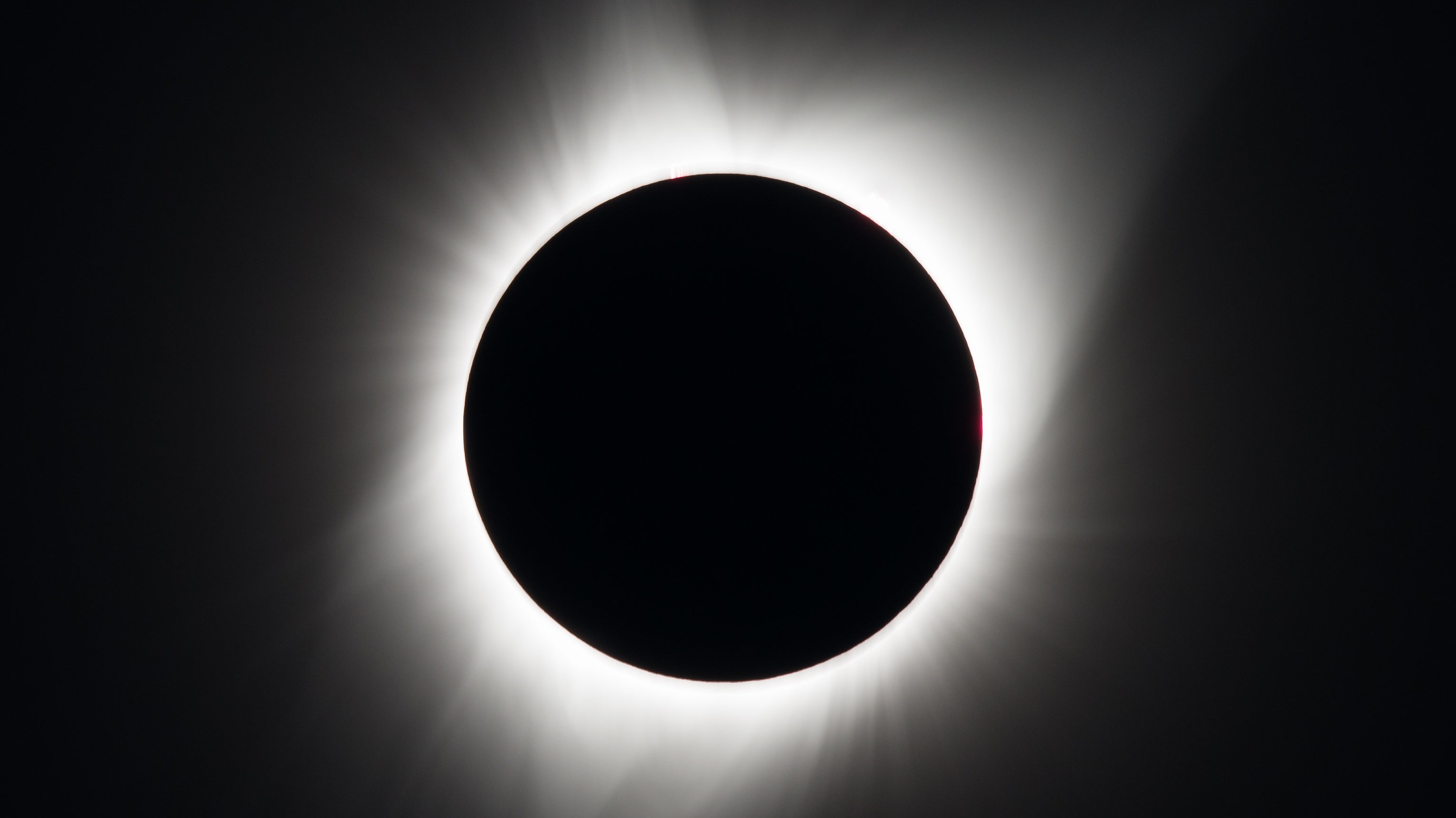
Well, it's going to be a little while until a total solar eclipse graces the U.S. with its presence.
While the year 2044 has been thrown around a lot recently as the next big year for a U.S. eclipse, there is actually one even sooner, though it is going to be far more remote.
On March 30, 2033, a total solar eclipse will be visible in remote regions of Alaska,
'You can take your glasses off now!'

From Potsdam, NY: Despite a thin layer of clouds, the total solar eclipse of April 8, 2024, did not disappoint a large crowd of spectators watching the celestial event from a park here at the State University of New York Potsdam.
Freshman business student Diamond Cromwell, 18, almost missed the eclipse.
"I can't see anything," he was overheard saying in totality.
"Oh! You can take your glasses off now! Hurry!" another spectator said.
Cromwell snatched the glass off his face and whooped in amazement.
"It was super unreal, I didn't expect that," Cromwell told Space.com after the eclipse. "It definitely blew my expectations out of the park.
That is a wrap for Space.com's coverage of the total solar eclipse on April 8, 2024. thank you for joining us for this incredible astronomical event.
The International Space Station sees the total solar eclipse from space
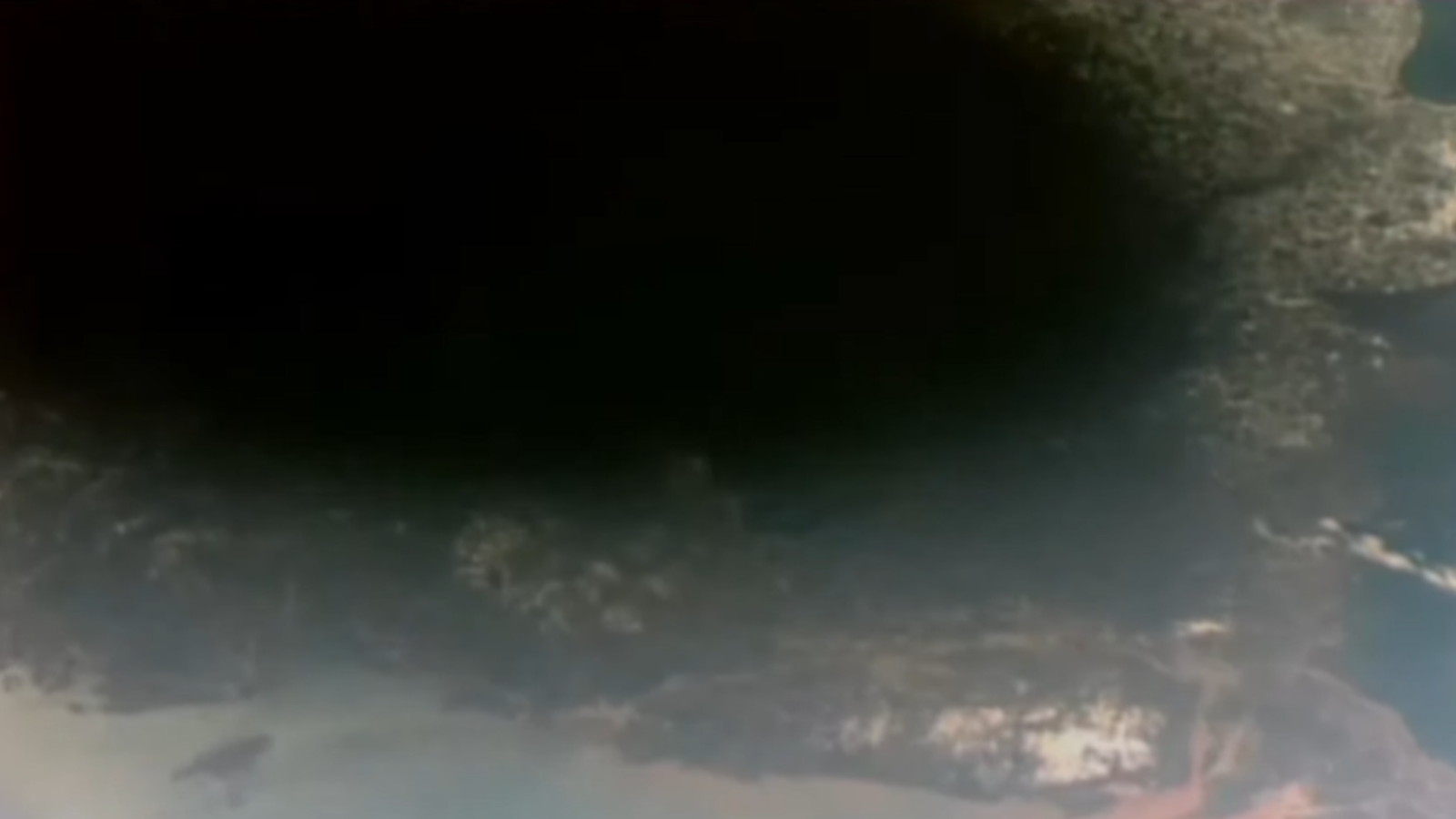
The astronauts at the International Space Station (ISS) had a unique view of the total solar eclipse. As totality arrived over Houlton, Maine, at around 15:33 EDT (19:33 GMT), the ISS caught an incredible image of the shadow of the moon falling on Earth, showing a clear delineation between regions in the totality and those outside it.
Diamond stuns eclipse watchers in Carbondale Illinois
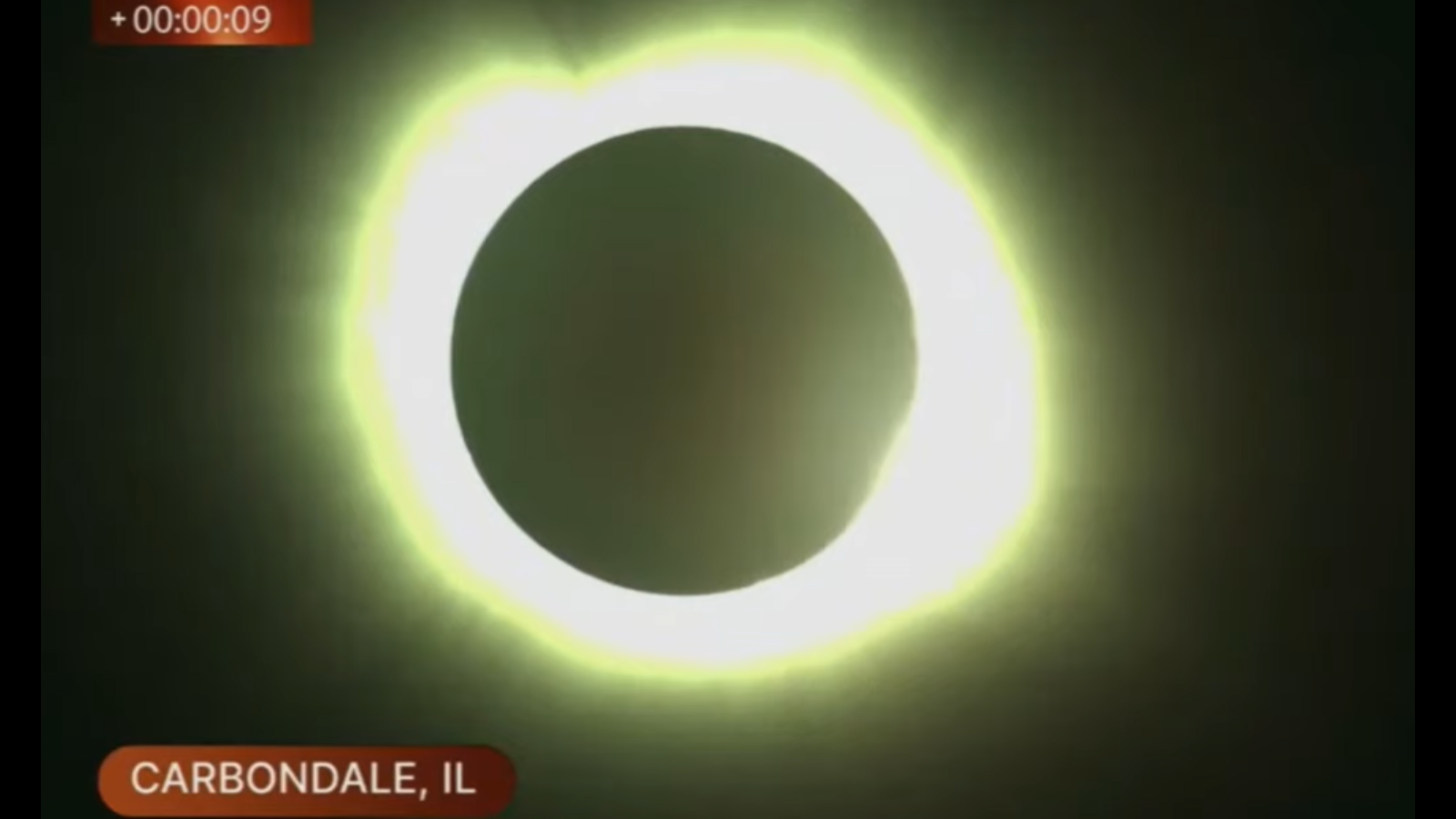
Totality hit Carbondale, Illinois, at around 15:00 EDT (1900 GMT), producing a diamond ring effect as the last light streamed past the moon that stunned onlookers. Also stunned was a disorientated bat that flew over crowds in this location as the sky fell dark, demonstrating the effect of the total solar eclipse on wildlife.
Totality in Texas!
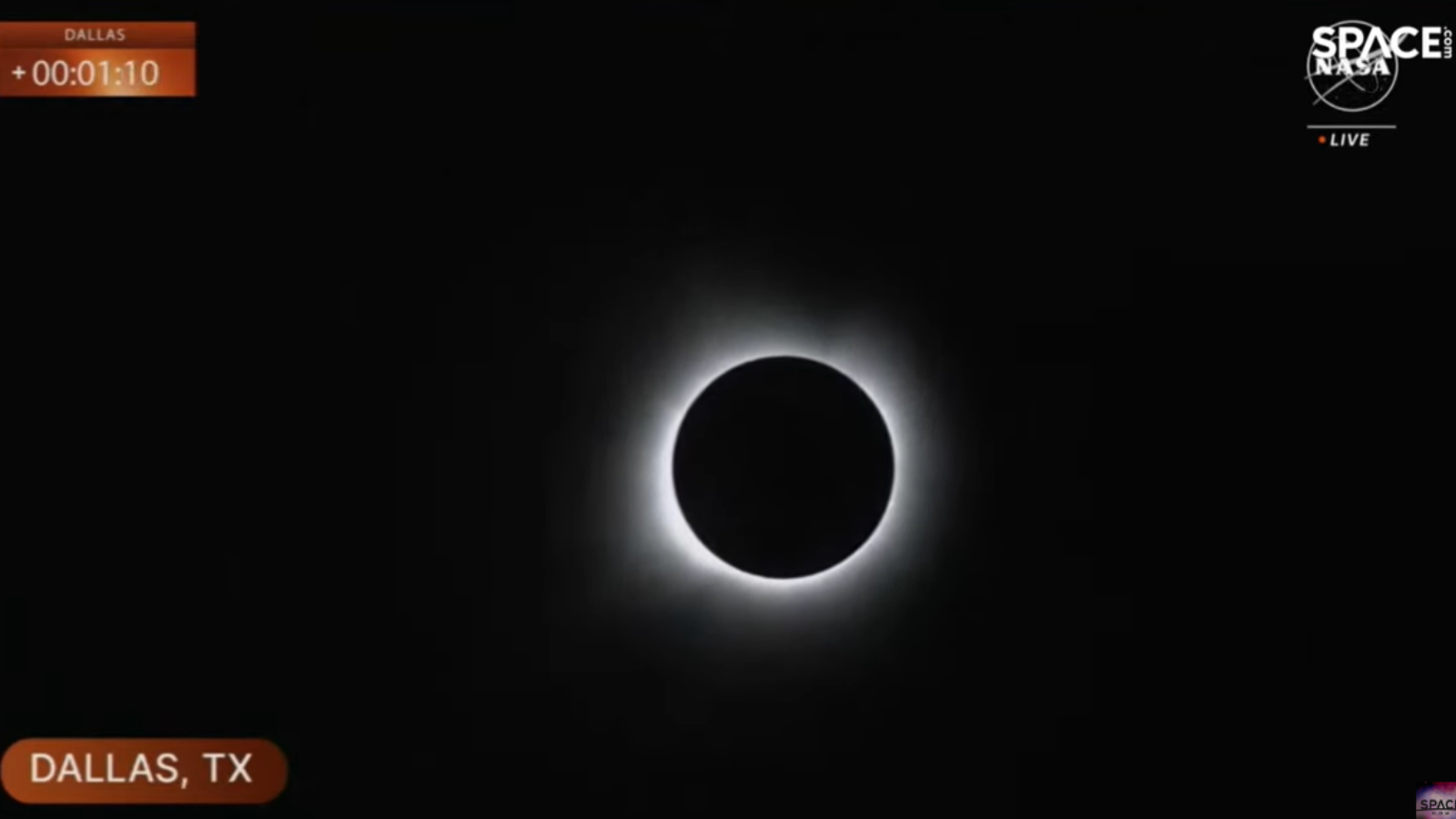
At 14:41 EDT (1841 GMT), the totality appeared over Dallas, Texas, as the moon completely covered the sun. This gave onlookers a brilliant view of the solar corona, the outer atmosphere of the sun, which is usually washed out by light from the sun's surface, the photosphere.
Eclipse watchers get the dog's life in Potsdam, NY

From Potsdam, NY: "Here at SUNY Potsdam, Ted, the Morale Officer, is on duty to help students and visitors relax during the 2024 total solar eclipse. He does do tricks for green bean treats and is such a good boy.
"Also, at the MakerSpace in the library, Casey DeJesus-Webb, a 23-year-old music education major, has been hard at work 3-D printing pinhole projectors for the solar eclipse. There's even an orange one!"--Tariq Malik
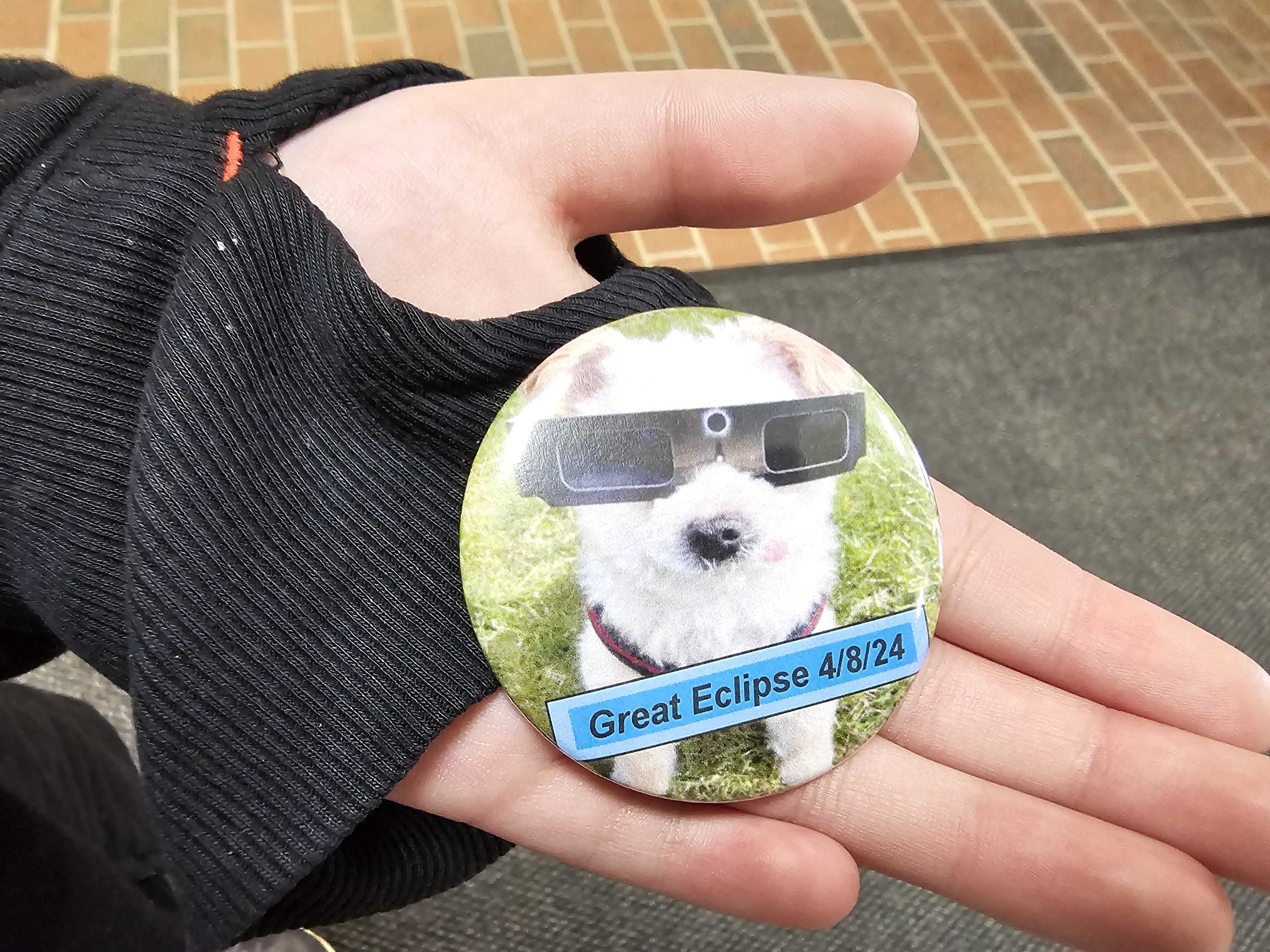
Cheers erupt in Rochester, NY, as the moon covers the sun
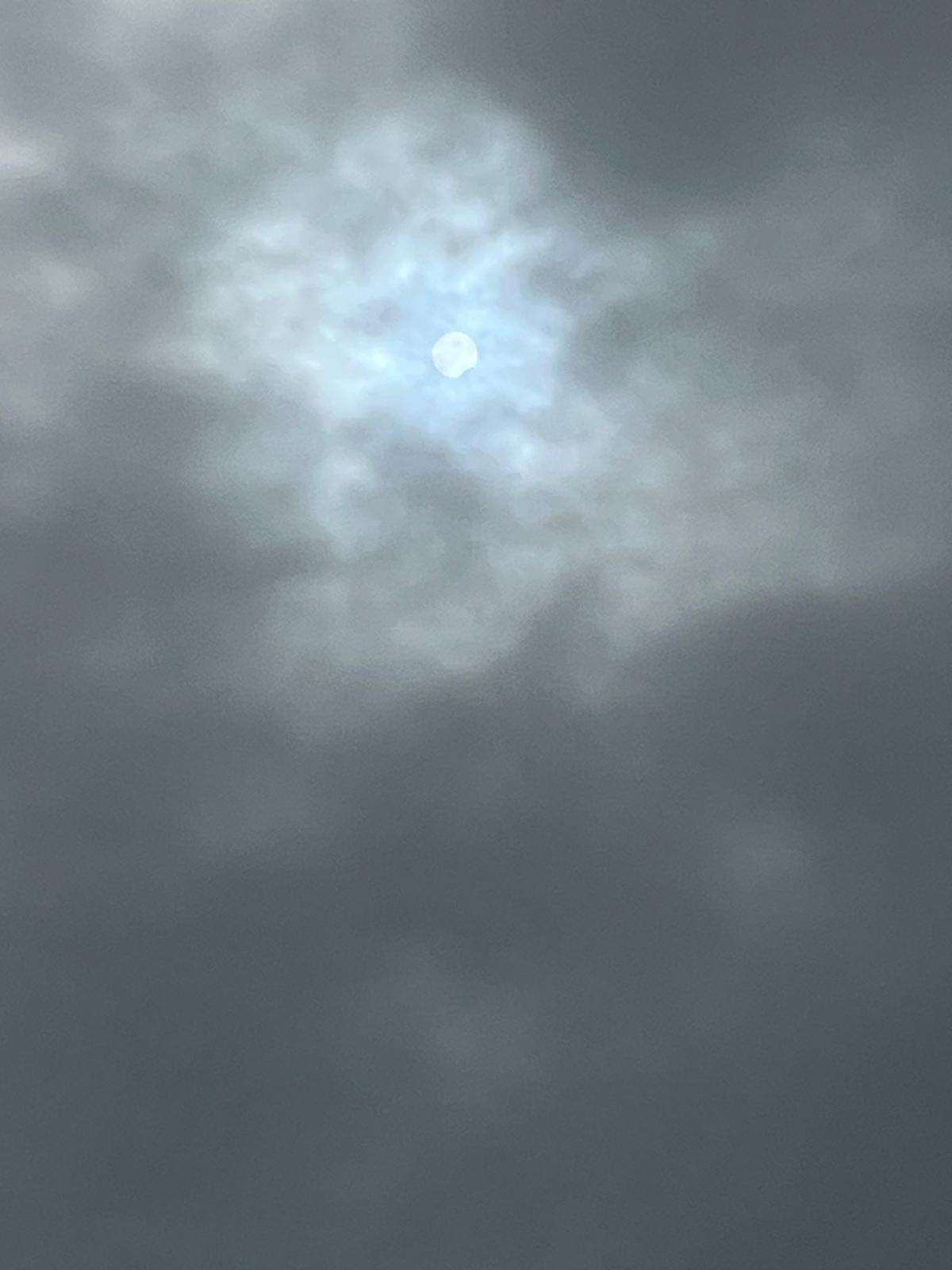
Rochester, NY: The moon began to cover the sun as seen from Rochester at around 14:15 EDT (18:15 GMT).
"A cheer erupted as people caught the first glimpse of the total solar eclipse from Rochester as the moon starts taking a bite out of the sun!"-- Daisy Dobrijevic
Totality is here!
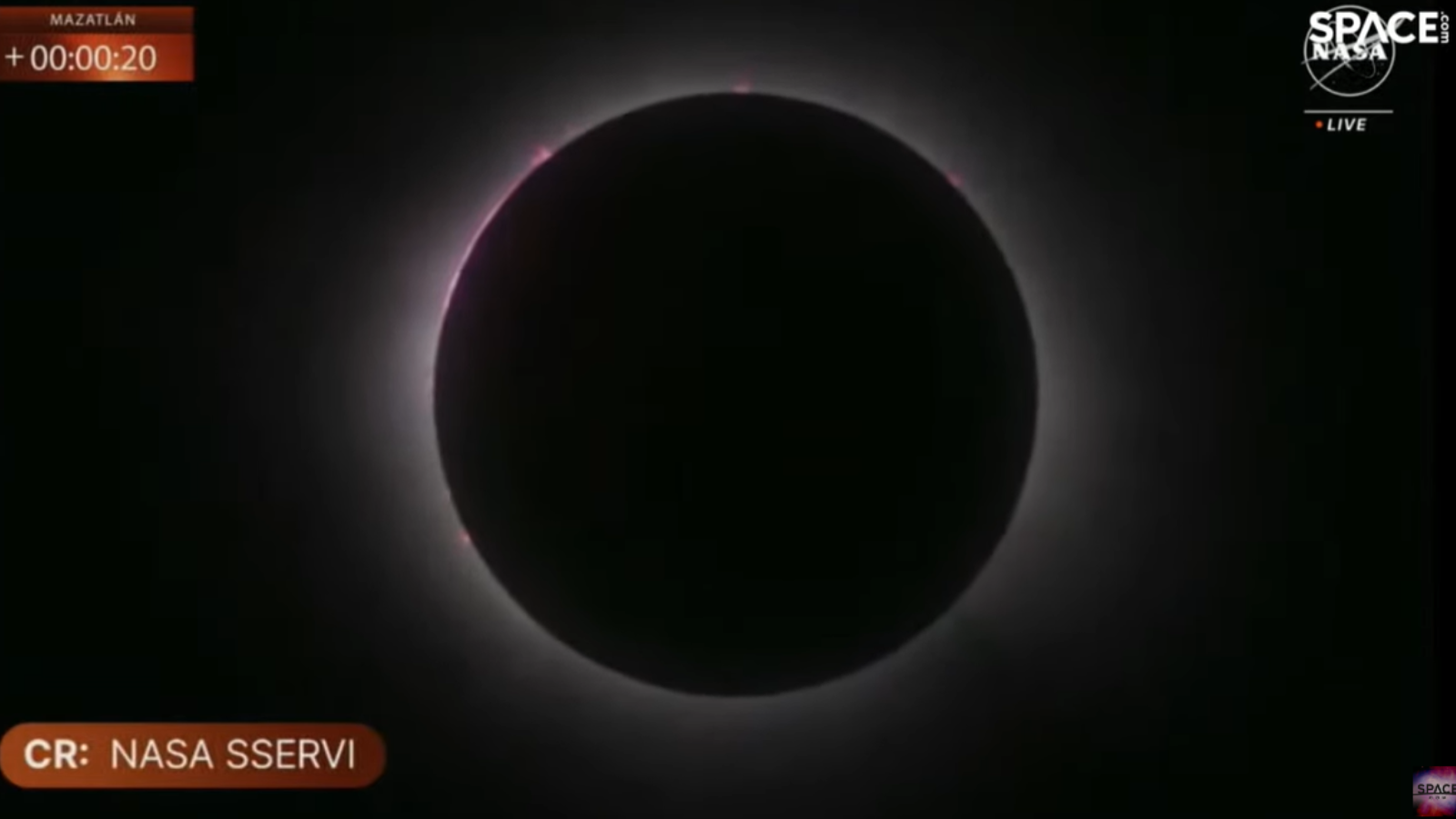
The first region to experience totality during the total solar eclipse on April 8, 2024, is Mazatlan, Mexico. Here, the moon is seen covering the sun at around 11:10 local time (14:10 EDT/18:10 GMT).
The moon slips in front of the sun to jubliation in Kentucky
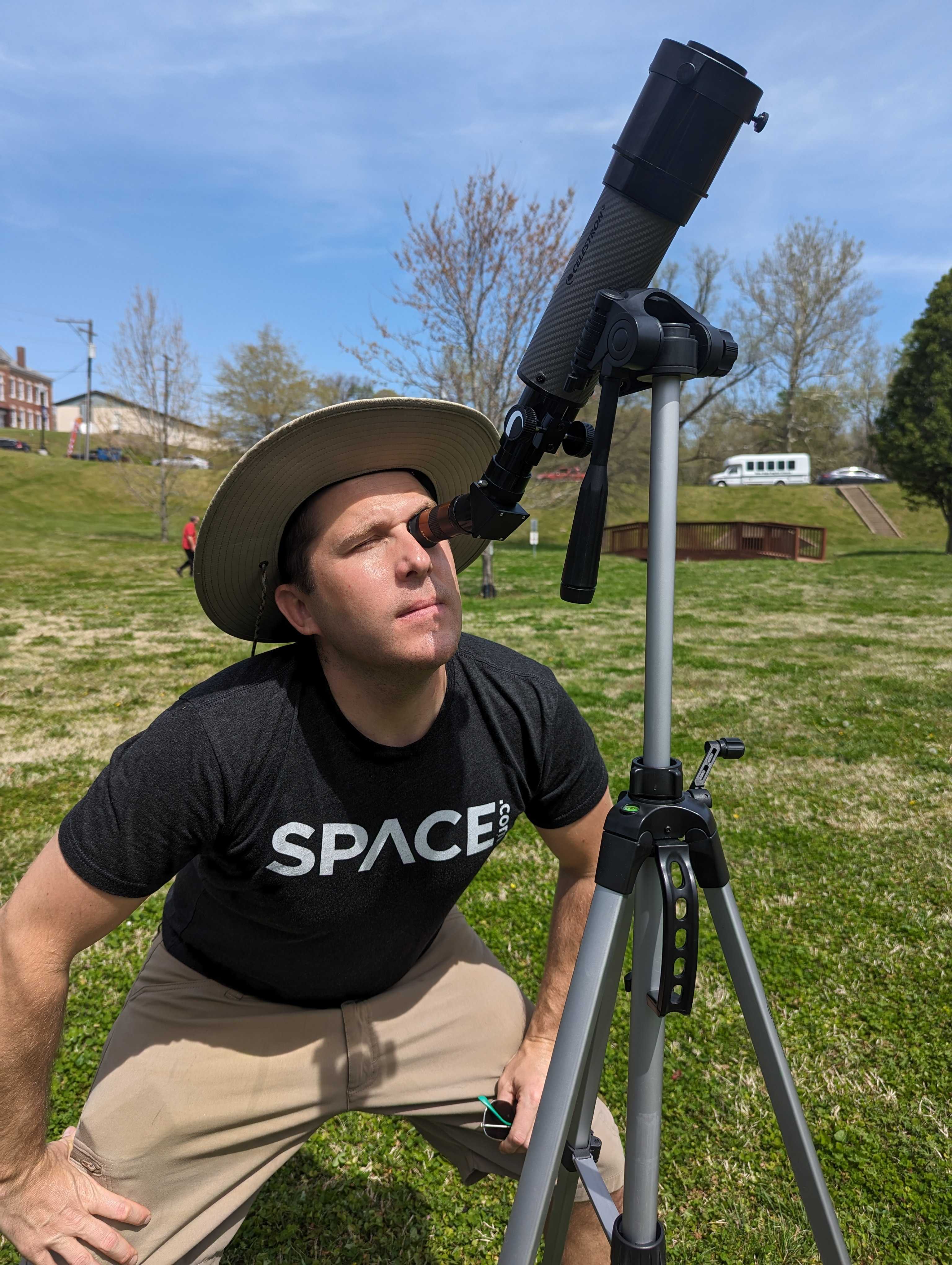
Wickliffe, KY: "The moon has just begun to pass in front of the sun here in Kentucky.
At Wickliffe Park, families and eclipse chasers from throughout the Southeast and Midwest have gathered to watch the eclipse. Among them is Mark McElyea, former assistant manager of NASA's ISS Payload Operations Office at the agency's Marshall Spaceflight Center. McElyea traveled here from Athens, Alabama, to witness his first
eclipse.
"Astrophotographer Bobby McCullough of Franklin, Tennessee, is shooting the eclipse with a Celestron NexStar 6e, which he purchased just for this eclipse after seeing the 2017 total solar eclipse from home.
"Cheers just erupted as the first stages of the eclipse began as most of the assembled children played on the park's playgrounds, seemingly oblivious to the burgeoning spectacle above." -- Brett Tingley
Great atmosphere in Poplar Bluff, MO waiting for the eclipse
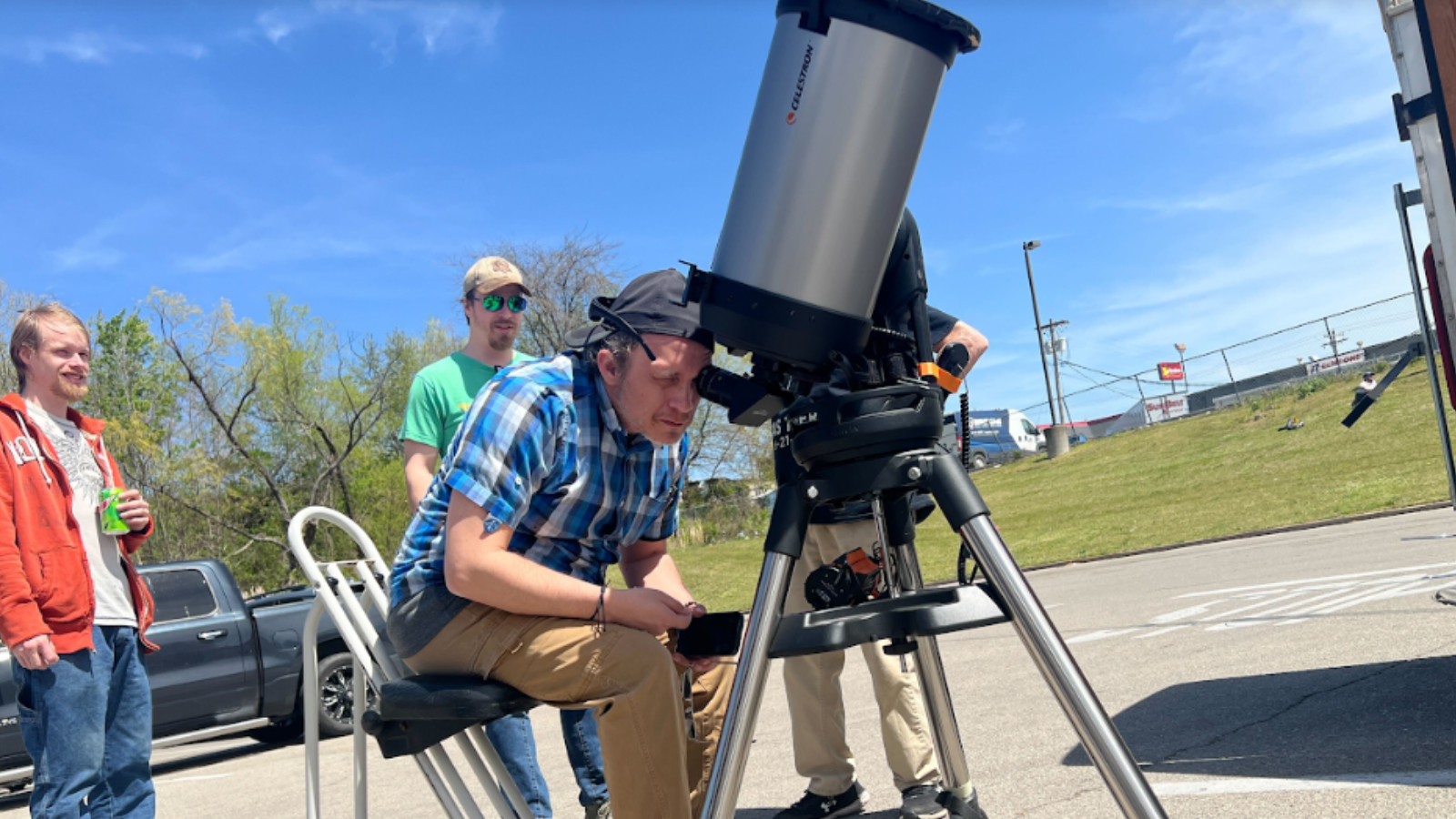
In Poplar Bluff, MO, where TechRadar staffer and Space.con contributor John Loeffler is waiting for the eclipse, there is a great atmosphere and camaraderie among eclispe watchers.
"I compare this to a tailgate atmosphere," said Paul Ruff who has traveled from Iowa City, IA. "People are very nice, sharing their equipment, showing you what
they’re seeing."
NASA astronaut visits Rochester, NY to view the eclipse

Rochester, NY: "Rochester welcomes former NASA astronaut Lee Morin to the ROC Eclipse festival! Morin has told us what to look out for during an eclipse and what we can expect. Though the clouds have rolled in the atmosphere is still very positive!" — Daisy Dobrijevic
The ECLIPSE has begun
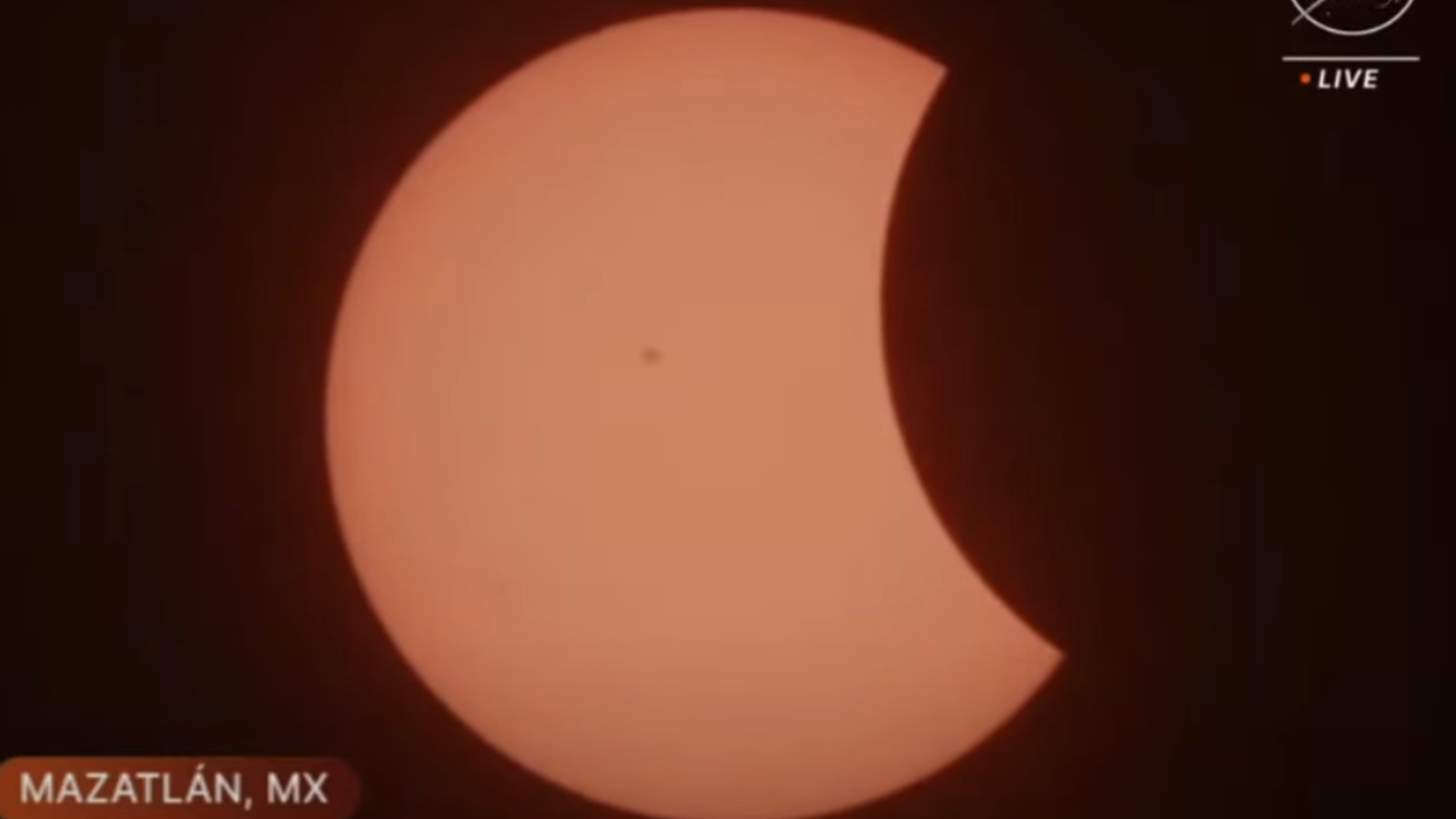
The eclipse begins! The moon starts to move in front of the sun, as seen from Mazatlan, Mexico at around 10:21 local time (13:21 EDT/17:21 GMT).
Eclipse art in Rochester, NY

Rochester, NY: "Traveling chalk artist Erika Lalita Thurkins (Sylphartstudios) is capturing the joy of a solar eclipse in incredible detail outside the Eisenhart Planetarium at Rochester Museum and Science Center." — Daisy Dobrijevic
NearSpace Education and Tactile Engineering Balloon Launches from Indianapolis
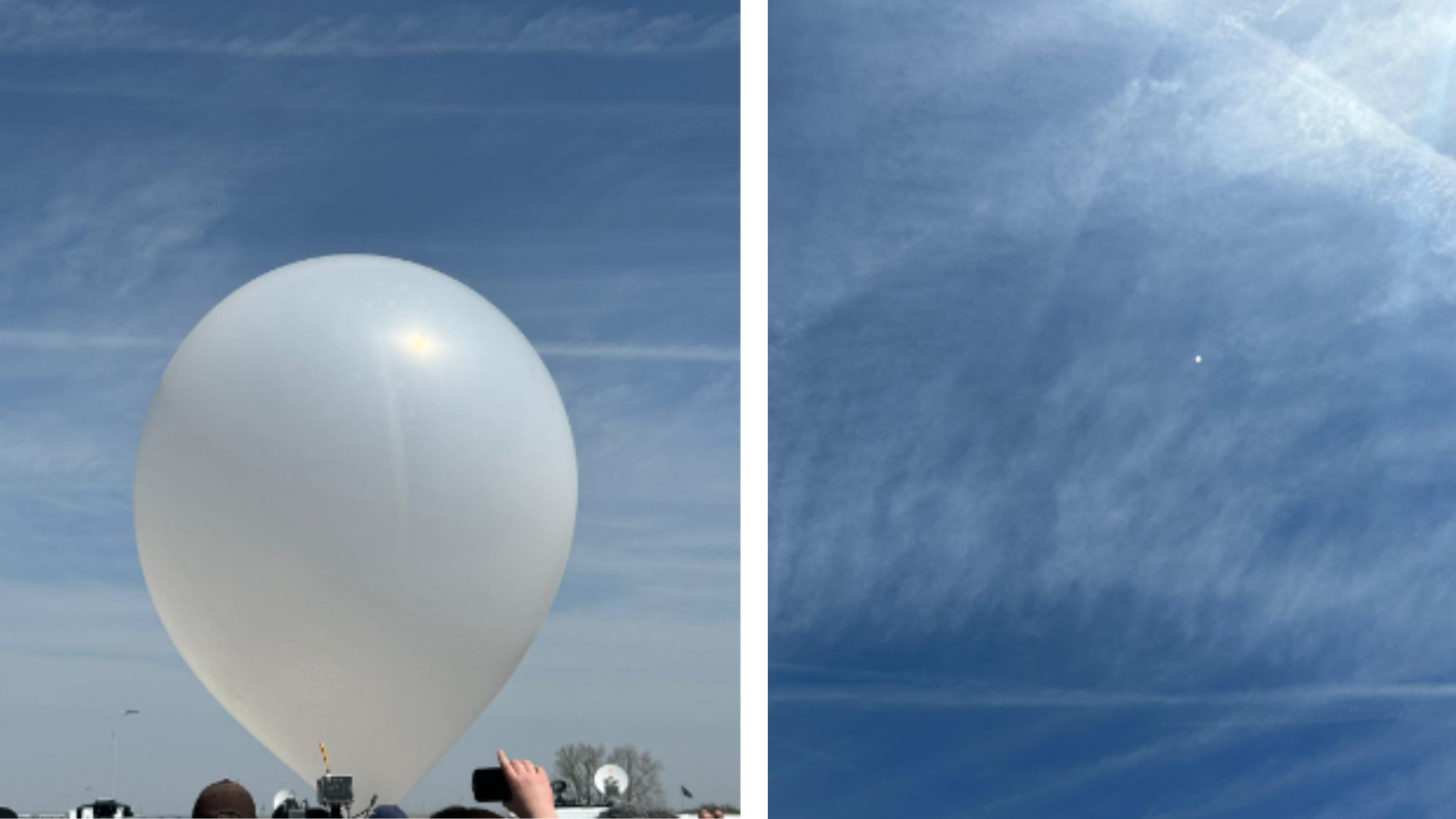
Some researchers will be taking advantage of the total solar eclipse to do some inspiring science. Space.com's Monisha Ravisetti was on hand in Indianapolis, Indiana, to witness the launch of the NearSpace Education and Tactile Engineering Balloon.
One of two weather balloons taking flight over Indianapolis Motor Speedway in partnership with Purdue University and NASA, this balloon will carry student experiments from the Indiana School for the Blind and Visually Impaired to high altitudes. This will allow visually impaired individuals to "feel" both the data from the balloon and the eclipse as it progresses.
Relocating for the best Eclipse view

The weather isn't looking too favorable for viewing the eclipse in Texas, but fortunately, Space.com contributor and TechRadar staffer John Loeffler traveled to Missouri for a better view. Other Texas residents seem to have decided to stick around in Texas, hoping better conditions will manifest.
Loeffler caught images of RVs and other vehicles arriving at a Walmart to watch the eclipse in Poplar Bluff, MO.
"Took me all night driving from overcast Dallas, but I’m in Poplar Bluff, MO, where we’ve got clear skies all day and 4 minutes of totality," Loeffler said. " Surprisingly, there was no traffic coming out of Texas early this morning."
Cloud situation is murky in Rochester, NY, on eclipse day

Rochester NY: "The cloud situation in Rochester is not looking great at the moment but we are still a few hours away so we have everything crossed! Though the skies could be better, they could be a lot worse. Either way we’re going to experience a total solar eclipse, so we’re all still very excited." — Daisy Dobrijevic
Engaging Eclipse Education

Space.com's Tariq Malik reports from Potsdam, NY, that even with a total solar eclipse just hours away in this college town, but the potential teachable moment isn't lost on the folks at SUNY Potsdam here. With an influx of visitors expected, the school is holding an ad hoc introduction for prospective students to take advantage of the eclipse interest.
"What perfect event to have a solar eclipse," SUNY Potsdam President Dr. Suzanne Smith told me this morning as a small group of high school students, including my 15-year-old daughter Zadie, learned about the university. "As soon as we learned that we were in the path of totality, we started making plans because we want to show off our campus, we want to show off our faculty and staff, we want to bring potential students to our campus and find ways for our students to do things that are different that they may not see."
The college prep introduction is underway on the 8th floor of SUNY Potsdam's administration building, with panoramic views of the village and university for the taking.
We are about 4 hours away from the totality of the eclipse as of this writing.
Fashion forward eclipse headgear!
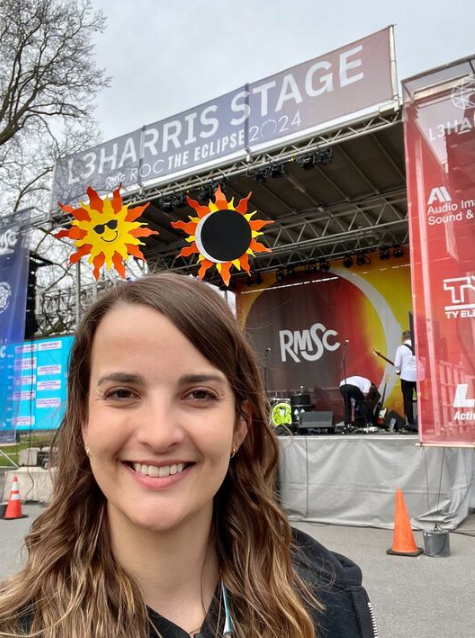
Catching people's attention during the total solar eclipse will be no easy task. Maybe some fashion-forward headwear could help. Awaiting the total solar eclipse in Rochester, NY, Space.com's Space.com's Daisy Dobrijevic found some suitable sun-related headgear.
"I have commandeered the perfect eclipse headwear as we count down to totality here in Rochester," Daisy reported. "The ROC the Eclipse Festival is well underway, and the excitement is building!"
Representing the UK in Rochester New York on Eclipse day!
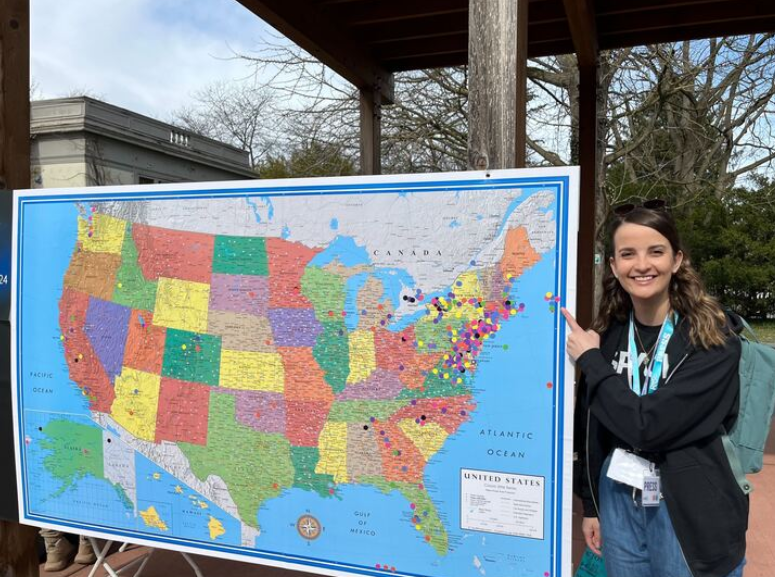
Not everyone is lucky enough to live on the path of totality for today's total solar eclipse. And some of us won't see the eclipse in any way, shape, or form. That means swathes of skywatchers have traveled from across the globe to catch a glimpse of this year's major astronomical event.
One of those eclipse-hunting nomads is Space.com's Daisy Dobrijevic, who brought a little bit of UK representation with her to Rochester, New York.
"People have traveled far and wide to enjoy the total solar eclipse in Rochester!" she said. "I managed to add my little UK sticker so I can be part of the fun!"
'Dorm life' for eclipse chasers in Postdam New York!

"Hey, Space Fans, hotel rooms have been much sought, but hard to find at an affordable rate for many eclipse chasers across the U.S., Mexico and Canada. I may found a solution. My daughter Zadie and I opted to stay in some unused dorms for a bargain $60/night (SO much better than my original $370/night hotel), but there's a catch: You have to bring your own EVERYTHING.
"As you'd expect, our dorm room here at SUNY Potsdam is sparse, with just two beds, two mattresses and some chairs and desks. We brought sleeping bags instead of linens, and we're not alone. Here's a look at how solar eclipse life turned into dorm life for some spectators here hoping to recapture that college experience and see an eclipse at a low price, too!" -- Tariq Malik
The sun rises on total solar eclipse day over Rochester New York

Morning has broken in Rochester, New York, ahead of the total solar eclipse, with Space.com's Daisy Dobrijevic capturing an image of the sky over the location where she will be viewing the eclipse with thousands of others.
"The big day has arrived, and the sky is looking ok so far… everyone is wondering if the clear skies will hold out for us, but only time will tell," Daisy said. "Still, the eclipse fun at Rochester Museum & Science Center ROC the Eclipse Festival will be starting soon, and we’re all very excited."
As for those slightly worrying clouds, Daisy has a plan to ward them away.
"I plan on literally spending the day staring at the sky, I'll scare off any suspect clouds," she joked.
In Postdam, NY, Eclipse day is underway!

Finally, after all the excitement and build-up, April 8 eclipse day is finally here. The view from Potsdam, New York, promises clear skies for skywatchers gathered there, including Space.com's own Tariq Malik.
"Eclipse day has begun with the sunrise here over sunny Potsdam, where we are expecting a warm April day with temperatures in the 60-degree Fahrenheit (16 degrees Celcius) range," Tariq reported this morning. "The sky is a clear blue right now, but we will be watching clouds for most of the day. Yesterday was stunningly clear, so my daughter, friends, and the thousands of spectators coming here are hoping for a repeat performance."
In Rochester, NY, an epic pre-eclipse show
From Rochester, NY: It turns out, the folks in Rochester know how to put on a pre-eclipse show! On the eve of the 2024 total solar eclipse, the Rochester Philharmonic Orchestra's "RPO Solar Eclipse Spectacular!" was a sci-fi delight with dazzling space visuals, dancers, aerialists and more, according to Space.com's Daisy Dobrijevic on the scene. "RPO Eclipse Spectacular has us on the edge of our seats," Daisy said of the view.
For the show, the 100-piece Rochester Philharmonic was joined by Rochester City Ballet, Troupe Vertigo aerialists and a 150-member community choir, among other guests. Just check out these amazing images of the show.
Waiting to "hear" the eclipse in Rochester, New York
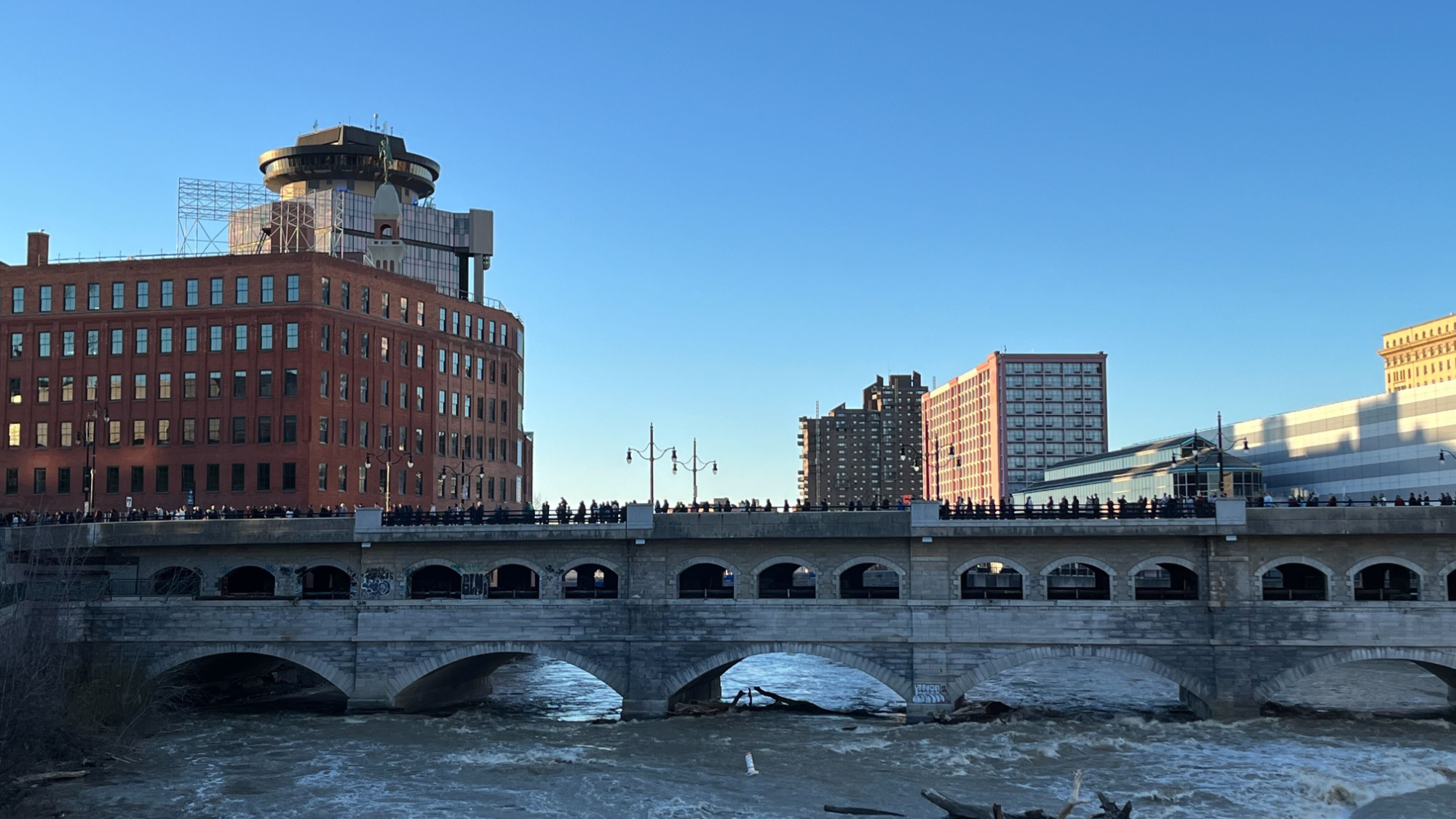
From Rochester, NY: Space.com Reference Editor Daisy Dobrijevic reports that the line to get into an eclipse-themed concert in Rochester, New York, where she has traveled from Nottingham, UK to watch the 2024 solar eclipse, might just be as full of spectators as the eclipse itself.
“The crowds have gathered at Rochester’s Blue Cross Arena for the Eclipse Spectacular! We can’t wait for a night of sci-fi music, aerial acrobats and laser light shows! The perfect pre-eclipse party!”
ONE DAY to Solar Eclipse 2024!
POTSDAM, New York -- We are now just over 24 hours from the total solar eclipse 2024 and the excitement is really building up. To help you prepare for the event, Space.com's Rob Lea has this handy guide to the five main stages of the 2024 solar eclipse.
I (this is Tariq Malik, Editor-in-Chief) am in Potsdam, New York at the State University of New York Potsdam, where my daughter Zadie and I are set up in a unused dormitory to stay for the eclipse. We've met some great folks who have come from California, New Jersey (hey that's us) and across New York State to see the eclipse. Some are SUNY Potsdam alumni coming back for the event, and at least one man, Kevin Drake, brought his family here from Syracuse -- where they were ALREADY in the path of totality -- to witness the event from SUNY Potsdam as an in-state getaway.
That's all to say, that Potsdam officials say the village of 15,000 won't see another total solar eclipse until 2399. That's a long time to wait. And if you're wondering which places see the most solar eclipses, Rob Lea has a story on that, too, today about where solar eclipses occur the most on Earth!
Fair skies, eclipse chases!
Latest eclipse weather forecast
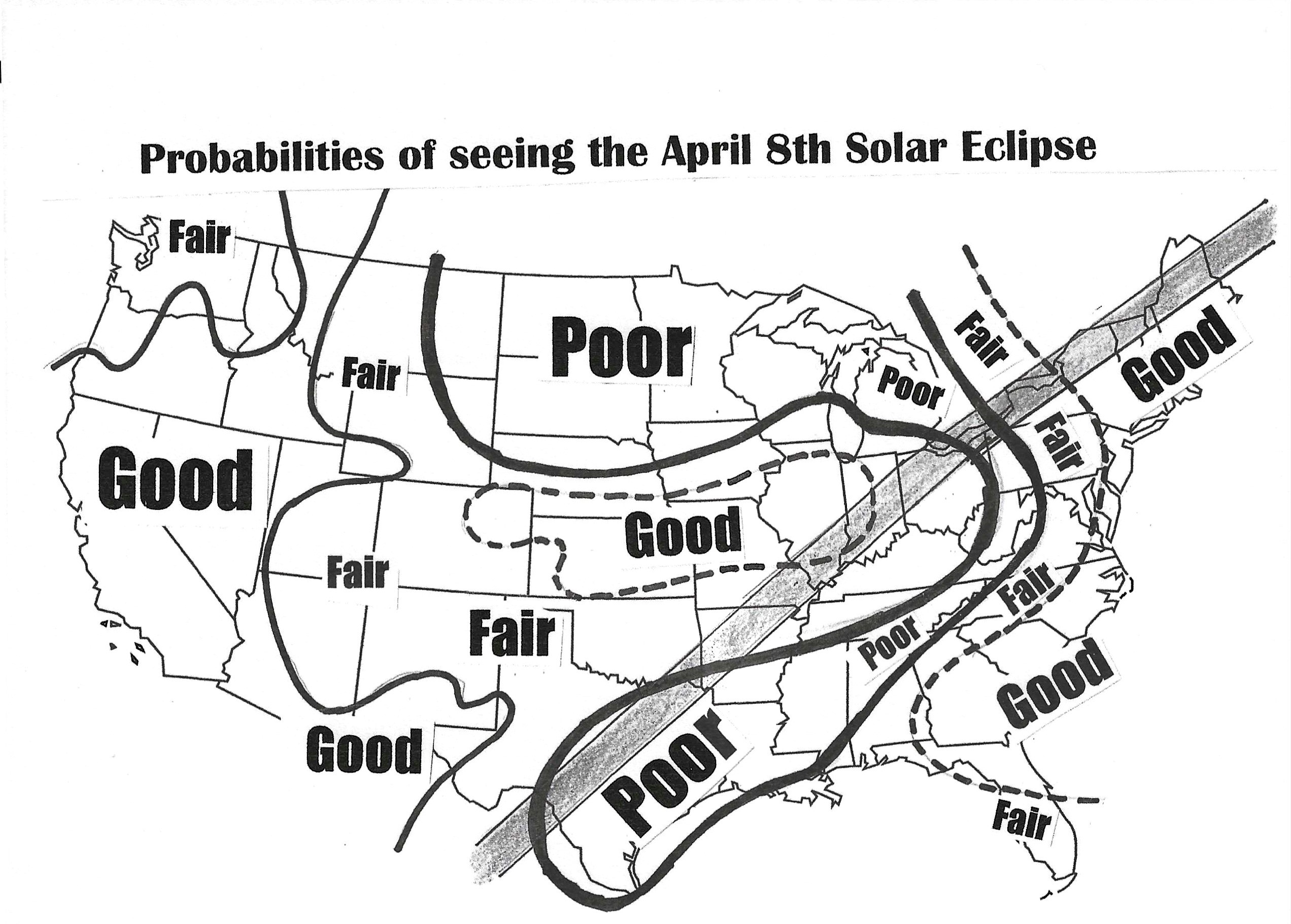
What does the weather look like for the April 8 total solar eclipse? Here we take a look at the national weather forecast to find out.
During the past week, the day-to-day weather outlook for the total solar eclipse on April 8 has been changing and some of the latest forecasts are not quite what we expected.
Read more: Total solar eclipse 2024: Here's the national weather forecast for April 8
Weird things will happen on April 8
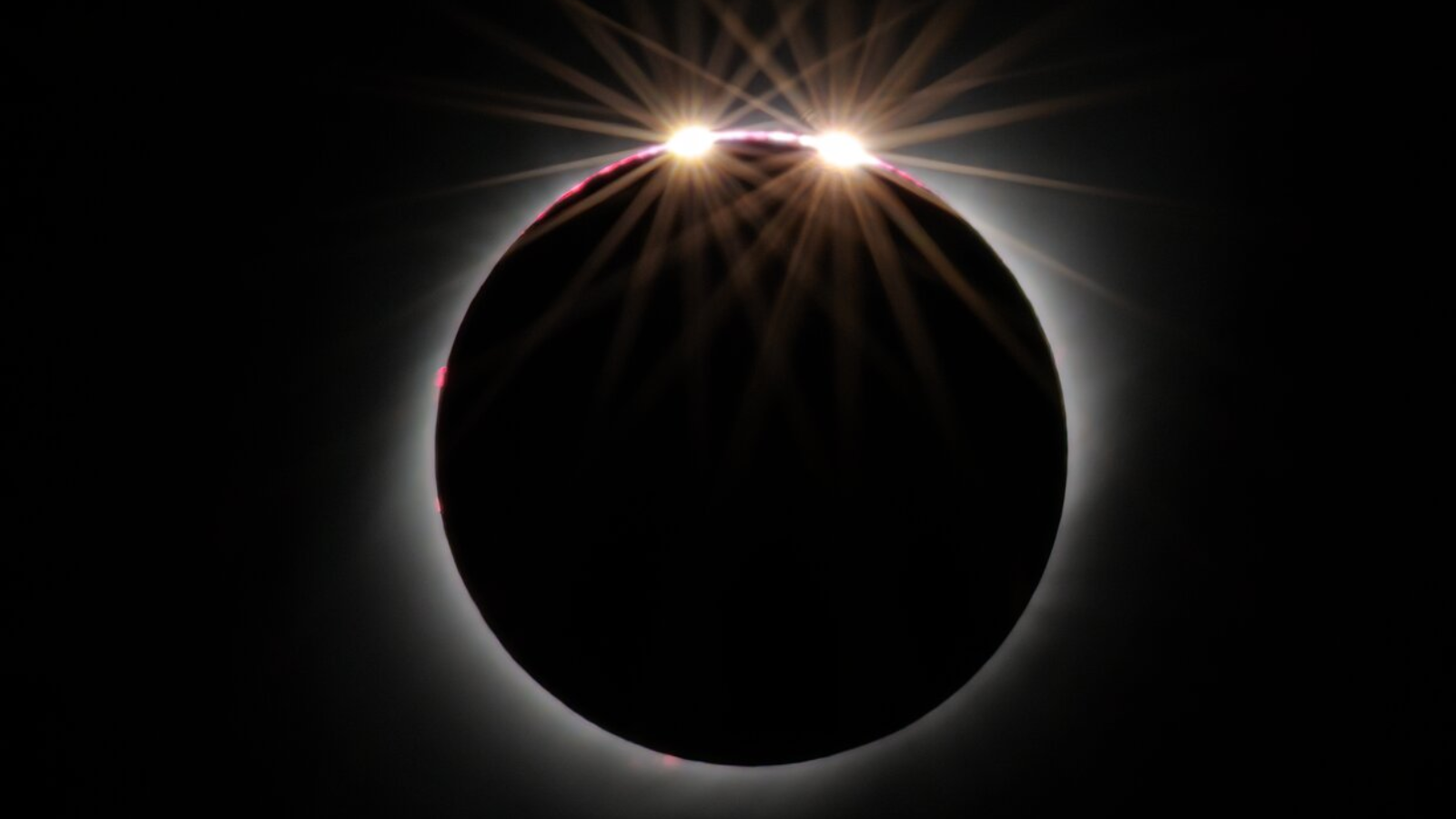
With less than three days until the total solar eclipse, we take a look at some of the weird and wonderful things you may experience during totality.
From diamond rings to strange shadows and weird animal behavior, all will not quite be as it seems when the skies darken dramatically on April 8.
Read more: The April 8 solar eclipse will bring weird sights, sounds and feelings
Rochester is raring to go
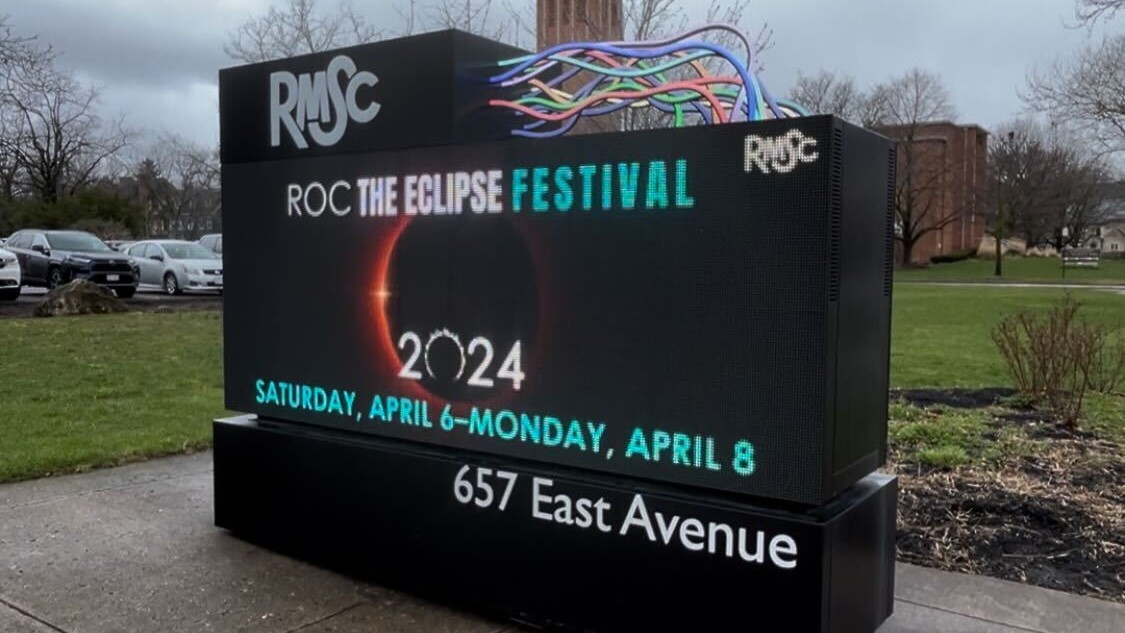
Preparations are well underway at Rochester's Museum and Science Center (RMSC) as we countdown to the big day! I enjoyed seeing some behind-the-scenes action as the folks from Visit Rochester and RMSC prepare to welcome eclipse enthusiasts over eclipse weekend.
Rochester's ROC the Eclipse 2024 festival is going to be totality awesome (see what I did there).
The atmosphere is already building, the eclipse buzz is real.
-- Daisy Dobrijevic, reporting from Rochester NY.
Read more: Why I'm going to Rochester NY to see my 1st-ever total solar eclipse
T-4 days to go, but what time is the eclipse?
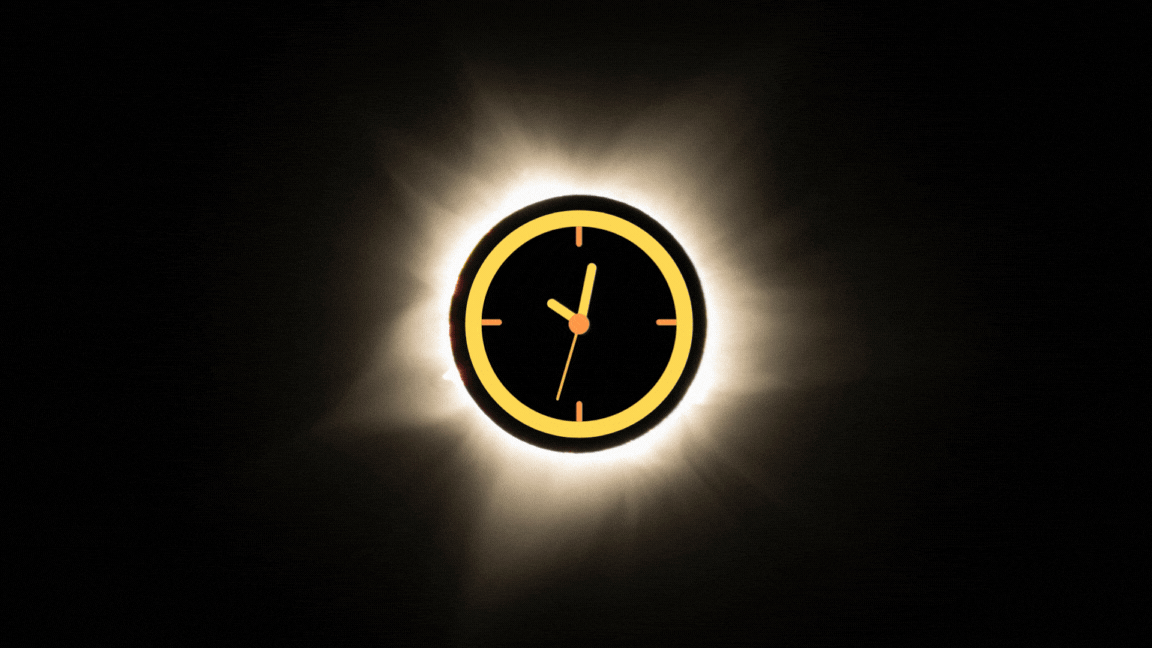
Timings depend on where you are located along the path of totality.
The first place in North America to experience the totality stage of the solar eclipse, whereby the moon covers 100% of the sun's disk will be Mazatlán in Sinaloa, Mexico, with totality beginning at 11:07 a.m. MST (1:07 p.m. EDT) and lasting for 4 minutes 20 seconds.
For a list of location timings and more information read more: What time is the solar eclipse on April 8?
T-5 days to the total solar eclipse!
We're 5 days away from the Great North American Solar Eclipse of April 8 and if you are planning to try and see it yourself, you'll need to know what time it begins. Luckily, Space.com's Daisy Dobrijevic has you covered. Her piece today on what time the 2024 total solar eclipse occurs includes times not only for totality across a North America, but also the partial eclipse that will be visible to locations not on the totality path.
And if you're hoping to toast the eclipse, there are 15 craft beers that have been created for the solar eclipse. Space.com's Monisha Ravisetti has the details on where to find the brewers along the totality path with these special eclipse brews.
The path of totality may have changed slightly
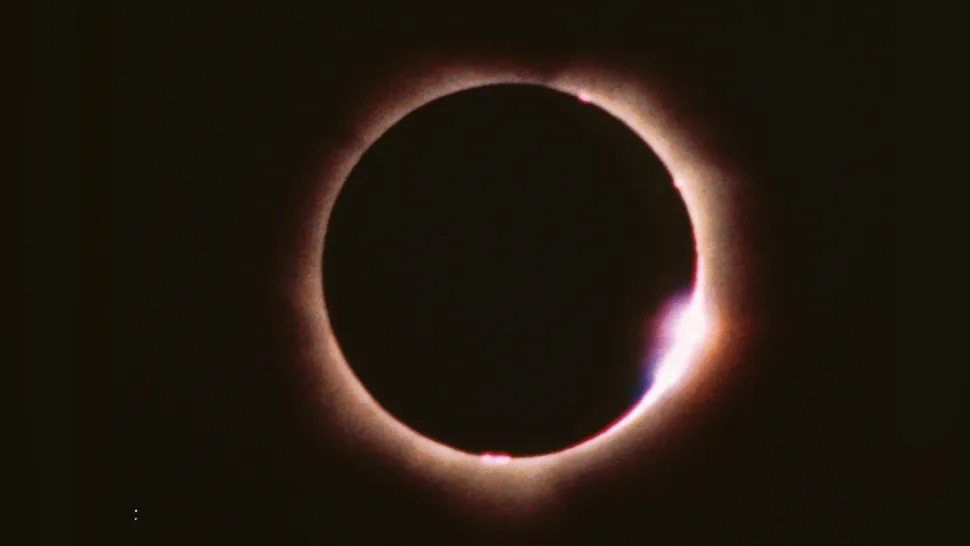
If you plan to watch the solar eclipse April 8 at the edge of the totality path, you might want to move further into the shadow.
New amateur calculations of the solar eclipse path suggest that variations in the local terrain might change if you see a total eclipse, or how long the eclipse is experienced, compared to older estimates.
Read more: Solar eclipse sights might vary on the edge of totality: report
What else will be visible during the eclipse?
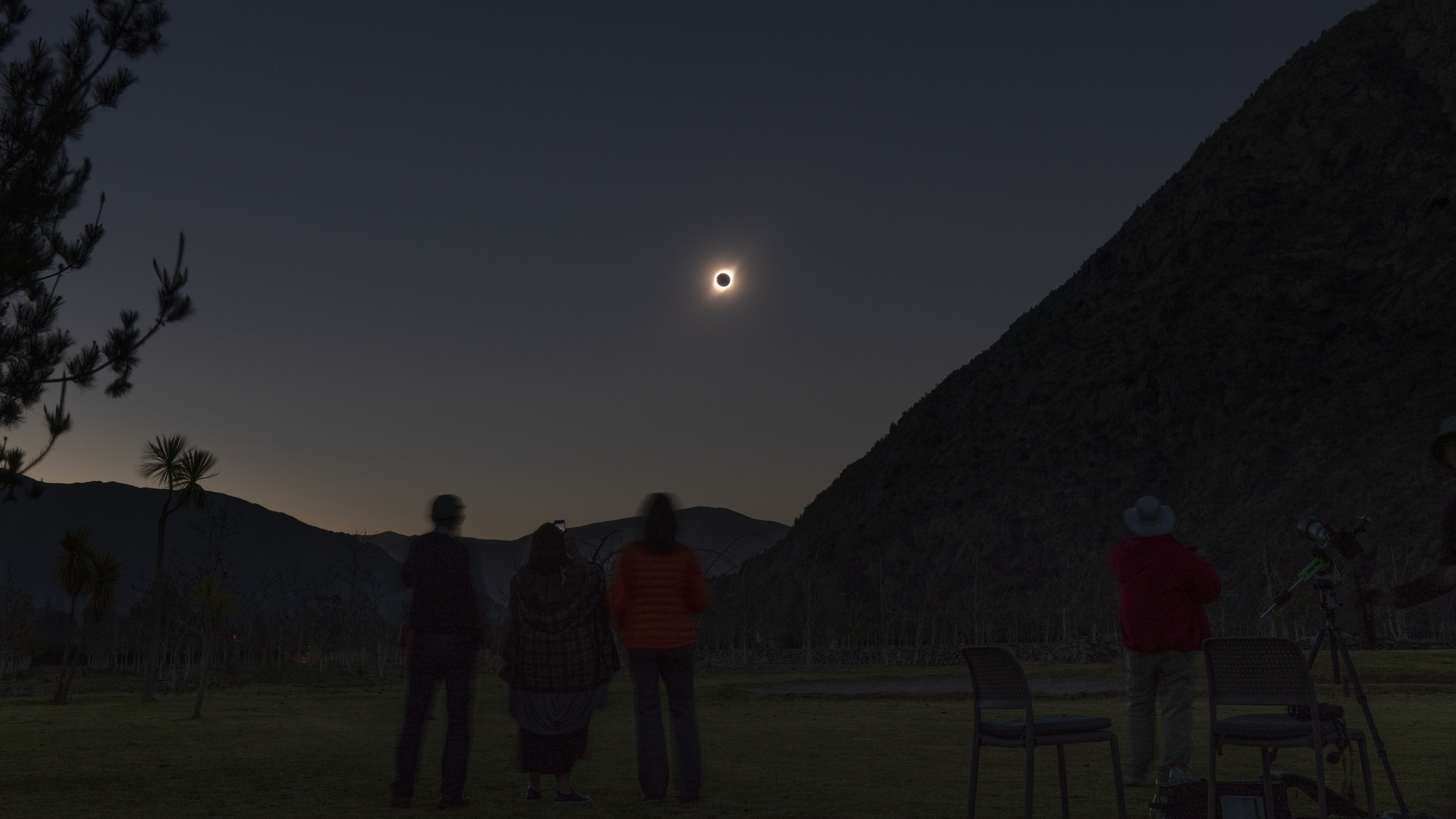
Here's what to expect when the skies darken during the total solar eclipse.
An observer in or near the path of totality for the April 8 solar eclipse, can make useful observations of the appearance of the moon's shadow projected on the Earth's atmosphere, before, during and after mid-eclipse. Also, valuable can be studies of sky darkness.
Don't forget to grab yourself a free pair of eclipse glasses
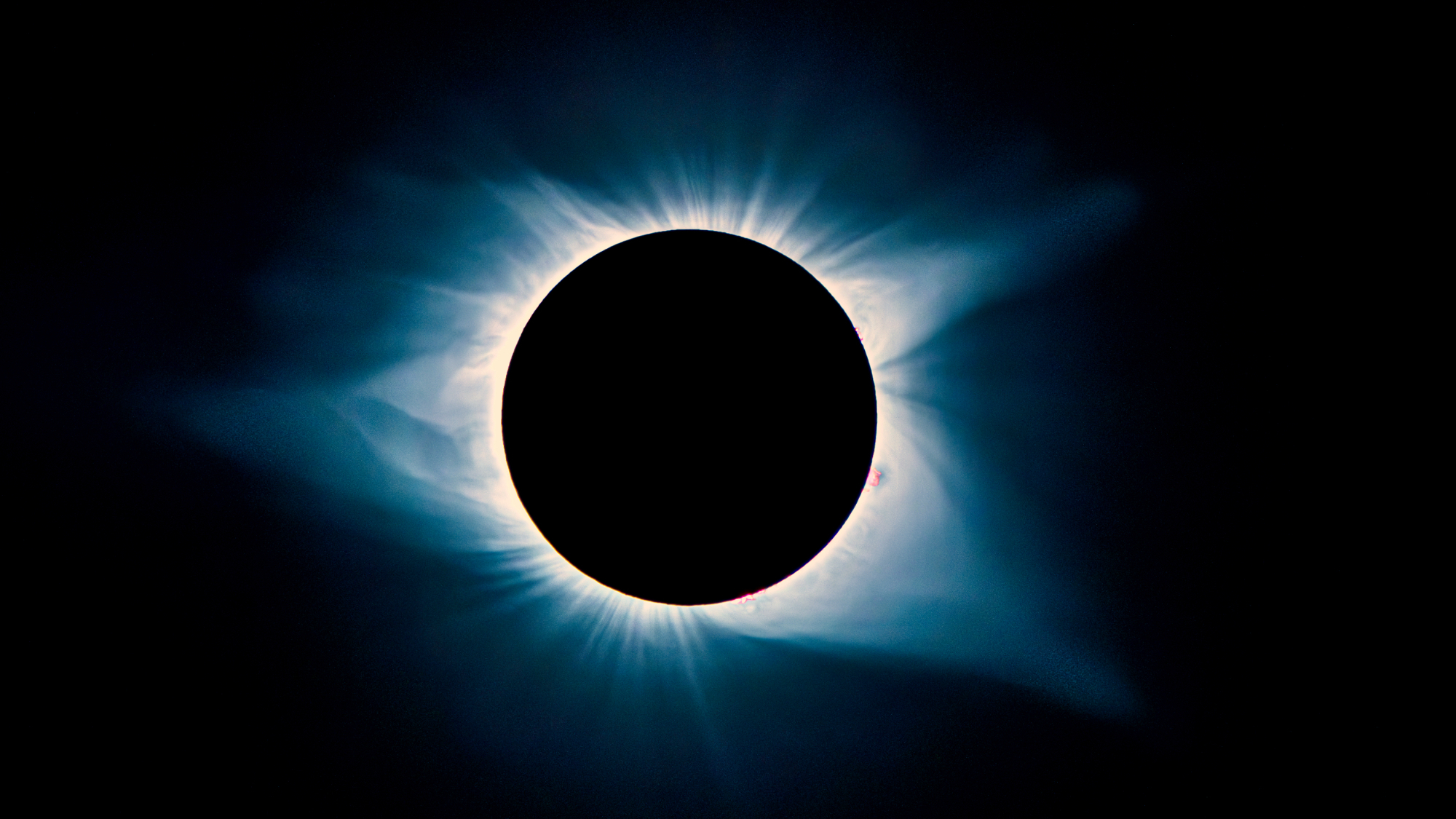
Warby Parker, known for its affordable yet trendy lenswear, has announced that all of its stores will be handing out free solar eclipse viewing glasses starting April 1 until the big day.
Up to two pairs will be provided per family. This will go on while supplies last!
Read more: Warby Parker will give you free solar eclipse glasses for the big day on April 8
How to earn a 'black belt' in solar eclipse chasing
Space.com skywatching columnist Joe Rao explores how eclipses repeat and what it takes to earn a 'black belt' in eclipse chasing.
While some eclipse-chasers have spent decades following total eclipses of the sun around the world, you don't need to have done the same to earn a "black belt in eclipse chasing."
In this column, Rao explains how the upcoming eclipse of April 8 will offer (in his expert opinion) an opportunity to build some eclipse expertise.
Related: How to earn a 'black belt' in solar eclipse chasing
Feeling peckish? You better be quick!

SunChips, the wavy, multigrain chips brand from the snack overlords of Frito-Lay, are putting on their solar eclipse glasses for April 8, and offering free bags of a special eclipse-themed flavor during totality, the span of time when the moon completely blocks the sun.
The limited edition Pineapple Habanero and Black Bean Spicy Gouda flavor chips can be ordered from the SunChips website, but only during the 4 minutes and 27 seconds that the moon's shadow is passing over the United States. After that, they'll be gone forever.
Read more: SunChips will sell exclusive total solar eclipse flavors only during totality on April 8
Millions will be on the look out, but will it be the most watched eclipse ever?
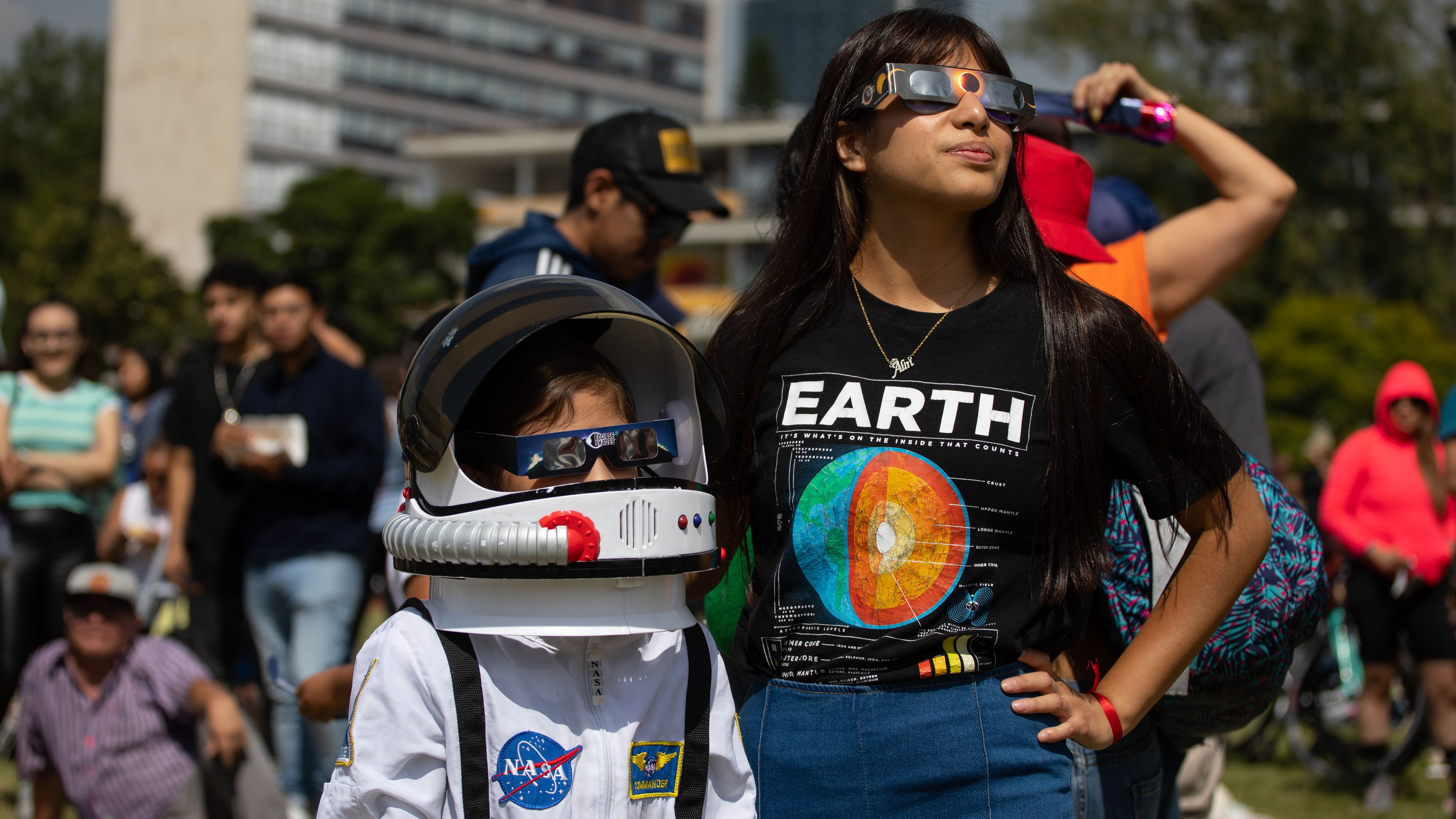
Approximately 44 million people live within the path of totality on April 8 with millions more predicted to flock from elsewhere to witness the spectacular event.
Whether it will be the most-watched eclipse ever, as the BBC claims, however, is harder to prove. It may well be, at least in some ways. But even if it is, that title will certainly not last beyond 1,211 days, when the April 8, 2024 eclipse will be spectacularly outshone by the "eclipse of the century."
Read more: Will the total solar eclipse on April 8 be the most watched ever?
How fast will the eclipse travel?
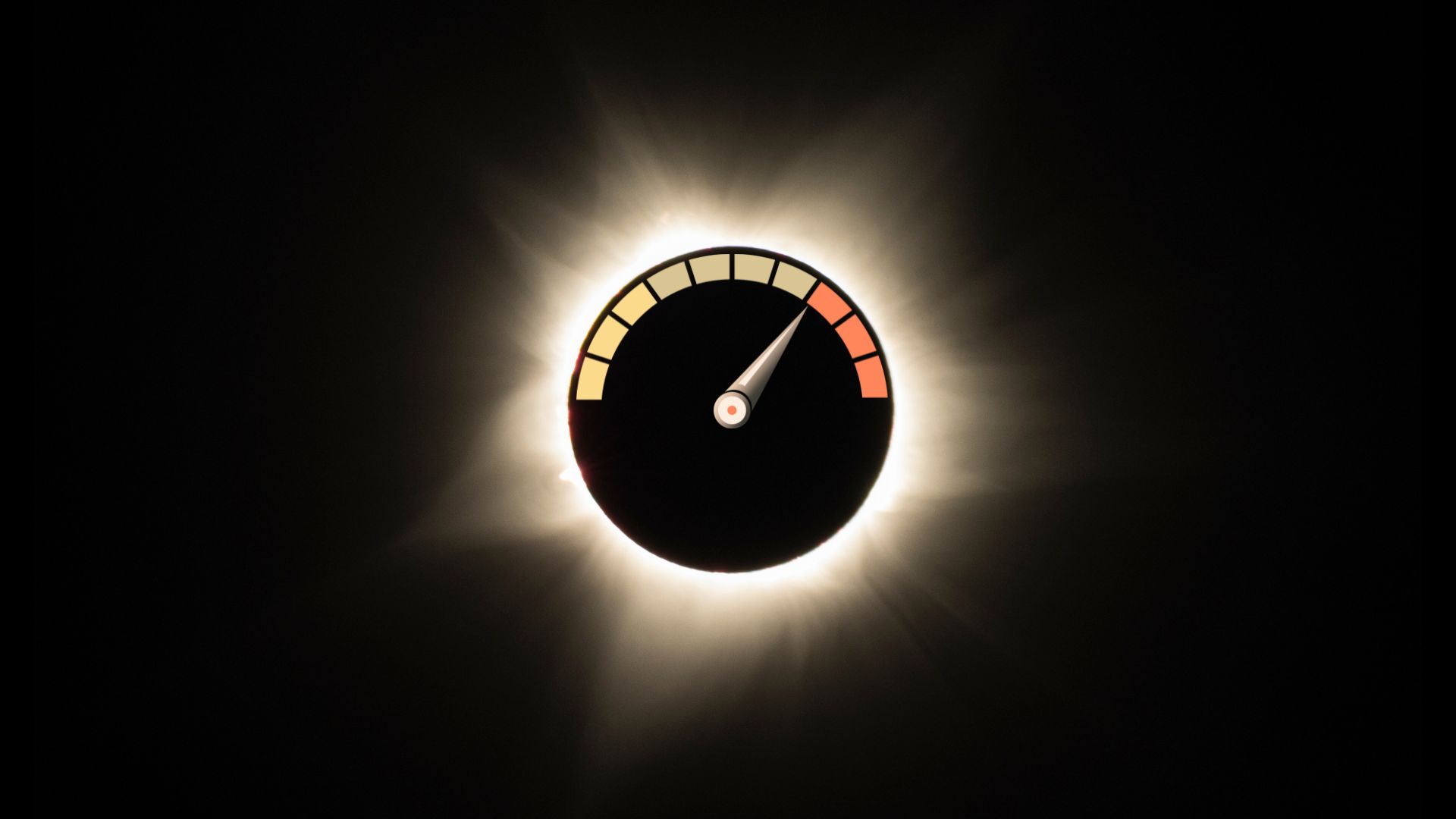
When the moon's shadow races across Earth on April 8 it will slow down and then speed up again.
It will travel at speeds ranging from 10 million miles an hour — half the speed of the fastest supernova explosion ever detected — to as slow as 1,565 mph, about twice the speed of a supersonic aircraft.
Read more to discover why: How fast will April's total solar eclipse travel?
Check your eclipse glasses are safe!
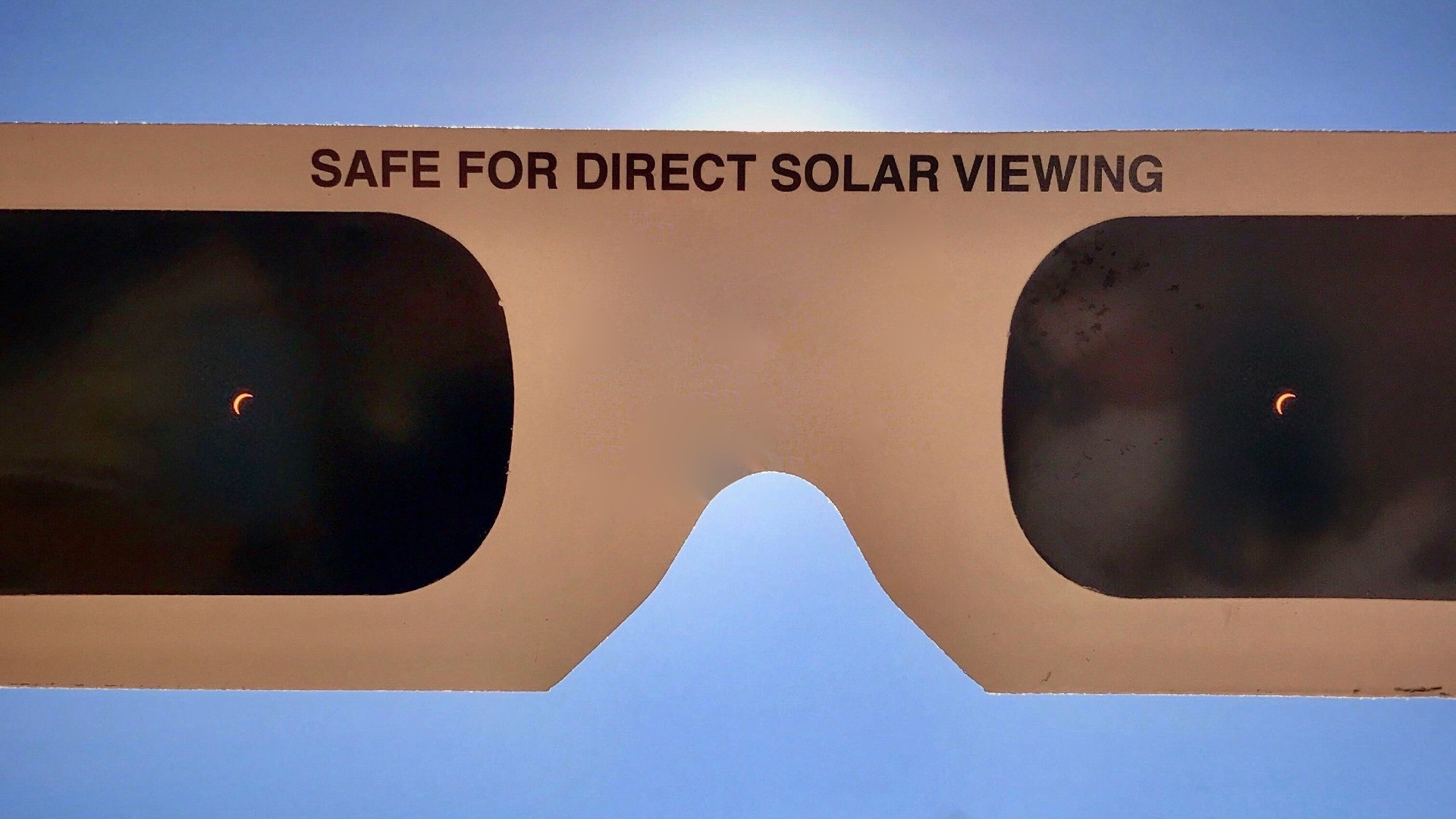
With less than two weeks to go, you're likely all kitted out with everything you need to view the total solar eclipse on April 8.
When it comes to solar observation, safety is paramount as viewing the sun directly and without protection can cause serious and long-term damage to your eyes.
This is why solar eclipse glasses are crucial for most to safely observe the eclipse but with such high demand for the vital piece of kit, fake eclipse glasses are rife.
The American Astronomical Society (AAS) is warning people about the risks of counterfeit and knock-off solar glasses so we have come up with a guide on how to check yours are safe.
What happens if it's cloudy?
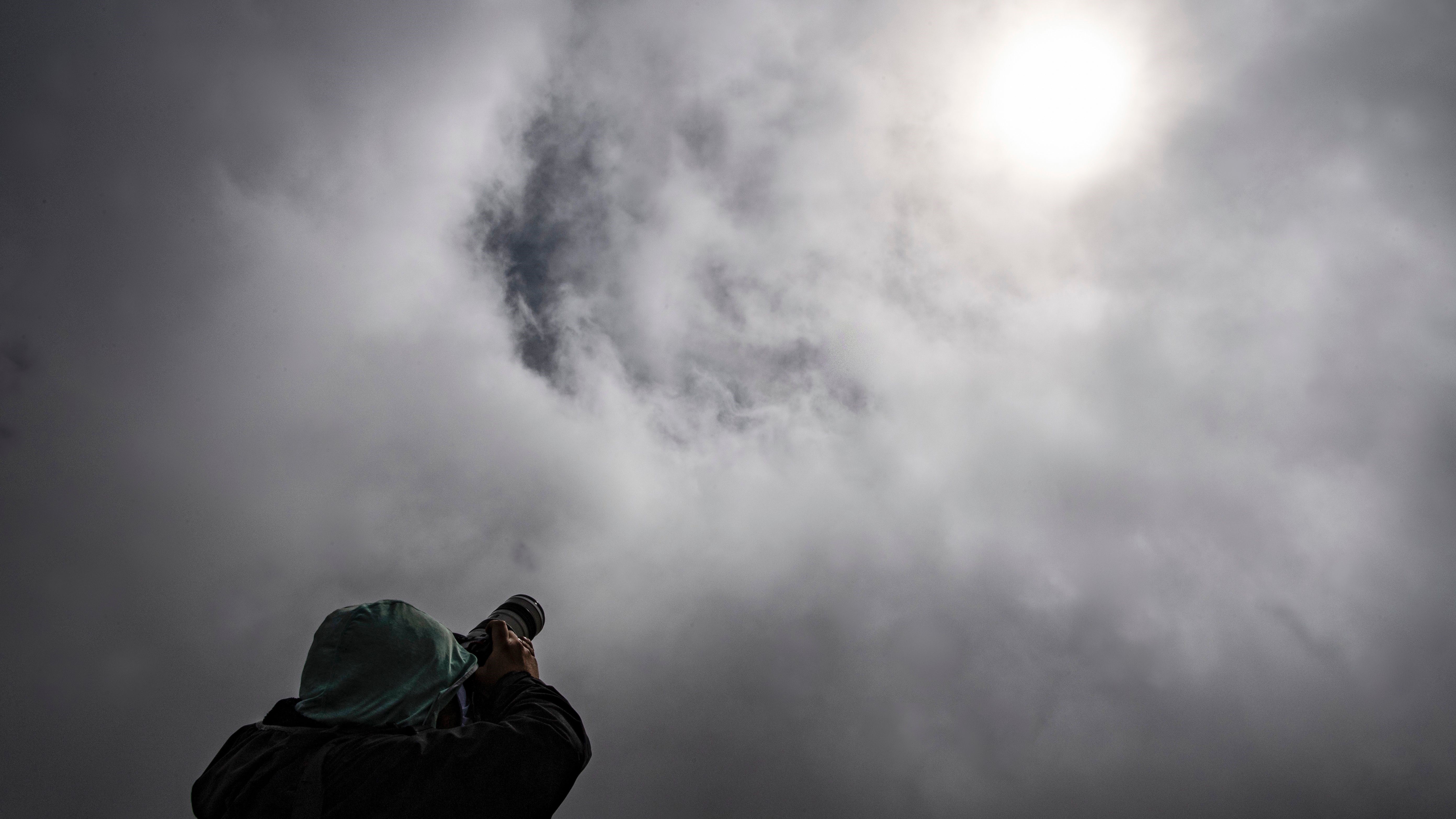
The question nobody wants to ask (but one we're all thinking about).
Though everyone is hoping for clear skies, here's what might happen if an eclipse-chaser's worst enemy — clouds — decides to make an appearance.
It turns out a cloudy forecast might not be as bad as you would initially think, it all depends on the type, thickness and extent of the cloud cover.
Read more: What happens if it's cloudy for the April 8 solar eclipse?
What are eclipse seasons?
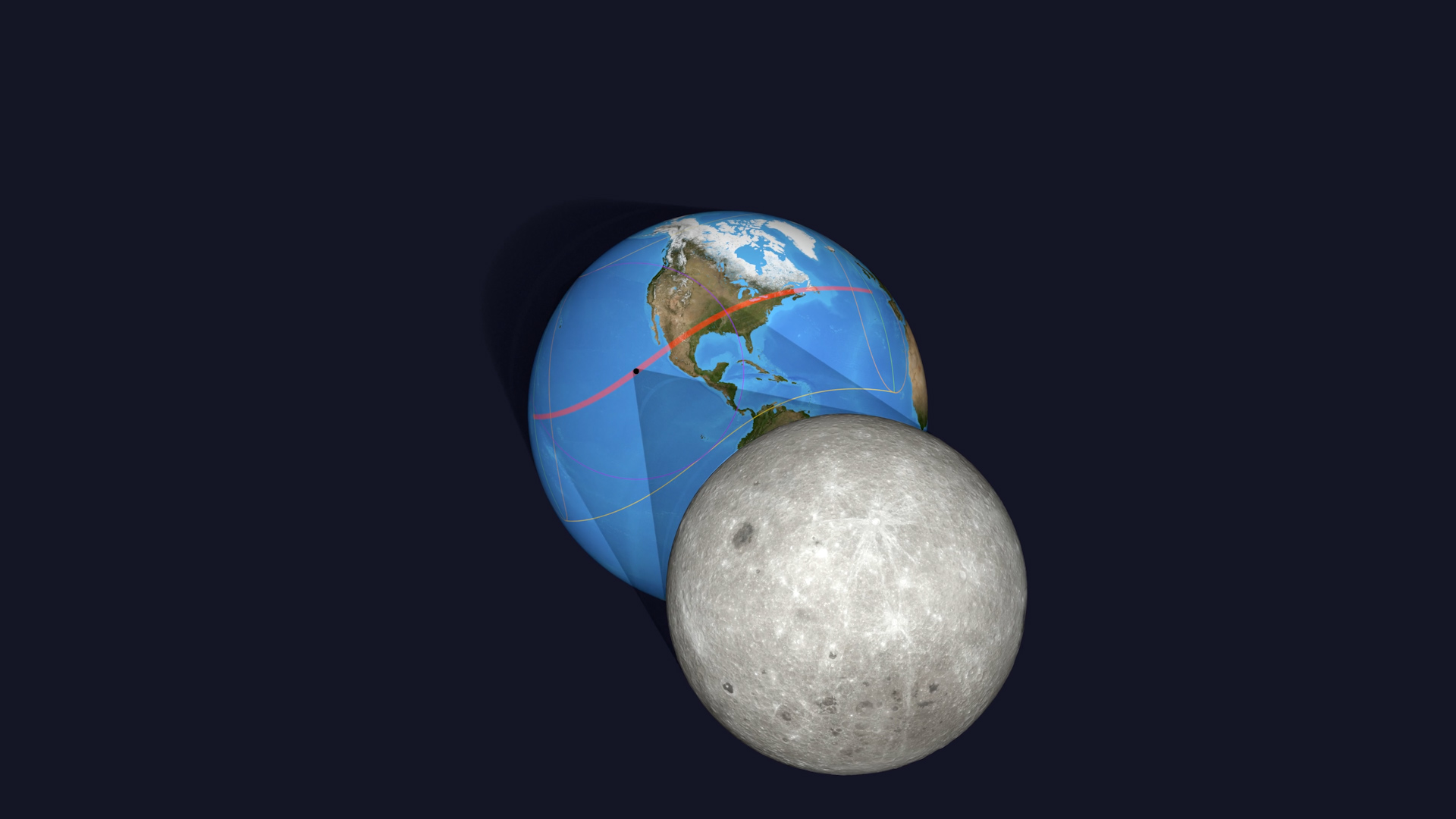
Two weeks to go! As we gear up to celebrate the total solar eclipse on April 8, we look at how and why eclipses come in pairs.
Explore why the lunar eclipse on March 25 occurs 2 weeks before the total solar eclipse on April 8 in our helpful guide to eclipse seasons.
Living on the edge... of totality
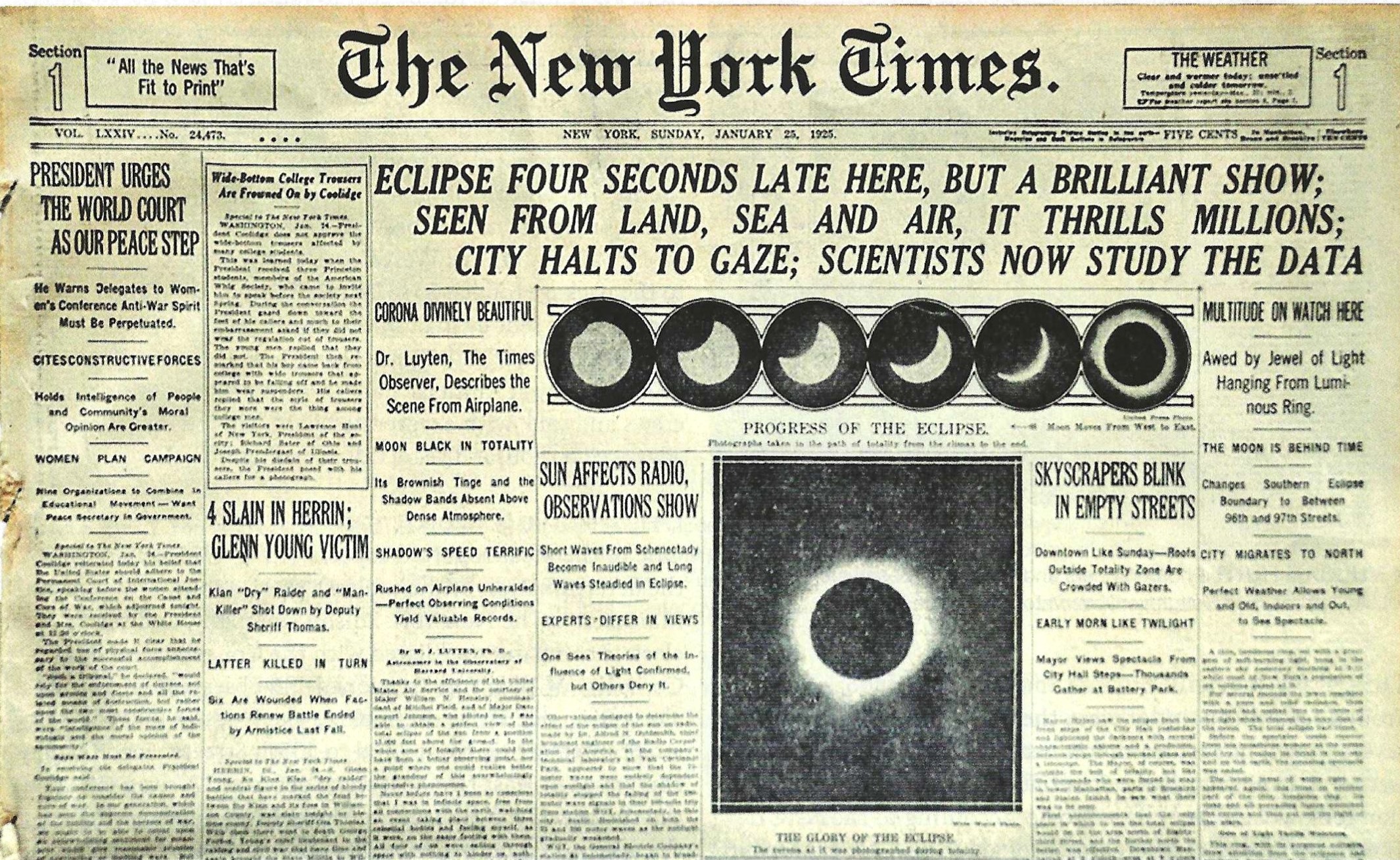
With just 17 days to go until the total solar eclipse we are getting excited, are you?
Here we take a look at some interesting and quirky incidents that have happened to people viewing total solar eclipses near the edge of totality, from when the "Big Apple" was sliced in half during New York's last total solar eclipse in 1925 to the discovery of the "diamond ring" — a beautiful eclipse gem only visible for a moment before and after totality.
Read more: Historical incidents of viewing total eclipses near the edge of totality
SkySafari is now 80% off
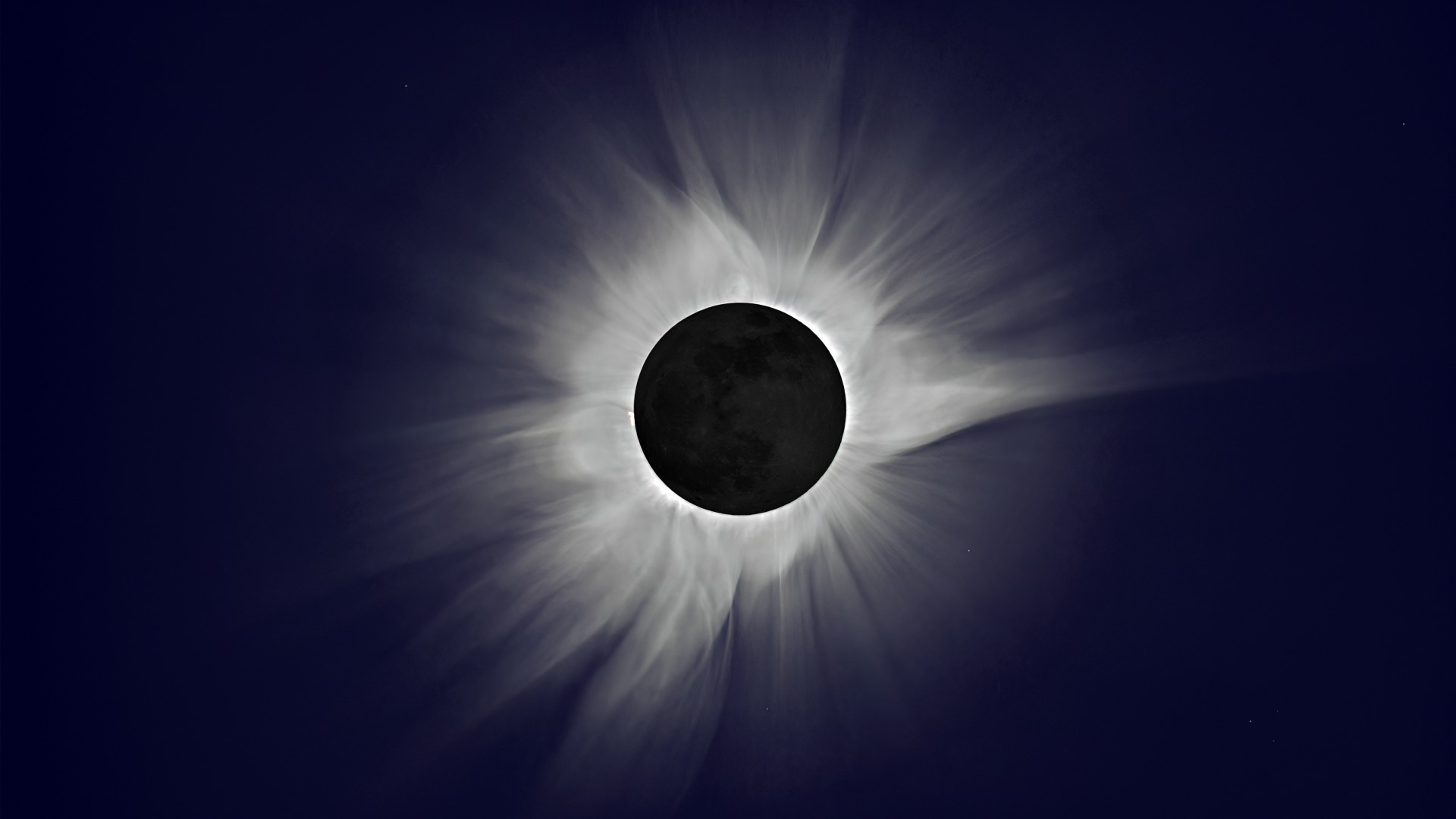
SkySafari is celebrating the solar eclipse, and you can grab it on a great deal through April 8.
The entry-level version of SkySafari 7, which features on our best stargazing apps guide, locates millions of planets, stars and constellations with a single screen tap. It is on sale right now for just $0.99, just in time for the next total solar eclipse. That's an 80% discount from the usual $4.99, so make sure to act quickly.
Read more: Track the April 8 total solar eclipse with SkySafari, now 80% off
7 things to buy to safely watch and photograph the total solar eclipse
April 8 is just around the corner — do you have everything you need to safely watch and/or photograph the total solar eclipse?
Total solar eclipses like the upcoming "great North American eclipse" are once-in-a-lifetime events. If you're planning to see it, you'll need the right equipment to see it safely or take pictures of the sun.
To help you choose, Space.com has assembled a guide to the 7 things to buy to safely watch and photograph the total solar eclipse to help you build your eclipse kit well in advance. Don't wait! Supplies are sure to run out as eclipse chasers stock up ahead of the big day.
Related: Best solar viewing kit 2024: Observe the April 8 solar eclipse
How to view solar eclipse 2024 with items from around the home
Total solar eclipses allow us to view the sun like never before.
But do you need an expensive solar telescope or camera filter to enjoy the total solar eclipse on April 8? Luckily, you don't.
While solar eclipse glasses are the go-to way to view an eclipse, they are selling out fast this year. To that end, Space.com skywatching columnist Joe Rao offers an insightful column on how to view solar eclipse 2024 with items from around the home using many everyday household items. Don't let a lack of gear keep you from witnessing one of the most breathtaking celestial spectacles there is!
Read more: How to view solar eclipse 2024 with items from around the home
Solar eclipse 2024 weather prospects: Q&A with an expert
With the big day less than a month away, many of us are wondering: Will it be cloudy on April 8?
Hopefully not. But to let readers know what they can expect in terms of weather on the day of the 2024 total solar eclipse, Space.com spoke with Jay Anderson, a meteorologist with over 40 years of experience in both weather forecasting and eclipse chasing.
While it's too early to tell what the weather will be like in any particular area, Anderson walks us through how experts are already beginning to prepare forecasts for what we can expect during the total solar eclipse.
Read more: Solar eclipse 2024 weather prospects: Q&A with an expert
The total eclipse will make baseball history!
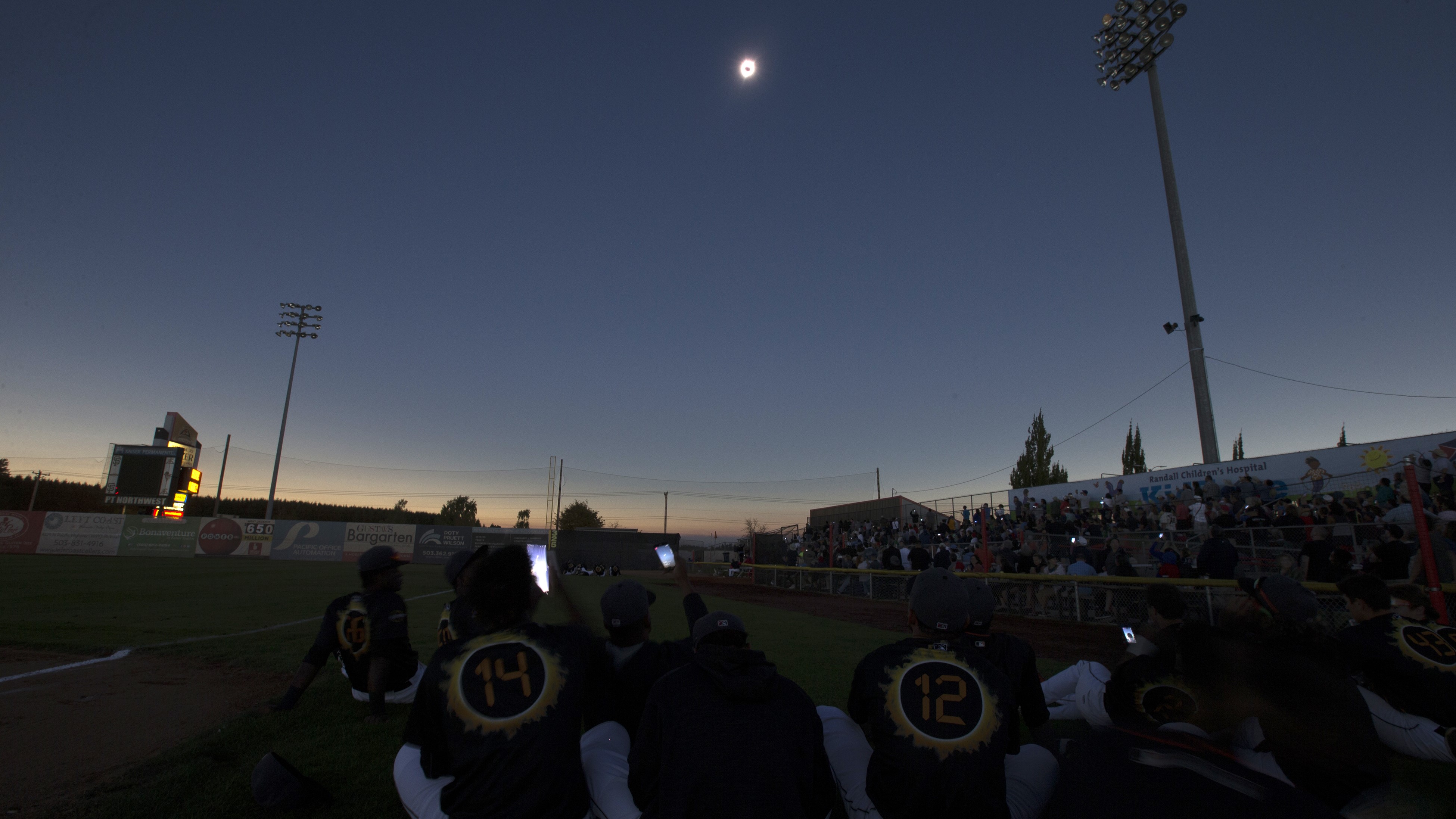
The total solar eclipse on April 8 will hit two cities that host Major League Baseball games that day.
During a total solar eclipse, the moon appears almost exactly the same size as the sun in the sky, blocking the entire solar disk for viewers in the path of totality, which, on April 8, 2024, stretches from Mexico, across 15 U.S. states and into southeastern Canada. Along that path lies Arlington, Texas, and Cleveland, Ohio, two cities that will host MLB games on April 8. That's never happened before in the history of baseball or eclipses.
Read more: April 8's total solar eclipse will make baseball history. Here's how
Need some inspiration to keep little eclipse chasers entertained?
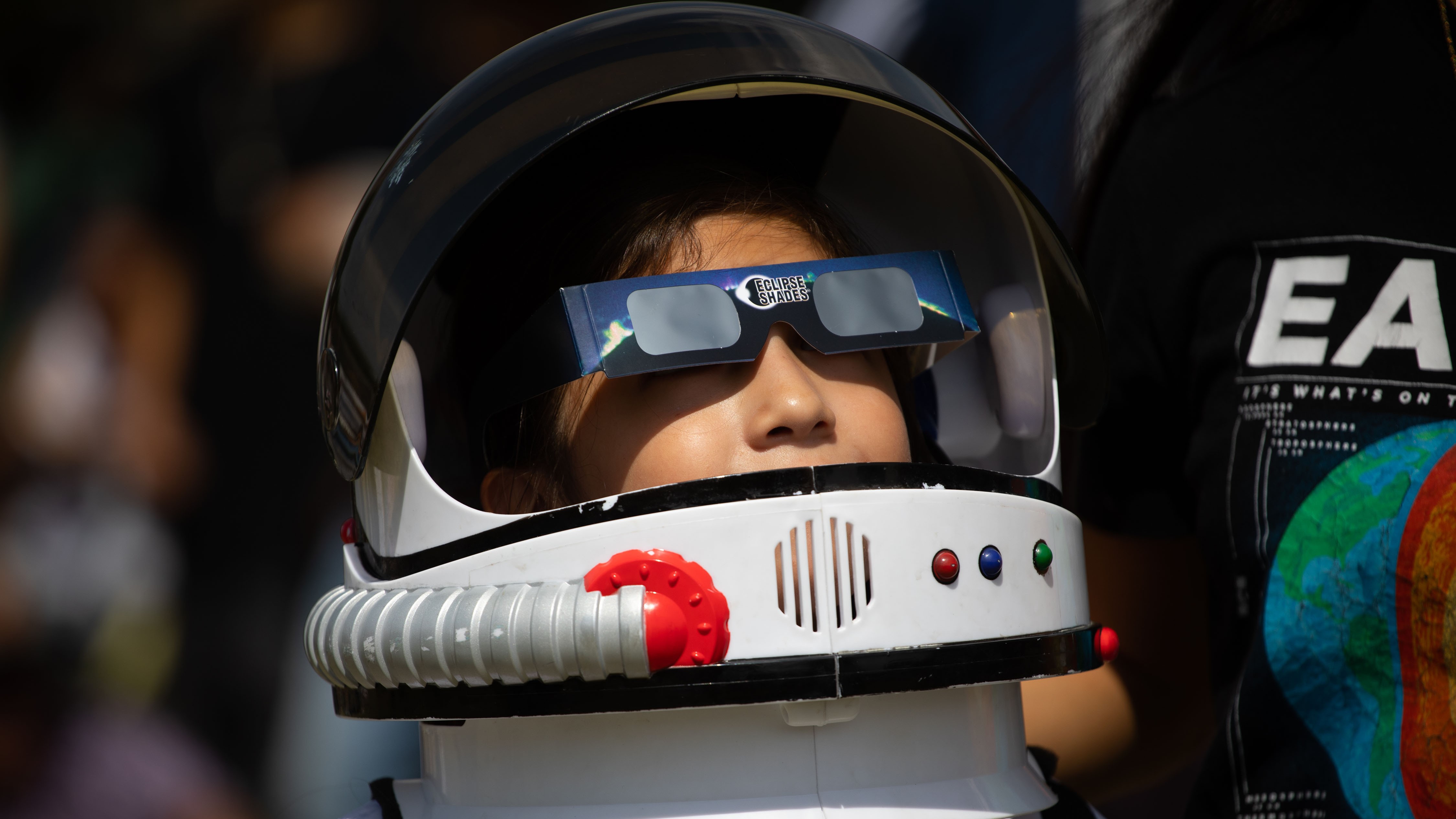
"Every adult has a few childhood memories that stand out vividly from the blur that becomes our history," said Debra Ross, publisher of KidsOutAndAbout.com, Chair of both the Rochester Task Force for Eclipse 2024 and Co-chair of the AAS Solar Eclipse Task Force, to Space.com.
"The upcoming eclipse presents a once-in-a-childhood opportunity for parents to help shape a lifelong memory for their kids and create a vivid bond with them that will resonate into their future."
From eclipse masks and pinhole cameras to capturing the emotions of the big day, here are some ideas on how to keep kids entertained!
Win a chance to watch the total solar eclipse from a jet!
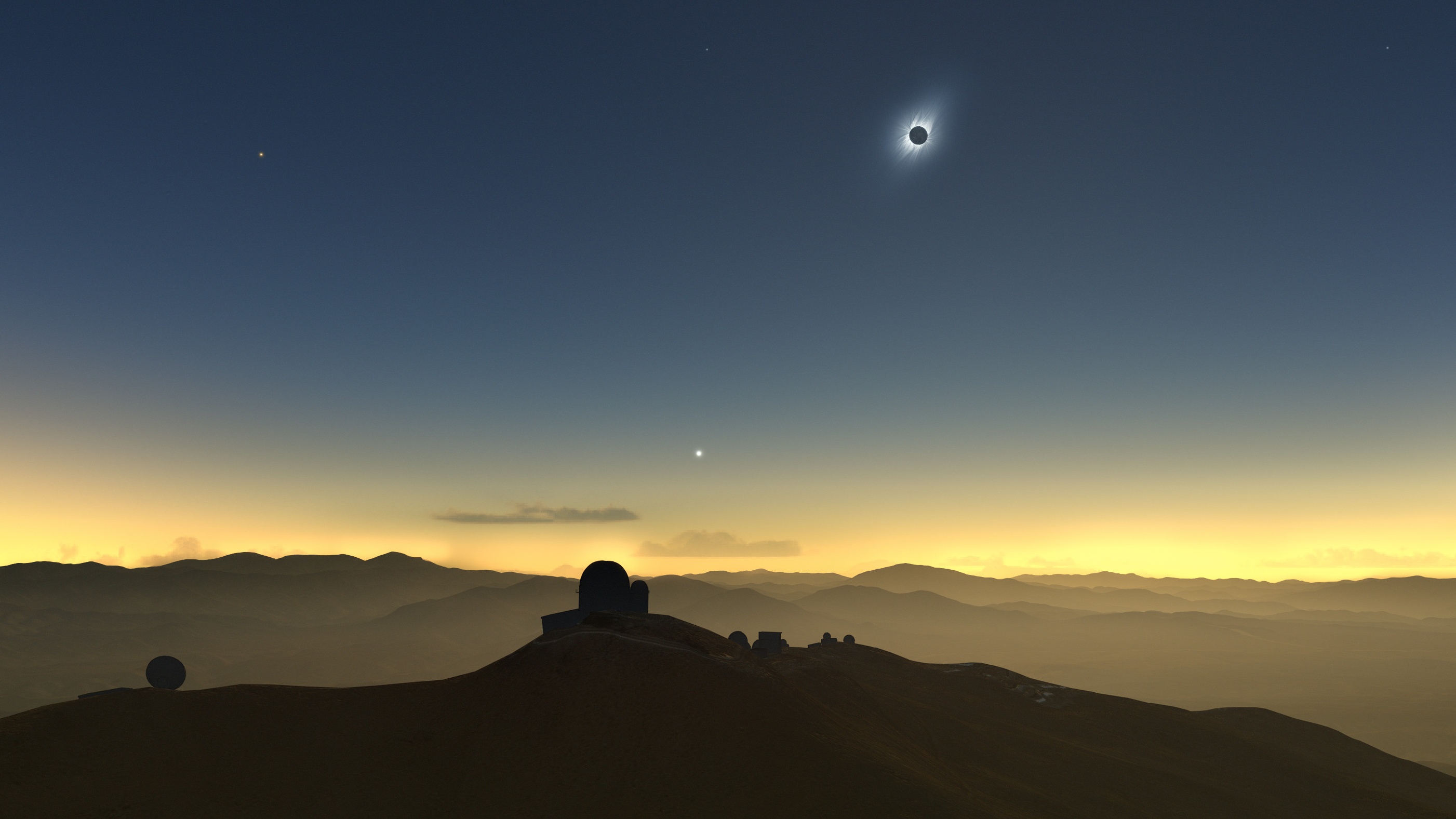
Hurry! You only have until March 14 to enter!
The public charter jet service JSX has announced it'll be arranging a specialty eclipse flight for winners of an online sweepstakes.
Flight 4824, a release put out by the airlines says, will depart on April 8 from a JSX-dedicated hangar at Dallas-Love Field in Texas at 1:00 p.m. CT.
The 30-seat jet will ascend 30,000 feet (9,144 meters) and travel within the path of totality — aka, the path along which you can see the moon totally eclipse the sun — then land back at the hangar by 3:00 p.m. CT.
Everyone, of course, will get a window seat.
Read more: You could win a chance to watch 2024's total solar eclipse from a jet. Here's how
Witnessing a total solar eclipse is extraordinary

A total eclipse of the sun is without a doubt, the greatest cosmic pageant that can be witnessed.
The daytime darkness will devour portions of 15 states, and only those inside the path of totality will have a chance to enjoy the brilliant show in the sky.
The delicate pearl-tinted halo known as the corona and the blood-red feathery markings called the prominences are visible only to those who see the total eclipse.
Read more: What will it be like to experience the total solar eclipse 2024?
Take a trip back through time

The total solar eclipse on April 8 will be one of the most-watched eclipses ever. But we have been captivated by such events for millennia and there's no surprise why. When the sky darkens and the temperature drops, all we can do is watch in awe as the spellbinding event unfolds.
Here we take a look at some iconic photographs through the ages of people enjoying the beauty and wonder of a solar eclipse.
Read more: Solar eclipse viewing through history: A roundup of some of the best photos
Stages of the total solar eclipse

Here we break down the entire chronology of the upcoming total solar eclipse on April 8 as the moon's shadow sweeps across North America.
Explore what causes an "eclipse season" and learn about the mechanics behind a solar eclipse with this informative guide by our skywatching columnist and meteorologist Joe Rao.
Rao also takes us on an in-depth and descriptive tour of each stage of the solar eclipse and what you can expect on the big day.
How well do you know the total solar eclipse 2024?
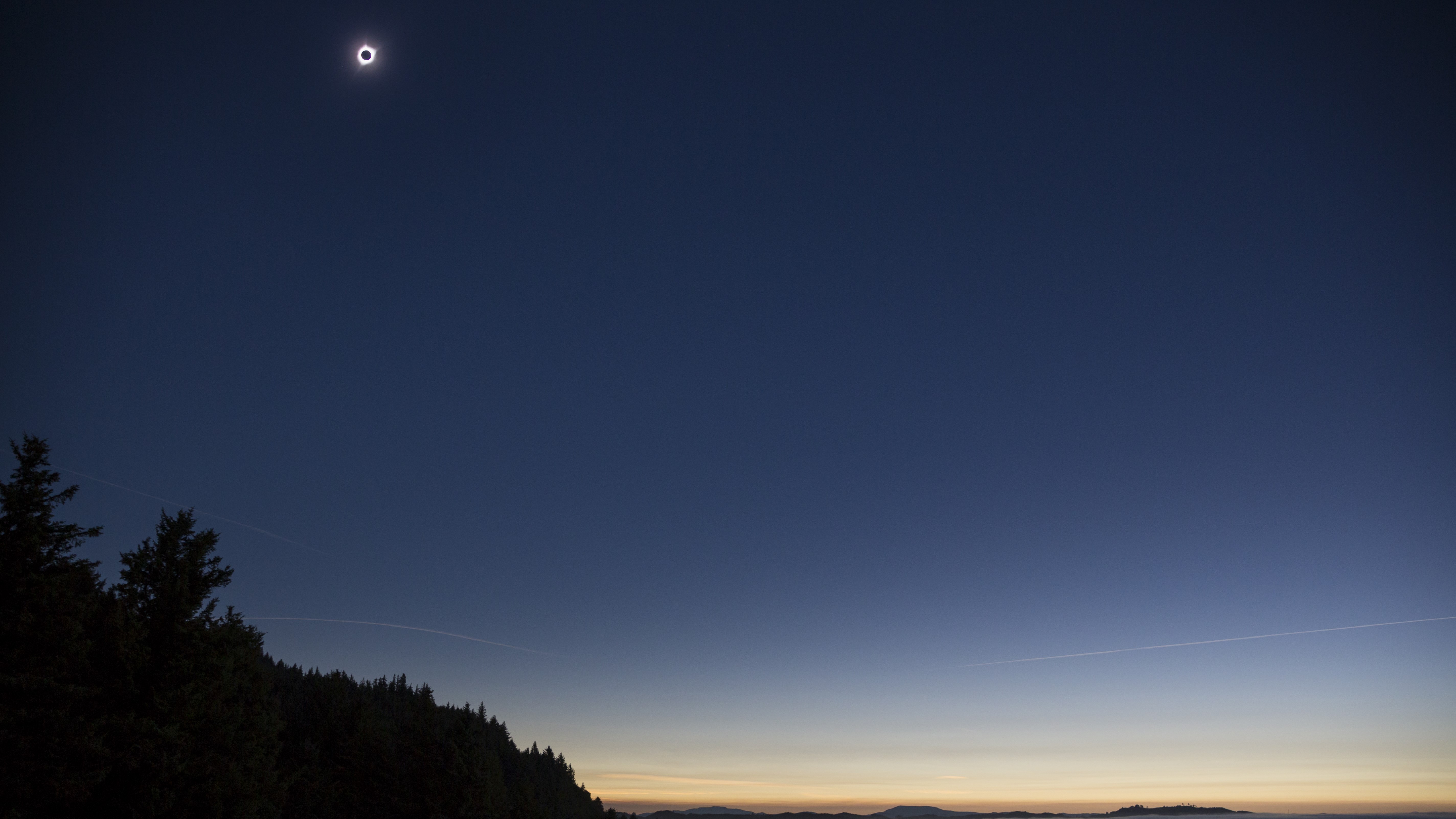
Only 28 days to go until the total solar eclipse sweeps across North America on April 8!
But how much do you know about it? From exactly how long the moon's central shadow will move across the planet to why the event will repeat for hundreds of years — and one day return to North America — here are ten facts that may surprise you.
Read more: 10 things you probably didn't know about the 2024 total solar eclipse
What to see and photograph during the eclipse
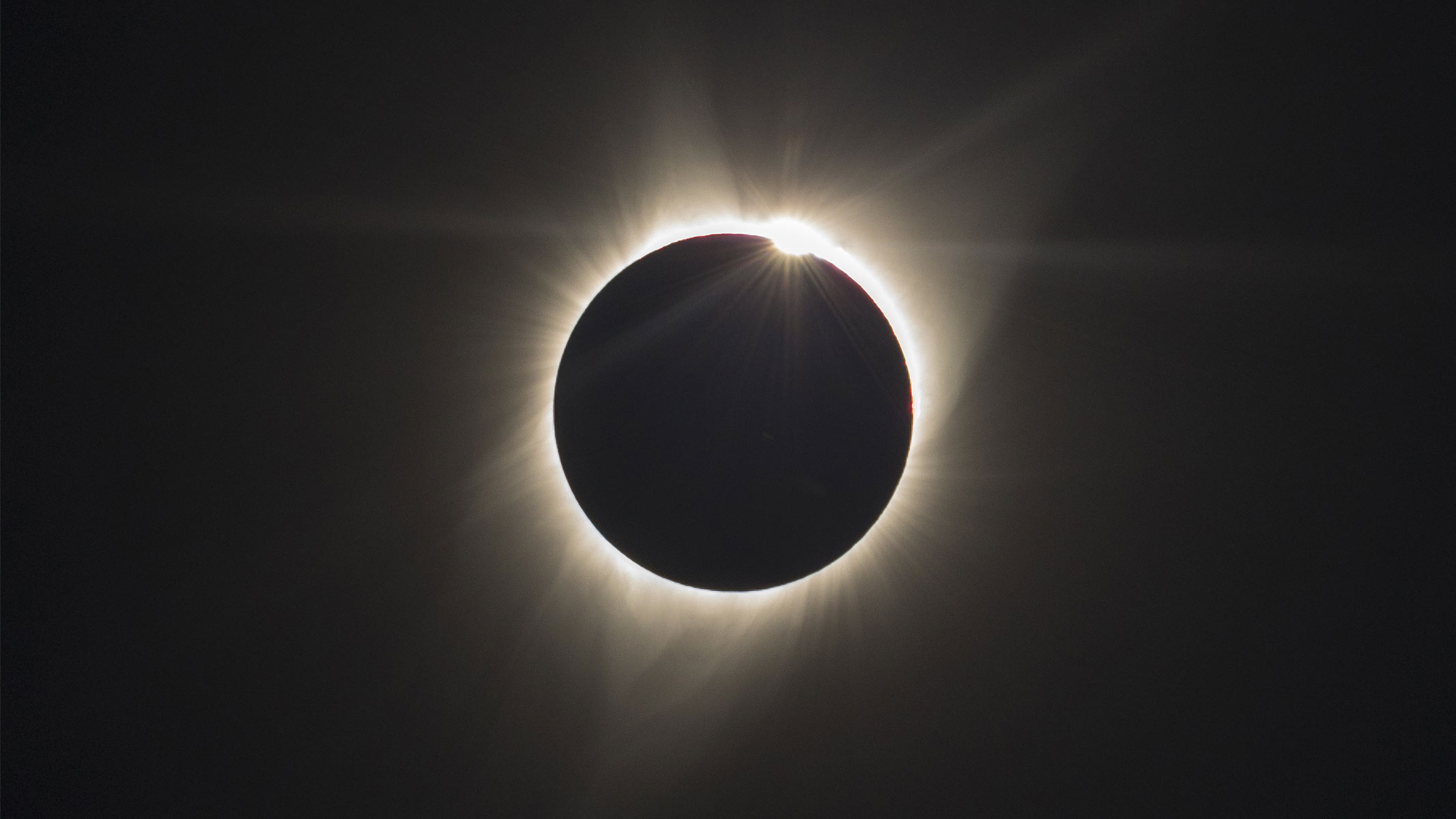
From 'shadow snakes' and 'double diamonds' to Baily's beads and the corona, there's so much to look out for on April 8.
While totality, may be the visual, experiential, and photographic highlight of the total solar eclipse on Monday, April 8, it's far from the only thing to experience. Here's what not to miss during the entire partial phases and totality.
Read more: 10 phenomena to see and photograph during April's total solar eclipse
Eclipse maps, get your eclipse maps!
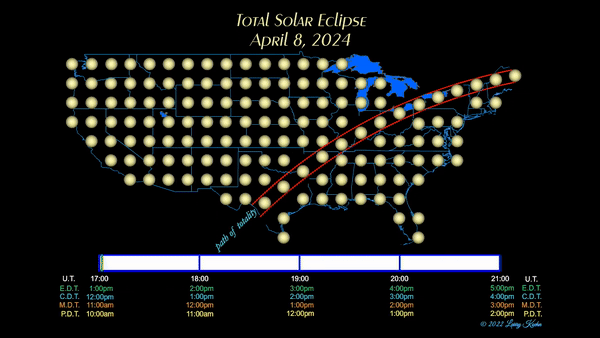
33 days to go!
Make sure you're in the right place at the right time for the total solar eclipse by navigating your way to the path of totality — the 115-mile (185-kilometer) wide route through Northern America where the moon will cover 100% of the sun's disk.
Here's a look at the path of totality for the 2024 eclipse using maps by cartographer Michael Zeiler of GreatAmericanEclipse.com.
Read more: Total solar eclipse 2024 maps of the 'path of totality'
If you need a helping hand we have written a "how to read and understand an eclipse map" article to help keep you on the right path.
Get yourself a free pair of solar eclipse glasses!
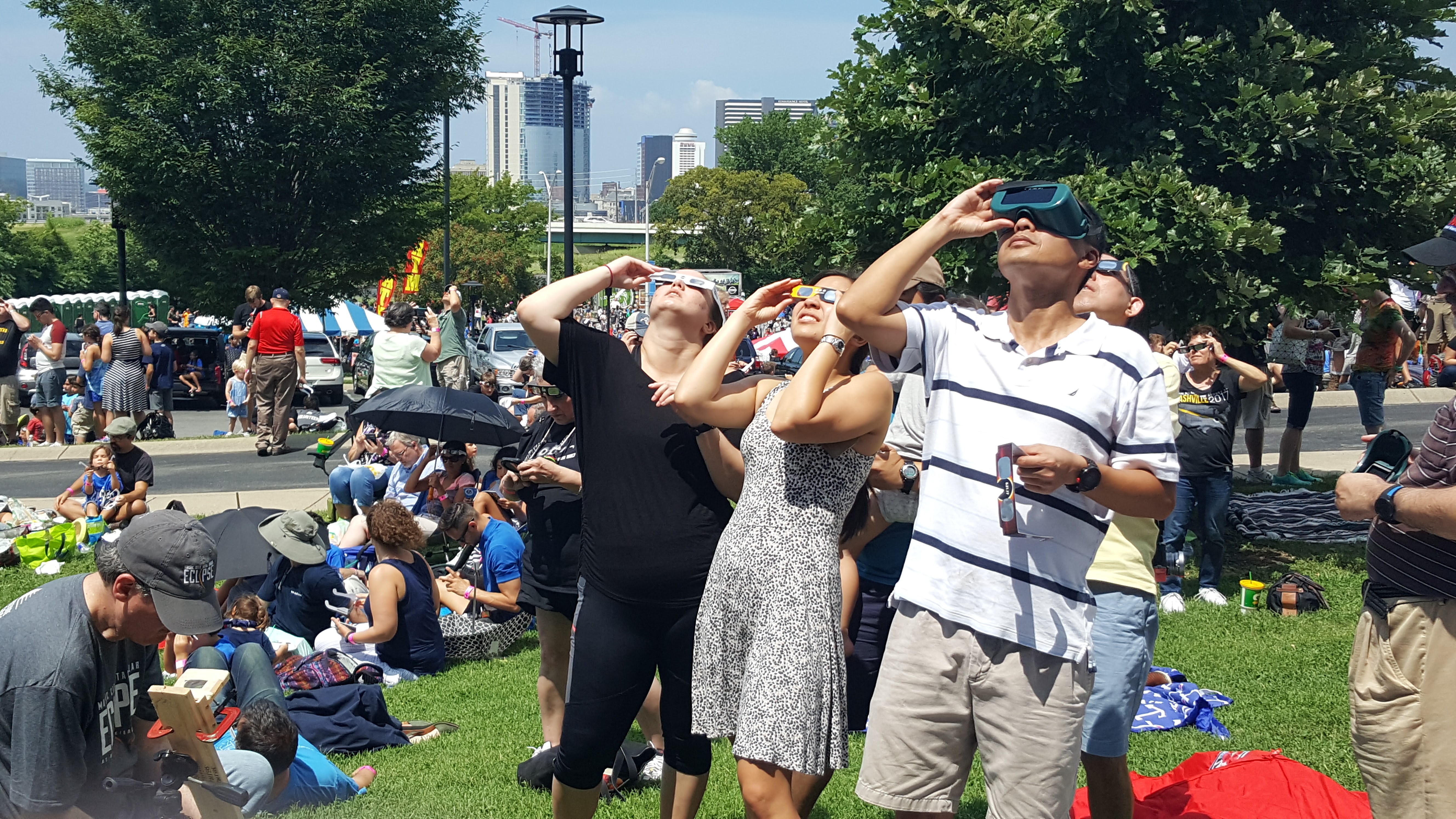
Warby Parker, known for its affordable yet trendy lenswear, has announced that all of its stores will be handing out free solar eclipse viewing glasses starting April 1 until the big day — April 8.
Warby Parker confirms that the glasses, manufactured by American Paper Optics, are ISO-certified — which means they meet an international safety standard for solar viewing.
Read more: Warby Parker will give you free solar eclipse glasses for the big day on April 8
Check out this great eclipse map and app
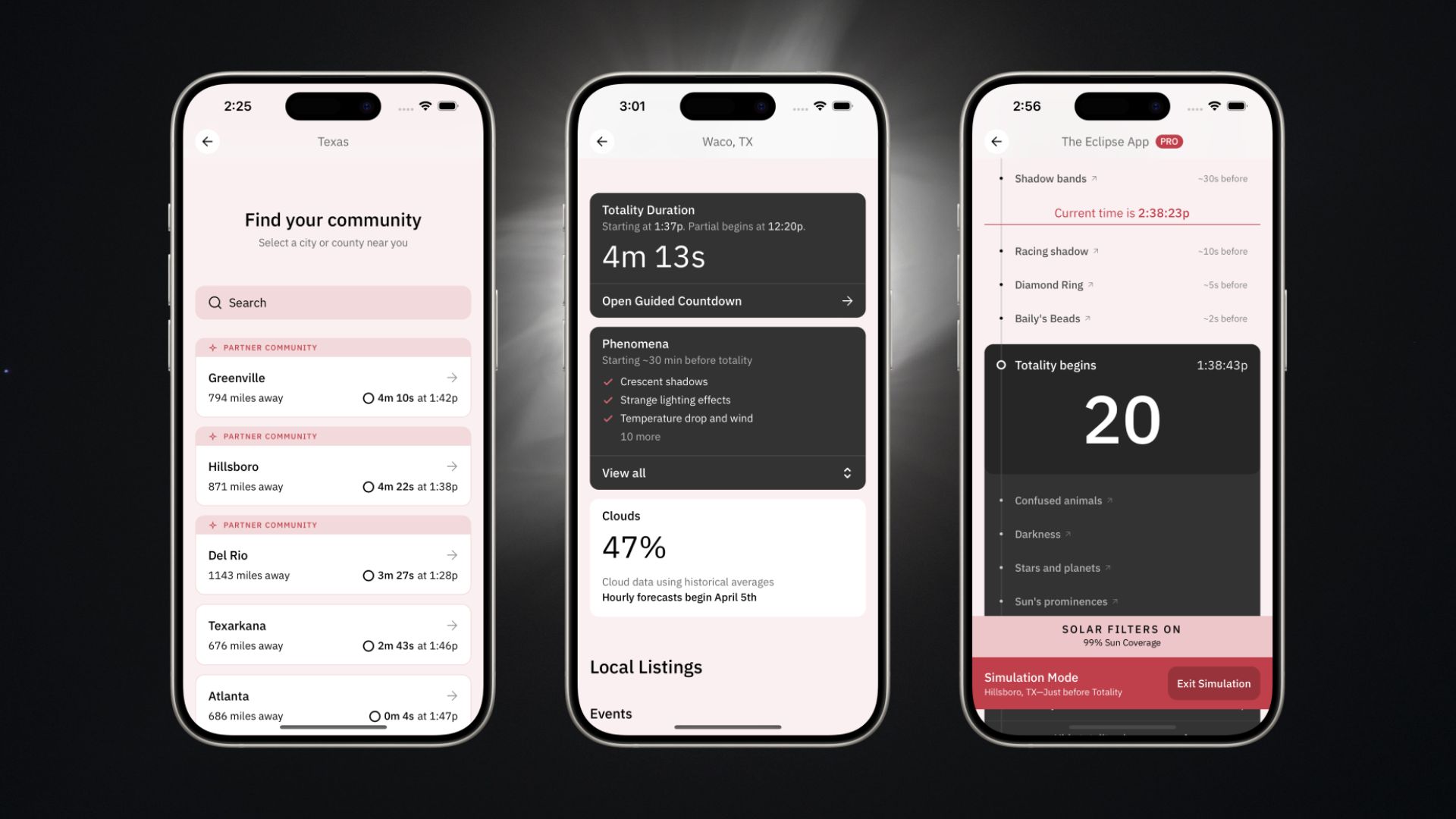
The Eclipse Company has developed 'The Eclipse App' in partnership with the Planetary Society. It is available for free for iOS in the App Store and for Android in the Play Store.
The Eclipse App is a great resource for people wanting to connect with local communities that lie within the path of totality. Users can browse local communities and save an itinerary of activities, as well as seek out official parking locations and explore local points of interest.
Their online interactive map allows users to track the path of the eclipse, find out the best viewing locations and see what eclipse events are being hosted in their local area.
Read more: Immerse yourself in the total eclipse 2024 with 'The Eclipse App' from The Eclipse Company
Astronauts on the ISS don't know where to look (at least for now)
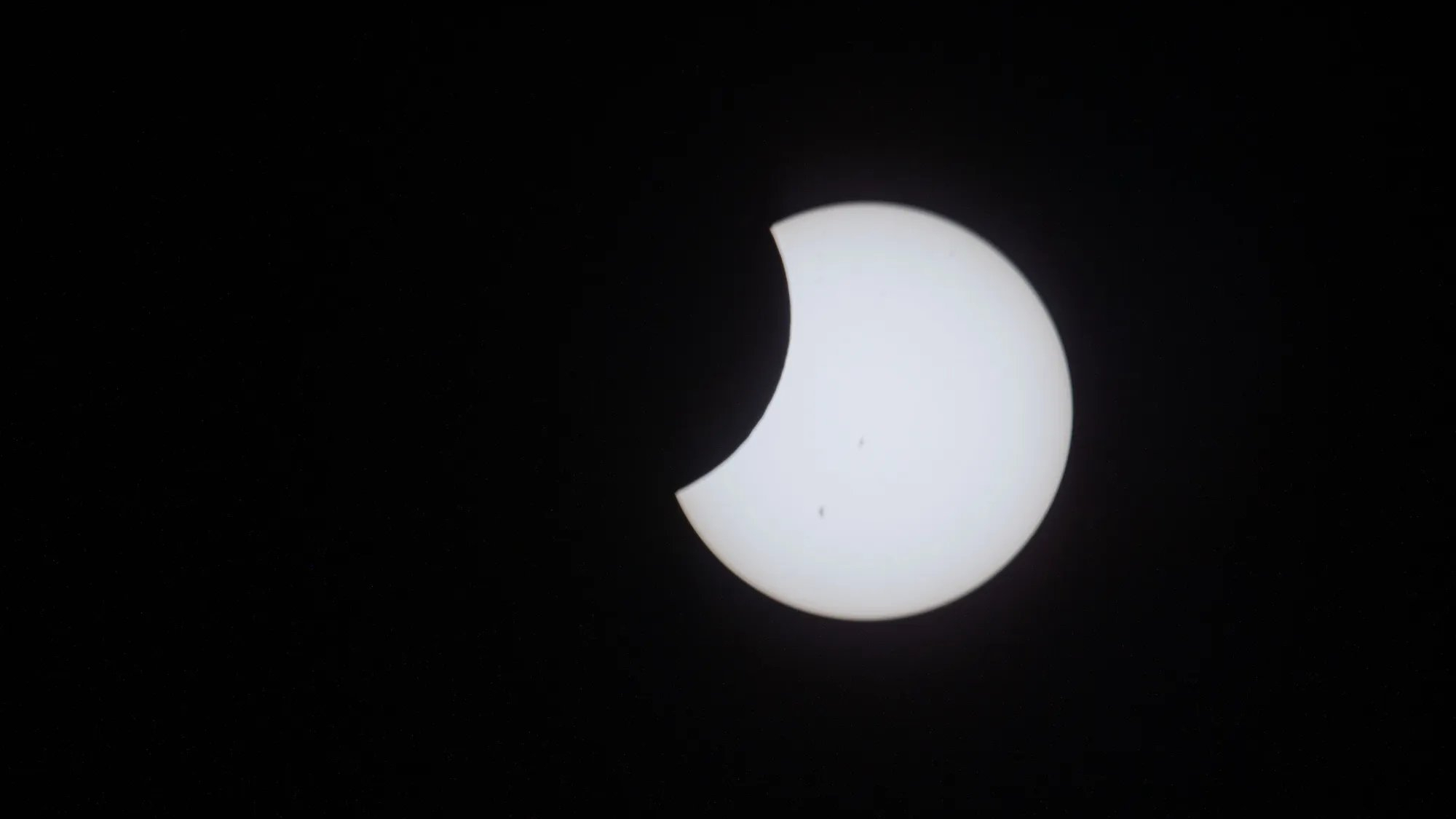
The Expedition 71 crew, which will include SpaceX's Crew-8 slated to launch no earlier than March 2, is finalizing its solar eclipse observing schedule. The goal is to catch the event from the International Space Station as it sweeps over the United States on April 8.
However, NASA astronauts told Space.com on Jan. 25 that, while the cameras are ready and the astronauts are trained, timing can't be decided for a long time.
Read more: Why ISS astronauts won't know where to look for next total solar eclipse for a while
Location Location Location!
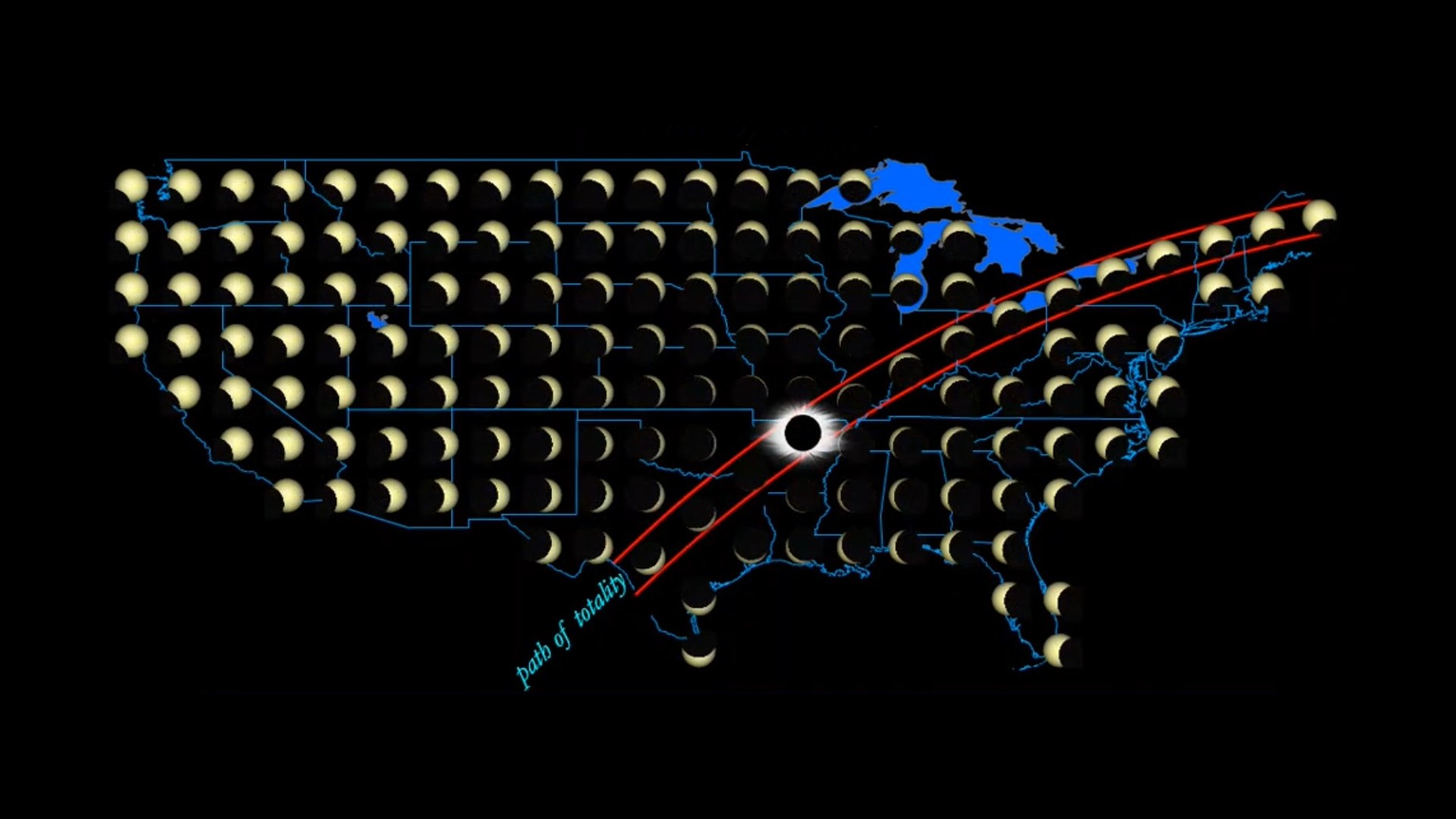
Find out where the total solar eclipse 2024 will be visible from and make sure you're in the best spot to experience totality at its finest.
The total solar eclipse will be visible through northern Mexico, parts of 15 U.S. states and southeastern Canada. It will be one of the most watched eclipses ever with over 32 million people living within the path of totality.
Read more: Where will the April 2024 total solar eclipse be visible from?
Don't get the eclipse wrong!
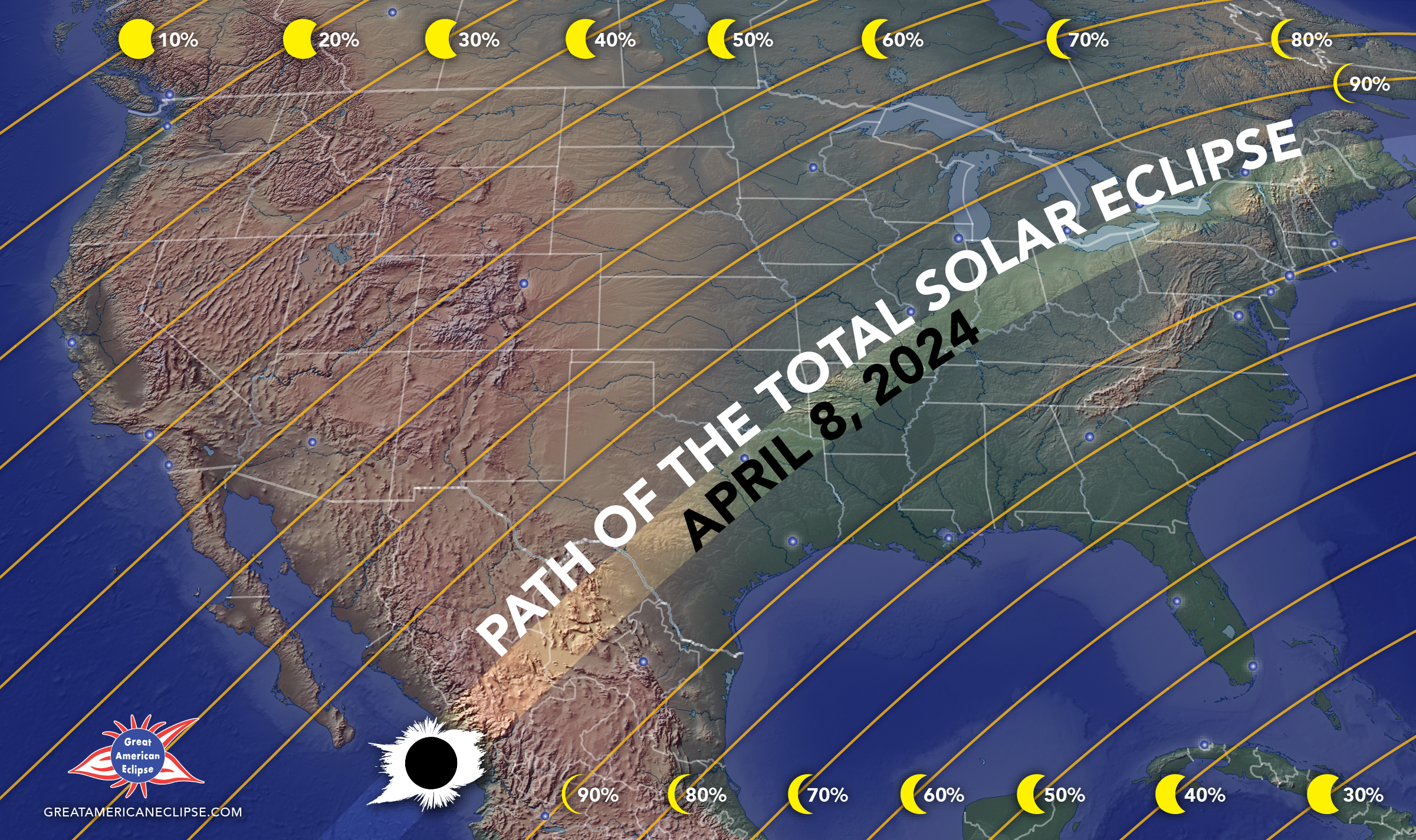
With just 39 days to go until the total solar eclipse on April 8, now is the time to make sure you plan to be in the right place at the right time!
Here's why you need to get to the path of totality and why settling for "99% totality" will not do.
NASA are investigating how the eclipse will affect nature
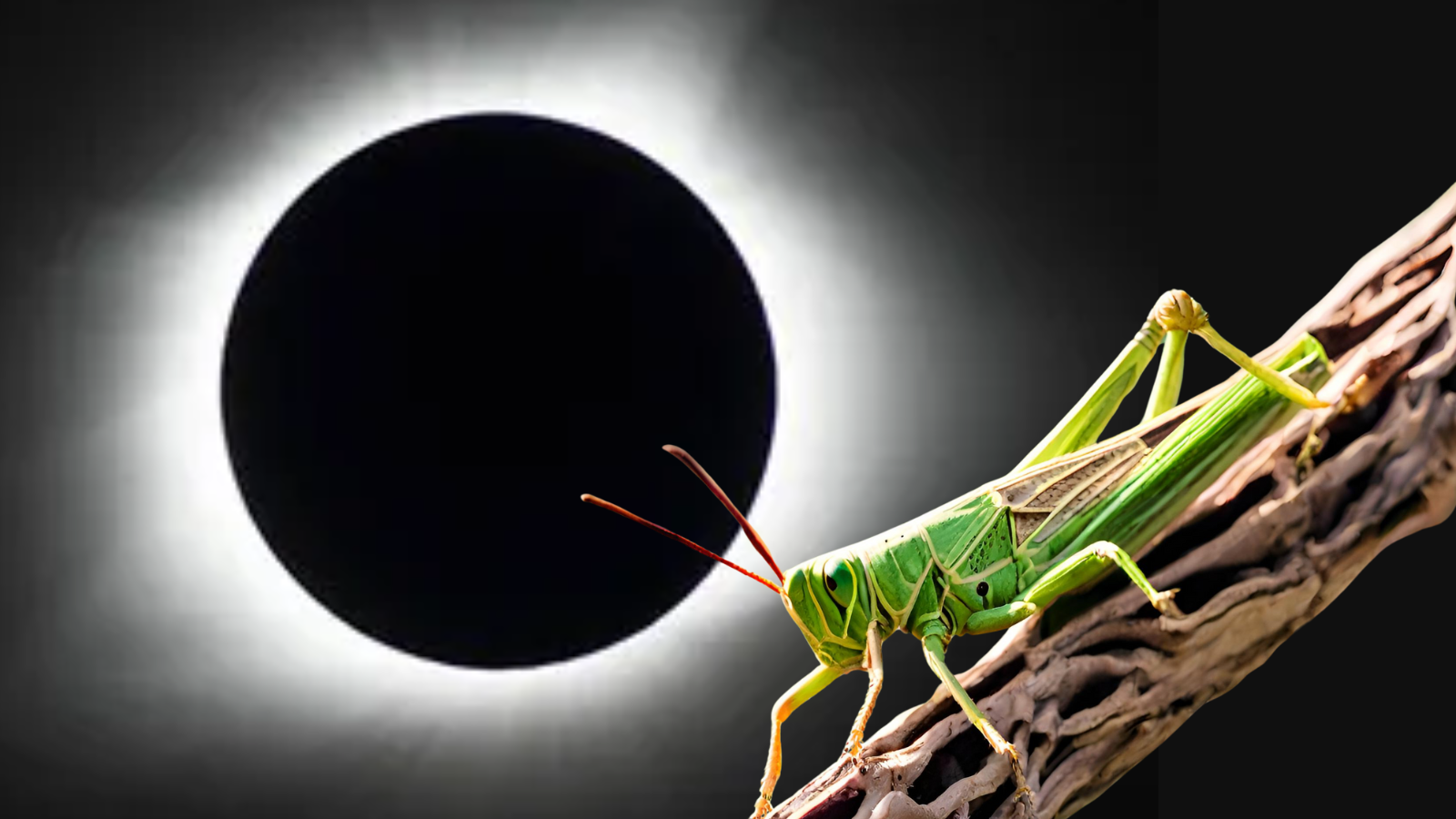
While humans will enjoy the majesty of the total solar eclipse as it sweeps across several states in the U.S. on April 8, 2024, the celestial event will also be experienced by flora and fauna.
That's why the NASA-funded Eclipse Soundscapes Project will observe and collate the sights and sounds of the total solar eclipse to allow humanity to better understand how such events can impact wildlife. The agency is also urging the public to join in on this effort.
Read more: NASA Eclipse Soundscapes Project will record how 2024's total solar eclipse impacts nature
Space.com's eclipse bookazine is now available
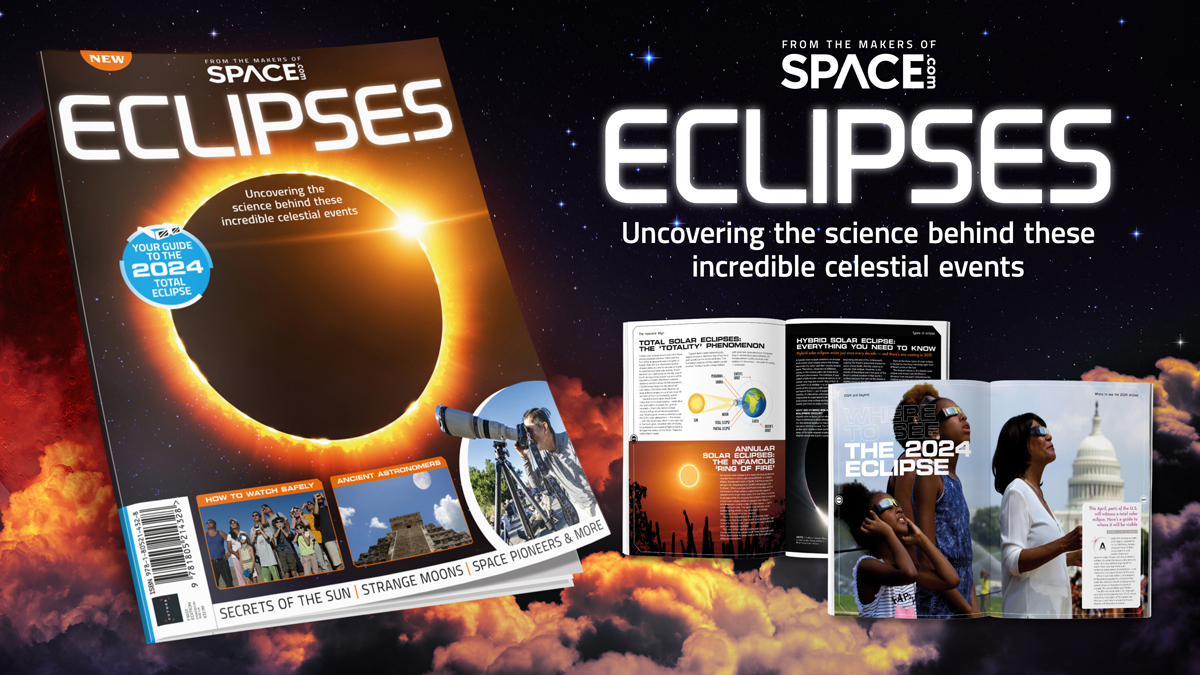
Space.com has come to print with a special magazine that guides you through all the information you will need to safely view and enjoy the most exciting astronomical event of 2024: a total solar eclipse that will sweep across the United States on April 8. It's on sale now, and you can buy it here through Magazines Direct.
Read more: Get ready for the 2024 total solar eclipse with Space.com with our 'Eclipses' bookazine
Time to test drive those eclipse glasses!

If you're all prepared for the upcoming total solar eclipse on April 8 then it's likely you have already got your eclipse glasses at the ready, so why not give them a test run before the big day?
With certified solar eclipse glasses you may be able to see the largest sunspot of Solar Cycle 25 — AR3590 — on the surface of the sun! Remember to NEVER look at the sun without appropriate safety equipment, only Observers need to wear solar eclipse glasses, and cameras, telescopes and binoculars must have solar filters placed in front of their lenses at all times.
Want some more tips on how to view the sun and what to look out for check out our handy sun viewing guide.
Delta Air Lines offers special eclipse flight
We're now just 46 days out from the total solar eclipse on April 8; do you know where you'll be seeing it from?
If you're still making plans, Delta Air Lines is offering a unique way to experience the total solar eclipse with a special flight along the path of totality.
A Delta flight from Austin, Texas to Detroit, Michigan will fly along the path of the moon's shadow during the total solar eclipse on April 8, 2024, offering passengers an extended view at the longest and most visible total solar eclipse for the US in 100 years. It'll certainly be a flight to remember!
Read more: Delta Air Lines wants to fly you through the 2024 total solar eclipse from 30,000 feet in the sky
How to photograph the 2024 total solar eclipse with a smartphone
The 2024 total solar eclipse is just 52 days away!
For many of us, the eclipse will be a once-in-a-lifetime event, and we'll want the photos to look back upon. But even if you don't have a professional photography rig, it's it's possible to produce spectacular images and videos of April's total solar eclipse across North America using a smartphone.
We've assembled a list of expert tips to help you get the best photos of the total solar eclipse possible using only your mobile device.
Read more: How to photograph a solar eclipse with a smartphone 2024 — 8 tips from an expert
Want all the gear but have no idea where to start?
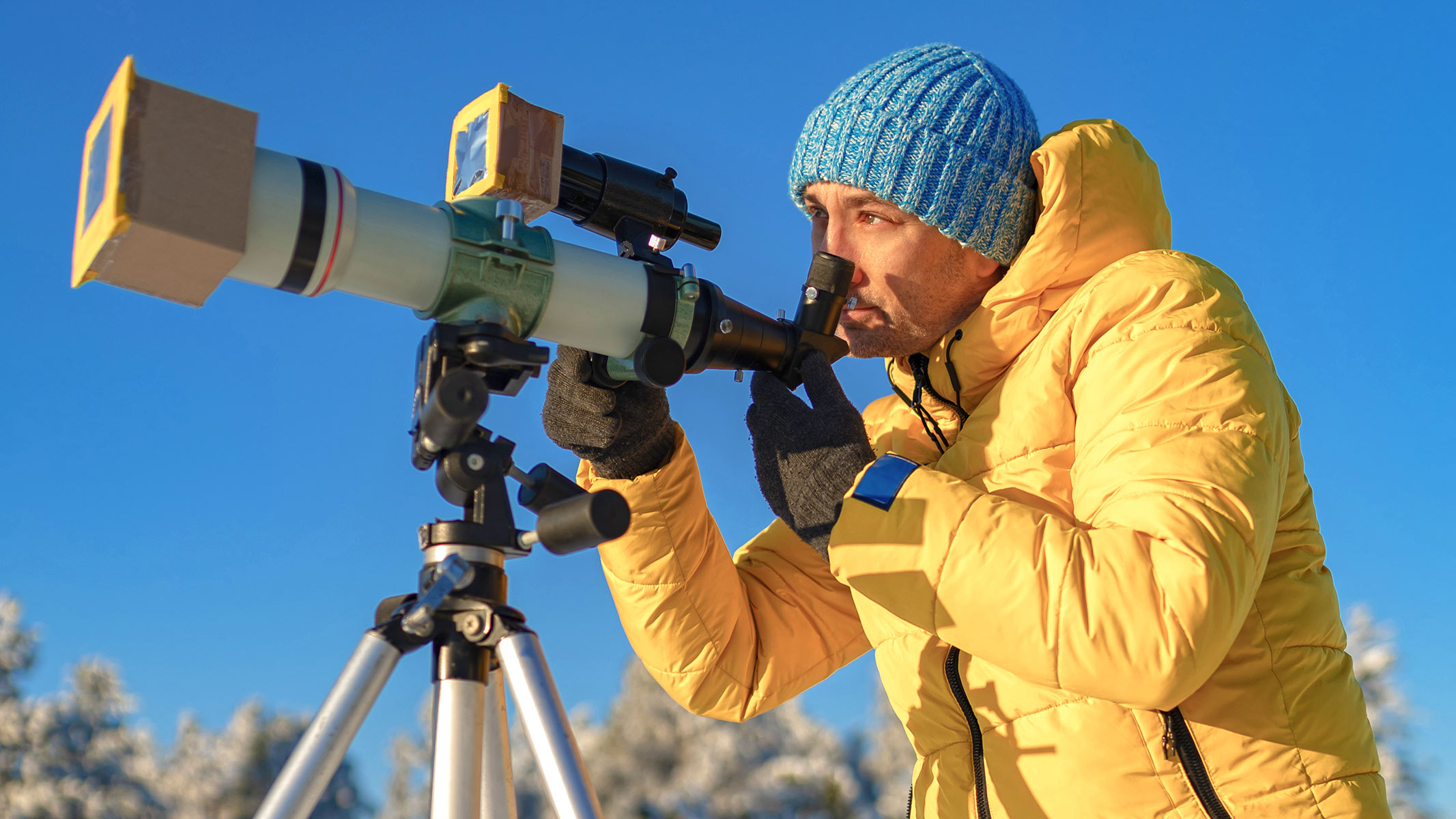
With 53 days to go until the total solar eclipse, it's time to make sure you have everything you need!
To help you get the most out of your solar eclipse viewing experience we've rounded up some of the best solar viewing equipment including solar glasses, telescopes, binoculars and filters.
Read more: Best solar viewing kits to observe the April 8 solar eclipse
Have you planned your eclipse trip yet?
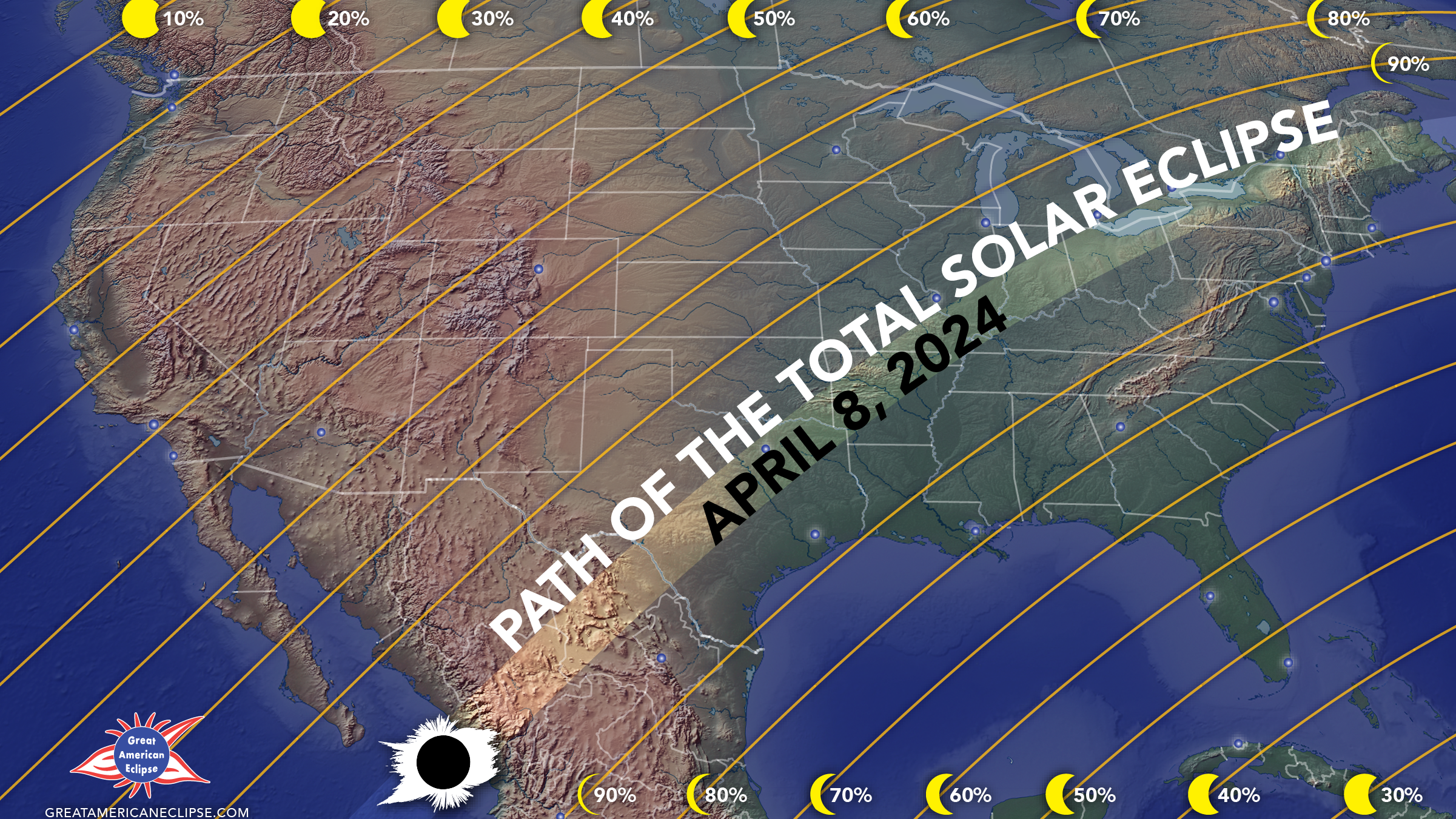
With 54 days to go it's not too late to plan your eclipse viewing trip.
From scouting locations to staying safe, here's how to prepare for the total solar eclipse.
Read more: 8 top tips for planning your trip
60 days to go — are you ready?

The countdown is on!
With just 60 days until the total solar eclipse on April 8, now is the time to make sure you're all kitted out with everything you need to view the eclipse safely. There are lots of ways to view the sun but one of the easiest is perhaps to just don a pair of certified eclipse glasses.
Our solar eclipse glasses guide tells you everything you need to know about choosing a pair of eclipse glasses including where to buy them from.
Read more: Solar Eclipse Glasses: Where to buy the best, high-quality eyewear
Total solar eclipse 2024 vs 2017: How do they compare?
On August 21, 2017, a total solar eclipse moved from the Pacific to the Atlantic, throwing a narrow corridor through 14 U.S. states under the moon's shadow in the first coast-to-coast totality for 99 years. On that day, the shadow moved from Oregon across the U.S. to South Carolina, from roughly northwest to southeast.
It's about to happen again, with the total solar eclipse on April 8 again beginning in the Pacific and ending in the Atlantic, but this time, the path appears to track from southwest to northeast.
We take a look at how these two iconic solar eclipses compare.
Read more: How will the 2024 total solar eclipse differ from the 2017 total solar eclipse?
Shadow bands: Possibly the most eerie phenomena that can accompany a solar eclipse

On Monday, April 8, as most readers certainly know by now, the shadow of the moon will sweep down from space and slide across the surface of the Earth, bringing a total solar eclipse to parts of the contiguous United States for the first time since 2017.
The highlight of totality for many will be the opportunity to view the incredible solar corona — the twisted outer atmosphere that reveals the presence of the sun's active magnetic field — as well as seeing stars and planets pop into view during the daytime.
But there is another unusual phenomenon that is visible only when the sun has narrowed to just a filament of light: Shadow bands.
Read more: Shadow bands are a solar eclipse mystery (and not everyone sees them)
What you'll see if you're outside the path of totality

Unlike a total eclipse of the sun, concentrating its excitement into a few fleeting minutes, a partial eclipse can be watched leisurely from wherever one happens to be.
On April 8, 2024, viewers about 2,600 miles (4,200 km) on either side of the totality path will get a partial eclipse, with the moon initially making a slight dent in the sun's edge.
Read more: Total solar eclipse April 8, 2024 — What you'll see if you're outside the path of totality
One of the best US solar eclipses in 100 years!
The April 8 total solar eclipse will be one of the longest and most visible for the U.S. in 100 years, with a maximum duration of 4 minutes 28.2 seconds.
During the last 100 years, from 1925 (inclusive) to 2024, the maximum duration of totality of 75 solar eclipses sampled (including annular-total/hybrid and non-central total eclipses) averaged 3 minutes 13 seconds.
Our upcoming total solar eclipse on April 8, will achieve a maximum duration of 4 minutes 28.2 seconds in north central Mexico. Among the 75 solar eclipses that we sampled, 29 belong to the "Four Minute or Greater Club" and the April 8 eclipse ranks among the top 25% in terms of duration.
Read more: Total solar eclipse April 8, 2024: The longest and most visible for the US in 100 years
Did somebody say road trip?
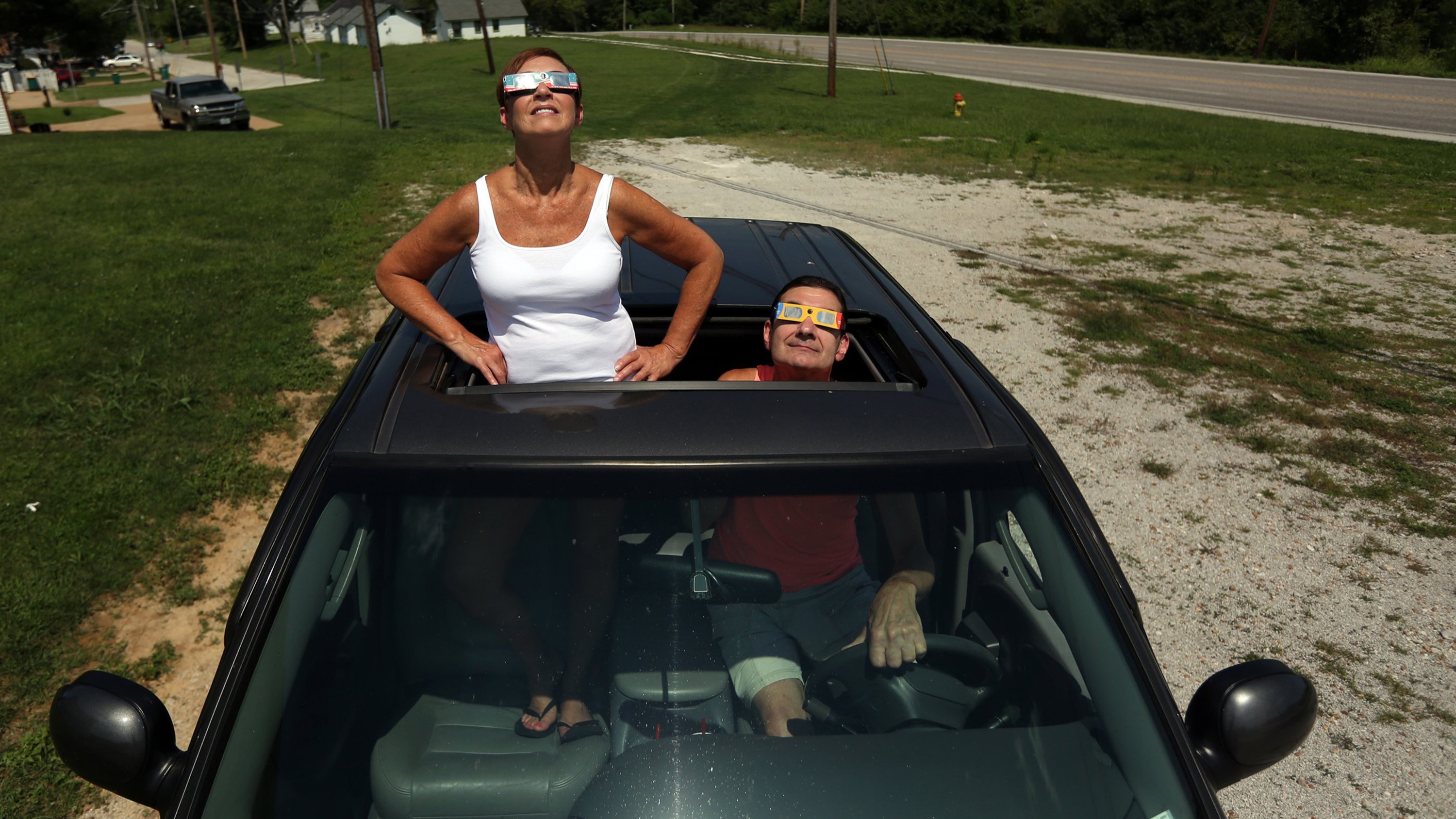
If you're after a unique way to experience the total solar eclipse on April 8, 2024, then consider a road trip.
On that day, a path of totality 115 miles wide (185 kilometers) will stretch across parts of three Mexican states, 15 U.S. states and five Canadian provinces.
It will be an exciting space event not to be missed but it's also an excellent opportunity to explore. Whether you're a stargazer, history buff, or space enthusiast, here are six road trip options to make the total solar eclipse a memorable experience.
Read more: Road trip! See April's total solar eclipse from one of these awesome North American routes
Don't stress about getting to the centerline
On average, the path of totality will be 115 miles (185 kilometers) wide as it crosses northern Mexico, parts of 15 U.S. states and five Canadian provinces, but people at the center and those at the edge will have a different viewing experience.
If you're aiming to experience totality then stay away from the very edge of the path but there is no need to obsess over the centerline.
The closer you get to the centerline, the less difference it makes in duration. Given that crowds will go to locations right on the centerline, it makes sense to go somewhere just shy of it.
Don't make these common mistakes!
A total solar eclipse is a dynamic event that can be complicated to understand. For example, totality is only on the menu for those within a narrow path stretching across North America. It's only 115 miles wide. Everyone else in North America will see an under-whelming partial solar eclipse. But it also matters where you are within the path of totality.
Experiencing a total solar eclipse doesn’t require any scientific knowledge, but it does require some planning and decision-making. Here are some common mistakes would-be eclipse-chasers make.
Read more: 10 rookie mistakes first-time eclipse-chasers make (and how to avoid them)
Want to avoid the crowds?
Texas could see a million visitors for the total solar eclipse on April 8, 2024, while half a million could travel to Indiana and Ohio, according to new eclipse visitation estimates from eclipse cartographer Michael Zeiler at GreatAmericanEclipse.com.
You may have heard about specific events, cities promoting themselves and beauty spots that would make ideal eclipse-observing locations. But where will people actually go on April 8?
Read more: Where will the most crowded places be for the total solar eclipse on April 8, 2024?
Why not experience totality from one of these eclipse-themed locations?
Eclipse Island, Corona and Moon Island are just some of the places you can watch the total solar eclipse on April 8.
Here we've rounded up eclipse-related place names located within the path of totality along with the local time and duration of totality.
Read more: These eclipse-themed places will experience totality on April 8, 2024
The best places in the US to experience totality
Seven years ago, the path of totality was relatively remote. This time, on April 8 2024, it will pass by some vast cities and metropolitan areas, ranging northeast from Texas through Maine. Only from within this path will it be possible to witness totality for up to 4 minutes and 26 seconds.
Here we have rounded up some of the best places in the US to experience the total solar eclipse.
Planning on watching the eclipse from Canada?
We've rounded up some of the best viewing locations in Canada to watch the total solar eclipse on April 8, 2024.
"It's going to be a huge event because even though totality is only coming to the south of Canada, everybody in the country will see a partial eclipse," Olivier Hernandez, director of the Rio Tinto Alcan Planétarium in Montreal, told Space.com. "That has not happened for over 30 years."
Read more: The best places in Canada to see the 2024 total solar eclipse
Here's why the sun's corona should look its spectacular spiky best during April's eclipse
A dramatic view of the sun at' solar maximum' will await eclipse-chasers on April 8, 2024, during North America's total solar eclipse.
Only those within a 125-mile (200 km) wide path of totality can glimpse the sun's corona — its hotter outer atmosphere — with their naked eyes during totality. Only during the exact moment of totality, when the moon completely obscures the sun can you look with the naked eye. At all other times, precautions need to be taken. It's a sight to behold, whatever the level of solar activity, but the latest predictions have the sun reaching the peak of its current cycle in 2024, the corona now looks set to be at its largest and spikiest just in time for totality. With cameras much improved since the last solar maximum in 2012, unique images will be possible.
Read more: Solar maximum: Why April's total Solar Eclipse will bring unique views of the sun's corona
Looking for some new kit to view the solar eclipse?
If you're looking to purchase some new kit to view the upcoming solar eclipse, this Cyber Monday telescope deal is well worth it!
The Cyber Monday deal from B&H Photo Video slashes the price of the Celestron NexStar 6SE Schmidt-Cassegrain Telescope and EclipSmart Solar Filter Kit by more than $1,000. Originally $2,047.95 it is now $948.95.
A great all-rounder telescope and with the EclipSmart White-Light Solar Filter that is ISO 12312-2 compliant for safe solar viewing, it's the perfect eclipse-viewing companion.
Celestron NexStar 6SE Schmidt-Cassegrain Telescope and EclipSmart Solar Filter Kit was $2,047.95 now $948.95 from B&H Photo Video.
Save $1,099 on a telescope and solar filter kit that offers clear views of the cosmos and an excellent tracking system. The 1499 mm focal length is great for exploring deep space objects and the EclipSmart Solar Filter is the ideal accessory to help you safely view an eclipse.
Why not experience nature's most remarkable spectacle in a beautiful setting?
The path of totality — a narrow path around 115 miles (185 kilometers) wide where the moon completely obscures the sun — runs through Mexico to Canada via 15 U.S. states, and will pass through many state parks, national parks and other scenic spots that offer a perfect backdrop for this rare and stunning event.
We've rounded up 10 of the best locations to enjoy the total solar eclipse on April 8, 2024.
Read more: 10 scenic spots to watch the April 2024 total solar eclipse
The 'Totality' app is the perfect tool to accompany you on your eclipse viewing experience
The free "Totality" app is available for iOS and Android users in English, Spanish, French, and Portuguese.
The app's interactive map feature shows you where in the world upcoming solar eclipses will be visible and uses your phone's GPS to tell you what those eclipses would look like from your current location.
The "learn" section provides ample solar eclipse resources such as information on how, when and why solar eclipses occur as well as classroom activities meant to inspire the next generation of budding eclipse chasers.
Planning on viewing the eclipse from Mexico?
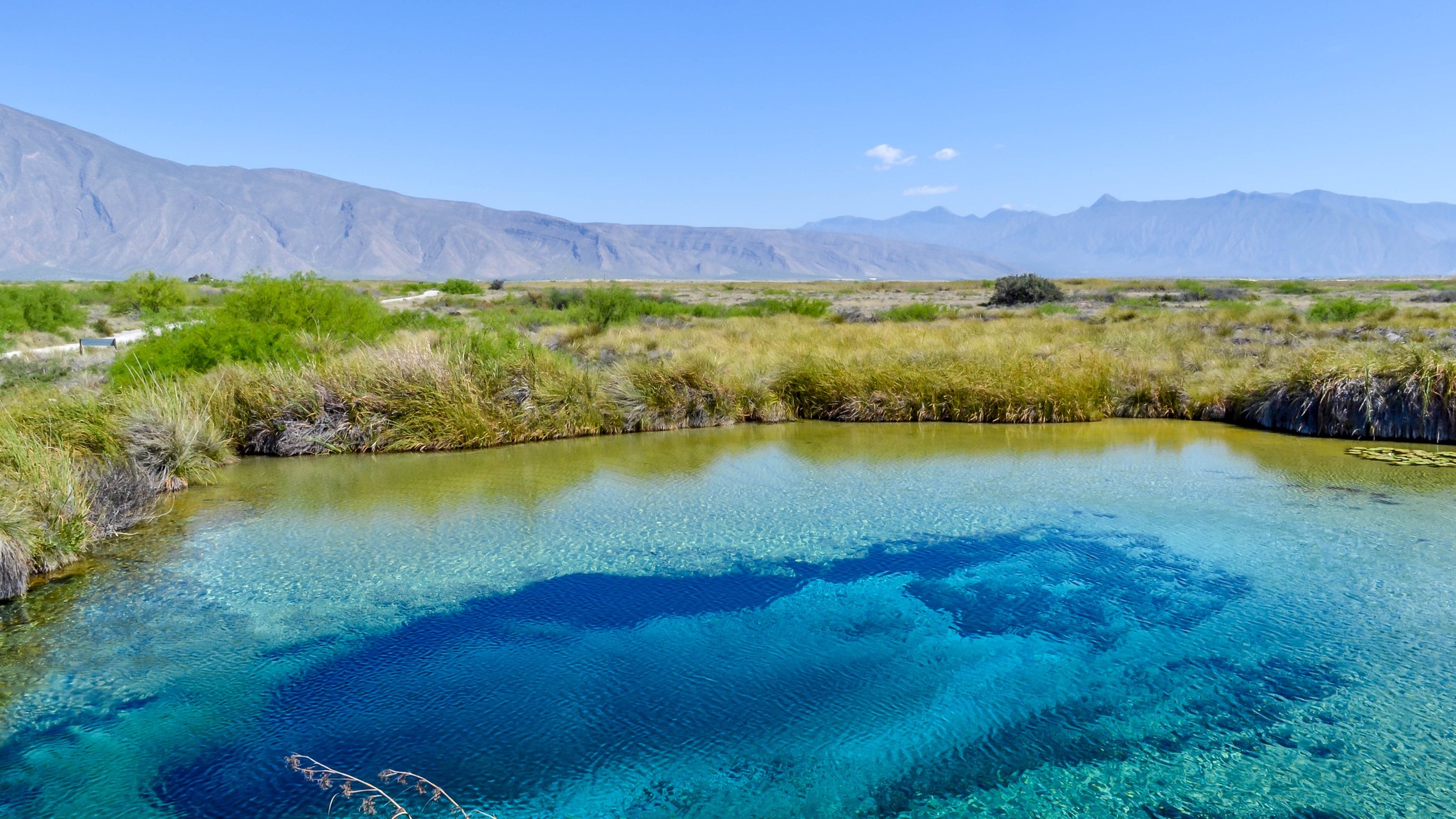
Some of the best places to witness the upcoming total solar eclipse on April 8, 2024, are in Mexico.
The shadow of the moon will first strike Earth about 370 miles (600 kilometers) off the west coast of Mexico at Isla Socorro before visiting three of the Islas Marías just 60 miles (100 km) from the mainland. It will then sweep across Mexico from Mazatlán, Durango, Torreón and Monclova as the path tracks northeast toward the U.S. border at Piedras Negras.
Read more: The best places in Mexico to see the total solar eclipse on April 8, 2024
Where will you be celebrating the total solar eclipse?
If you want some inspiration on where to head for the ultimate total solar eclipse viewing experience we've rounded up some of the best parties, festivals and eclipse events across the U.S., Canada and Mexico.
The all-important path of totality will pass through northwest Mexico, 15 U.S. states (Texas, Oklahoma, Arkansas, Missouri, Illinois, Kentucky, Tennessee, Michigan, Indiana, Ohio, Pennsylvania, New York, Vermont, New Hampshire and Maine) and five Canadian provinces (Ontario, Quebec, New Brunswick, Prince Edward Island and Newfoundland).
Read more: April 2024 total solar eclipse viewing events: Parties, festivals and more
Where is the best place to see the April 2024 total solar eclipse?
Total solar eclipses are rare opportunities that are not to be missed. After next year's total solar eclipse on April 8, 2024, the next total solar eclipse that will be visible from North America will be in 2044.
Being in the right place at the right time is crucial for seeing one of these celestial spectacles. Want to know where you should be to catch the "Great American Eclipse?" Read our guide below for a list of the best places to see the April 2024 total solar eclipse.
Read more: Where is the best place to see the April 2024 total solar eclipse?
Will El Niño affect the chances of clear skies?
Where will the best weather be for the total solar eclipse on April 8, 2024? That's the burning question for eclipse chasers who are now making preparations and travel plans, but an incoming El Niño threatens to make things a little more complicated.
The incoming disruptive global climate pattern underscores the path of totality through Mexico and Texas as the best places to be for the lowest chance of cloud cover.
Read more: How El Niño may affect the chances of clear skies for the 2024 total solar eclipse
Where will the total eclipse be visible from?
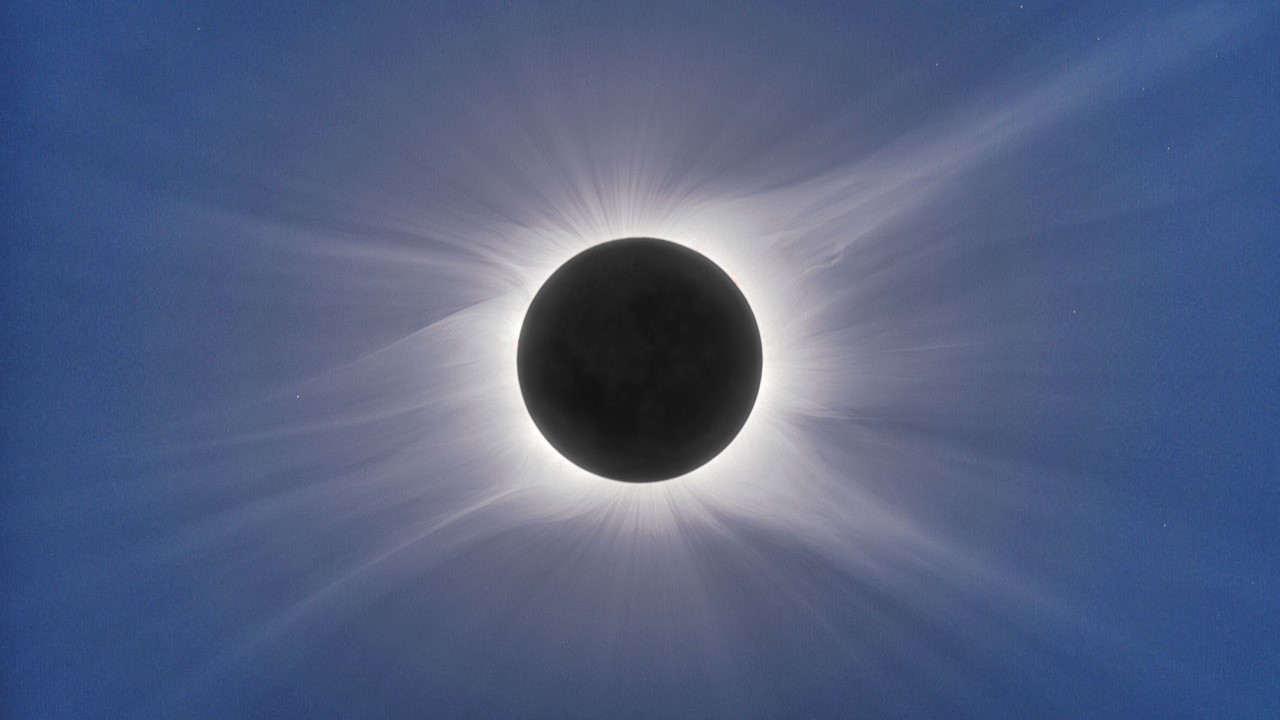
Location is key to a successful total solar eclipse viewing experience.
All of North America will see a partial solar eclipse, but only those within the path of totality will get to encounter a total solar eclipse.
The all-important path of totality heads from northwest Mexico through the U.S. to southeastern Canada. That path will be 115 miles (183 kilometers) wide, on average, and only within it will it be possible to experience darkness in the day and glimpse the sun's corona for up to 4 minutes 28 seconds.
Read more: Where will the April 2024 total solar eclipse be visible from?
Here's how scientists will study the sun during the total eclipse
The total solar eclipse that will sweep across the Americas on April 8 will provide scientists with a rather unique view of the sun and the perfect opportunity to study it in more detail.
"Scientists have long used solar eclipses to make scientific discoveries," Kelly Korreck, program scientist at NASA Headquarters, said in the statement. "They have helped us make the first detection of helium, have given us evidence for the theory of general relativity, and allowed us to better understand the sun's influence on Earth's upper atmosphere."
Learn more about the five science experiments selected by NASA to study the Great North American Eclipse of 2024.
Remember '99% totality' does not exist!
There's a reason why the path of totality is called what it is. Mistakes will be made by many would-be eclipse-chasers on April 8, 2024.
Inside the 115-mile wide path of totality — which will stretch across North America that day — some will forget to take off their eclipse glasses (during "totality"), missing a once-on-a-lifetime view of the solar corona.
Others will lose track of time and be queuing for the bathroom as the moon totally eclipses the sun. However, the biggest celestial crime it's possible to make when a total solar eclipse comes to town is to settle for 99%.
Countdown to April's total solar eclipse has begun!
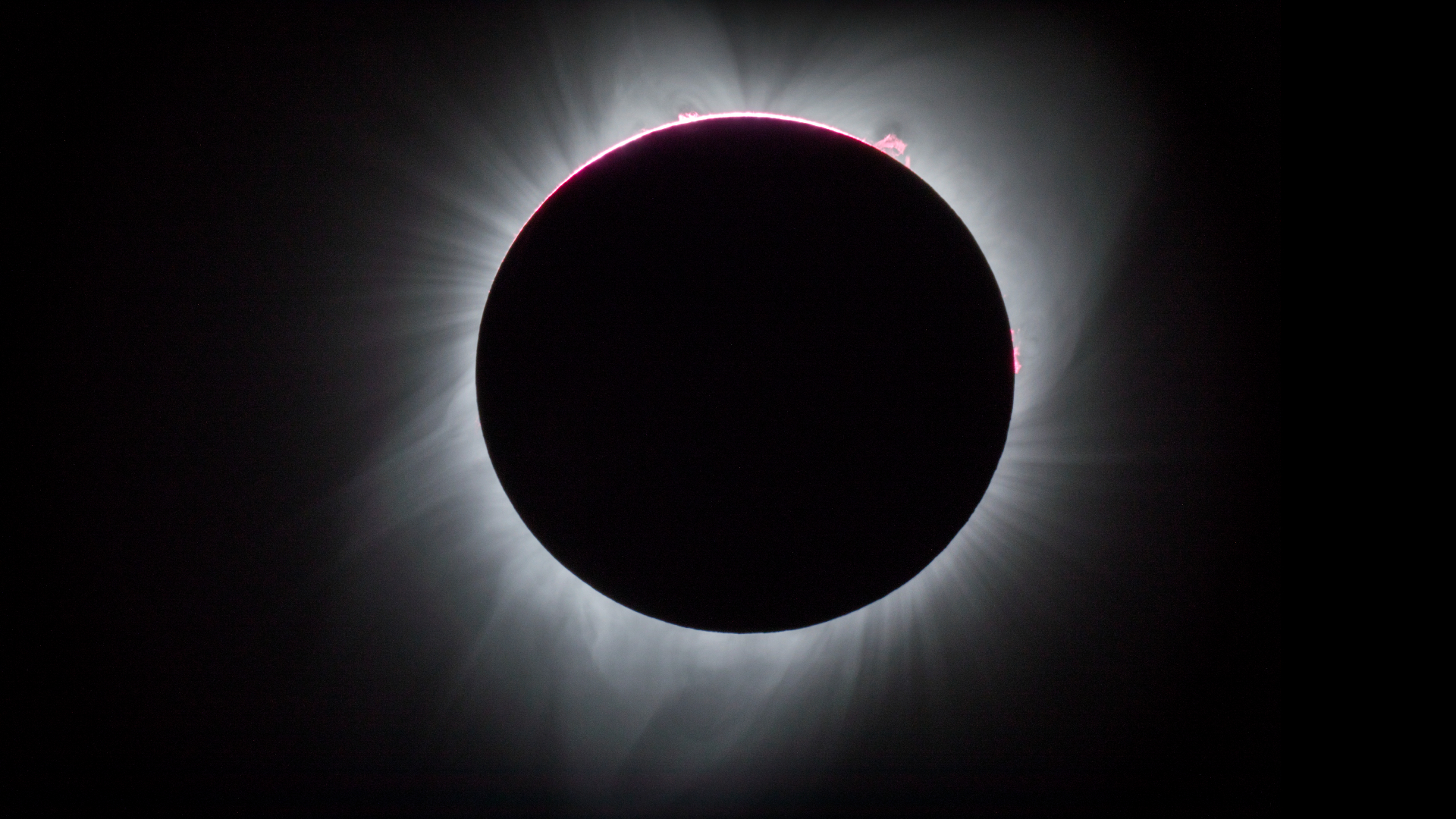
With the impressive annular solar eclipse behind us, we now take a look at the total solar eclipse that will occur on April 8, 2024.
The spectacle will be visible to millions of skywatchers across the Americas.
It's not too early to start planning your trip and lucky for you our contributing writer and eclipse expert Jamie Carter has written a handy guide to help.
From scouting locations to staying safe, here's how to prepare for the total solar eclipse.
Read more: Total solar eclipse April 2024: 8 top tips for planning your trip
Watching the eclipse from the home of ancient solar astronomy
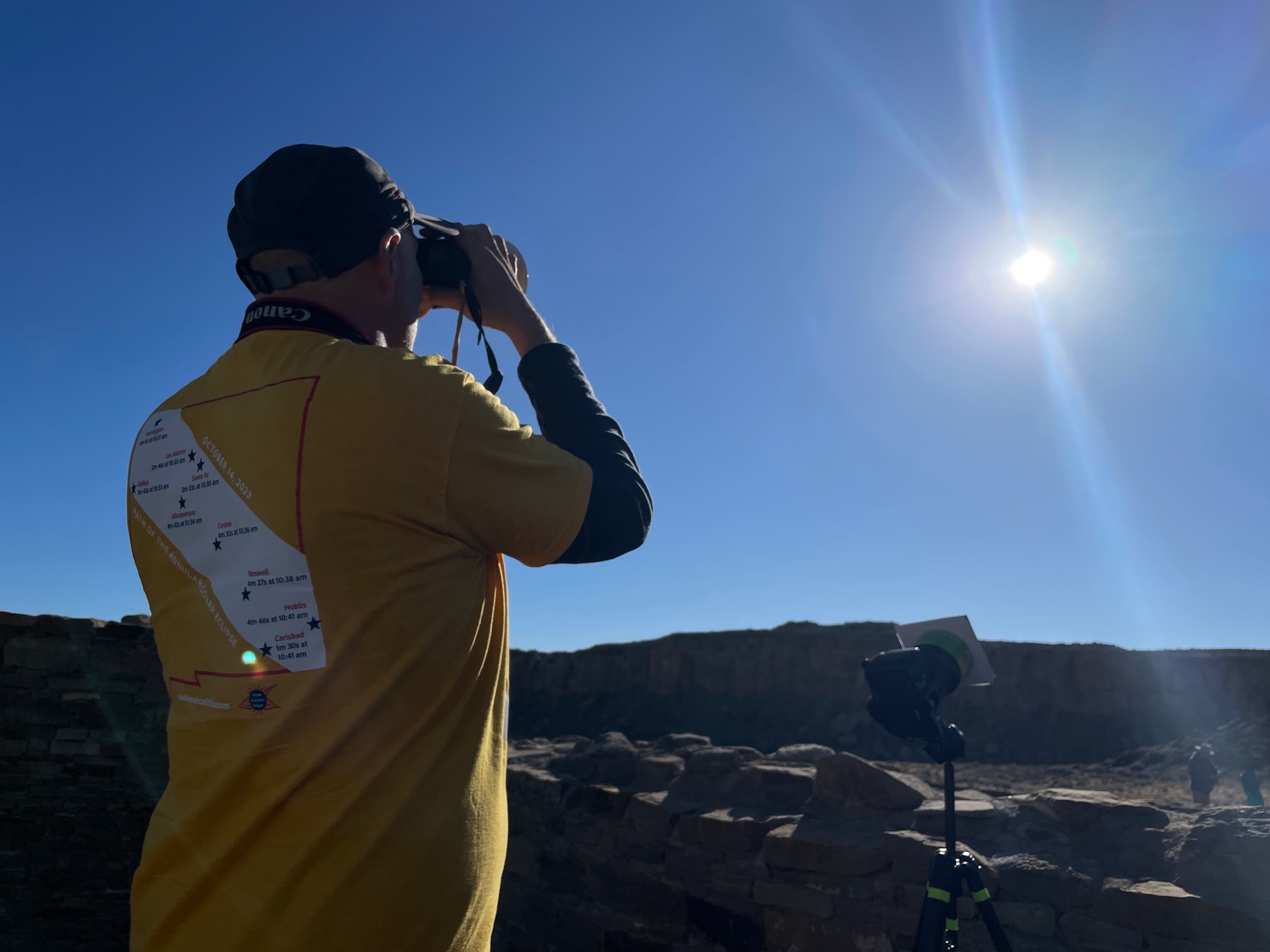
Eclipse-chasers and archaeo-astronomers flocked to Chaco Canyon in New Mexico to see annularity from the home of the famous 'Rock of the Sun' petroglyph.
Space.com's contributing writer Jamie Carter describes what it was like to view the annular solar eclipse from the home of ancient solar astronomy.
Read more: What the 'ring of fire' eclipse looked like from the home of ancient solar astronomy
Wow! Satellites watched the annular solar eclipse from space
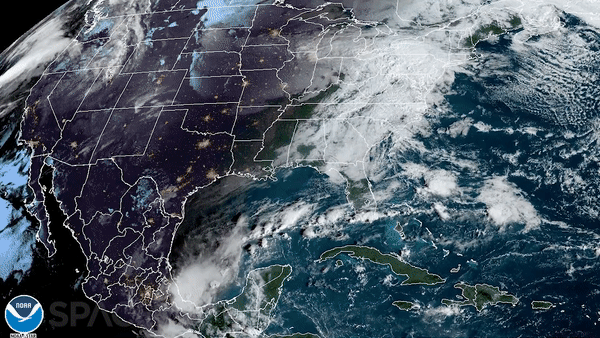
The eclipse, during which the moon blocked out the center of the sun, causing it to appear as a glowing ring of fire in the sky over Earth, was seen by the National Oceanic and Atmospheric Administration (NOAA) satellites GOES-East and GOES-West.
Read more and see the incredible timelapse video here: Satellites watch the annular solar eclipse 2023 sweep over the U.S. (video)
Hot off the press! Read all about what it was like chasing the solar eclipse on the Extraterrestrial Highway
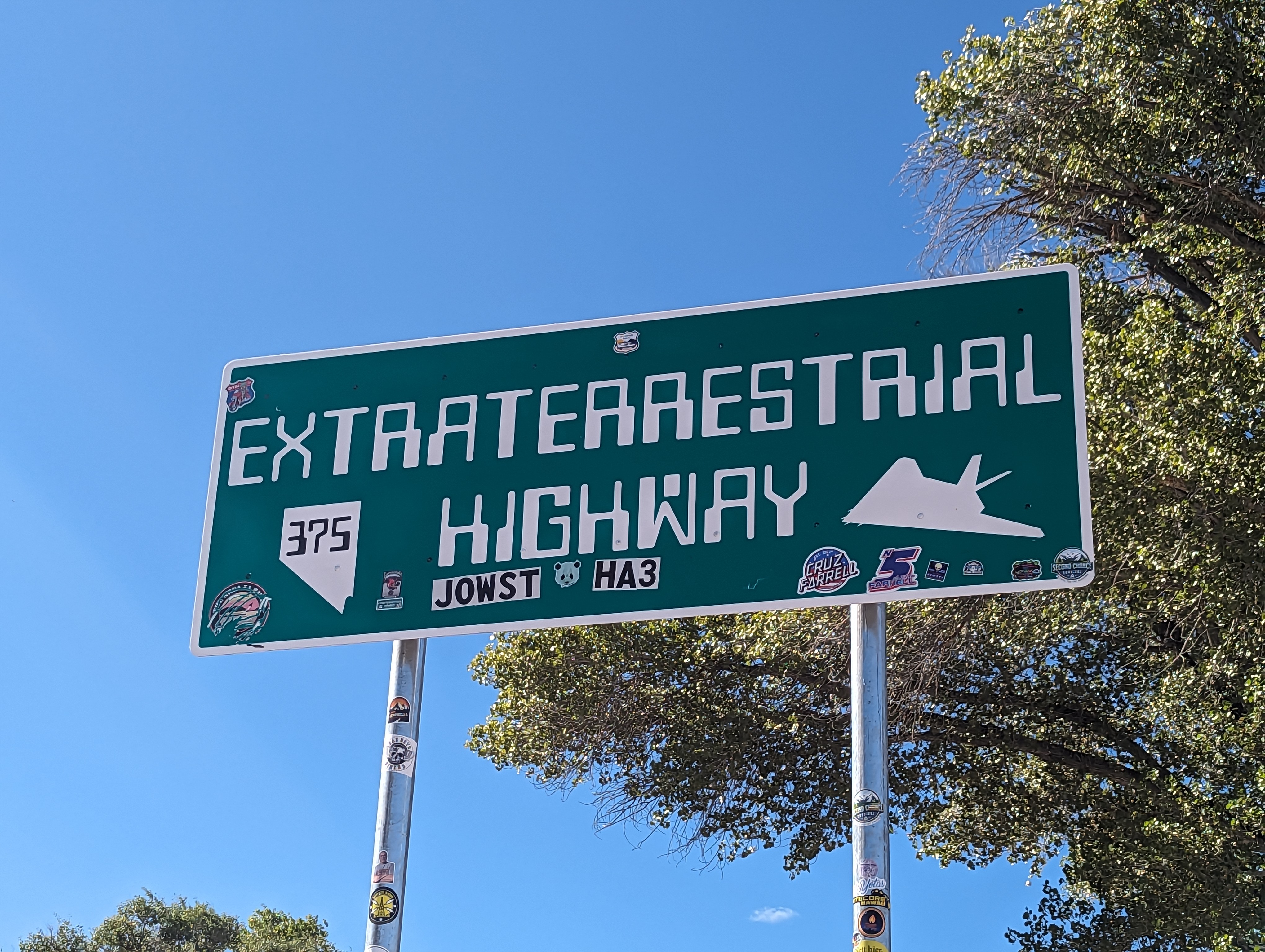
Space.com's editor Brett Tingley recounts his incredible eclipse-viewing adventure that took him through the state of Nevada along state route 375, the "Extraterrestrial Highway."
"It was still cold when those skies began to lighten on the morning of the eclipse in Ely, Nevada, while wispy clouds blew above the recreational vehicles and camp chairs that began to line the route from Ely to Great Basin National Park. As the sun rose over the pine-covered mountains of the Schell Creek Range in the distance, more and more visitors arrived and set up tripods and cameras. Some of the gathered eclipse-chasers wore homemade T-shirts commemorating the event, and many had driven for days just to get a glimpse of the 'ring of fire.'"
Read more: Fire in the sky: Chasing the annular solar eclipse 2023 on the Extraterrestrial Highway
The "ring of fire" has reached Brazil!
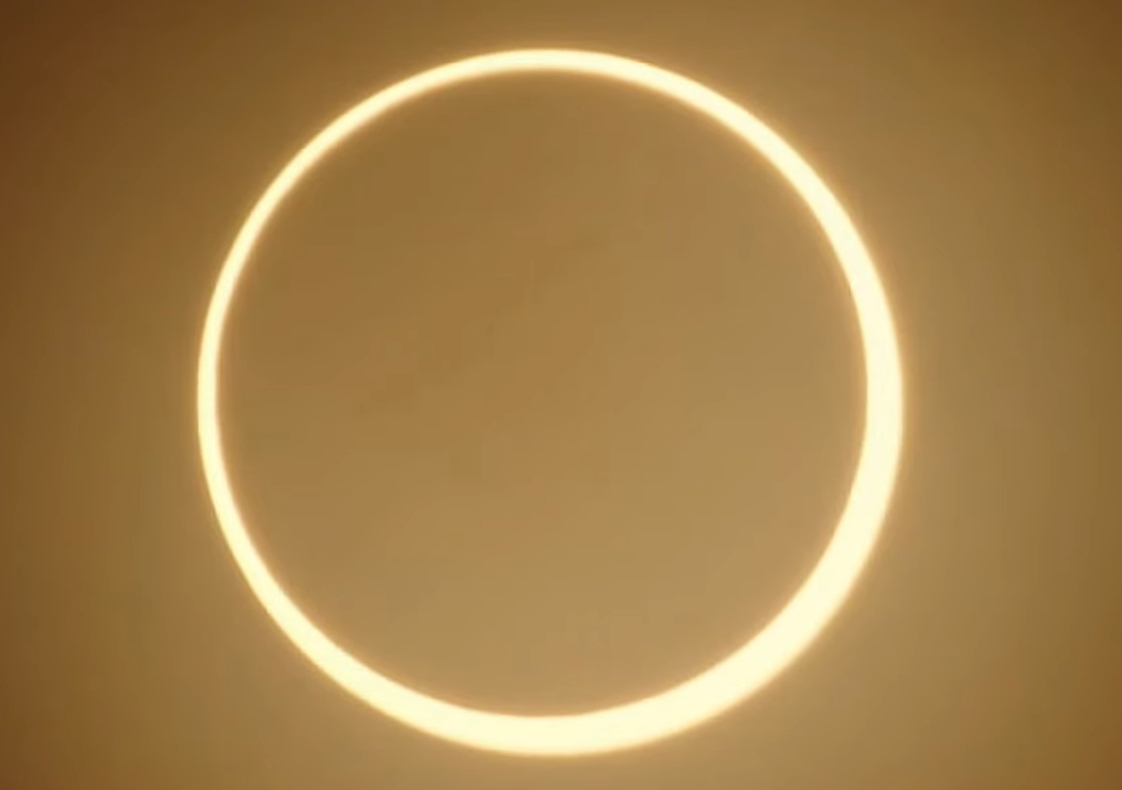
The annular solar eclipse is currently traveling over Brazil where it will end at sunset.
Here the "ring of fire" is visible over Canaã dos Carajás, Brazil. You can continue to follow the eclipse as it moves through Brazil online here courtesy of timeanddate.com.
Eclipse enters the Southern Hemisphere!
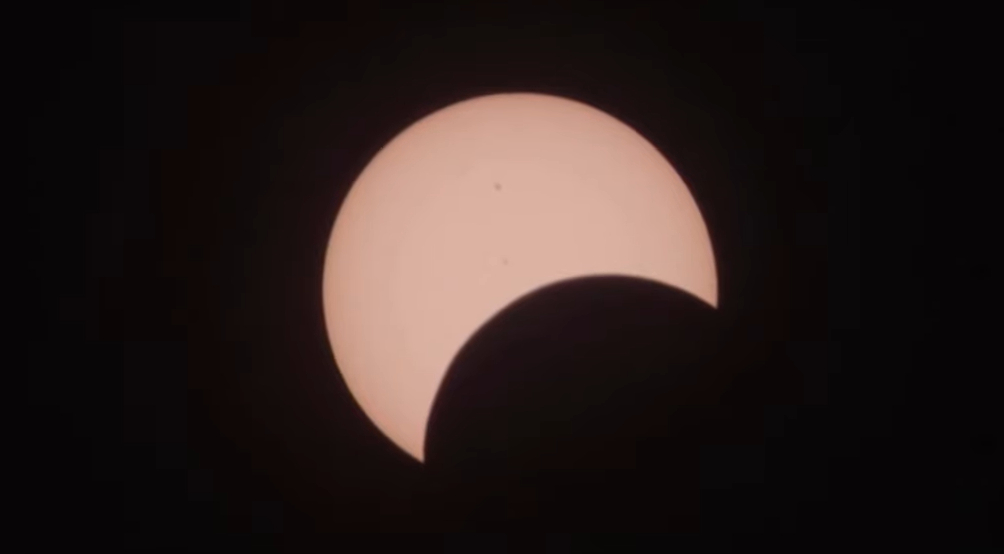
The annular solar eclipse has now crossed the equator and is traveling across the Southern Hemisphere.
It's traveling approximately 1,459 mph (2,351 km/h) (and getting faster!) and is visible over Brazil.
The image above shows the partial eclipse stage as we approach annularity in Canaã dos Carajás, Brazil.
Annularity has reached Neiva, Colombia
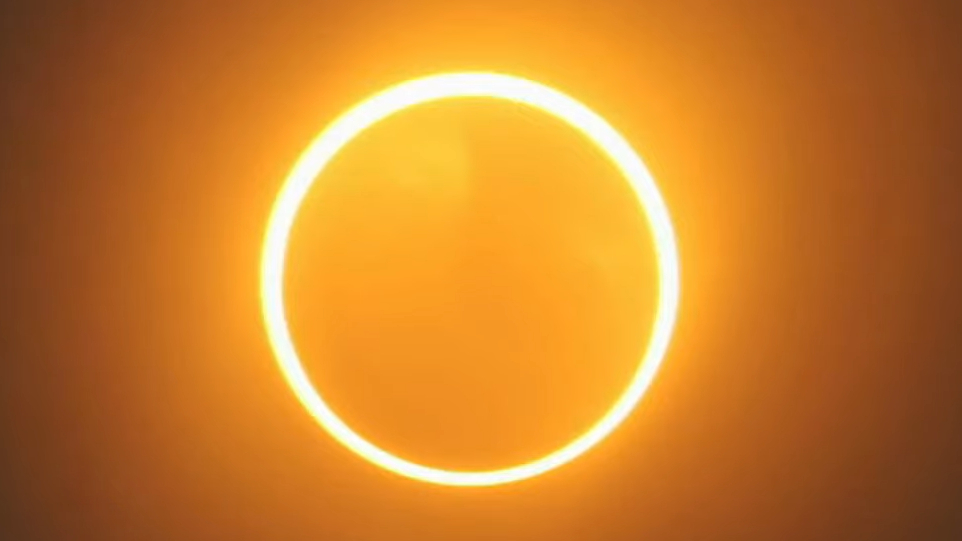
The "ring of fire" is now in Neiva, Colombia!
This impressive image is courtesy of timeanddate's free livestream. The Neiva footage is by Planetario de Medellin.
You can continue to follow the eclipse as it moves through Colombia and Brazil online here courtesy of timeanddate.com.
We are approaching the "ring of fire" in Neiva, Colombia
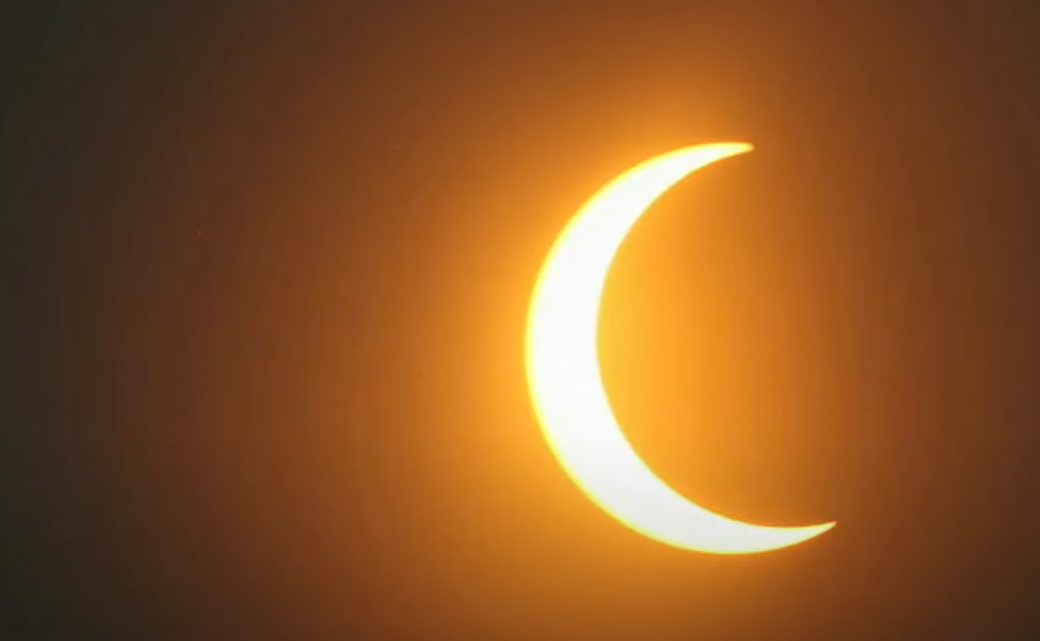
The moon is turning the sun into a thin crescent in Neiva, Colombia!
You can continue to follow the eclipse as it moves through Colombia and Brazil online here courtesy of timeanddate.com.
Things are wrapping up at Great Basin National Park (but the eclipse is far from over)
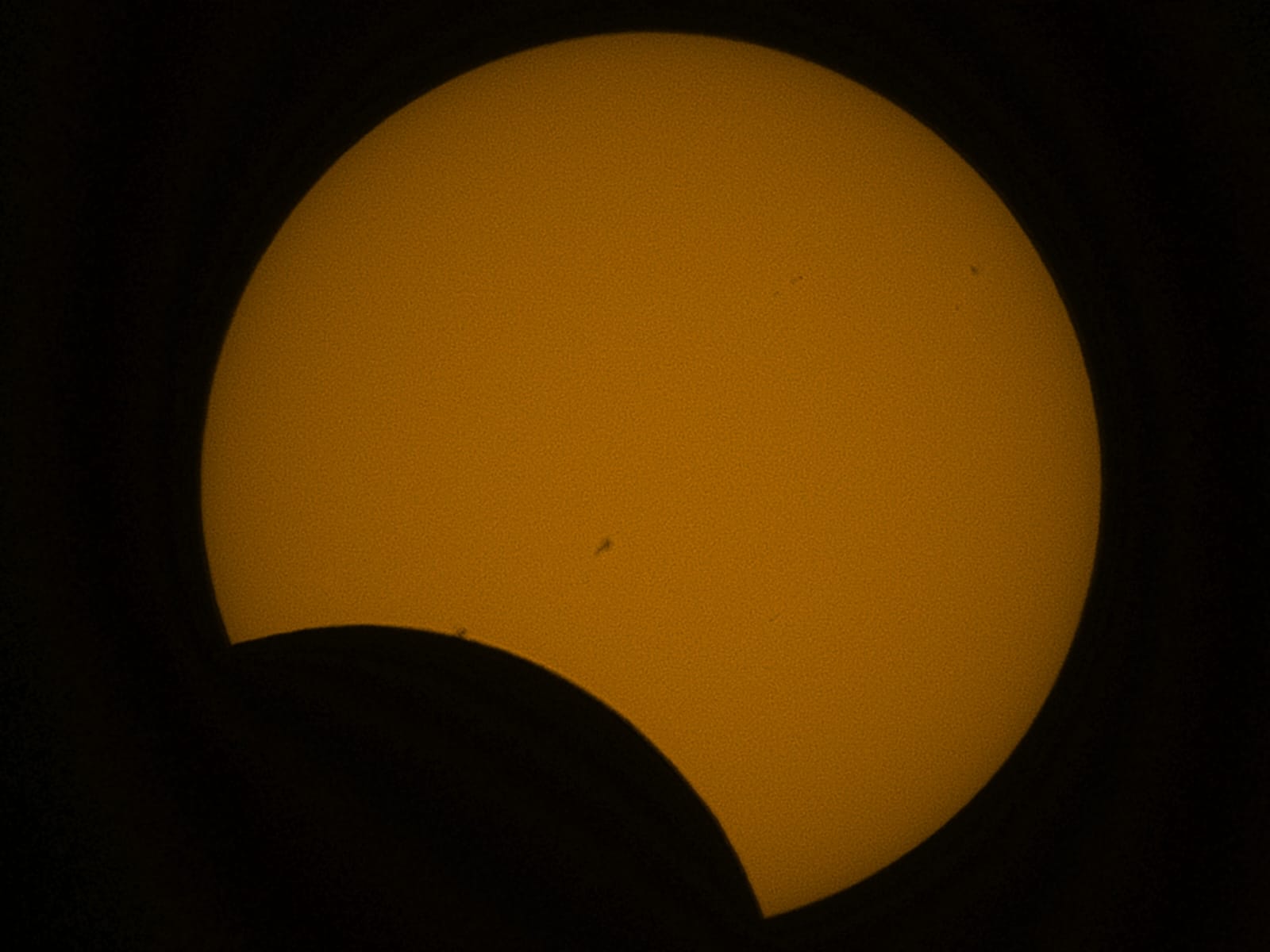
"The temperature has risen back to normal as the end of the annular solar eclipse approaches. Most of the crowds have left already." -- Brett Tingley
This image was captured by our Editor Brett Tingley using the Unistellar eQuinox 2 with Smart Solar Filter from the Great Basin National Park.
You can continue to follow the eclipse as it moves through Colombia and Brazil online here courtesy of timeanddate.com.
See the 1st 'ring of fire' photos and video
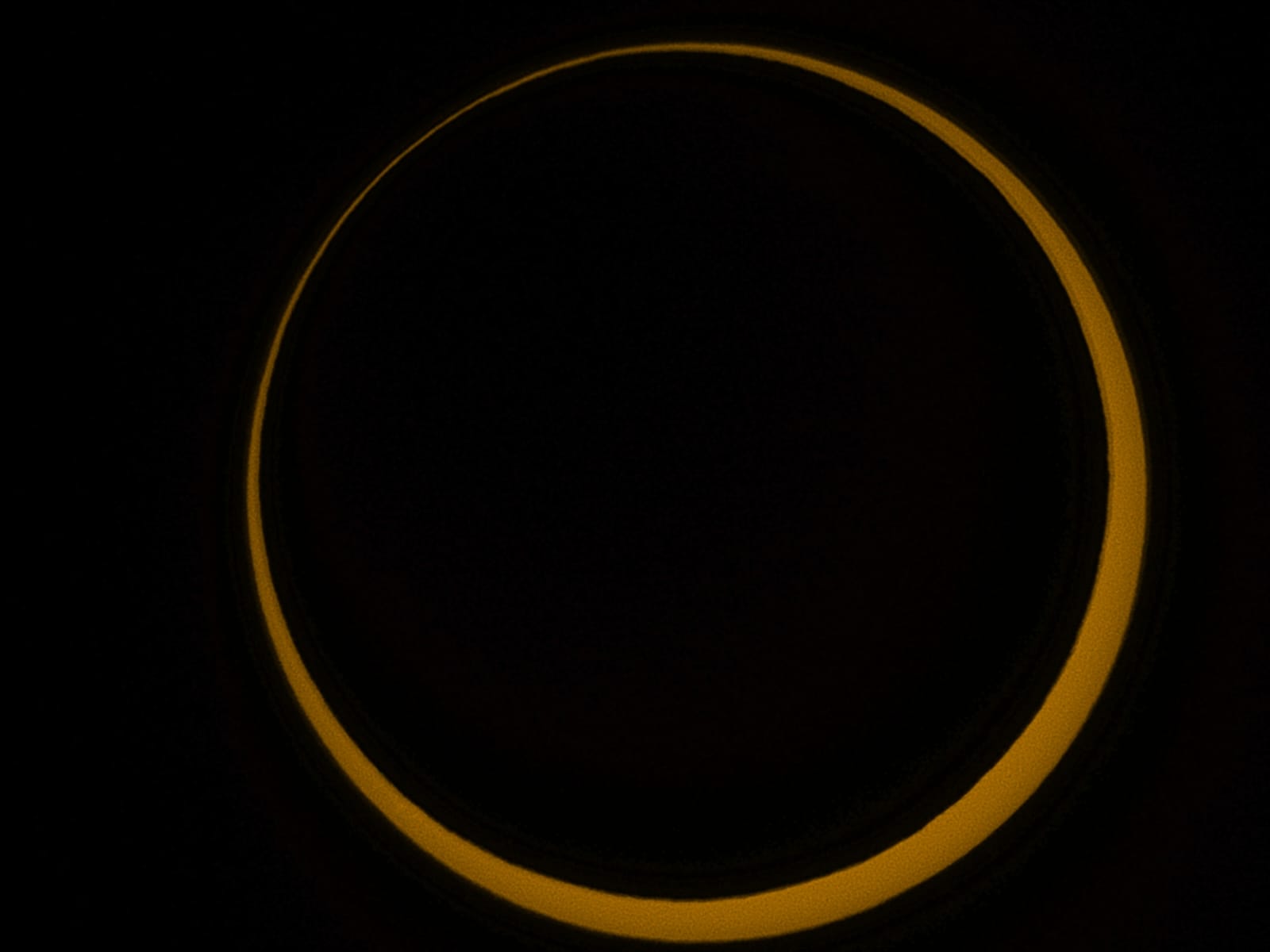
The first images of the moon passing between the sun and the Earth in a so-called "ring of fire" solar eclipse are coming in and the views are amazing.
See the first photos and video here
You can follow the "ring of fire" across the U.S. and watch the livestream of the annular eclipse courtesy of NASA here.
Kerrville, Texas welcomes the "ring of fire"
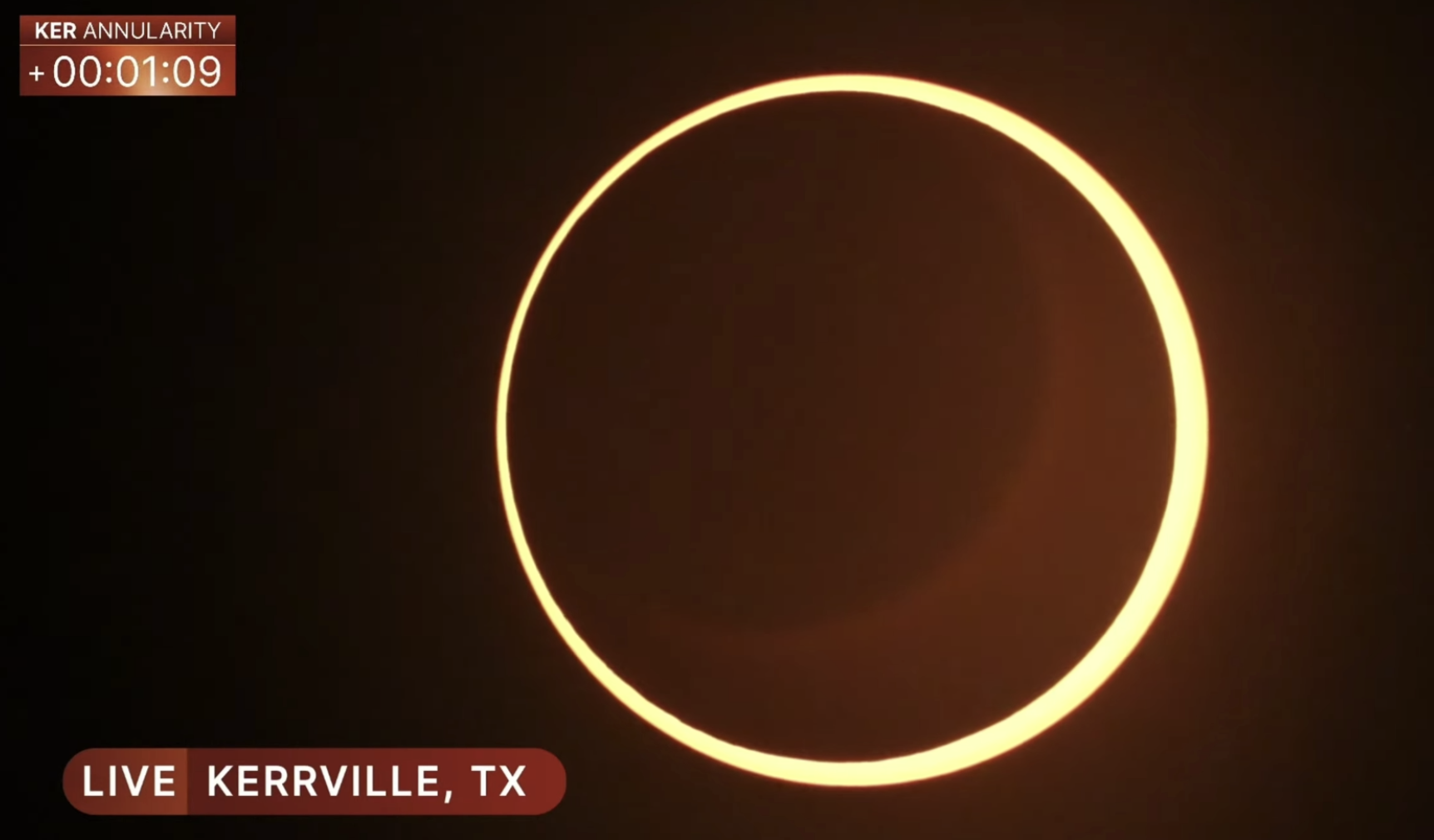
The "ring of fire" has now made it to Kerrville, Texas!
You can follow the "ring of fire" across the U.S. and watch the livestream of the annular eclipse courtesy of NASA here.
The "ring of fire" has made it to Albuquerque, New Mexico
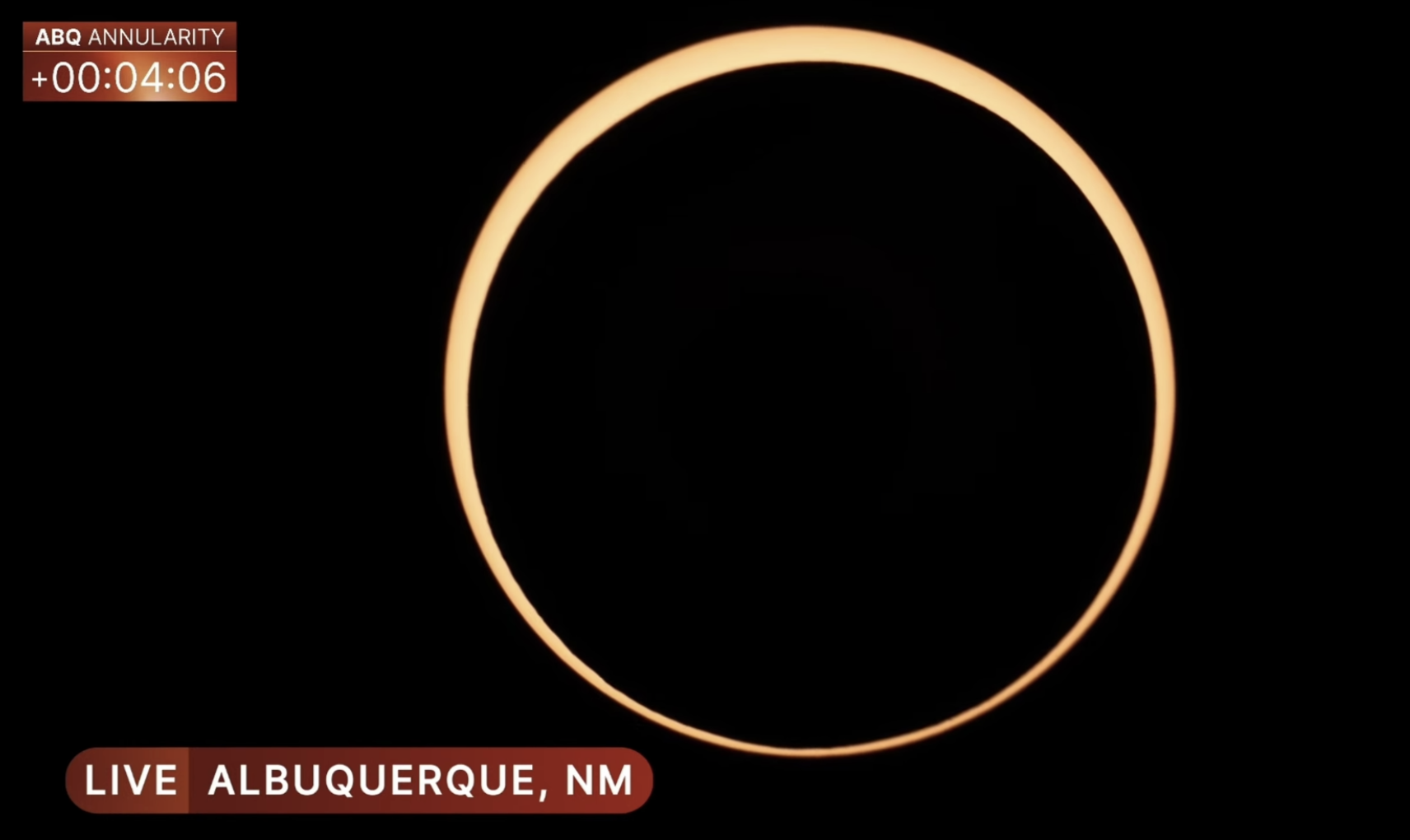
The "ring of fire" has passed over Albuquerque, New Mexico.
You can follow the "ring of fire" across the U.S. and watch the livestream of the annular eclipse courtesy of NASA here.
End of annularity for Great Basin National Park
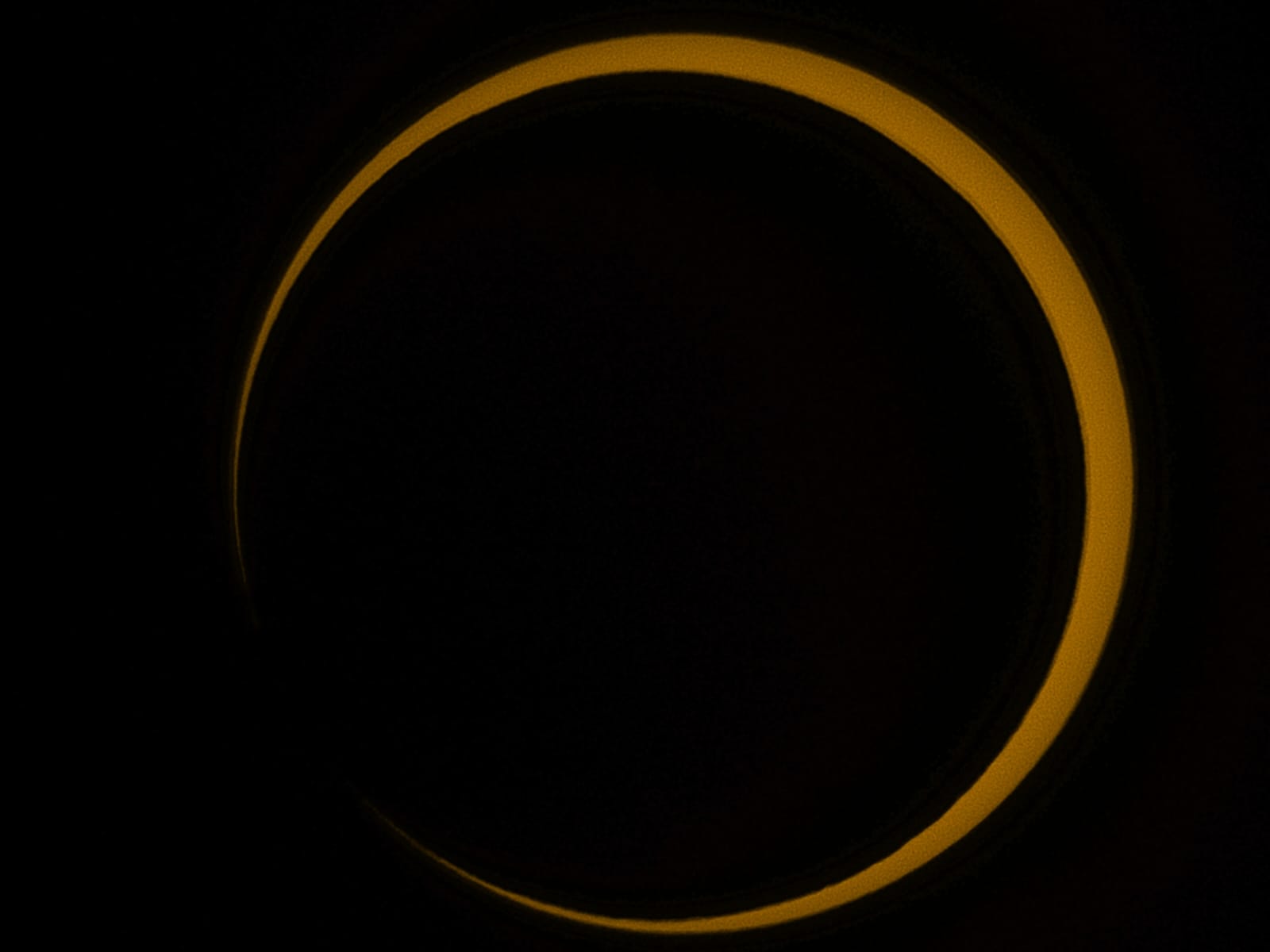
The "ring of fire" stage has ended for those in the Great Basin National Park, it will now turn into a partial solar eclipse. You can learn about the main stages of the annular solar eclipse here. You can watch the livestream of the annular eclipse courtesy of NASA here and follow the "ring of fire" as it moves across the U.S. It hasn't finished yet!
This image was captured by our Editor Brett Tingley using the Unistellar eQuinox 2 with Smart Solar Filter from the Great Basin National Park.
Behold! The "ring of fire" has arrived!

"A cheer just went up here at Great Basin National Park as we've reached annularity. The temperature has dropped significantly, and the light has taken on a twilight quality." -- Brett Tingley
This image was captured by our Editor Brett Tingley using the Unistellar eQuinox 2 with Smart Solar Filter from the Great Basin National Park.
You can watch the livestream of the annular eclipse courtesy of NASA here.
Moon turns sun into crescent
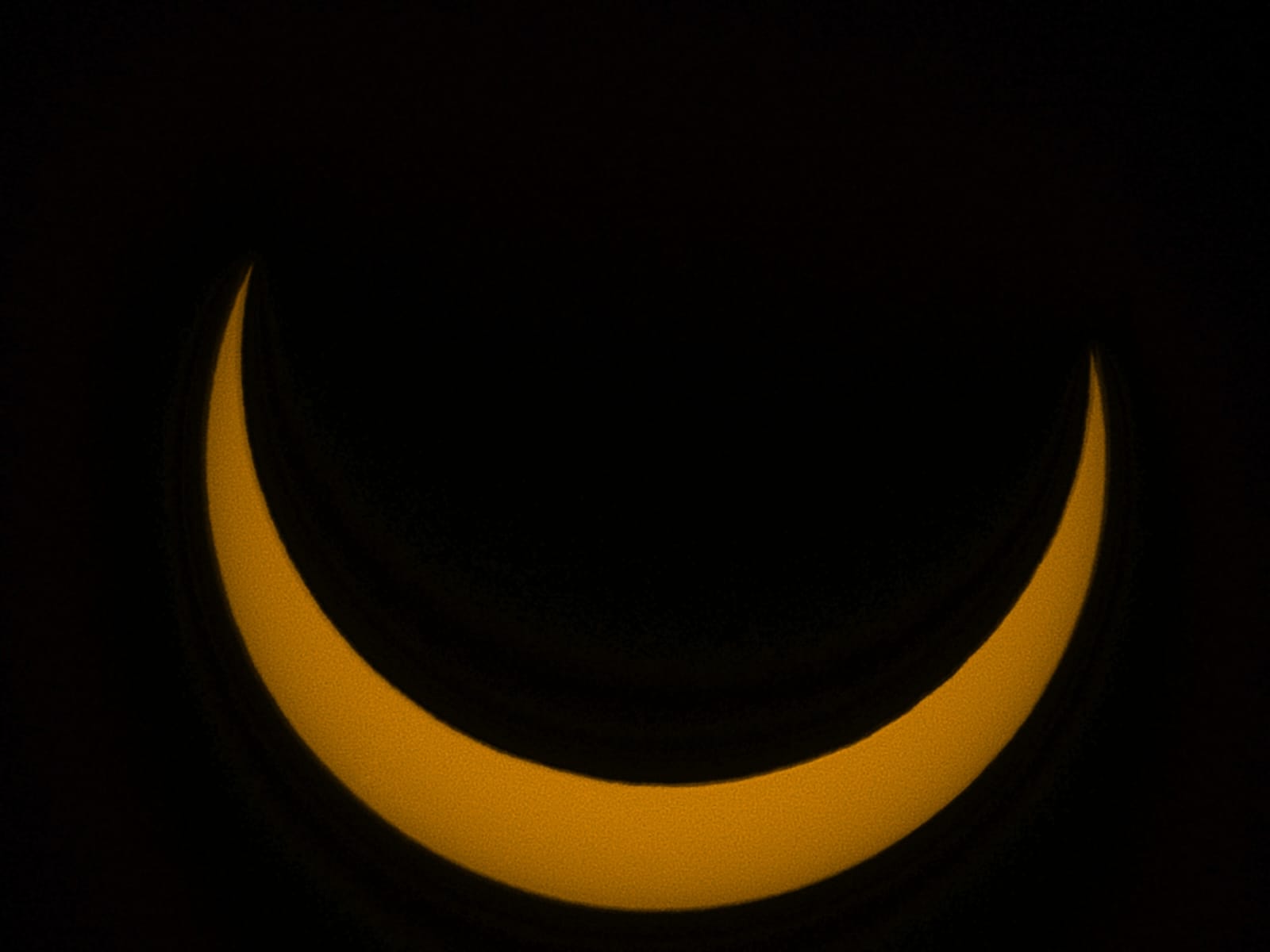
"The light is beginning to change as more and more of the sun is blocked by the moon. The temperature has dropped slightly." -- Brett Tingley
This image was captured by our Editor Brett Tingley using the Unistellar eQuinox 2 with Smart Solar Filter from the Great Basin National Park.
You can watch the livestream of the annular eclipse courtesy of NASA here.
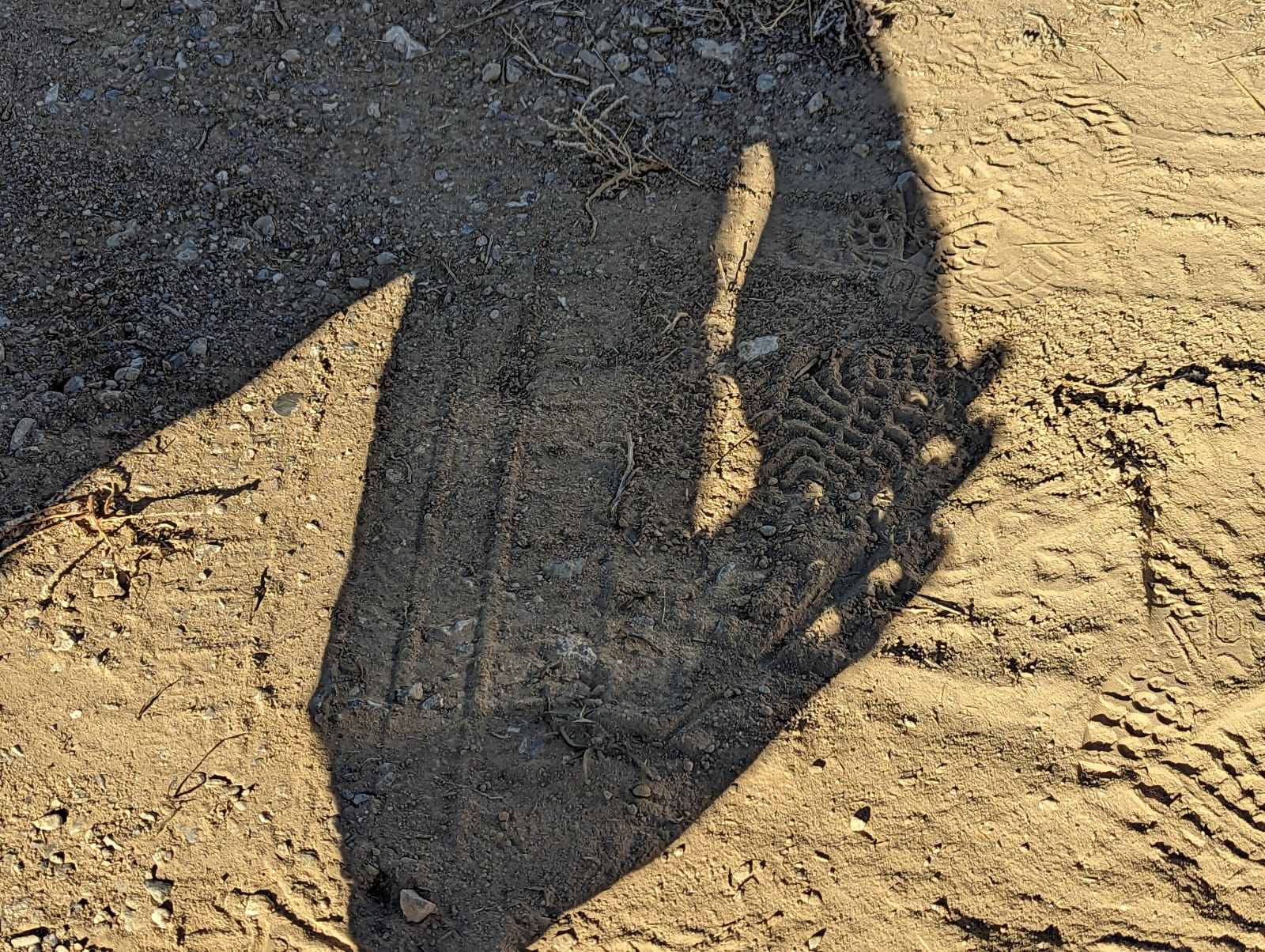
Hungry moon takes a big "bite"
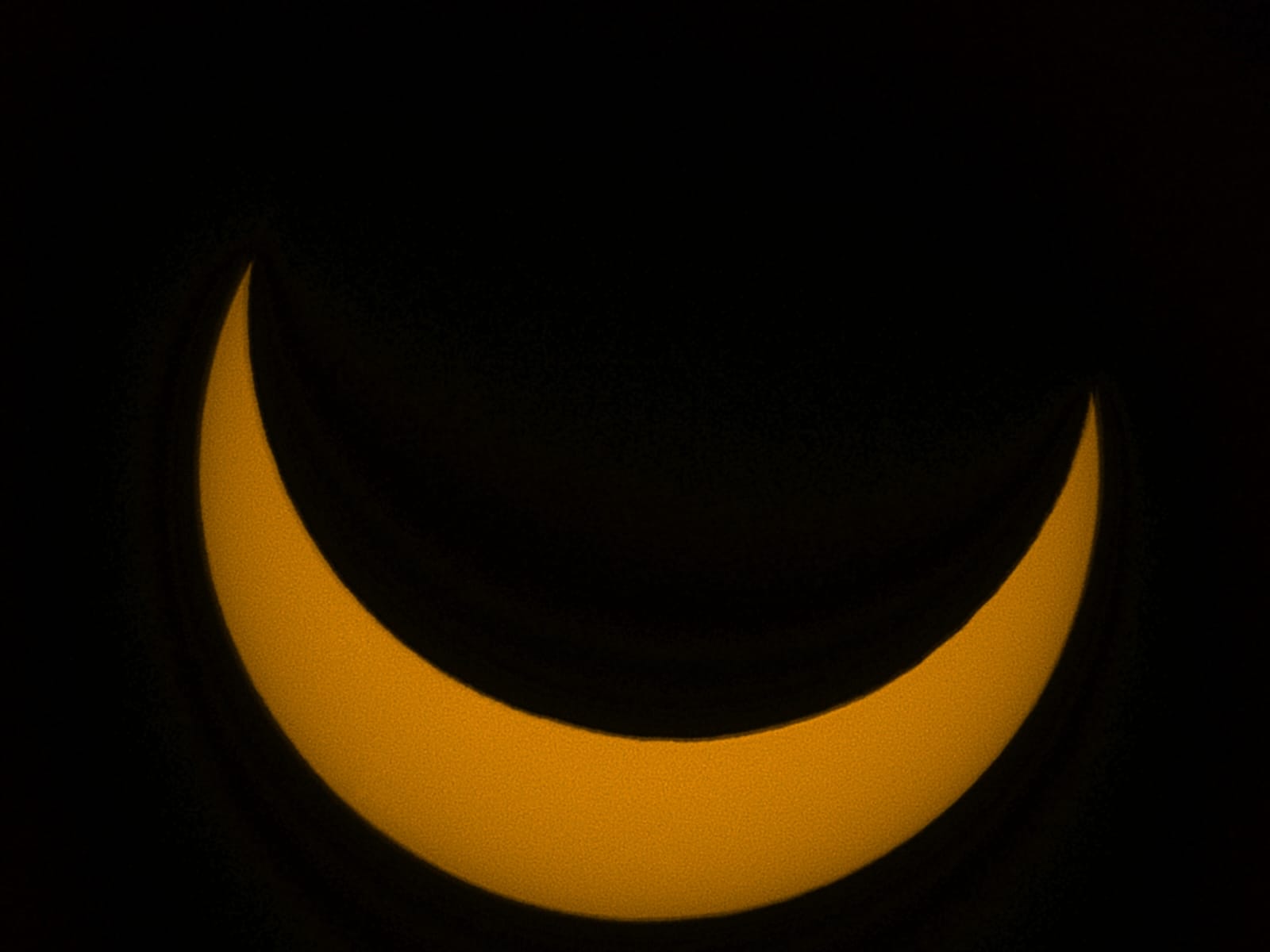
The moon is taking a huge "bite" out of the sun as the annular solar eclipse edges closer to the "ring of fire" phase.
This image was captured by our Editor Brett Tingley using the Unistellar eQuinox 2 with Smart Solar Filter from the Great Basin National Park.
You can watch the livestream of the annular eclipse courtesy of NASA here.
More than half of the sun is eclipsed!
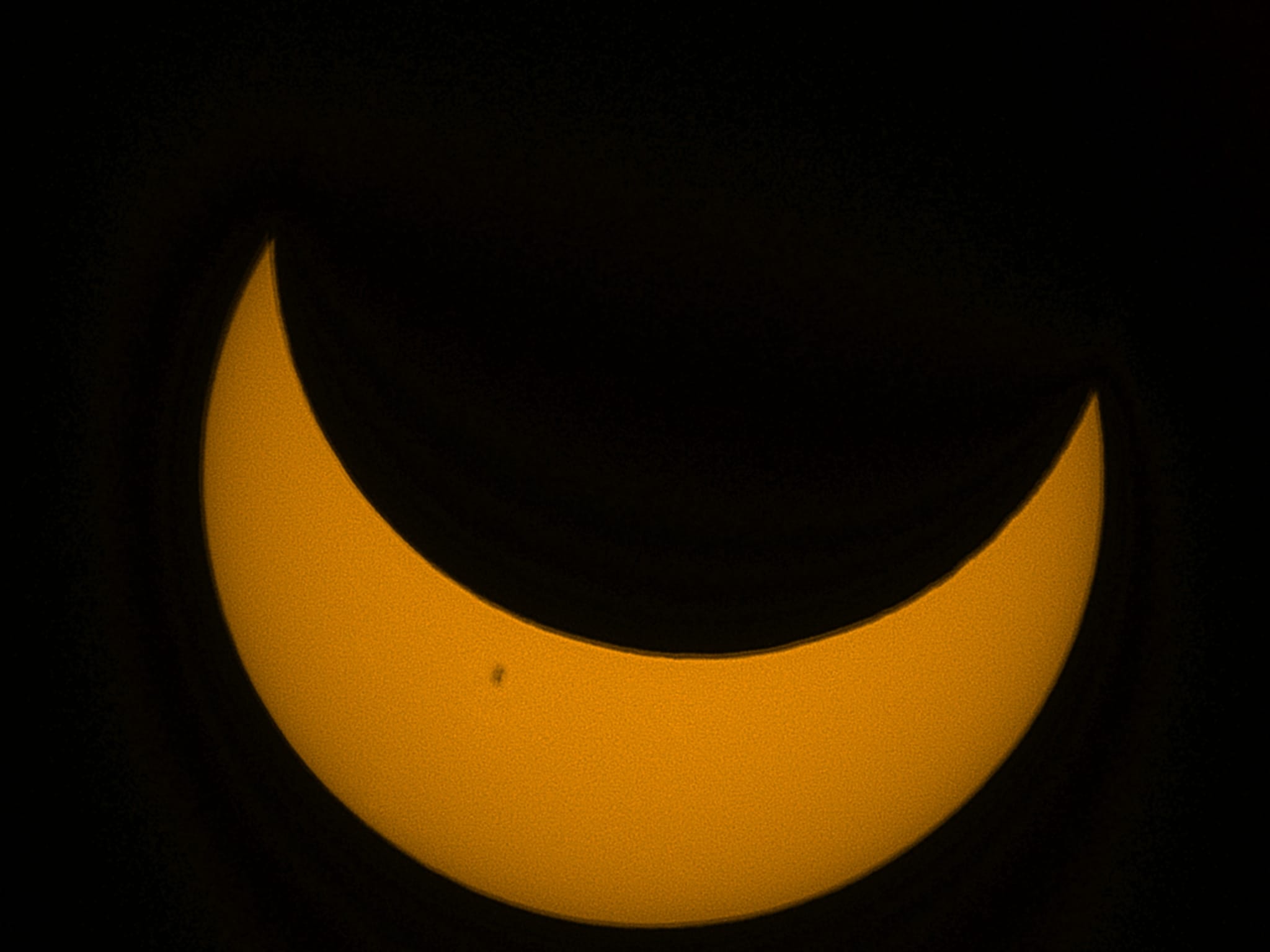
More than half of the sun is now eclipsed by the moon! The famous "ring of fire" will be the next significant phase.
This image was captured by our Editor Brett Tingley using the Unistellar eQuinox 2 with Smart Solar Filter from the Great Basin National Park.
You can watch the livestream of the annular eclipse courtesy of NASA here.
First of three eclipse-studying rockets has been launched
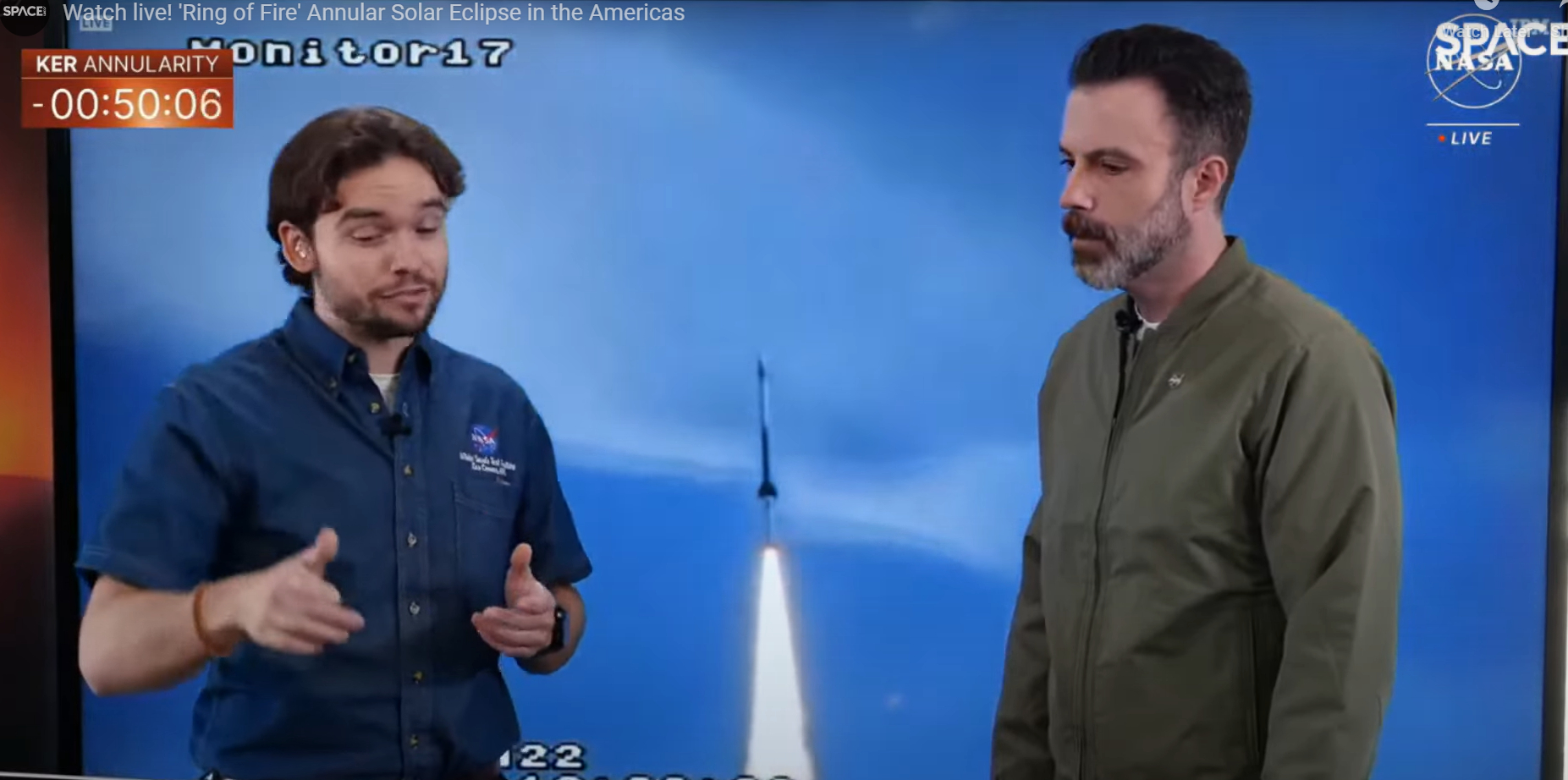
The first of three sounding rockets to study the eclipse has been launched!
Launching from White Sands Missile Range in New Mexico, the rockets will specifically target the ionosphere. During the eclipse, temperature and density will drop in the ionosphere, creating a wave-like effect that can affect satellite communications, including GPS.
Read more: NASA will launch rockets into the annular solar eclipse's shadow on Oct. 14
Partial eclipse stage is well underway
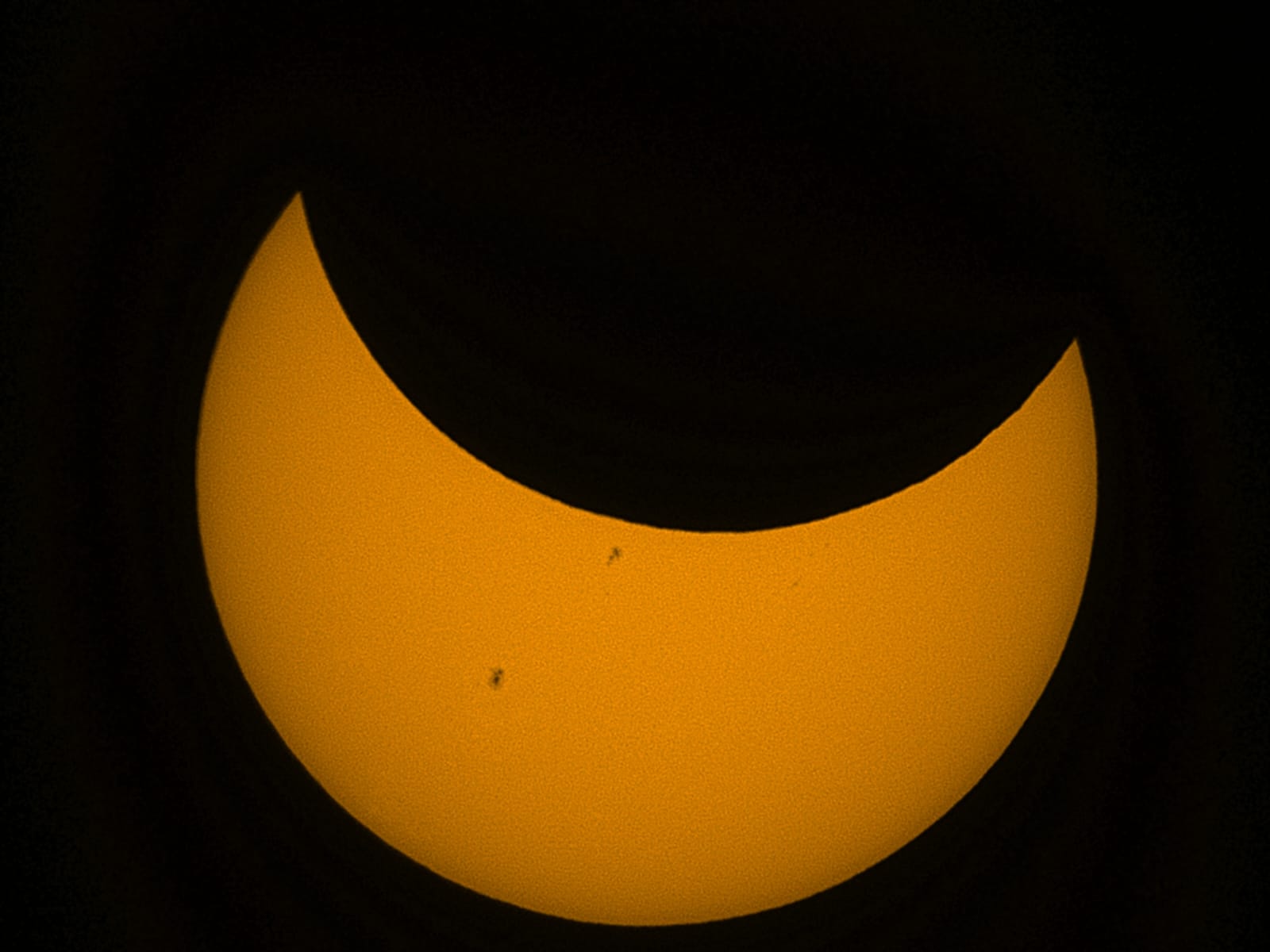
The partial eclipse stage of the eclipse is well underway as the moon appears to take a large "bite" out of the sun.
This image was captured by our Editor Brett Tingley using the Unistellar eQuinox 2 with Smart Solar Filter from the Great Basin National Park.
You can watch the livestream of the annular eclipse courtesy of NASA here.
Livestream is underway with stunning views
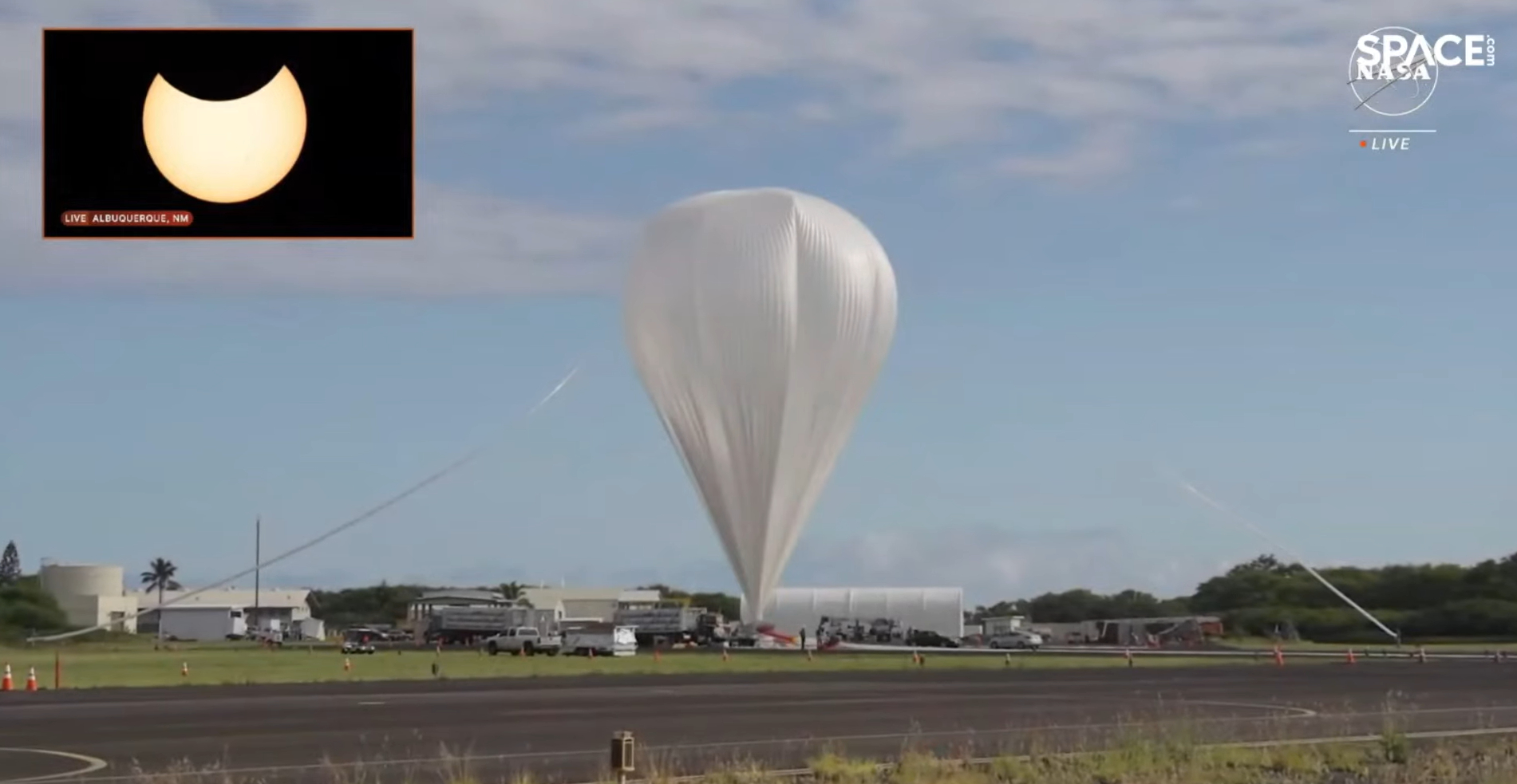
You can watch the livestream of the annular eclipse courtesy of NASA here. Impressive views of the eclipse are already coming in alongside an interesting conversation about scientific research balloons!
Relief! (for now)
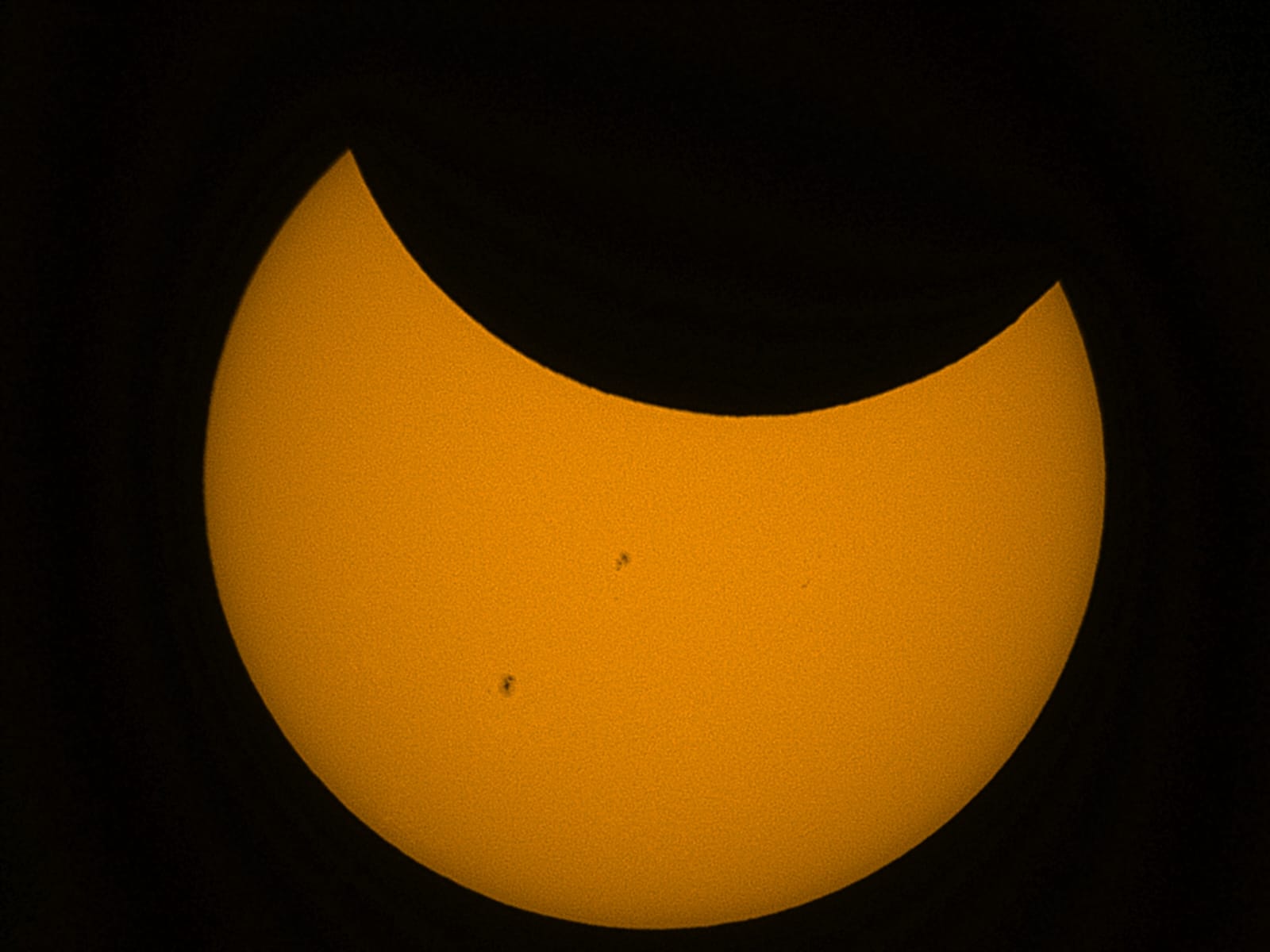
"As the clouds begin to part, the crowds here at Great Basin National Park let out audible sighs of relief as the sun and the moon emerged back into view some 30 minutes after the eclipse began." -- Brett Tingley
Clouds could be problematic for some
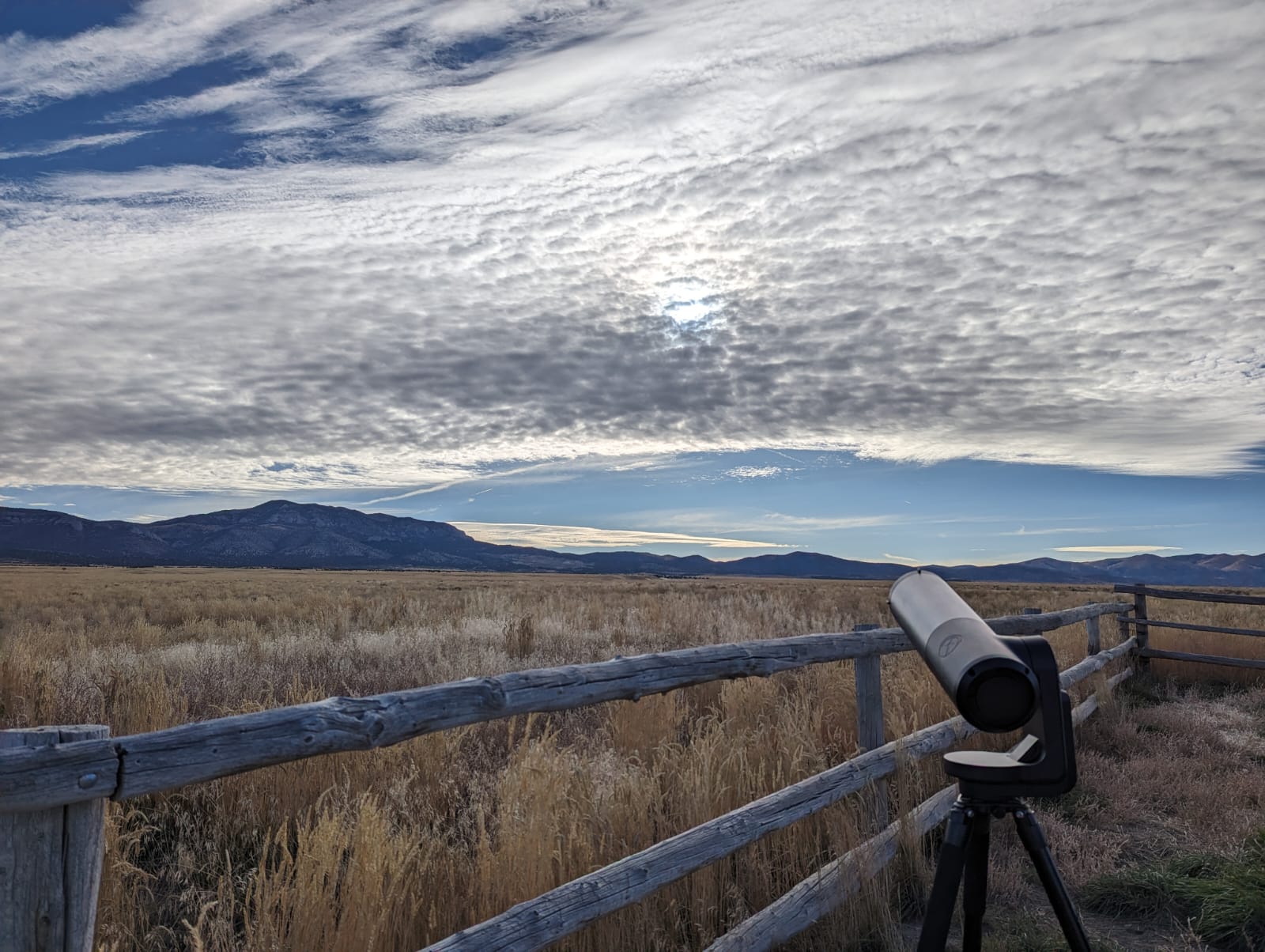
"Clouds are moving in here at Great Basin National Park, obscuring the view of the beginning stages of the annular solar eclipse. There's still an hour to go before annularity, though, and crowds here are hopeful that they will clear out in time. Eclipse chasers have gathered here from all over the United States, some with homemade t-shirts commemorating the event and the long road trips it took to get to remote Baker, Nevada." -- Brett Tingley, Editor, Space.com.
Our eclipse livestream has begun!
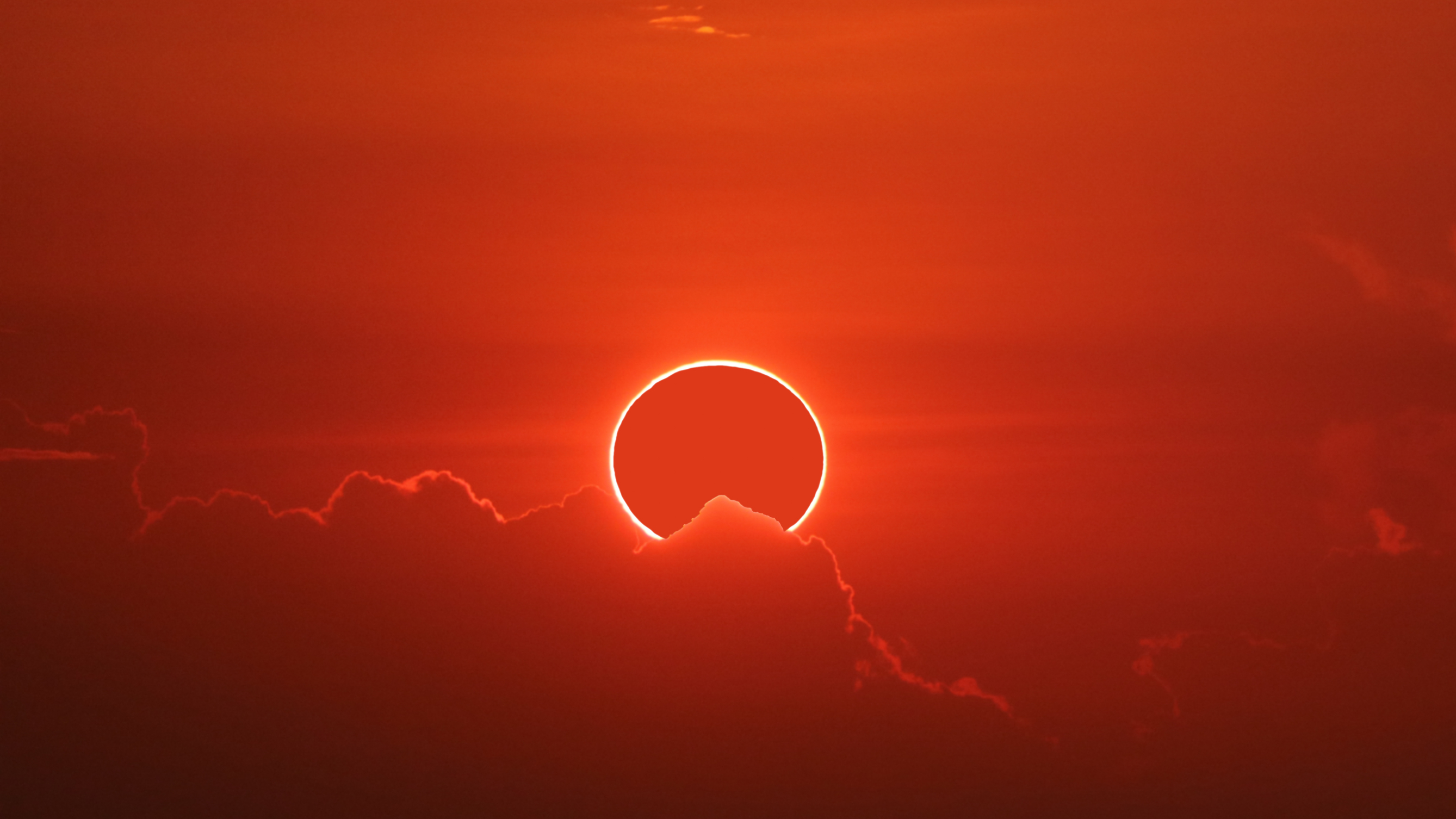
Our annular solar eclipse livestream courtesy of NASA has begun! Watch the eclipse live here.
Here it comes!
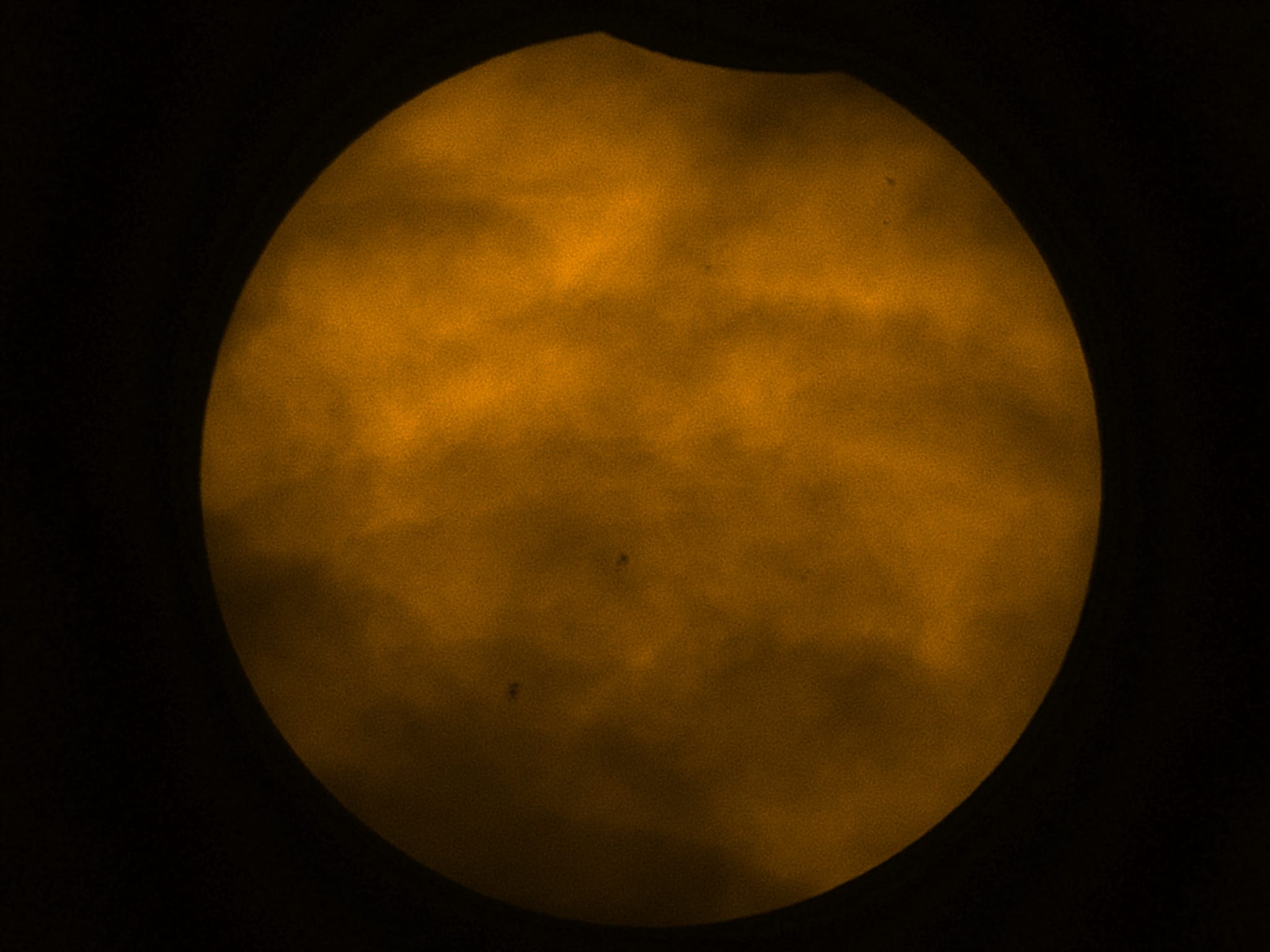
"Some clouds are passing by but we're seeing the first edge of the moon pass over the sun" -- Brett Tingley
Look at the top portion of the image and you can just start to see the moon!
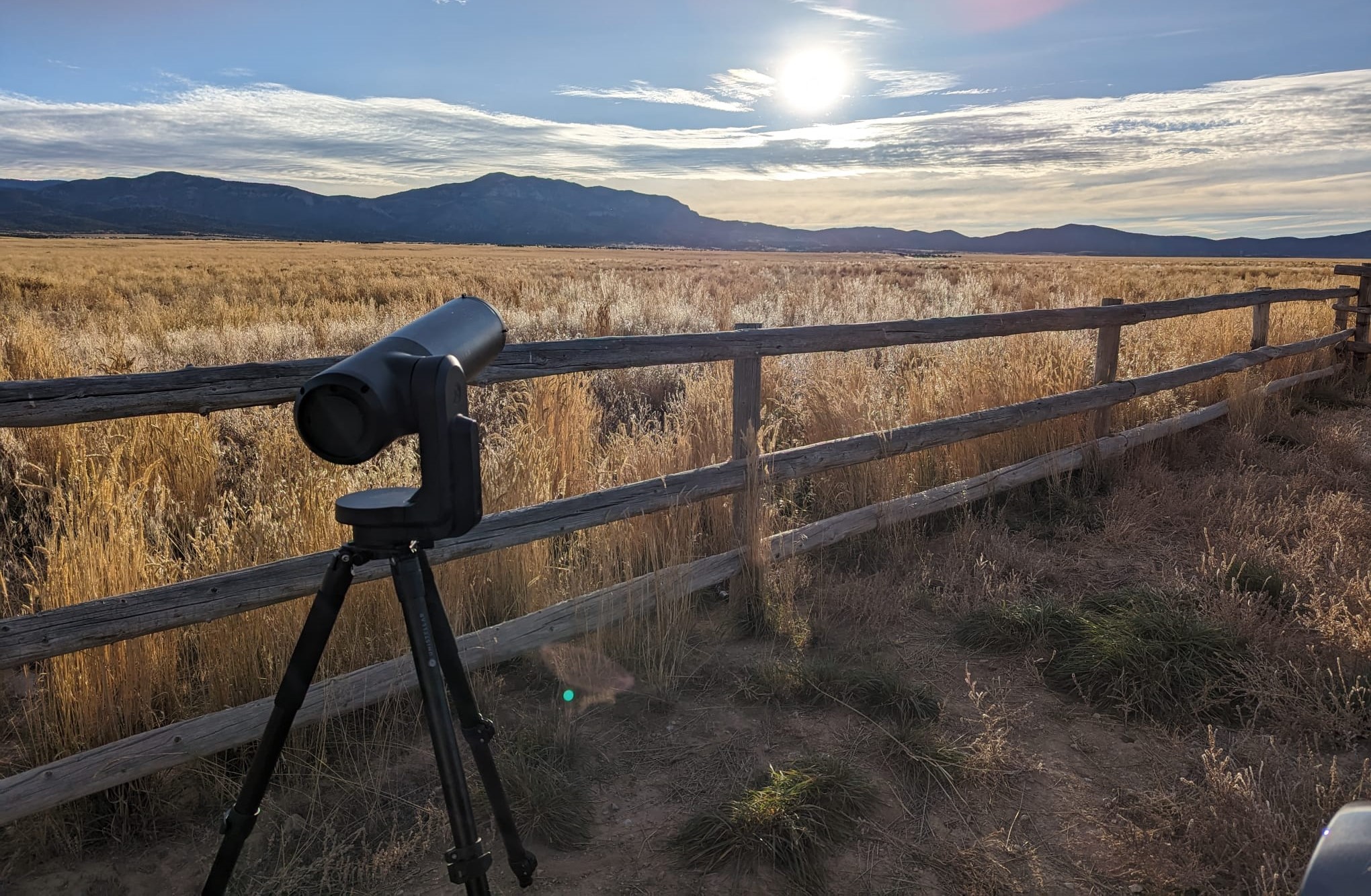
Brett is using the Unistellar eQuinox 2 with Smart Solar Filter to capture the impressive views of the eclipse from The Great Basin National Park.
Space.com's Editor Brett Tingley is ready and waiting!
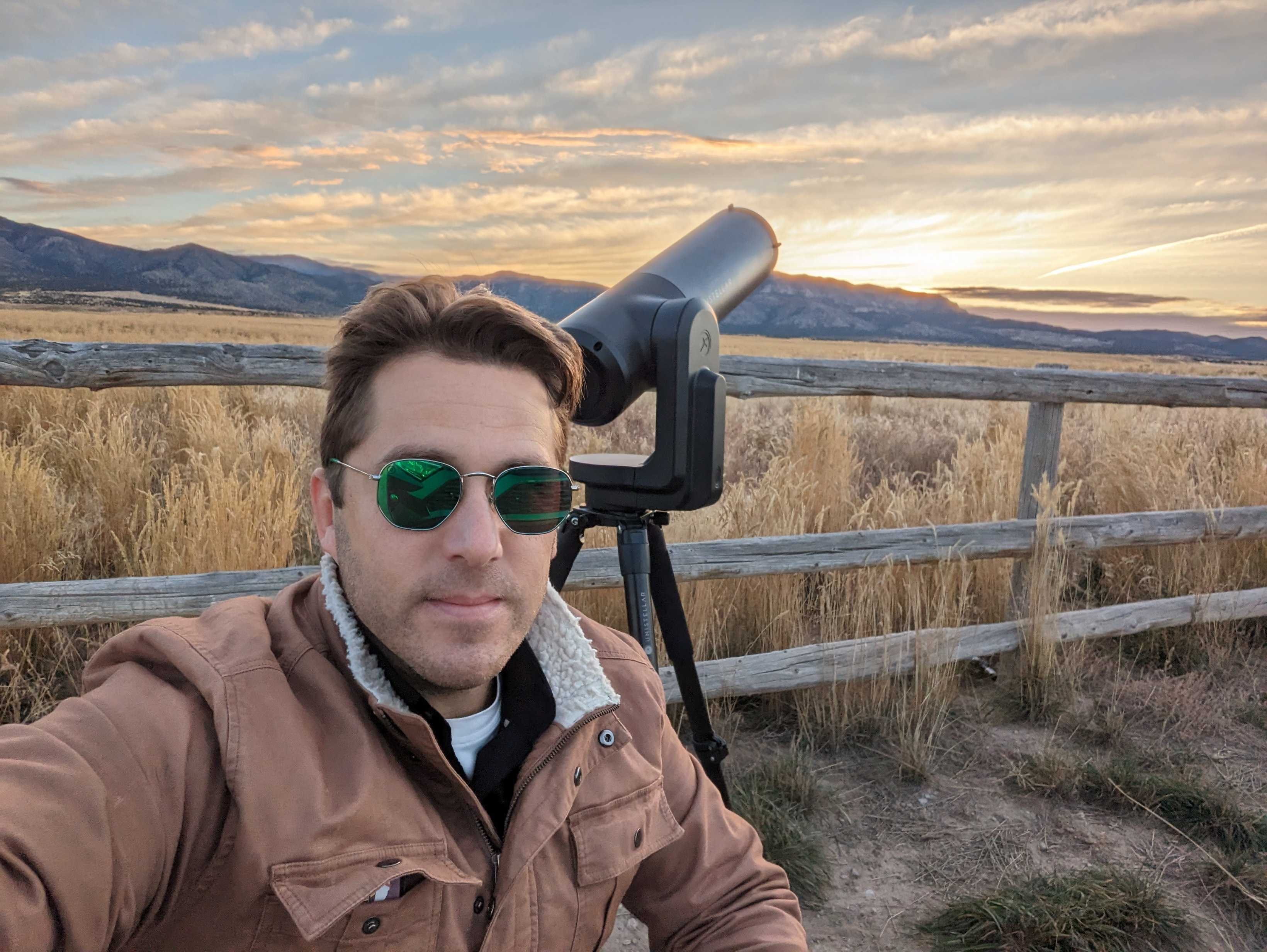
"The sun is just rising over the mountains on a crisp, cold morning at the foot of Great Basin National Park as we're just an hour away from the beginning stages of today's annular solar eclipse." -- Brett Tingley
Space.com's editor Brett Tingley is waiting for the eclipse to begin and has already captured an awesome image of the sun, just look at the size of those sunspots!
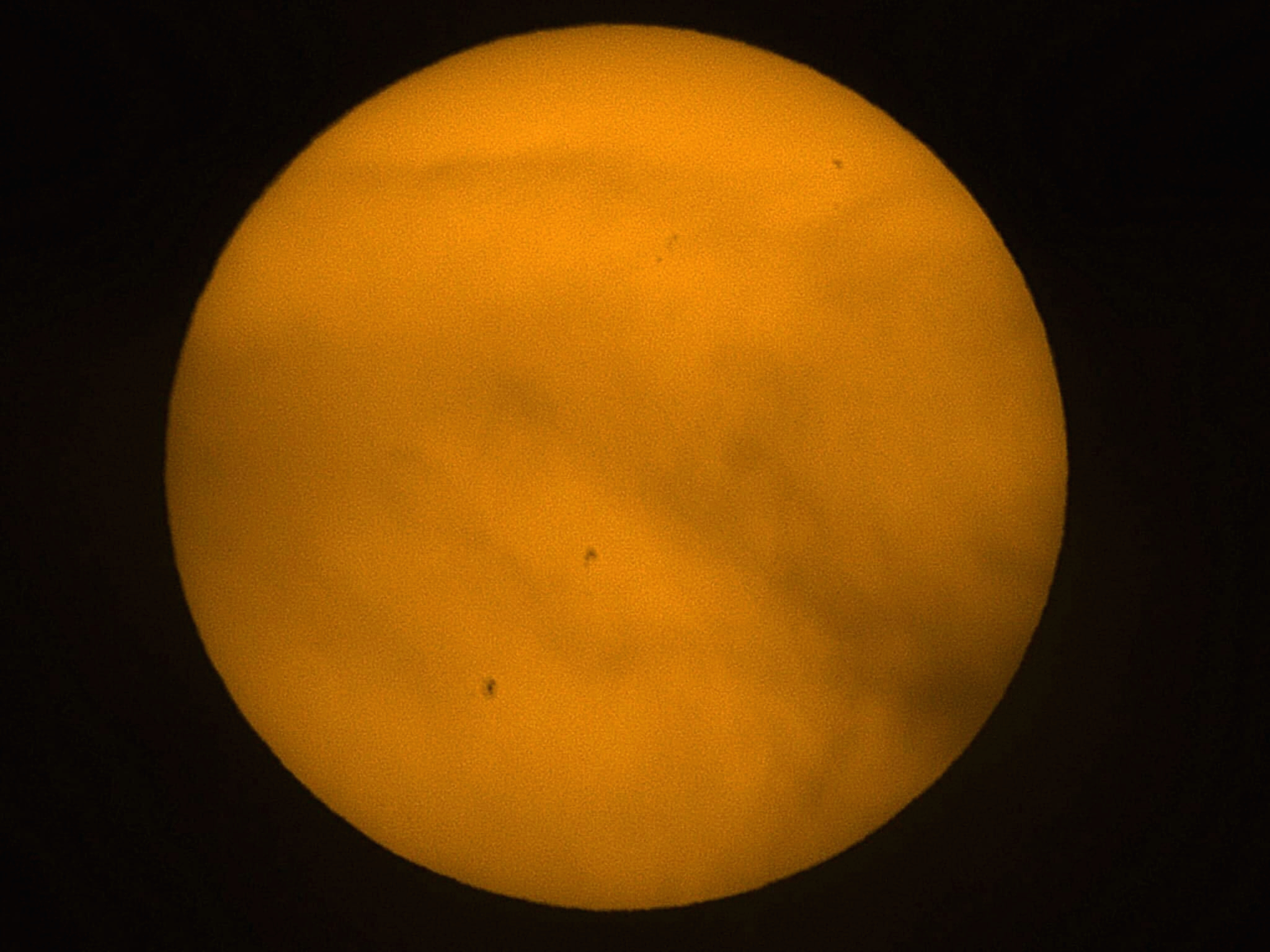
'Ring of Fire' Eclipse day is here!
Good morning, Space Fans, and today's the day: It's annular solar eclipse day for parts of the U.S., Central America and South America.
A "ring of fire" solar eclipse will occur today and you'll be able to watch it online, if you were unable to get to a location within the path of annularity, in which the moon will cover most, but not all, of the sun, leaving a brilliant ring around its edges known as a "ring of fire."
The eclipse will begin its partial phase at 11:03 a.m. EDT (1603 GMT) and begin its ring of fire phase for the first time at 12:13 p.m. EDT (1713 GMT) as it passes over parts of Oregon. It will then cross seven other U.S. states, moving from Oregon to Texas before crossing the Gulf of Mexico to reach Mexico, Guatemala, Belize, Honduras, Nicaragua, Costa Rica, Panama, Colombia and Brazil, making the famous "ring of fire" visible to millions of people.
You can watch it here live, starting at 11:30 a.m. EDT (1630 GMT).
You can see the entire path of annularity including start and end times for different stages of the eclipse at each location in this interactive map created by French eclipse expert Xavier Jubier. NASA has also created a helpful interactive map for tracking the eclipse across the U.S. down to the last second and seeing what it will look like from select destinations along the route.
You can also use the SkySafari app to track the eclipse from your location. If you are not in the path of annularity, you will be able to see a partial solar eclipse. But of course, it all depends on your local weather. Our skywatching columnist Joe Rao has a full weather solar eclipse forecast for the United States here.
Space.com Editor Brett Tingley is in Nevada to observe the eclipse and will attempt to send updates here as it happens if his connection allows.
We'll also be posting updates of the eclipse's progress here throughout the day. -- Tariq Malik
Annular eclipse weather forecast
Space.com's skywatching columnist and veteran meteorologist Joe Rao takes a look at the weather forecast for the annular solar eclipse.
Skywatchers across the U.S. who are looking forward to viewing Saturday's solar eclipse may run into a problem thanks to several unsettled weather systems that will predominate over the east-central part of the country, as well as along the Pacific coast.
Read more: 'Ring of fire' solar eclipse on Oct. 14: Will the weather cooperate?
Here's how the eclipse will play out
On Saturday (Oct. 14), an annular solar eclipse will sweep across the Americas. Here we explain the five main stages of the eclipse and what you can expect to see.
An annular eclipse occurs when the moon is far from the Earth, and therefore, the sun will not be completely obscured, leaving a fiery golden ring shining around the dark lunar disk. This will happen gradually, with the annular eclipse bookmarked by partial solar eclipse phases.
Looking for an app to help track the eclipse?
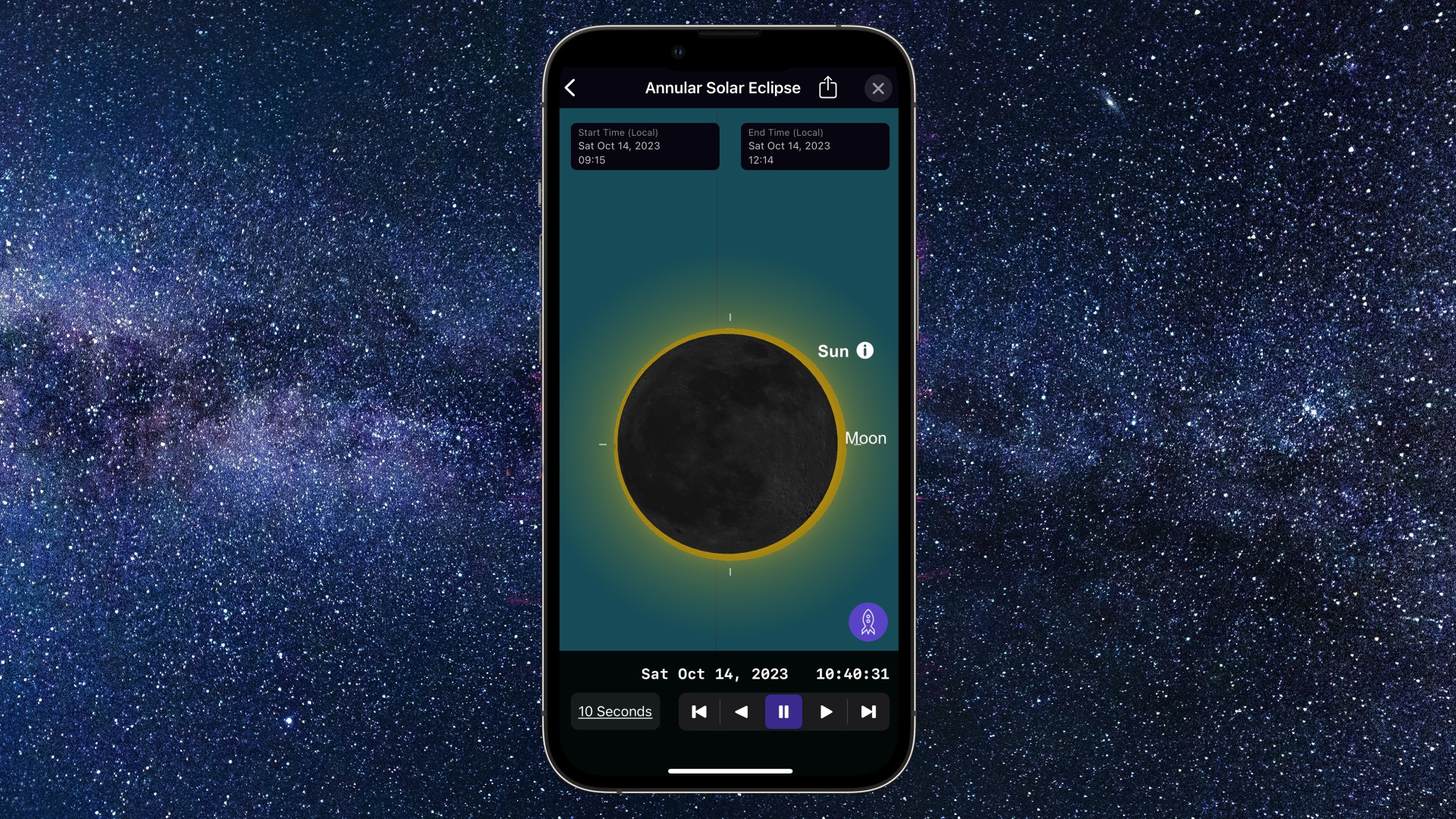
Popular astronomy app SkySafari has added a special set of features for tracking and viewing this week's annular solar eclipse. The new eclipse features are available for SkySafari 7 Pro users (subscriptions start at $17.99), although anyone interested in trying it out can download a free trial.
NASA has released its own Eclipse Explorer 2023, an interactive map that lays out when and where the eclipse will be visible, including the path of annularity (the areas that will see the "ring of fire").
And nonprofit organization Astronomers Without Borders is offering the "One Eclipse" app, designed to give users worldwide a front-row seat to the annular solar eclipse right in the palms of their hands.
Did you know that there will be two eclipses this month?
Earth will experience two eclipses this month, an annular solar eclipse on Oct. 14 and a partial lunar eclipse on Oct. 28.
While the annular solar eclipse will be visible to observers across the Americas, the lunar eclipse will be visible across much of the Eastern Hemisphere, including Europe, Africa and Asia.
Read more: Earth will experience 2 eclipses this month. Here's what you need to know
3 days to go until the eclipse! But how fast will it travel?
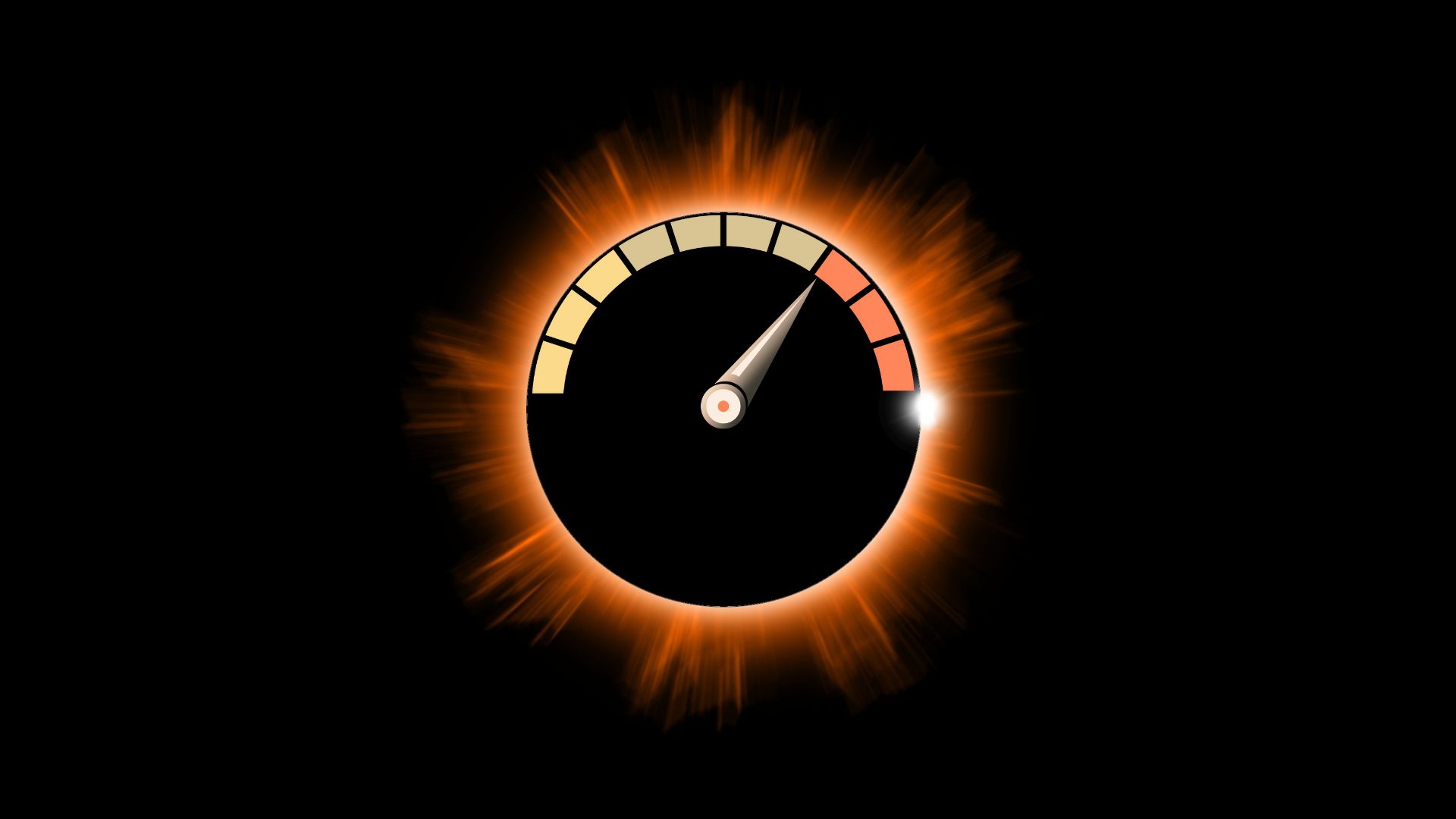
Did you know that on Oct. 14 when the annular solar eclipse sweeps across the Americas the speed of the moon's shadow varies from more than 550,000 mph (more than twice as fast as a bolt of lighting) to as slow as 1,250 mph (about the same as a jet fighter).
In the U.S., when the moon's shadow strikes the Oregon coast at 9:13 a.m. PDT its speed will have already slowed down significantly to 5,683 mph. As it leaves the coast of Texas just 50 minutes later at 12:03 p.m. CDT it will have slowed down to 1,772 mph.
Why? It all depends on where on Earth the eclipse is happening, the distance to the moon and the moon's orbital speed.
We take a more in-depth look at how fast the annular solar eclipse will travel including where it will move the fastest and the slowest.
Explore the annular eclipse with this awesome interactive map
If you can't get enough of eclipse content as we countdown to the annular solar eclipse on Oct. 14 then this interactive eclipse map is for you!
NASA's Eclipse Explorer's interactive map details when and where the eclipse can be seen, including the path and duration of annularity (the areas from which the 'ring of fire' can be seen), allowing you to track the eclipse down to the second!
You can even toggle between cities and use the slider bar at the bottom to move through different stages of the eclipse. So what are you waiting for? Explore the annular solar eclipse today!
Less than one week to go until the sun is turned into a spectacular 'ring of fire'

The countdown to the annular solar eclipse 2023 is well underway!
As we get ready for the impressive "ring of fire" spectacle we summarize where the eclipse is visible and why scientists are so excited!
REMEMBER to NEVER look at the sun directly. To safely view this solar eclipse you must use solar filters at all times. Whether your location will experience a partial solar eclipse or an annular solar eclipse, the dangers are the same. Observers will need to wear solar eclipse glasses, and cameras, telescopes and binoculars must have solar filters placed in front of their lenses at all times.
Our how to observe the sun safely guide tells you everything you need to know about safe solar observations.
Future solar eclipses will all be rings of fire
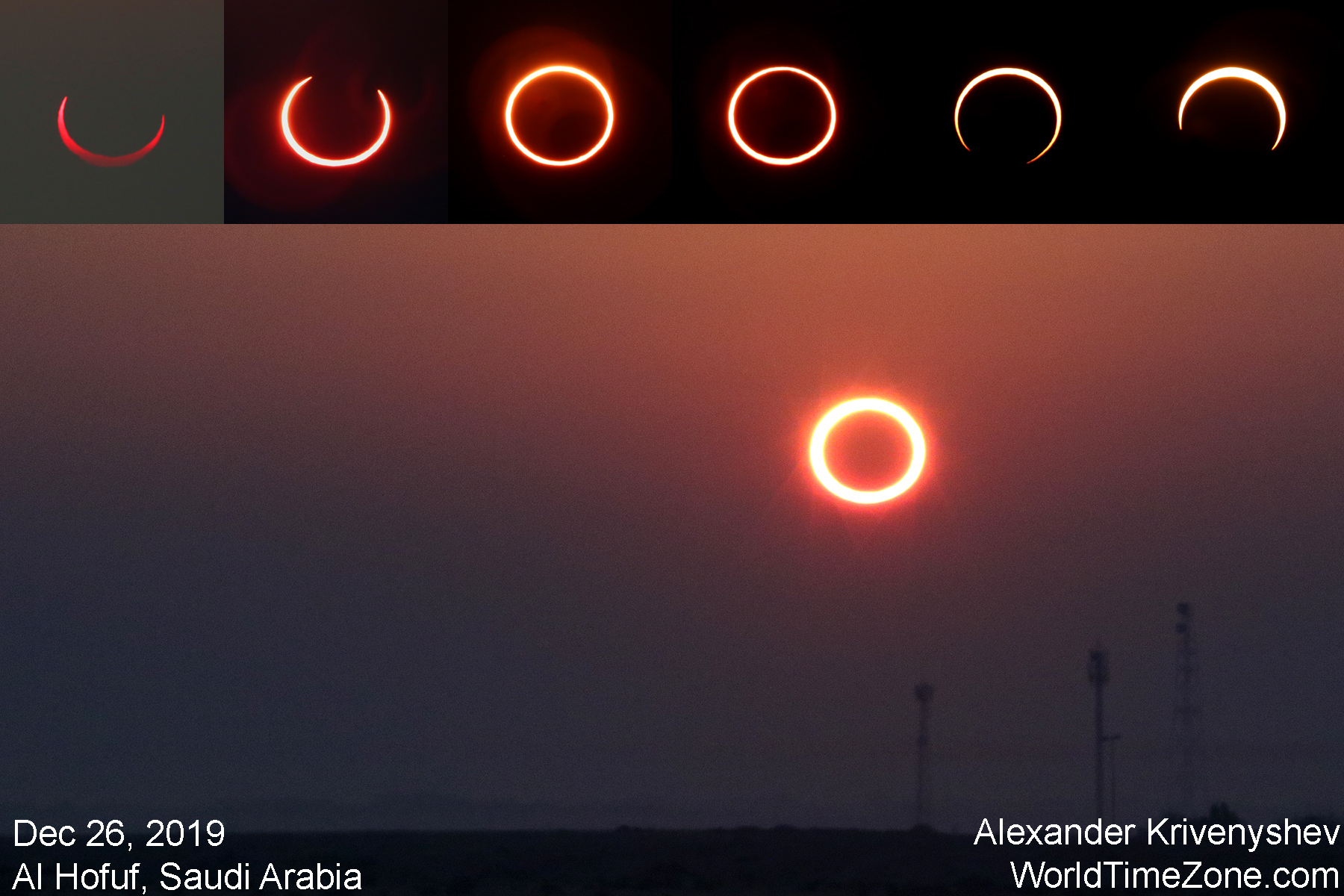
In the far future, total solar eclipses will be a thing of the past and there's physics behind it.
As we prepare for the upcoming Oct. 14 annular solar eclipse, our skywatching columnist Joe Rao takes a look into the future, when the moon's distance in relation to the Earth will be such that it will no longer totally cover the sun's disk as seen from the Earth's surface.
Here's why all solar eclipses will be rings in the future, and let us know how ready or excited you are for the Oct. 14 solar eclipse!
Ring of fire solar eclipse of 2023 is one week away!

If you're looking to safely observe a solar eclipse, the Celestron EclipSmart 2x Power Viewers Solar Eclipse and Solar Eclipse Glasses Observing Kit are great for beginners. Read our full review.
The stage is set for one of the greatest sun events of 2023, if not the greatest skywatching event of the year!
We are officially one week away from the annular solar eclipse of Oct. 14 and is one that could potentially be visible to millions of people across the United States. While not a total solar eclipse, the annular eclipse will offer a "ring of fire" effect for observers in the path of maximum coverage, as the moon will not completely cover the sun during the event. Instead, it will leave a small ring of the sun visible, also called an annulus, hence its name.
Ultimate guide to October's 'ring of fire' solar eclipse
The path of annularity will cross parts of Oregon, Nevada, Utah, Arizona, New Mexico and Texas before moving on to Central and South America. If you are not in the path of annularity, you'll be able to see partial solar eclipse, BUT BE SURE TO USE PROTECTIVE SOLAR ECLIPSE GLASSES to protect your eyes and vision.
Here's a look at some of Space.com's resources for the solar eclipse to help you prepare for the event. We'll have daily stories leading up to the event.
How fast will the Oct. 14 annular solar eclipse travel?
How long with the Oct. 14 solar eclipse last?
10 events, viewing parties and festivals for October's 'ring of fire' solar eclipse
10 beauty spots to see October's 'ring of fire annular solar eclipse
Total vs. annular: Why solar eclipses produce totality or a 'ring of fire'
7 places to see rare 'edge effects' during October's 'ring of fire' solar eclipse
You must confirm your public display name before commenting
Please logout and then login again, you will then be prompted to enter your display name.
